Search Result
Results for "
carcinoma cells
" in MedChemExpress (MCE) Product Catalog:
2
Biochemical Assay Reagents
10
Isotope-Labeled Compounds
| Cat. No. |
Product Name |
Target |
Research Areas |
Chemical Structure |
-
- HY-119425
-
|
ICRF 159
|
Topoisomerase
|
Cancer
|
|
Razoxane (ICRF 159) is an antiangiogenic topoisomerase II inhibitor, can be used for the research of renal cell carcinoma (RCC) .
|
-
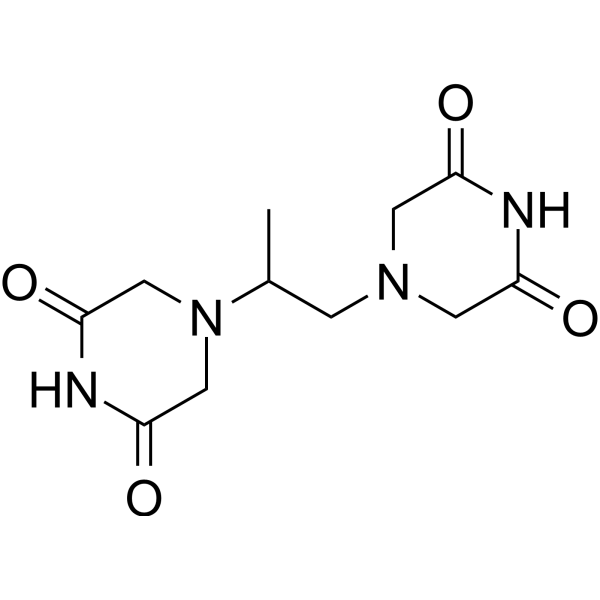
-
- HY-121532
-
|
|
Ras
Apoptosis
Autophagy
|
Cancer
|
|
(-)-Rasfonin is a fungal secondary metabolite and inhibits small G proteins Ras. (-)-Rasfonin induces apoptosis, necrosis and autophagy in ACHN cells (a renal carcinoma cell line) .
|
-
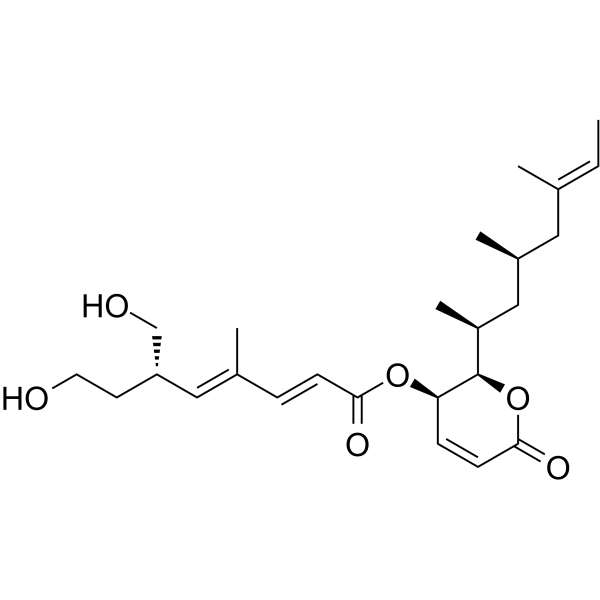
-
- HY-119320
-
|
Aethimidinum
|
Others
|
Cancer
|
|
Ethimidine (Aethimidinum) can reduce the blood serum free SH (sulfhydryl) in in rats previously transplanted with sarcoma or carcinoma cells .
|
-
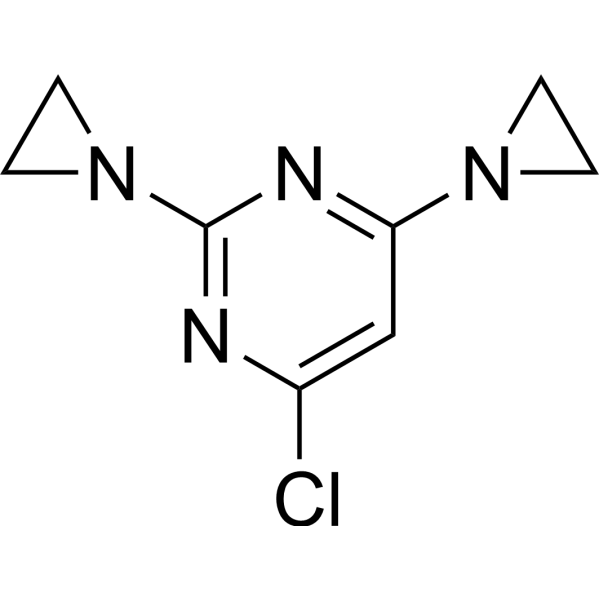
-
- HY-147426
-
|
ADS-007; ARO HIF2
|
HIF/HIF Prolyl-Hydroxylase
|
Cancer
|
|
Zifcasiran is a hypoxia-inducible factor (HIF) synthesis reducer. Zifcasiran shows antitumor activities and can be used in advanced renal cell carcinoma research .
|
-

-
- HY-147426A
-
|
ADS-007 sodium; ARO HIF2 sodium
|
HIF/HIF Prolyl-Hydroxylase
|
Cancer
|
|
Zifcasiran sodium is a hypoxia-inducible factor (HIF) synthesis reducer. Zifcasiran sodium shows antitumor activities and can be used in advanced renal cell carcinoma research .
|
-
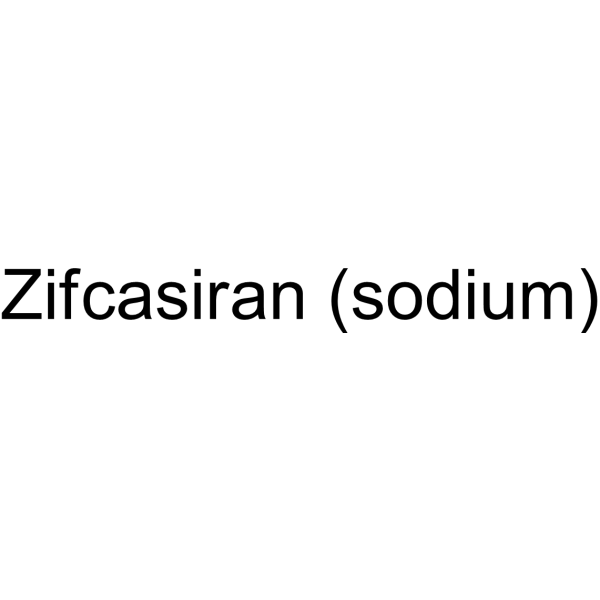
-
- HY-P99023
-
|
G250; cG250
|
Carbonic Anhydrase
|
Cancer
|
|
Girentuximab (G250) is a chimeric monoclonal antibody that binds carbonic anhydrase IX (CAIX), a cell surface glycoprotein ubiquitously expressed in clear cell renal cell carcinoma (ccRCC) .
|
-

-
- HY-100746
-
|
|
Autophagy
|
Cancer
|
|
STF-62247 is an autophagy inducer that selectively cytotoxic to VHL-deficient renal cell carcinoma (IC50 of 0.625 μM and 16 μM in RCC4 and RCC4/VHL cells, respectively) .
|
-
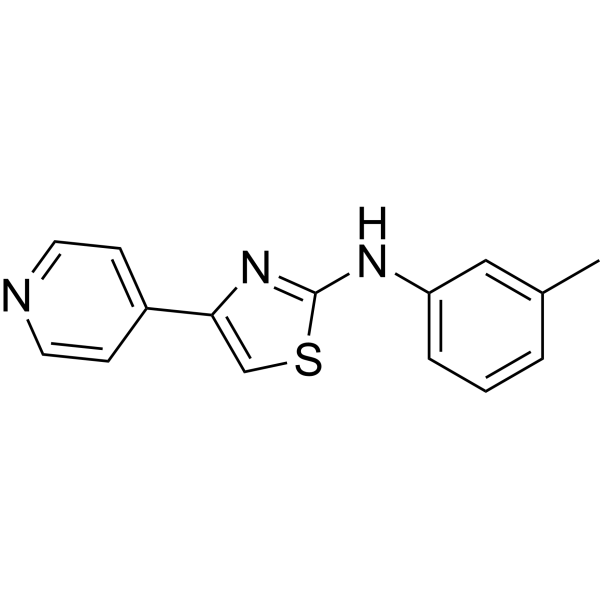
-
- HY-P99161
-
|
BGB149
|
TAM Receptor
|
Cancer
|
|
Tilvestamab (BGB149) is a humanized anti-AXL antibody that blocks AXL-mediated cell signaling. Tilvestamab significantly inhibits Gas6-induced AXL activation in 786-0-Luc RCC cells and inhibits downstream AKT phosphorylation. Tilvestamab can be used in cancer research, particularly in AXL overexpressing renal cell carcinomas .
|
-

-
- HY-N2779
-
|
|
Others
|
Cancer
|
|
8-Lavandulylkaempferol is a flavonoid that can be isolated from Sophora flaWescens. 8-Lavandulylkaempferol exhibits cytotoxic activity against the KB epidermoid carcinoma cell line with an IC50 of 15.1 μg/mL .
|
-
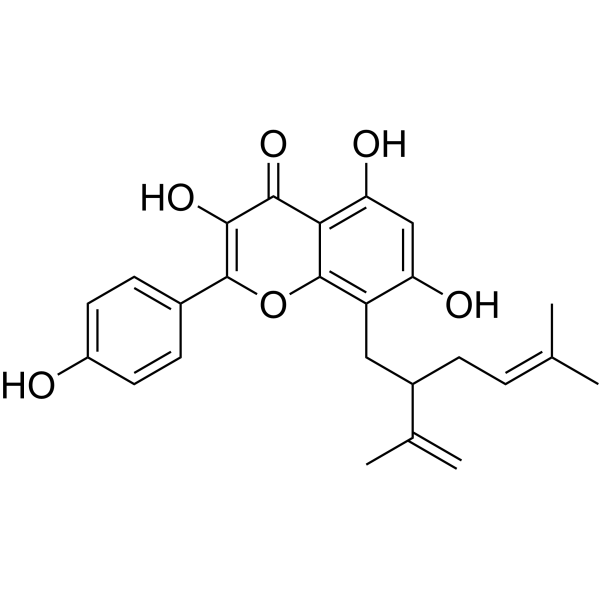
-
- HY-P99461
-
|
ISU-104
|
EGFR
|
Cancer
|
|
Barecetamab (ISU-104) is a fully human anti-ErbB3 monoclonal antibody. Barecetamab can be used for the research of recurrent/metastatic (R/M) head and neck squamous cell carcinoma (HNSCC) .
|
-

-
- HY-155377
-
|
|
Polo-like Kinase (PLK)
p38 MAPK
|
Cancer
|
|
PLK1/p38γ-IN-1(compound 14) is a multitarget inhibitors ofPLK1andp38γ. PLK1/p38γ-IN-1inhibits the growth of human hepatocellular carcinoma and hepatoblastoma cells in vitro .
|
-
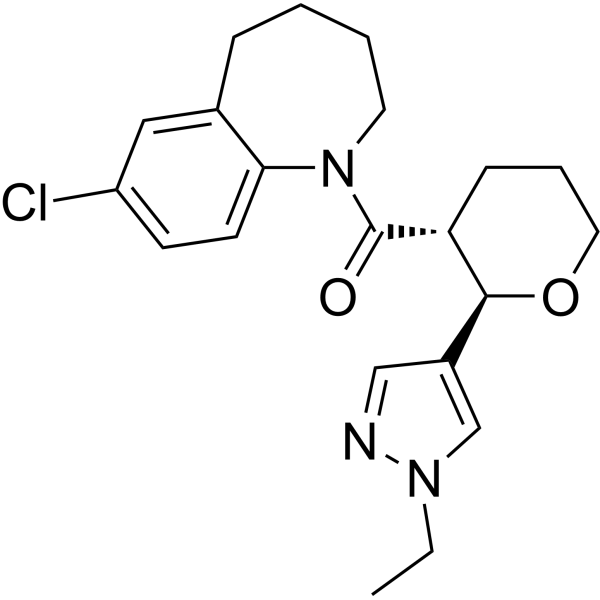
-
- HY-155785
-
|
|
Apoptosis
Autophagy
Reactive Oxygen Species
JAK
|
Cancer
|
|
MTP is a PKM2 inhibitor. MTP induces cancer cell apoptosis by modulating caspase-3 activation. MTP induces autophagy and increases ROS generation. MTP also inhibits JAK2 signaling. MTP can be used for research of oral squamous cell carcinoma .
|
-
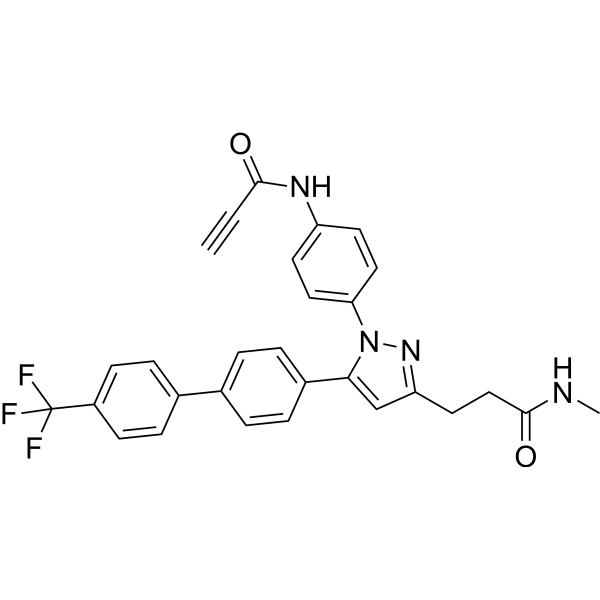
-
- HY-149063
-
|
|
Apoptosis
|
Cancer
|
|
Antitumor agent-92, an Icaritin (HY-N0678) derivative, causes arrest at the G0/G1 phase in the cell cycle and induces cell apoptosis. Antitumor agent-92 has the potential for hepatocellular carcinoma (HCC) research .
|
-
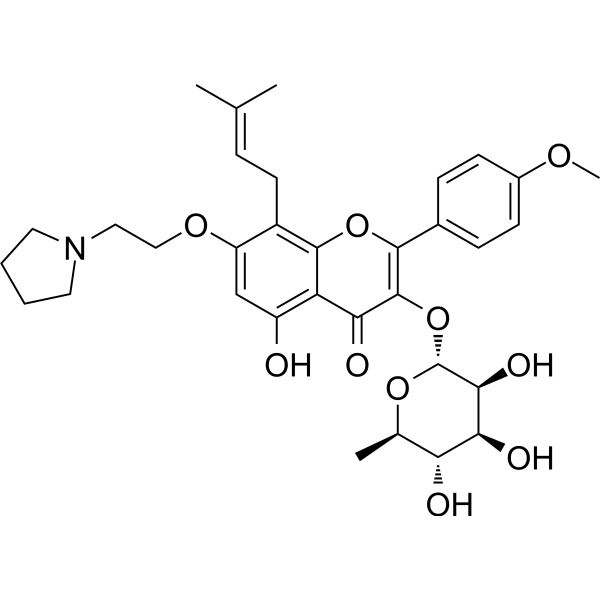
-
- HY-17473
-
Embelin
4 Publications Verification
Embelic acid; Emberine; NSC 91874
|
IAP
NF-κB
Apoptosis
Autophagy
|
Cancer
|
|
Embelin (Embelic acid), a potent, nonpeptidic XIAP inhibitor (IC50=4.1 μM), inhibits cell growth, induces apoptosis, and activates caspase-9 in prostate cancer cells with high levels of XIAP. Embelin blocks NF-kappaB signaling pathway leading to suppression of NF-kappaB-regulated antiapoptotic and metastatic gene products. Embelin also induces autophagic and apoptotic cell death in human oral squamous cell carcinoma cells .
|
-
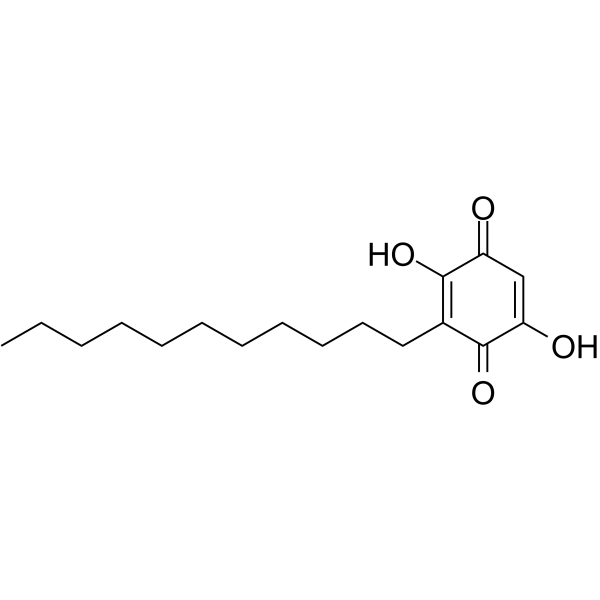
-
- HY-W195984
-
|
|
Others
|
Cancer
|
|
Z57346765 is a PGK1-specific inhibitor that reduces the activity of metabolic enzymes in PGK1 glycolysis and inhibits PGK1-dependent cell proliferation. Z57346765 exerts inhibitory effects against clear cell renal cell carcinoma (KIRC) .
|
-
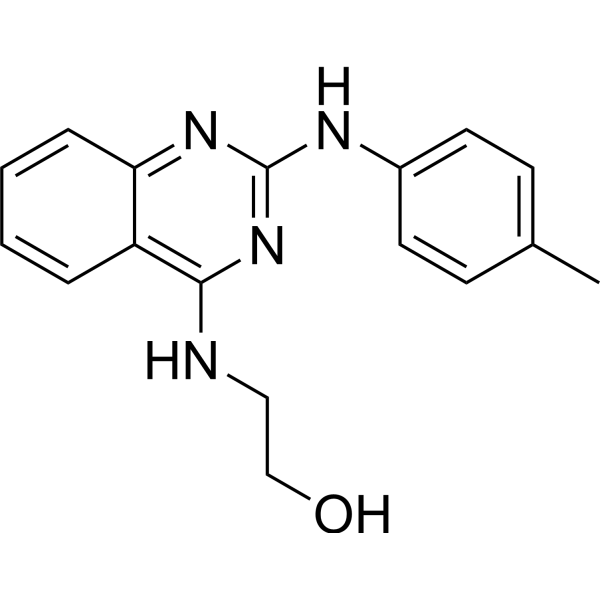
-
- HY-106364
-
|
Bleomycin PEP; Pepleomycin
|
Antibiotic
|
Cancer
|
|
Peplomycin (Bleomycin PEP; Pepleomycin) is an antibiotic analogue of Bleomycin (HY-108345), with high antitumor effect and less pulmonary toxicity. Peplomycin induce apoptosis in oral squamous carcinoma cell line SSCKN cells and pulmonary fibrosis in rats .
|
-
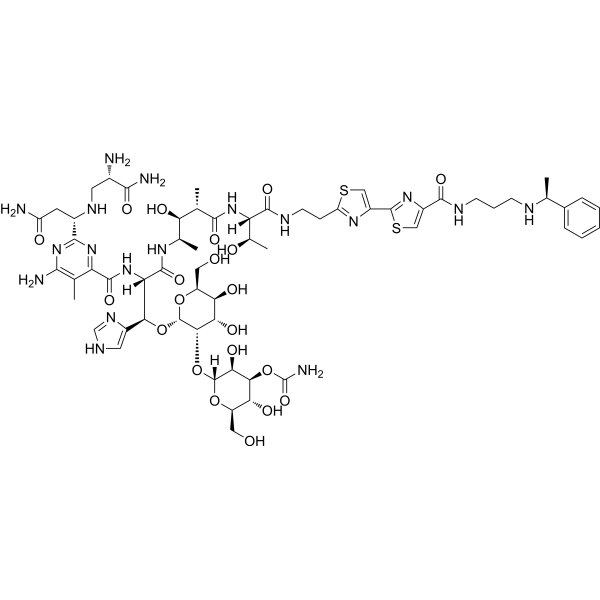
-
- HY-119198
-
|
|
Apoptosis
Histone Methyltransferase
|
Cancer
|
|
NSC745885 an effective anti-tumor agent, shows selective toxicity against multiple cancer cell lines but not normal cells. NSC745885 is an effective down-regulator of EZH2 via proteasome-mediated degradation. NSC745885 provides possibilities for the study of advanced bladder and oral squamous cell carcinoma (OSCC) cancers .
|
-
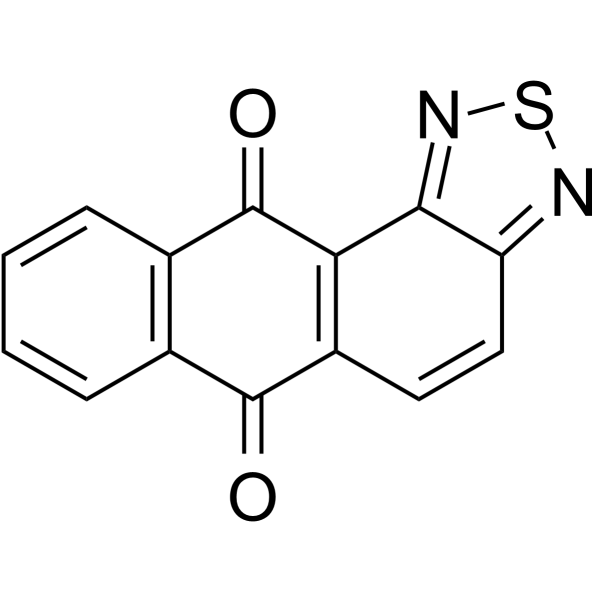
-
- HY-P99287
-
|
B-E8; Anti-IL-6 MAB B-E8; Anti-Human IL6 Recombinant Antibody
|
Interleukin Related
|
Inflammation/Immunology
Cancer
|
|
Elsilimomab (B-E8) is a IgG1 monoclonal antibody against interleukin-6 (IL-6), with a KD of 22 pM and an IC50 of 1.4 nM. Elsilimomab can be used for the research of multiple myeloma, renal cell carcinoma, and rheumatoid arthritis (RA) .
|
-

-
- HY-148260
-
|
|
Ras
|
Cancer
|
|
KRAS G12D inhibitor 16 is a KRAS G12D inhibitor. KRAS G12D inhibitor 16 has inhibitory activity against KRAS G12D and KRAS G12D mutation with IC50 value of 0.7 nM and 0.35 μM, respectively. KRAS G12D inhibitor 16 can be used for the research of many malignant tumor, such as pancreatic ductal adenocarcinomas (PDAC), colon and rectal carcinomas (CRC), non-small cell lung carcinomas (NSCLC) .
|
-
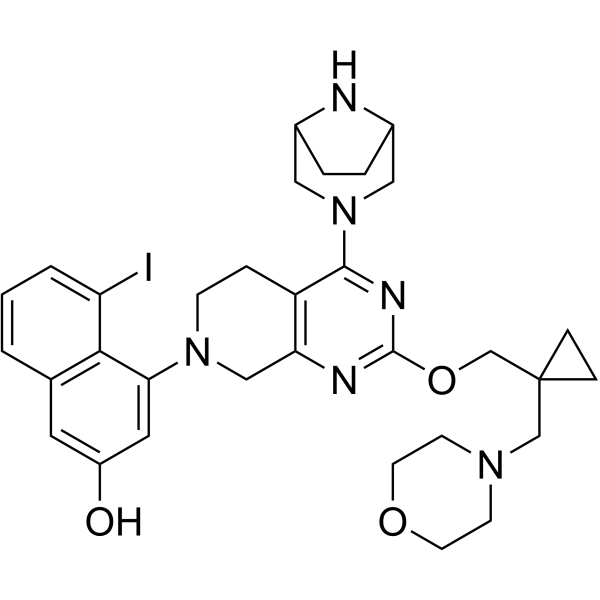
-
- HY-P99933
-
|
IMP321; LAG-3Ig
|
LAG-3
|
Cancer
|
|
Eftilagimod alfa (IMP321) is a recombinant LAG-3Ig fusion protein that binds to MHC class II. Eftilagimod alfa mediates antigen-presenting cell (APC) activation followed by CD8 T-cell activation. Eftilagimod alfa can be used for metastatic melanoma and metastatic breast carcinoma research .
|
-

-
- HY-149677
-
|
|
Mitochondrial Metabolism
|
Cancer
|
|
ZK53 is a selective activator of mitochondrial caseinolytic protease P (HsClpP) (EC50: 1.37?μM for α-casein hydrolysis by HsClpP). ZK53 is is inactive toward bacterial ClpP proteins. ZK53 induces apoptosis in H1703, H520 and SK-MES-1 cells. ZK53 induces dysregulation of mitochondrial functions in lung squamous cell carcinoma (LUSC) cells. ZK53 inhibits tumor growth in H1703 xenograft mouse model .
|
-
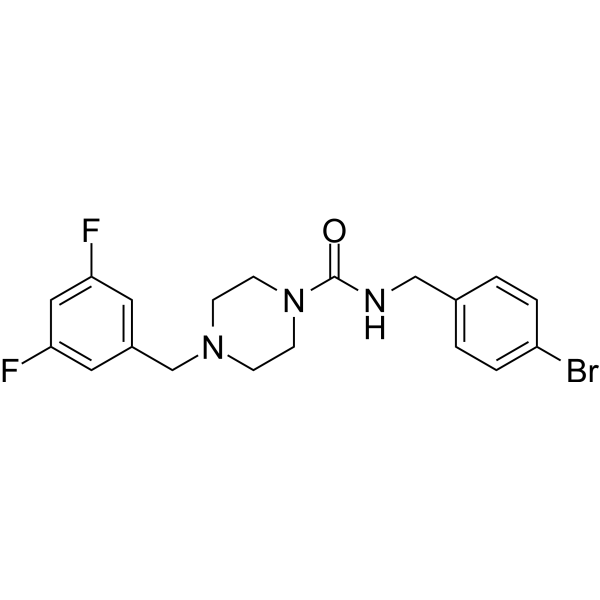
-
- HY-50767
-
Palbociclib
Maximum Cited Publications
134 Publications Verification
PD 0332991
|
CDK
|
Cancer
|
|
Palbociclib (PD 0332991) is an orally active selective CDK4 and CDK6 inhibitor with IC50 values of 11 and 16 nM, respectively. Palbociclib has potent anti-proliferative activity and induces cell cycle arrest in cancer cells, which can be used in the research of HR-positive and HER2-negative breast cancer and hepatocellular carcinoma .
|
-
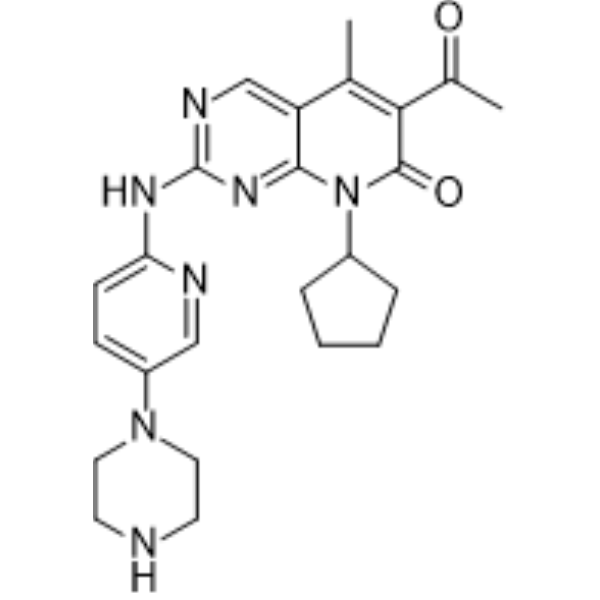
-
- HY-50767B
-
|
PD-0332991 dihydrochloride
|
CDK
|
Cancer
|
|
Palbociclib (PD 0332991) dihydrochloride is an orally active selective CDK4 and CDK6 inhibitor with IC50 values of 11 and 16 nM, respectively. Palbociclib dihydrochloride has potent anti-proliferative activity and induces cell cycle arrest in cancer cells, which can be used in the research of HR-positive and HER2-negative breast cancer and hepatocellular carcinoma .
|
-
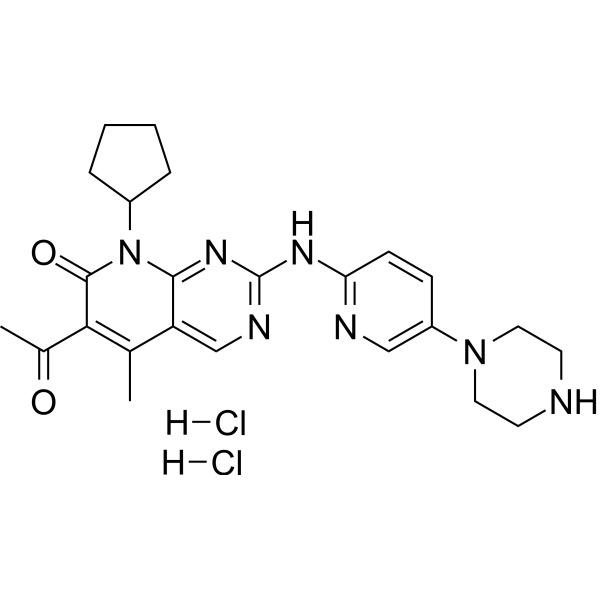
-
- HY-50767C
-
|
PD-0332991 hydrochloride
|
CDK
|
Cancer
|
|
Palbociclib (PD 0332991) hydrochloride is an orally active selective CDK4 and CDK6 inhibitor with IC50 values of 11 and 16 nM, respectively. Palbociclib hydrochloride has potent anti-proliferative activity and induces cell cycle arrest in cancer cells. Palbociclib hydrochloride can be used in the research of HR-positive and HER2-negative breast cancer and hepatocellular carcinoma .
|
-
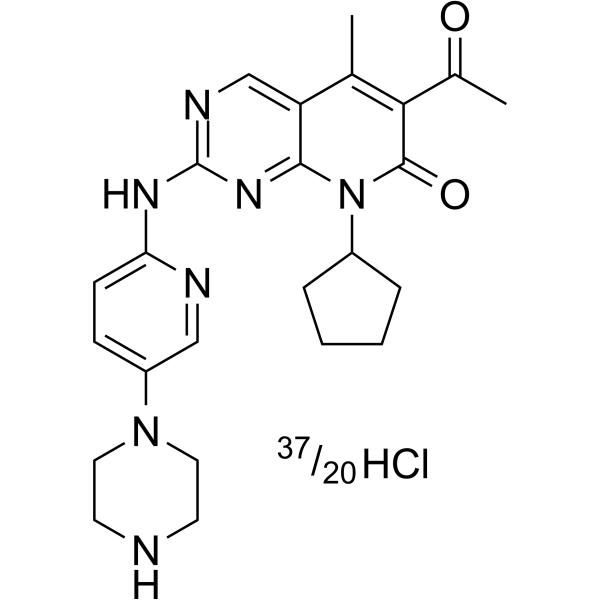
-
- HY-147187
-
|
|
STAT
Apoptosis
Bcl-2 Family
Survivin
|
Cancer
|
|
MNK8 is a potent STAT3 (signal transducer and activator of transcription 3) inhibitor. MNK8 inhibits STAT3 activation and reduced its DNA binding ability. MNK8 shows good growth inhibition against hepatocellular carcinoma (HCC) cells. MNK8 induces apoptosis in HCC cells. MNK8 reduces prosurvival proteins expression and migration/invasion of HCC cells .
|
-
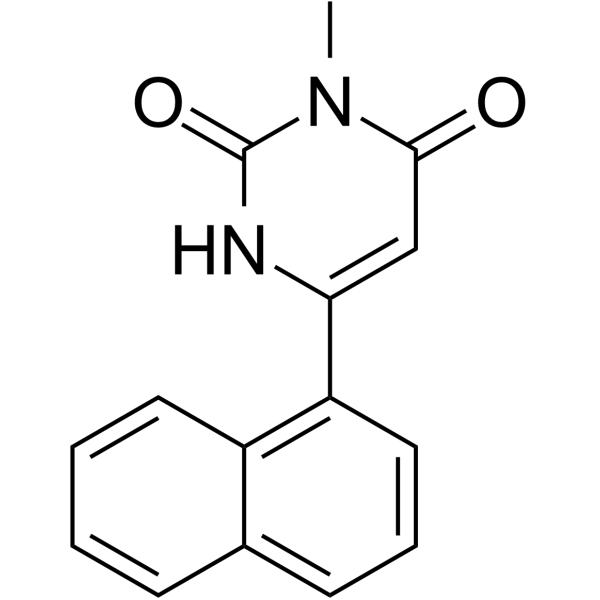
-
- HY-P99406
-
|
MCLA 158
|
EGFR
|
Cancer
|
|
Petosemtamab (MCLA 158) is an anti- EGFR (Kd: 0.22 nM) and anti-LGR5 (Kd: 0.86 nM) monoclonal antibody (mAb). Petosemtamab leads to EGFR signaling blockade and receptor degradation in LGR5+ cancer cells. Petosemtamab can be used in the research of solid tumors, such as head and neck squamous cell carcinoma (HNSCC), metastatic colorectal cancer (CRC) .
|
-

-
- HY-50767A
-
|
PD 0332991 monohydrochloride
|
CDK
|
Cancer
|
|
Palbociclib (PD 0332991) monohydrochloride is an orally active selective CDK4 and CDK6 inhibitor with IC50 values of 11 and 16 nM, respectively. Palbociclib monohydrochloride has potent anti-proliferative activity and induces cell cycle arrest in cancer cells, which can be used in the research of HR-positive and HER2-negative breast cancer and hepatocellular carcinoma .
|
-
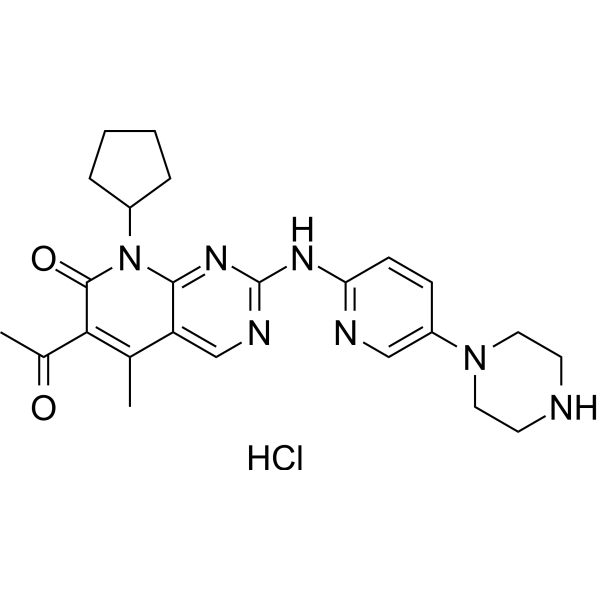
-
- HY-A0065
-
|
PD 0332991 isethionate
|
CDK
|
Cancer
|
|
Palbociclib (PD 0332991) isethionate is an orally active selective CDK4 and CDK6 inhibitor with IC50 values of 11 and 16 nM, respectively. Palbociclib isethionate has potent anti-proliferative activity and induces cell cycle arrest in cancer cells, which can be used in the research of HR-positive and HER2-negative breast cancer and hepatocellular carcinoma .
|
-
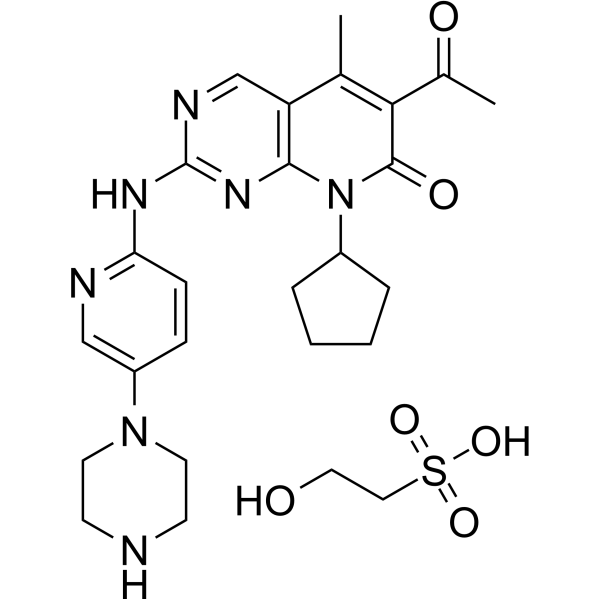
-
- HY-50767D
-
|
PD 0332991 orotate
|
CDK
|
Cancer
|
|
Palbociclib (PD 0332991) orotate is an orally active selective CDK4 and CDK6 inhibitor with IC50 values of 11 and 16 nM, respectively. Palbociclib orotate has potent anti-proliferative activity and induces cell cycle arrest in cancer cells. Palbociclib orotate can be used in the research of HR-positive and HER2-negative breast cancer and hepatocellular carcinoma .
|
-
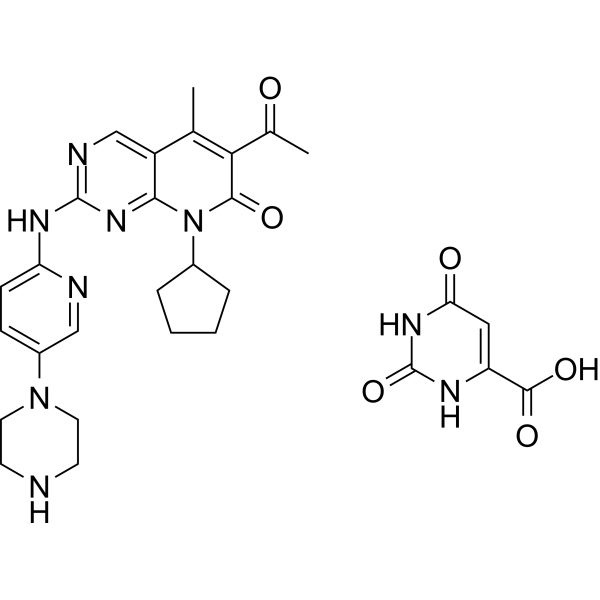
-
- HY-P99463
-
|
AVB-S6-500
|
TAM Receptor
|
Cancer
|
|
Batiraxcept (AVB-S6-500) is a highly potent and specific AXL inhibitor, a recombinant fusion protein dimer containing the extracellular domain of human AXLM and human immunoglobulin G1 heavy chain (Fc). Batiraxcept binds to GAS6 and inhibits the interaction of GAS6 with AXL, thereby substantially reducing AXL signaled invasion and migration of highly metastatic cells in vitro and inhibiting metastatic disease in nonclinical models of aggressive human cancers. Batiraxcept is available for studies in advanced or metastatic clear cell renal cell carcinoma (ccRCC) and platinum sensitive recurrent ovarian cancer .
|
-
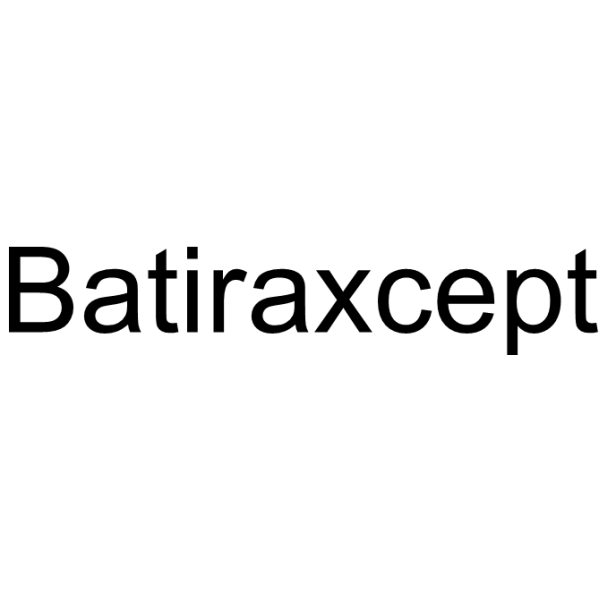
-
- HY-119906
-
|
FW-04-806
|
HSP
Apoptosis
|
Cancer
|
|
Conglobatin (FW-04-806), a macrolide dilactone, is isolated from the culture of Streptomyces conglobatus. Conglobatin is an orally active Hsp90 inhibitor. Conglobatin can bind to the N-terminal domain of Hsp90 and disrupt Hsp90-Cdc37 complex formation. Conglobatin induces apoptosis in human breast cancer cells and esophageal squamous cell carcinoma cells, and exhibits antitumor activity in vivo .
|
-
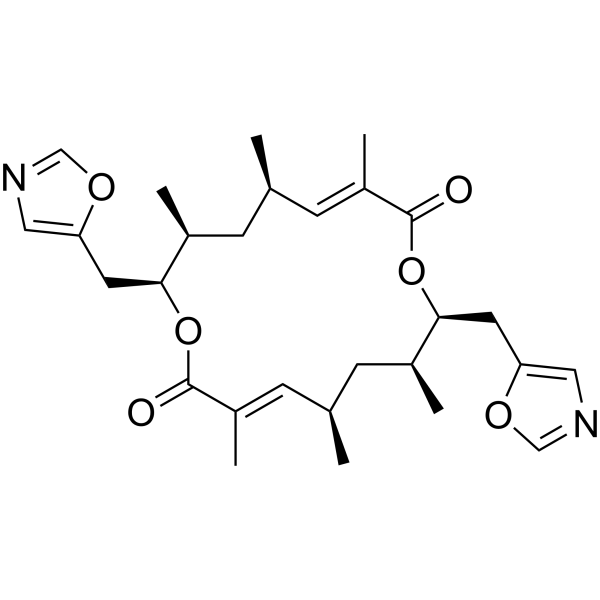
-
- HY-118762
-
|
|
Cathepsin
|
Cancer
|
|
KGP94 is a selective inhibitor of cathepsin L with an IC50 of 189 nM . KGP94 inhibits migration and invasion of metastatic carcinoma and shows low cytotoxicity (GI50=26.9 µM) against various human cell lines .
|
-
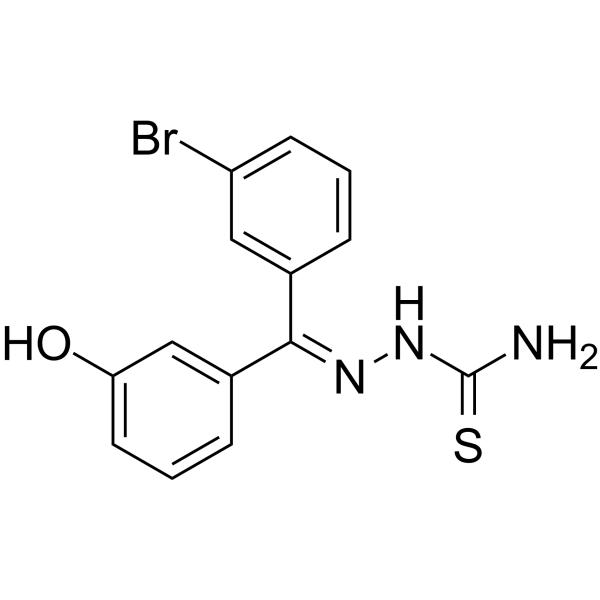
-
- HY-111458
-
|
|
Deubiquitinase
|
Cancer
|
|
GSK2643943A is a deubiquitinating enzyme (DUB) inhibitor targeting USP20. GSK2643943A has affinity with an IC50 of 160 nM for USP20/Ub-Rho. GSK2643943A has anti-tumor efficacy and can be used for the research of oral squamous cell carcinoma (OSCC) .
|
-
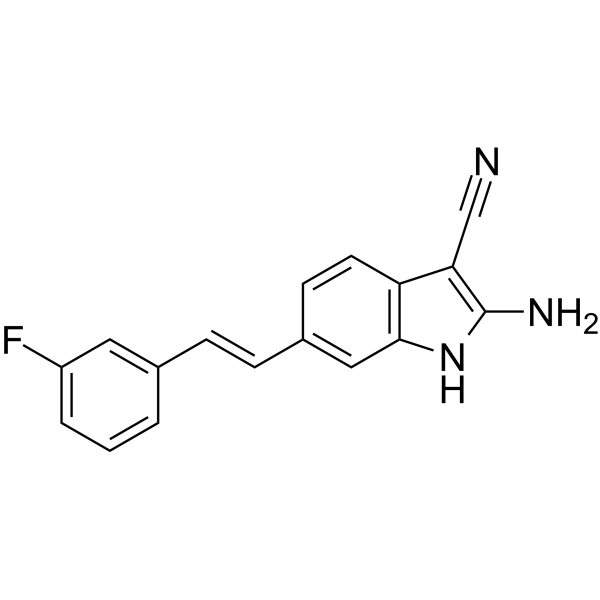
-
- HY-12204
-
PFK-015
3 Publications Verification
|
Autophagy
|
Metabolic Disease
Inflammation/Immunology
Cancer
|
|
PFK-015, a derivative of 3PO, is a specific PFKFB3 inhibitor. PFK-015 inhibits recombinant PFKFB3 with an IC50 value of 110 nM and inhibits PFKFB3 activity in cancer cells with an IC50 value of 20 nM. PFK-015 can be used for the research of multiple cancers such as lung cancer, stomach cancer, colon cancer and esophageal squamous cell carcinoma (ESCC) .
|
-
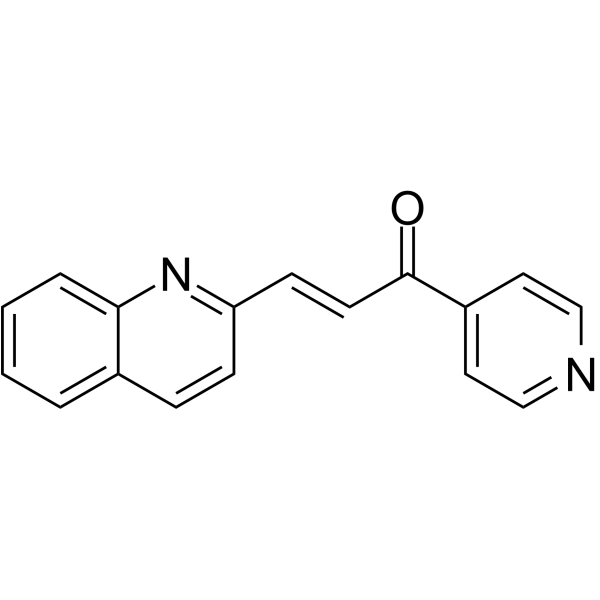
-
- HY-P99032
-
|
IPH2201
|
Checkpoint Kinase (Chk)
IFNAR
|
Inflammation/Immunology
Cancer
|
|
Monalizumab (IPH2201) is an immune checkpoint inhibitor targeting Natural Killer Group 2A (NKG2A). Monalizumab, a humanized anti-NKG2A blocking mAb, increases IFN-γ production, thereby promoting NK cell effector functions. Monalizumab can be used for the research of head and neck squamous cell carcinoma (HNSCC) .
|
-

-
- HY-153863
-
|
|
MEK
|
Cancer
|
MS934 is a novel improved VHL-recruiting MEK 1/2 degrader. MS934 has anti-proliferation potency at inhibiting the growth of HT-29 cells with a GI50 value of 0.023 μM. MS934 can be used for the research of variety of human cancers, such as melanoma, nonsmall cell lung cancer (NSCLC), colorectal cancer, primary brain tumors, and hepatocellular carcinoma .
|
-
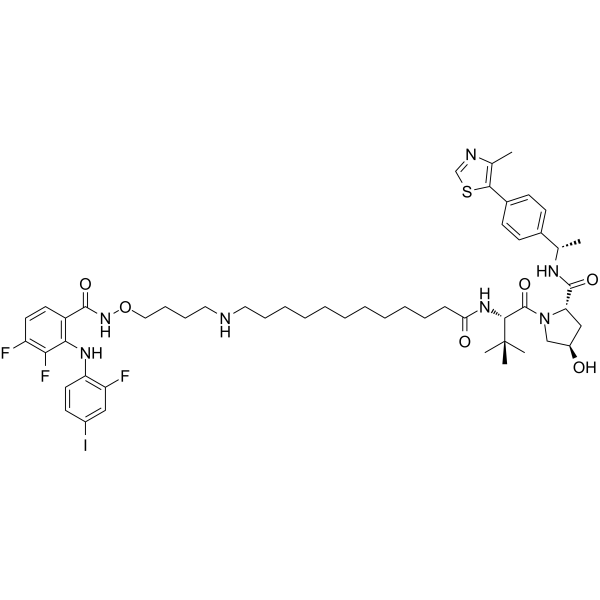
-
- HY-B0986
-
|
4-Hexylresorcinol
|
Parasite
Bacterial
Apoptosis
Glucosidase
Endogenous Metabolite
|
Infection
Metabolic Disease
Cancer
|
|
Hexylresorcinol (4-Hexylresorcinol) is a natural compound found in plants with antimicrobial, anthelmintic, antiseptic and antitumor activities. Hexylresorcinol can induce apoptosis in squamous carcinoma cells. Hexylresorcinol is a reversible and noncompetitive inhibitor of α-glucosidase. Hexylresorcinol has protective effects against oxidative DNA damage .
|
-
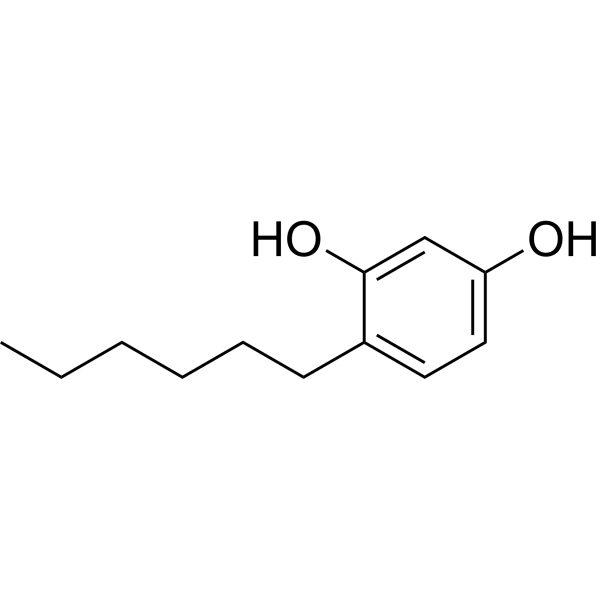
-
- HY-151341
-
|
|
HIF/HIF Prolyl-Hydroxylase
|
Cancer
|
|
HIF-1/2α-IN-1 is an orally active HIF-2α inhibitor. HIF-1/2α-IN-1 inhibits HIF-2α activity with an IC50 value of 0.92 μM. HIF-1/2α-IN-1 also can decrease HIF-1α levels. HIF-1/2α-IN-1 can be used for the research of clear cell renal cell carcinoma (ccRCC) .
|
-
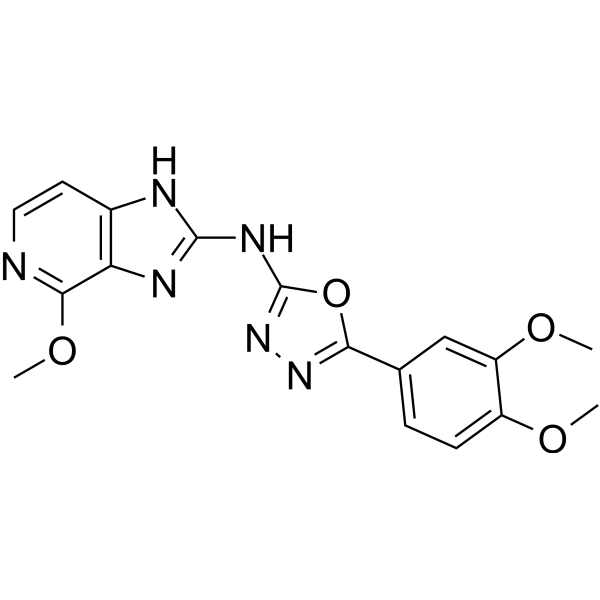
-
- HY-N7651
-
|
|
Others
|
Cancer
|
|
Neoanhydropodophyllol is a cyclolignan derivative, with antineoplastic activity. Neoanhydropodophyllol displays cytotoxicity against several cancer cells (leukemia, lung carcinoma and colon carcinoma) .
|
-
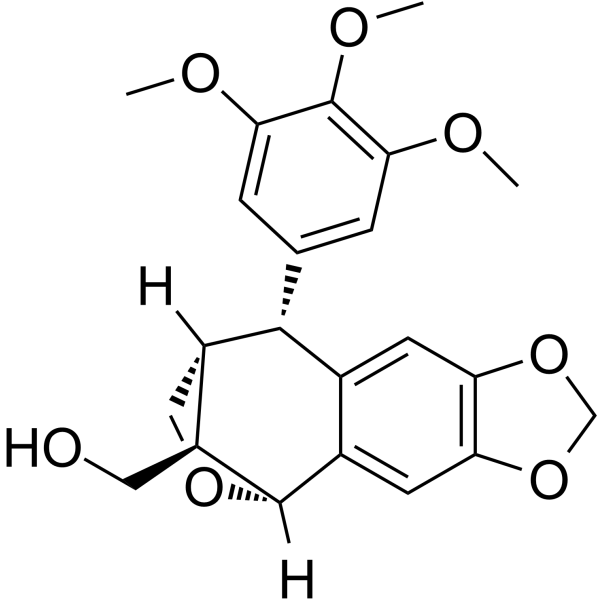
-
- HY-13690
-
|
2,4′-DDD; o,p'-DDD
|
Apoptosis
|
Cancer
|
|
Mitotane (2,4′-DDD), an isomer of DDD and derivative of dichlorodiphenyltrichloroethane (DDT), is an antineoplastic agent, can be used to research adrenocortical carcinoma. Mitotane exert its adrenocorticolytic effect at least in part through lipotoxicity induced by intracellular free cholesterol (FC) accumulation. Mitotane can have direct pituitary effects on corticotroph cells. Mitotane can induce CYP3A4 gene expression via steroid and xenobiotic receptor (SXR) activation, and has agent-agent interactions .
|
-
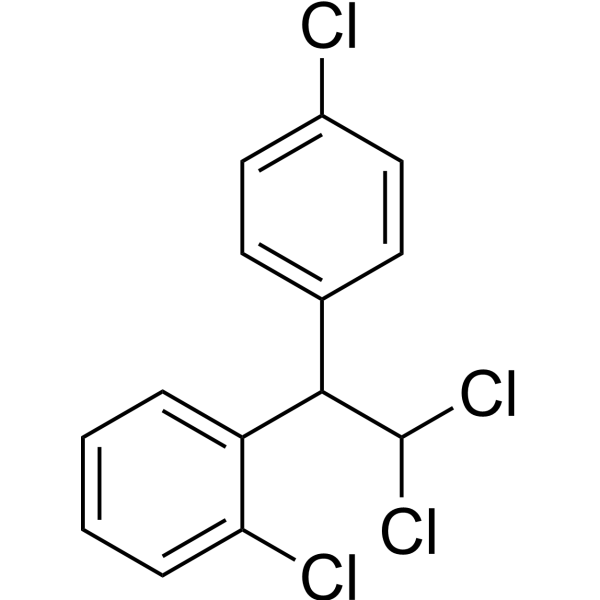
-
- HY-149673
-
|
|
CDK
|
Cancer
|
|
XPW1 is a potent and selective CDK9 inhibitor with excellent activity against clear cell renal cell carcinoma (ccRCC) and low toxicity .
|
-
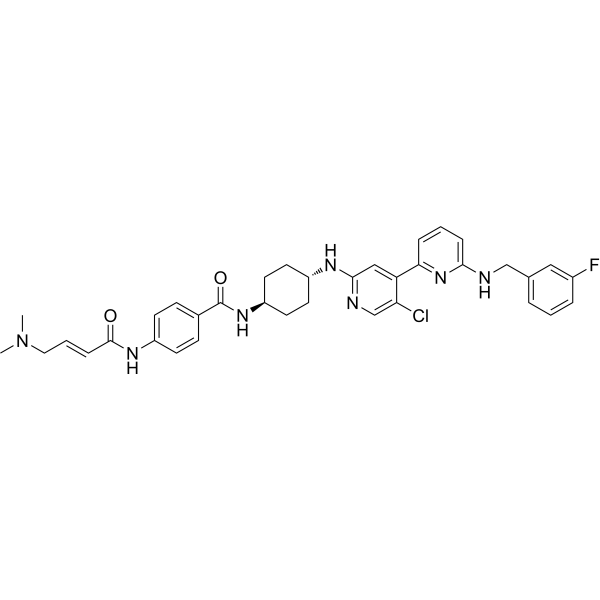
-
- HY-100861
-
-
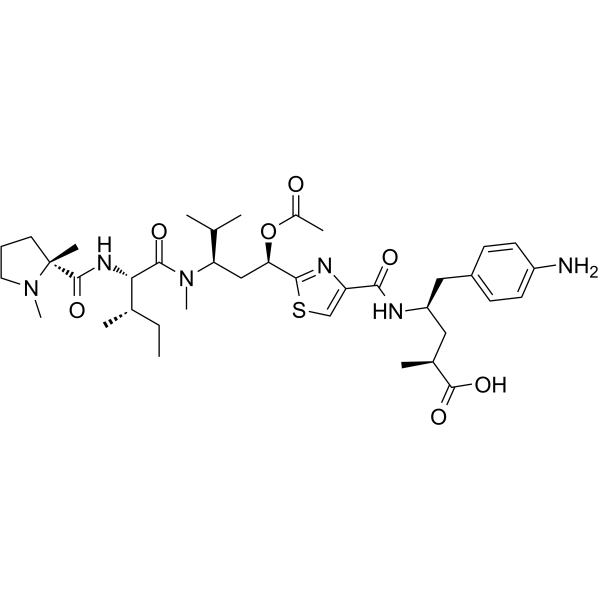
-
- HY-141813
-
|
|
Autophagy
|
Cancer
|
|
Autophagy-IN-C1 not only induces apoptosis but also blocks autophagy in hepatocellular carcinoma (HCC) cells.
|
-
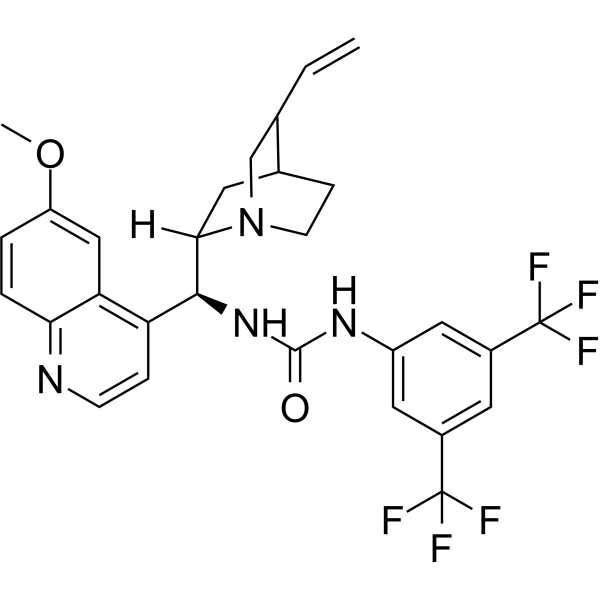
-
- HY-N10304
-
|
|
Apoptosis
|
Cancer
|
|
Isodispar B is an anticancer agent that inhibits the proliferation of nasopharyngeal carcinoma and breast cancer cells and induces cell apoptosis. Isodispar B is cytotoxic to a wide range of cancer cell lines .
|
-
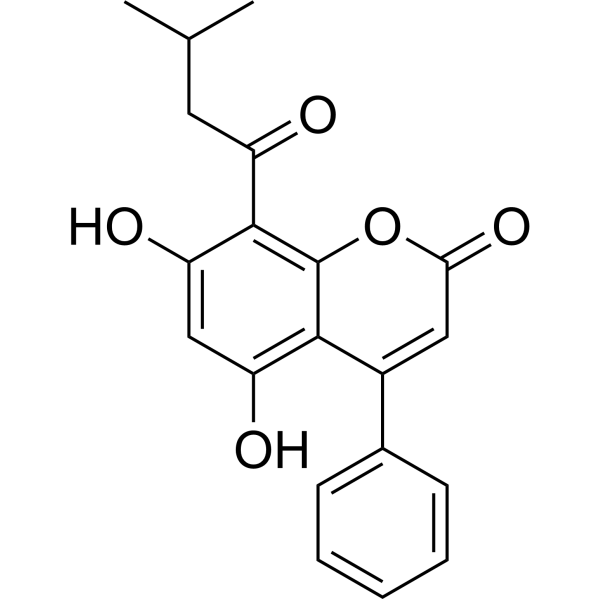
-
- HY-P99594
-
|
ZKAB001; STI-1014; STI-A1014
|
PD-1/PD-L1
|
Cancer
|
|
Socazolimab (ZKAB001) is an anti-PD-L1 monoclonal antibody. Socazolimab has lasting safety and efficacy in the treatment of recurrent or metastatic cervical cancer. Socazolimab also has potential applications in small cell lung cancer, esophageal squamous cell carcinoma (ESCC), advanced urothelial carcinoma and osteosarcoma .
|
-

-
- HY-19832
-
SC66
5 Publications Verification
|
Akt
Apoptosis
|
Cancer
|
|
SC66 is an Akt inhibitor, reduces cell viability in a dose- and time-dependent manner, inhibits colony formation and induces apoptosis in hepatocellular carcinoma (HCC) cells.
|
-
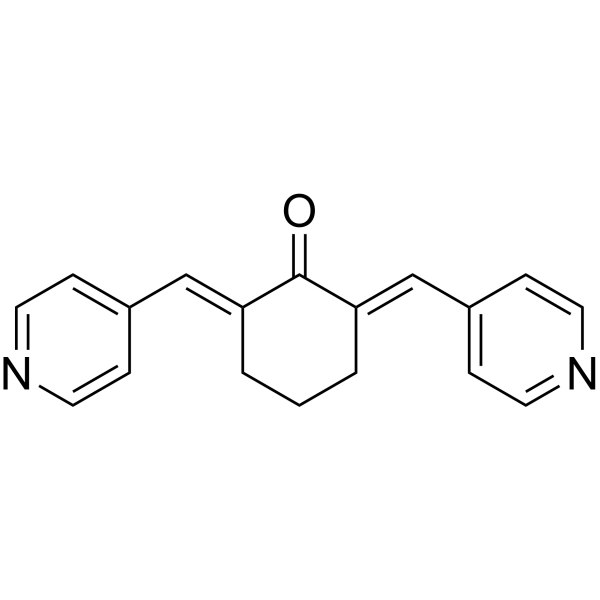
-
- HY-N8380
-
|
|
Apoptosis
Autophagy
PI3K
Necroptosis
|
Cardiovascular Disease
Inflammation/Immunology
Cancer
|
|
(-)-Latifolin, a flavonoid, induces apoptotic cell death by targeting PI3K/AKT/mTOR/p70S6K signaling. (-)-Latifolin significantly inhibits the cell proliferation of oral squamous cell carcinoma (OSCC), and causes the anti-metastatic activities by effectively blocking cell migration, invasion, and adhesion via the inactivation of FAK/Src. (-)-Latifolin suppresses autophagic-related proteins and autophagosome formation. (-)-Latifolin inhibits necroptosis by dephosphorylating necroptosis-regulatory proteins (RIP1, RIP3, and MLKL). (-)-Latifolin has beneficial effects on anti-aging, anti-carcinogenic, anti-inflammatory, and cardio-protective activities .
|
-
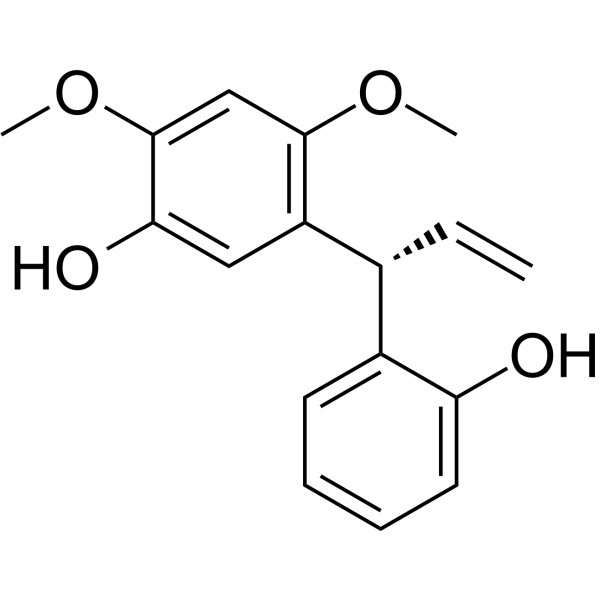
-
- HY-N1261
-
|
|
Others
|
Cancer
|
|
Scutebarbatine B shows significant cytotoxic activities against three human cancer lines, namely, HONE-1 nasopharyngeal, KB oral epidermoid carcinoma, and HT29 colorectal carcinoma cells, with IC50 values in the range 3.5-8.1 mM [1]<
|
-
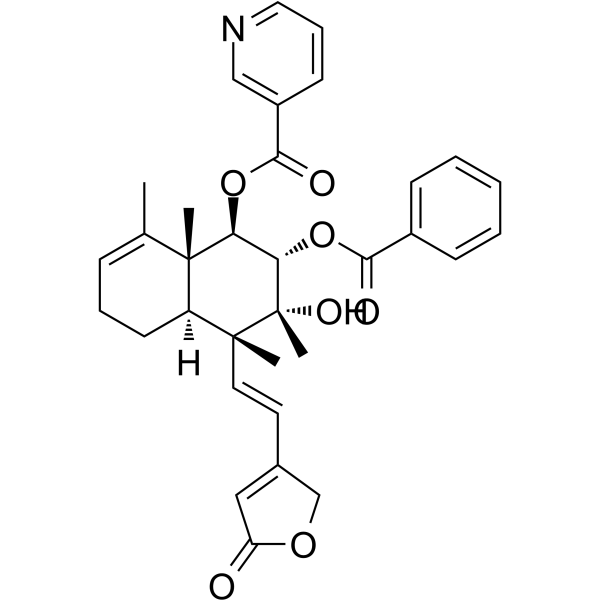
-
- HY-N12760
-
|
|
Others
|
Cancer
|
|
Lobophorin CR-2 is a lobophorin congener which induces UPR-associated gene expression, inhibits oral squamous cell carcinoma cell growth, and causes UPR-dependent cell death in MEF cells .
|
-
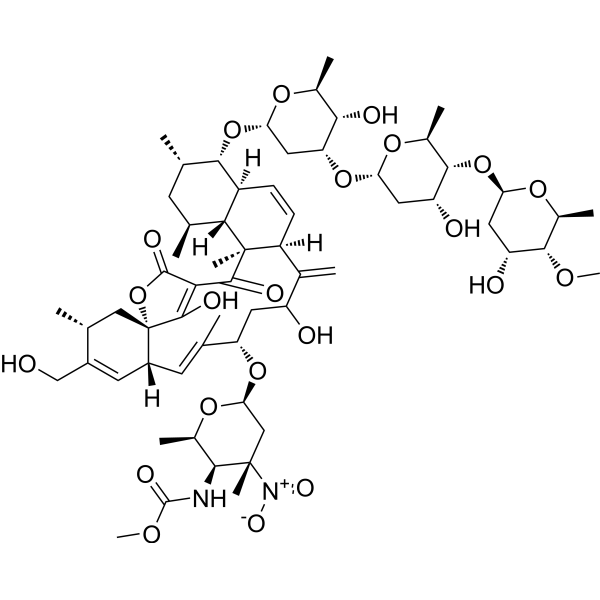
-
- HY-113264
-
|
|
Apoptosis
|
Cancer
|
|
PGD2 ethanolamide is the COX-2 dependent metabolite of Anandamide that induces apoptosis in colorectal carcinoma (CRC) cells .
|
-
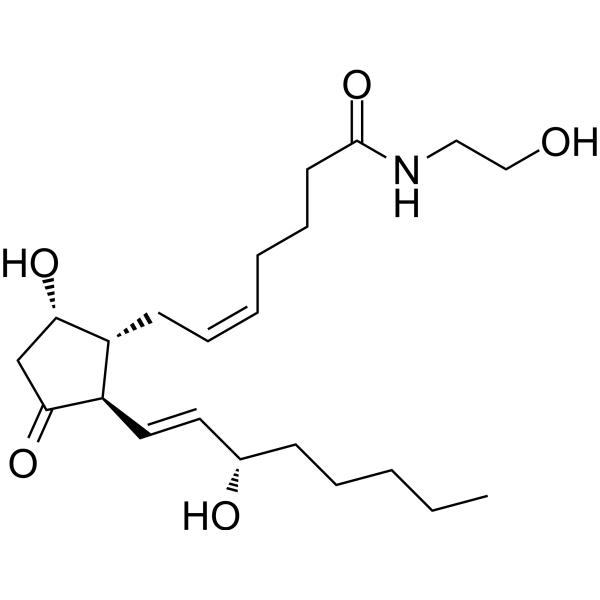
- HY-W661499
-
|
|
Phosphatase
|
Cancer
|
|
Orellanine is a fungal nephrotoxin. Orellanine is also a competitive inhibitor of alkaline phosphatase. Orellanine induces cell death in proximal tubular cells and in ccRCC cells. Orellanine can be used for research of clear cell renal cell carcinoma (ccRCC) .
|
-
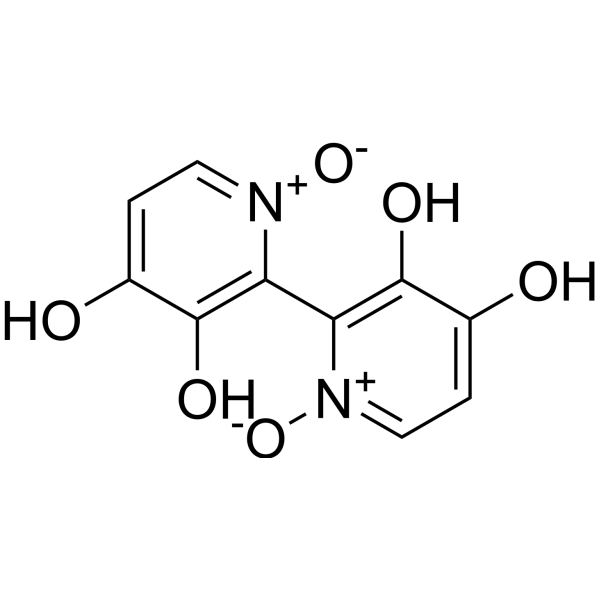
- HY-130352
-
|
|
Endogenous Metabolite
|
Cancer
|
|
9-SAHSA is a fatty acid ester of hydroxy fatty acids (FAHFAs). 9-SAHSA is a protective molecule to prevent colon carcinoma cells
from apoptotic cell death .
|
-
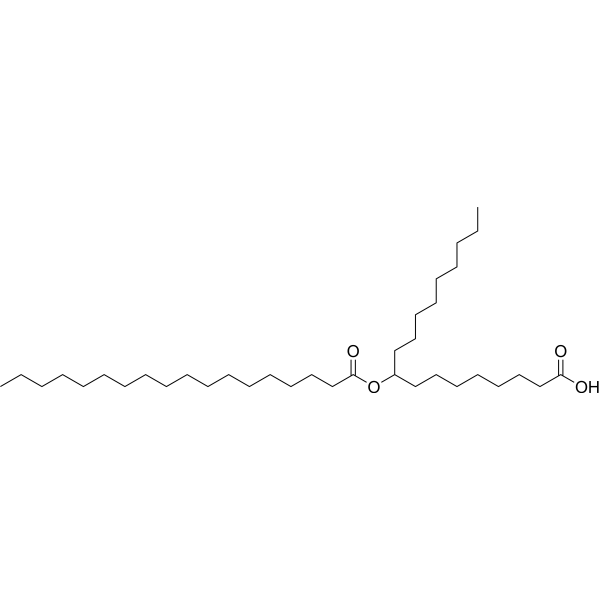
- HY-W008638
-
-
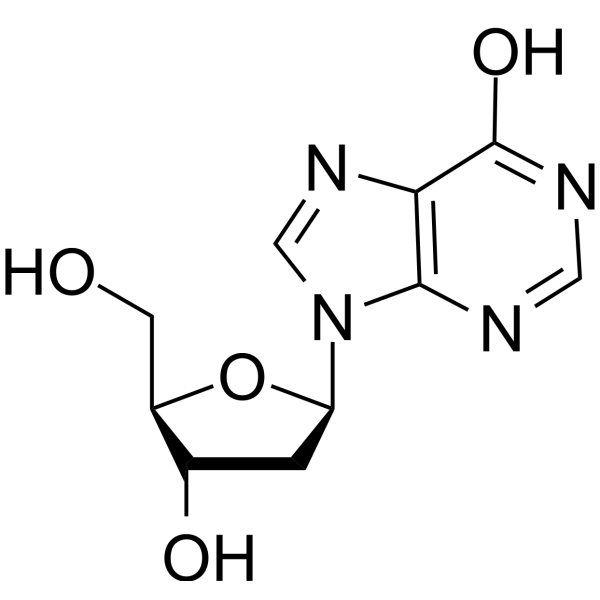
- HY-145836
-
|
|
FGFR
|
Cancer
|
|
FGFR4-IN-8 (Compound 7v) is an ATP-competitive, highly selective covalent inhibitor of wild-type and gatekeeper mutant FGFR4. FGFR4-IN-8 exhibits excellent potency against FGFR4, FGFR4 V550L, FGFR4 V550M and FGFR4 C552S with IC50s of 0.5, 0.25, 1.6, 931 nM, respectively. FGFR4-IN-8 exhibits potent antiproliferative activity against Hep3B hepatocellular carcinoma cells with the IC50 value of 29 nM. FGFR4-IN-8 demonstrates modest in vivo antitumor efficacy in nude mice bearing the Huh-7 xenograft model .
|
-
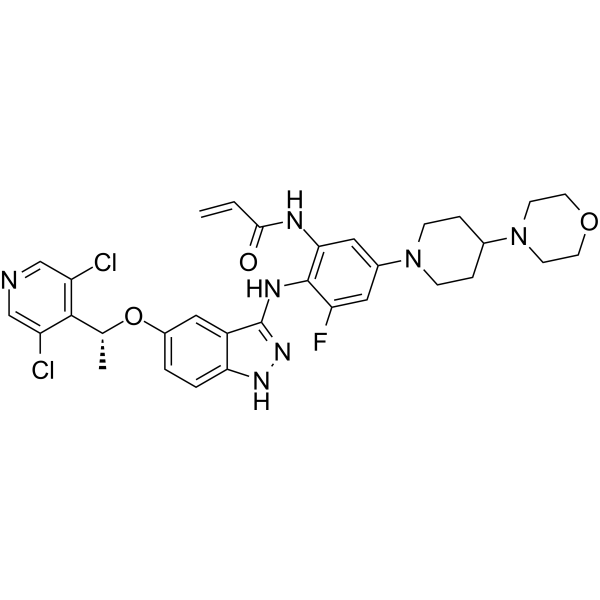
- HY-N0610A
-
|
3-Phenylacrylic acid; β-Phenylacrylic acid
|
|
|
|
Cinnamic acid has potential use in cancer intervention, with IC50s of 1-4.5 mM in glioblastoma, melanoma, prostate and lung carcinoma cells.
|
-
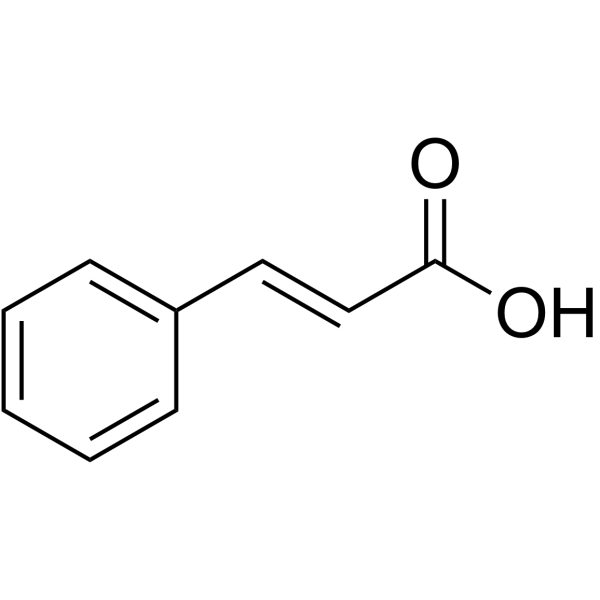
- HY-121278
-
-
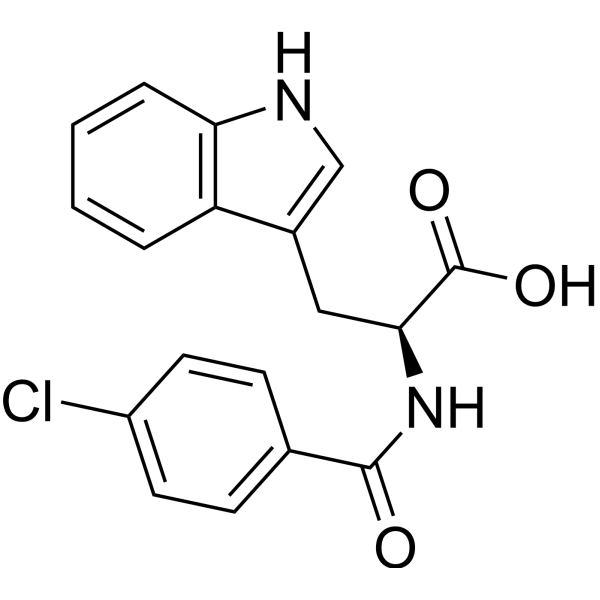
- HY-147852
-
|
|
Raf
|
Cancer
|
|
B-Raf IN 7 (compound 6a) is a potent B-Raf inhibitor, with an IC50 of 110.23 nM. B-Raf IN 7 exhibits antitumor activity against colon carcinoma (HCT-116), mammary gland (MCF-7), hepatocellular carcinoma (HEPG-2), human cervical carcinoma (Hela) and human prostate cancer (PC-3) cells, with IC50 values of 7.50, 9.87, 10.57, 11.63 and 12.83 µM .
|
-
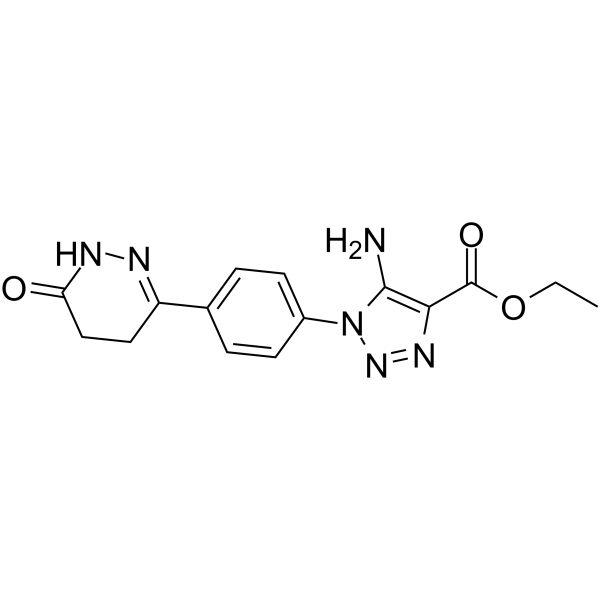
- HY-N4151
-
|
|
Others
|
Cancer
|
|
Chrysophanein is a chrysophanol glycoside from leaves and roots of Aloe hijazensis. Chrysophanein shows a moderate cytotoxic activity against several carcinoma cells lines .
|
-
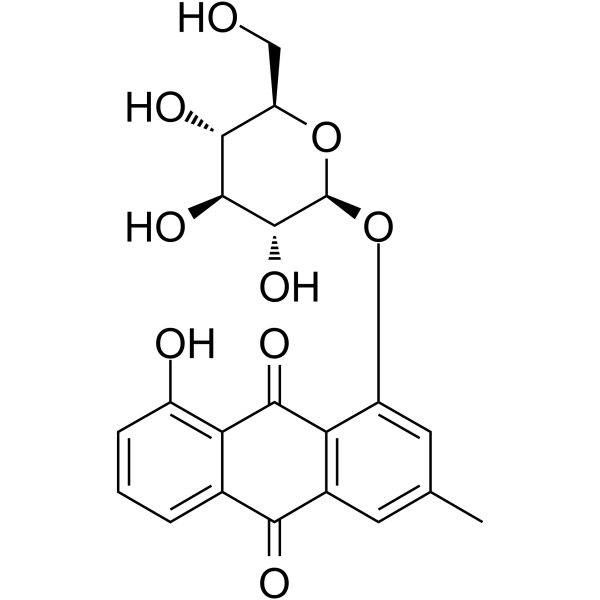
- HY-N1833
-
|
|
|
|
|
3'-Geranyl-3-prenyl-2',4',5,7-tetrahydroxyflavone displays cytotoxicity of 1.32, 3.92 and 5.22 μm against the human cervical carcinoma HeLa, human breast carcinoma MCF-7, and human hepatocarcinoma Hep3B cells .
|
-
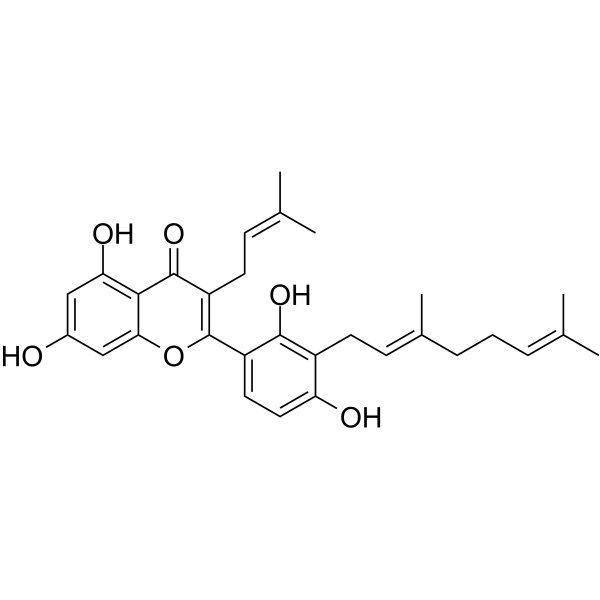
- HY-N11050
-
|
|
Apoptosis
|
Cancer
|
|
Xerophilusin B, an anticancer agent isolated from Isodon xerophilus, exhibits antiproliferative effects on esophageal squamous cell carcinoma (ESCC) cell lines, induces G2/M cell cycle arrest, and mediates apoptosis .
|
-
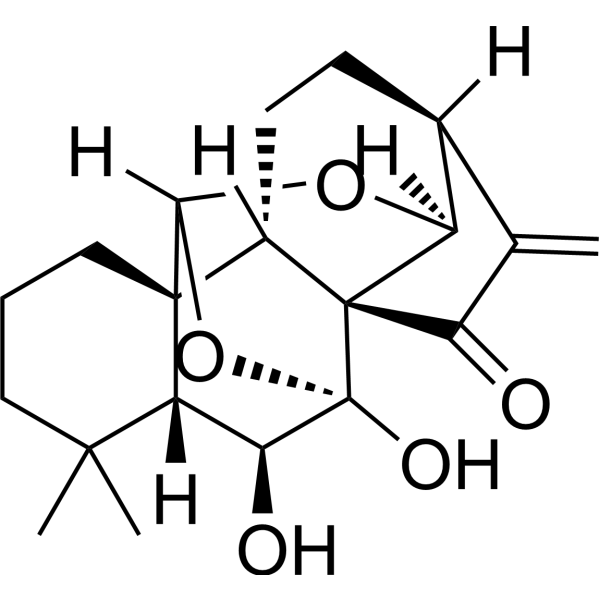
- HY-N10207
-
|
|
Endogenous Metabolite
|
Infection
Cancer
|
|
Penicitide A is a marine secondary metabolite. Penicitide A shows moderate cytotoxicity against pathogen A. brassicae and the human hepatocellular liver carcinoma (HepG2) cell line .
|
-
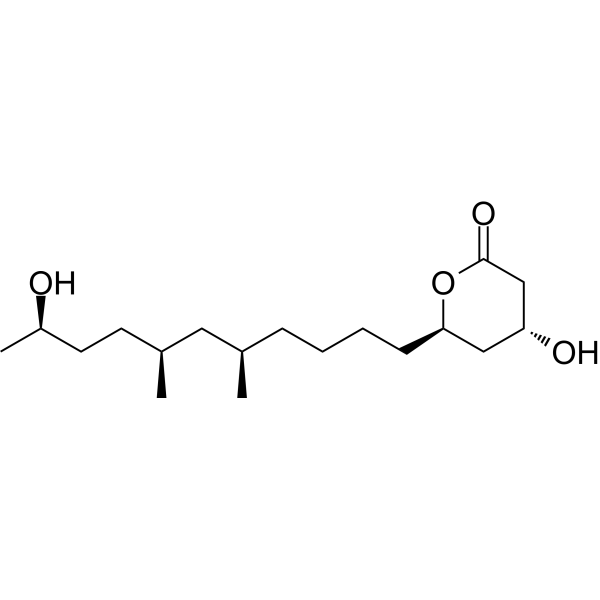
- HY-150538
-
|
|
STAT
Apoptosis
|
Cancer
|
|
STAT3-IN-12 is a potent STAT3 signal inhibitor that can inhibit IL-6 induced JAK/STAT3 signalling pathway activation. STAT3-IN-12 inhibits cancer cell growth, migration, and induce cell apoptosis as well as cycle arrest. STAT3-IN-12 can be used in cancer-related research, such as hepatocellular carcinoma (HCC) and oesophageal carcinoma .
|
-
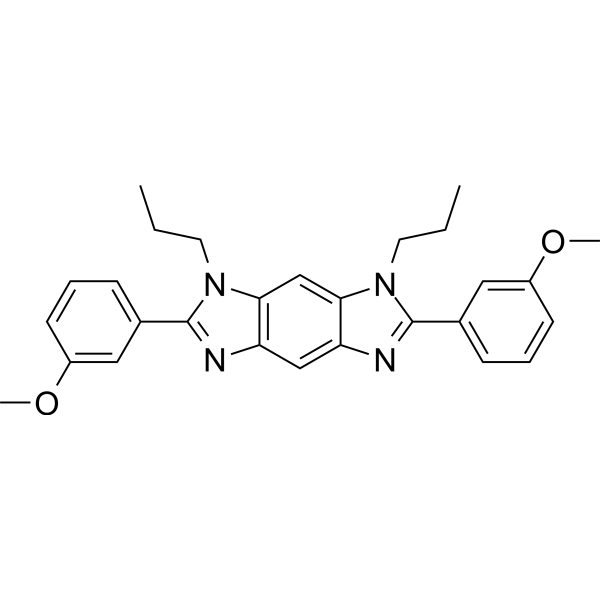
- HY-N10503
-
|
|
Tyrosinase
Ras
Raf
MAPKAPK2 (MK2)
Apoptosis
|
Cancer
|
|
Norartocarpetin is a tyrosinase inhibitor. Norartocarpetin has strong tyrosinase inhibitory activity with an IC50 value of 0.47 μM. Norartocarpetin as an antibrowning agent can be used for the research of food systems. Norartocarpetin also has a significant anticancer activity in lung carcinoma cells (NCI-H460) with an IC50 value of 22 μM. Norartocarpetin has antiproliferative effects are mediated via targeting Ras/Raf/MAPK signalling pathway, mitochondrial mediated apoptosis, S-phase cell cycle arrest and suppression of cell migration and invasion in human lung carcinoma cells .
|
-
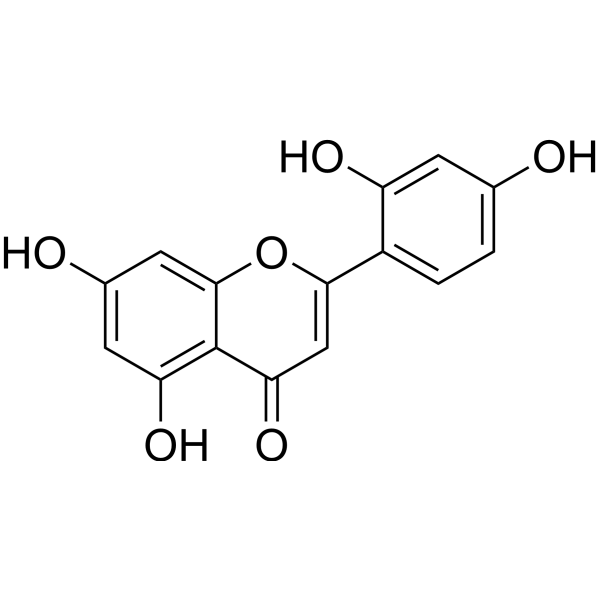
- HY-N0128
-
|
|
Apoptosis
|
Cancer
|
|
Sclareol is isolated from Salvia sclarea with anticarcinogenic activity. Sclareol shows strong cytotoxic activity against mouse leukemia (P-388), human epidermal carcinoma (KB) cells and human leukemia cell lines. Sclareol induces cell apoptosis .
|
-
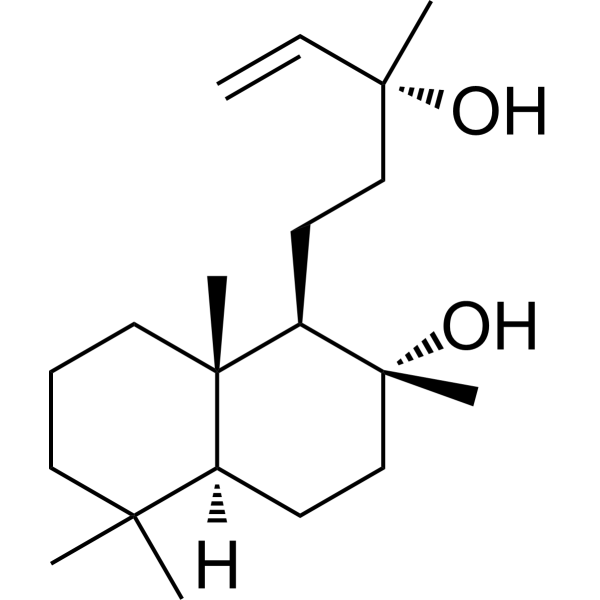
- HY-N8394
-
|
|
Others
|
Cancer
|
|
Eupatolide is an antitumor agent that can be isolated from Eupatorium formosanum. Eupatolide has cytotoxic activity and inhibits human epidermoid carcinoma of larynx cell growth in vitro .
|
-
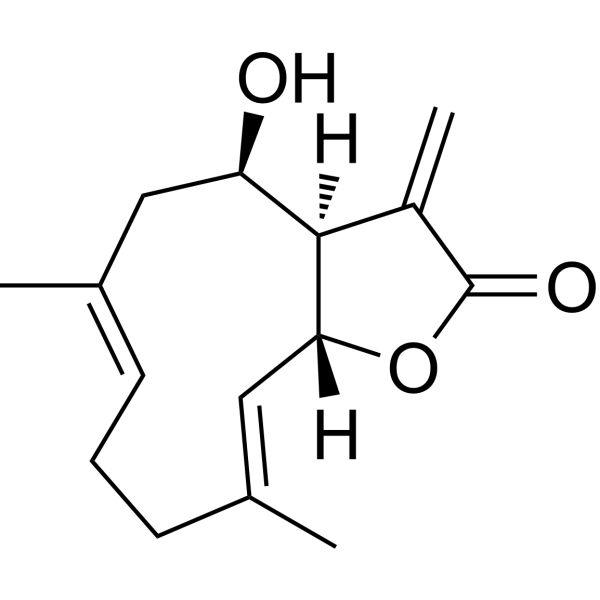
- HY-128366
-
|
|
Apoptosis
|
Cancer
|
|
Waltonitone is a ursane-type pentacyclic triterpene isolated from Gentian waltonii Burkill. Waltonitone significantly inhibits hepatocellular carcinoma cells growth and induces apoptosis in vitro and in vivo .
|
-
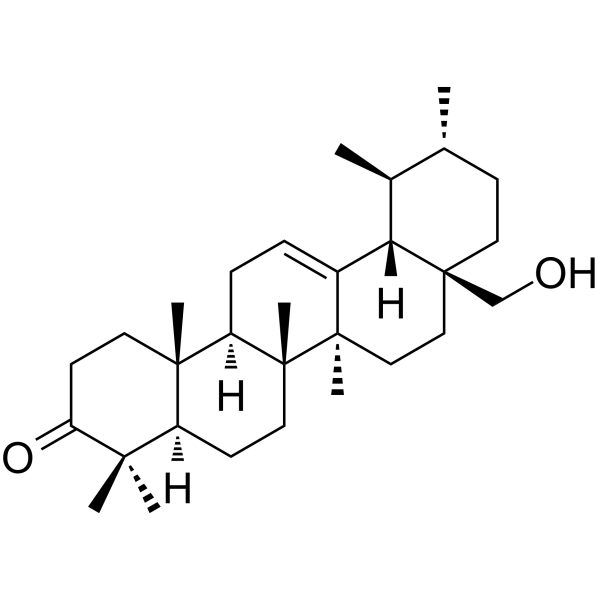
- HY-N8398
-
|
|
Apoptosis
|
Cancer
|
|
n-Octyl caffeate shows anti-cancer and apoptosis inducing activity in highly liver-metastatic murine colon 26-L5 carcinoma cell lines .
|
-
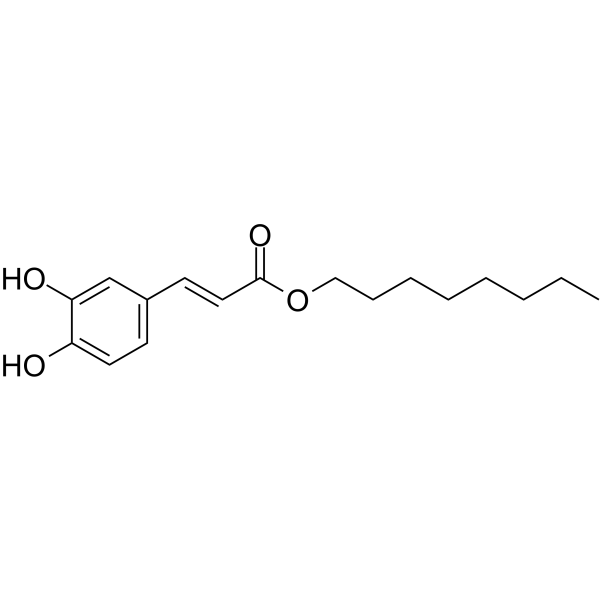
- HY-N7507A
-
|
|
Wnt
β-catenin
|
Cancer
|
|
Sempervirine is an alkaloid derived from Gelsemium elegans Benth.. Sempervirine inhibits the proliferation of hepatocellular carcinoma (HCC) cells and induces apoptosis by regulating Wnt/β-catenin pathway .
|
-
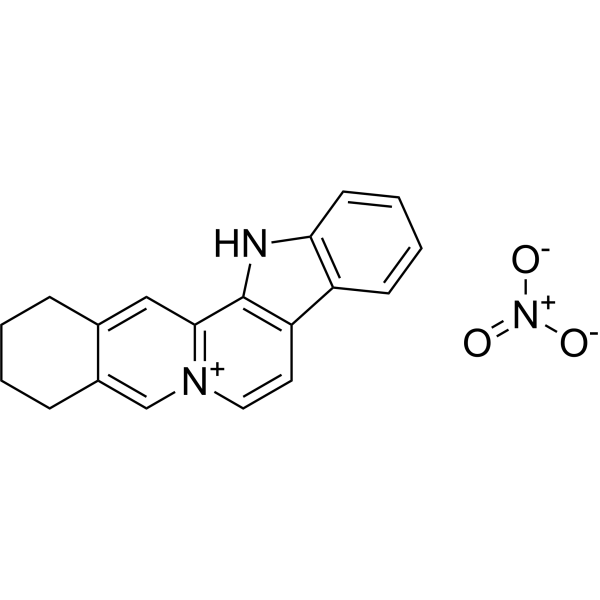
- HY-150190
-
|
|
Histone Methyltransferase
|
Cancer
|
|
F5446 (compound 1) is an inhibitor of SUV39H1 methyltransferase. F5446 induces human colon carcinoma cell death in a dose-dependent manner .
|
-
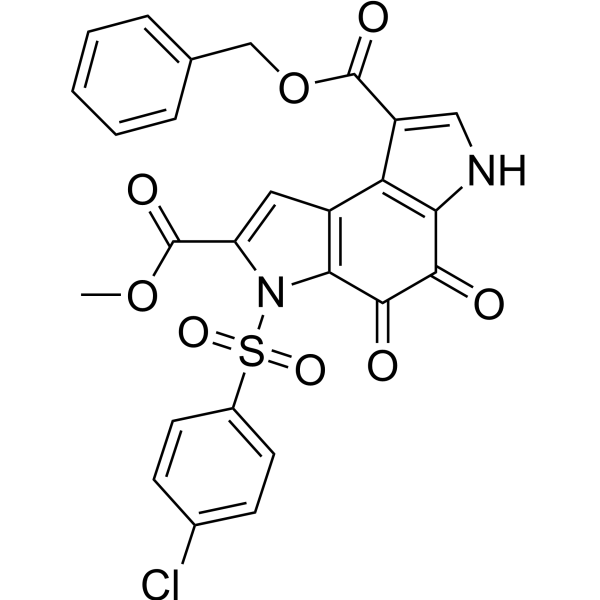
- HY-14653
-
|
TAC-101; Am 555S
|
RAR/RXR
Apoptosis
|
Cancer
|
|
Amsilarotene (TAC-101; Am 555S), an orally active synthetic retinoid, has selective affinity for retinoic acid receptor α (RAR-α) binding with Ki of 2.4, 400 nM for RAR-α and RAR-β. Amsilarotene induces the apoptotic of human gastric cancer, hepatocellular carcinoma and ovarian carcinoma cells. Amsilarotene can be used for the research of cancer .
|
-
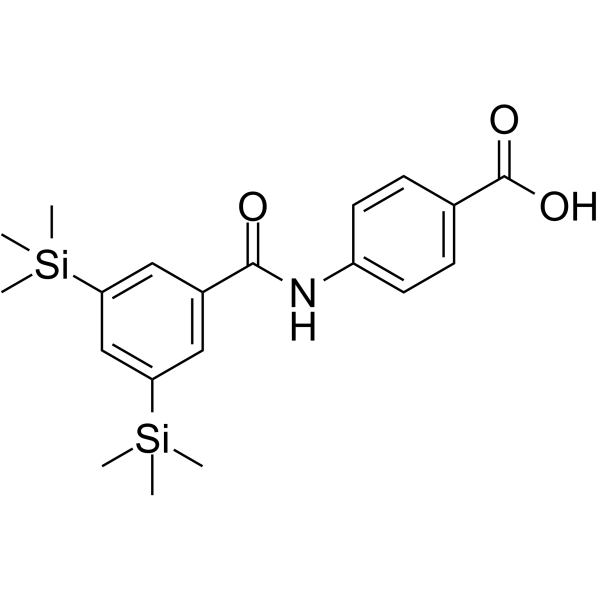
- HY-N1443
-
|
|
|
|
|
Demethylcantharidate disodium, an endogenous metabolite, induces apoptosis in hepatocellular carcinoma cells via ER stress. Demethylcantharidate disodium shows excellent anticancer activity against multiple types of cancer .
|
-
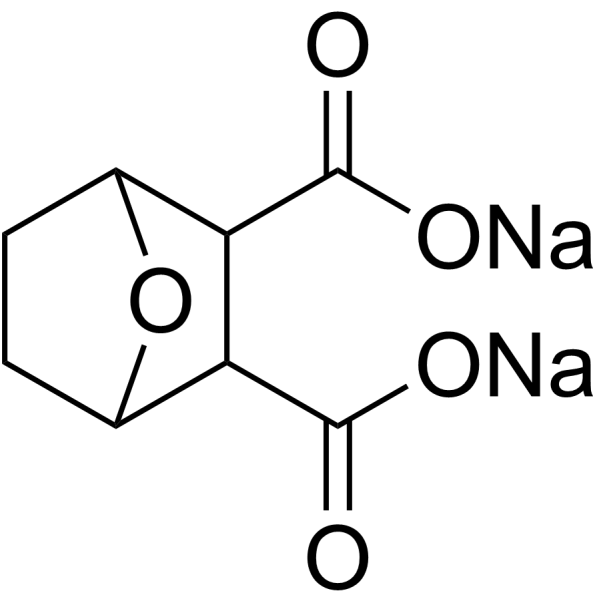
- HY-P99318
-
|
LT 1009; Anti-Human S1P Recombinant Antibody
|
LPL Receptor
|
Cancer
|
|
Sonepcizumab (LT 1009) is a fully human anti-S1P monoclonal antibody. Sonepcizumab has the potential for the research of metastatic renal cell carcinoma (mRCC) .
|
-

- HY-N6252
-
|
|
Others
|
Cancer
|
|
Gypenoside XLVI is one of the major dammarane-type triterpenoid saponins from Gynostamma pentaphallum . Gypenoside XLVI has a tetracyclic triterpene structure and possess potent non-small cell lung carcinoma A549 cell inhibitory activity .
|
-
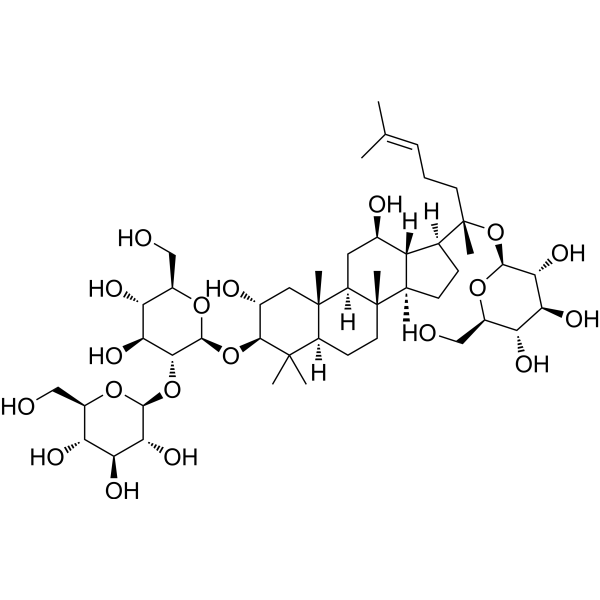
- HY-156382
-
|
|
Akt
ERK
E1/E2/E3 Enzyme
|
Cancer
|
|
SPOP-IN-1 is a selective SPOP E3 ubiquitin ligase inhibitor. SPOP-IN-1 leads to the accumulation of tumor suppressors PTEN and DUSP7 and decreased levels of phosphorylated AKT and ERK in clear-cell renal cell carcinoma .
|
-
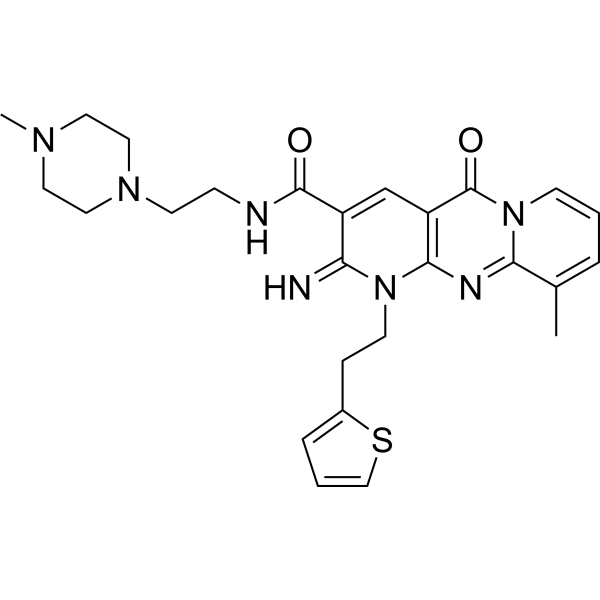
- HY-N4168B
-
|
|
Others
|
Cancer
|
|
Methyl chlorogenate is an antioxidant, and has radical scavenging activity. Methyl chlorogenate is an anti-inflammatory agent. Methyl chlorogenate also inhibits hepatocellular carcinoma (HCC) cell proliferation and metastasis .
|
-
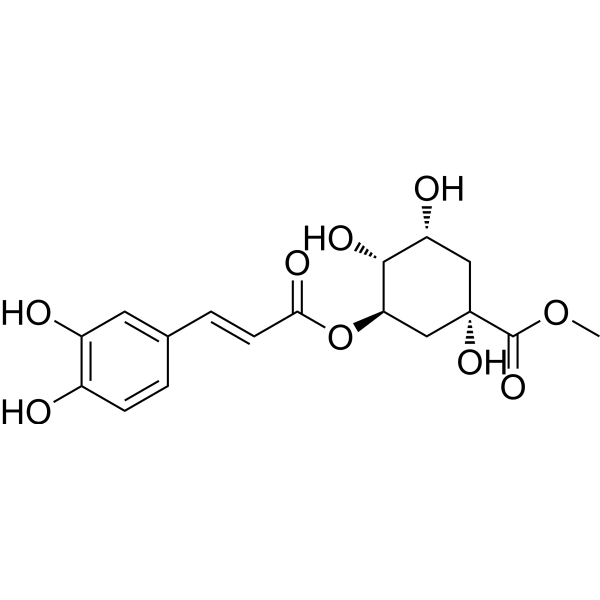
- HY-N12601
-
|
|
Apoptosis
|
Cancer
|
|
Diselaginellin B (compound 2) is a natural product isolated from Selaginella Pulvinata, which exhibits anti-proliferative, apoptosis-inducing and antimetastatic activities against human carcinoma hepatocellular cells .
|
-
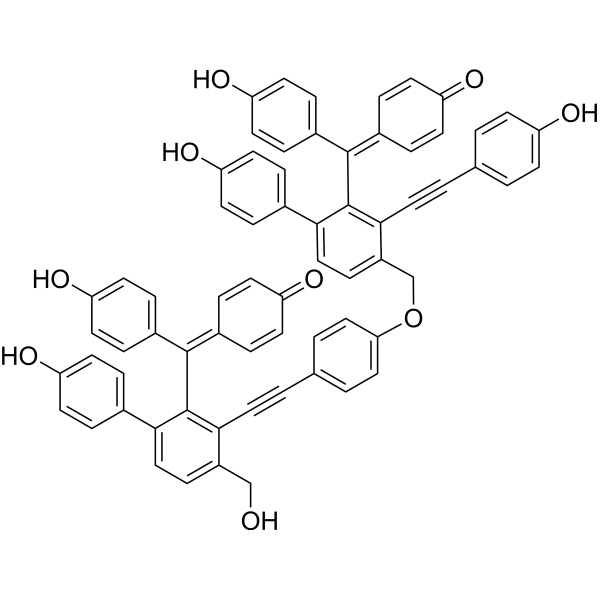
- HY-103257
-
|
NSC656158
|
Microtubule/Tubulin
|
Cancer
|
|
CHM-1, a microtubule-destabilizing agent, inhibits tubulin polymerization. CHM-1 is a potent and selective antimitotic antitumor activity against human hepatocellular carcinoma. CHM-1 induces growth inhibition and apoptosis via G2-M phase arrest in human hepatocellular carcinoma cells by activation of Cdc2 kinase activity .
|
-
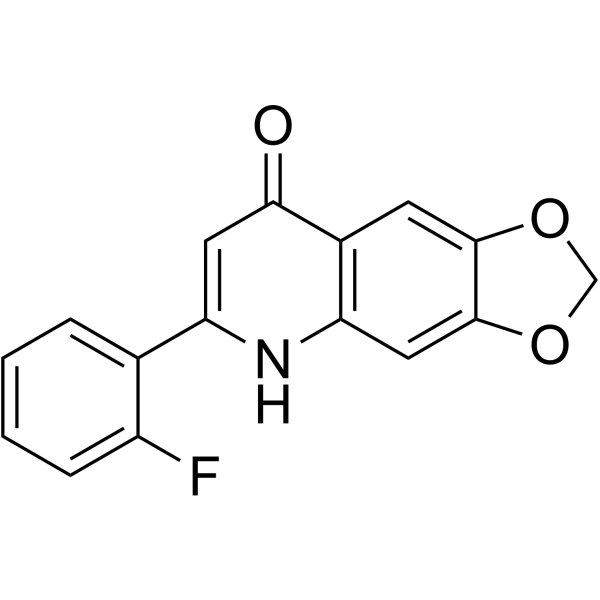
- HY-N6842
-
|
|
Others
|
Infection
Cancer
|
|
ArnicolideC is a sesquiterpene lactone isolated Centipeda minima . ArnicolideC exertes a cytotoxic effect on the panel of Nasopharyngeal carcinoma (NPC) cells, significantly inhibiting cell growth in a dose- and time- dependent manner. ArnicolideC also exhibits inhibitory effects on NPC proliferation .
|
-
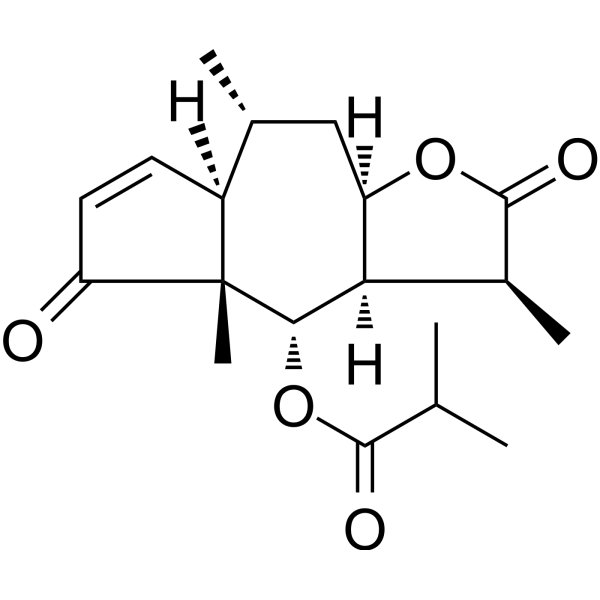
- HY-123901
-
|
|
Apoptosis
|
Cancer
|
|
Garcinone E is a natural xanthone found in the rind of the mangosteen fruit. Garcinone E induces apoptosis and inhibits cancer cell migration. Garcinone E has anticancer effects on different human cancer cell lines, including colorectal, breast, and hepatocellular carcinomas .
|
-
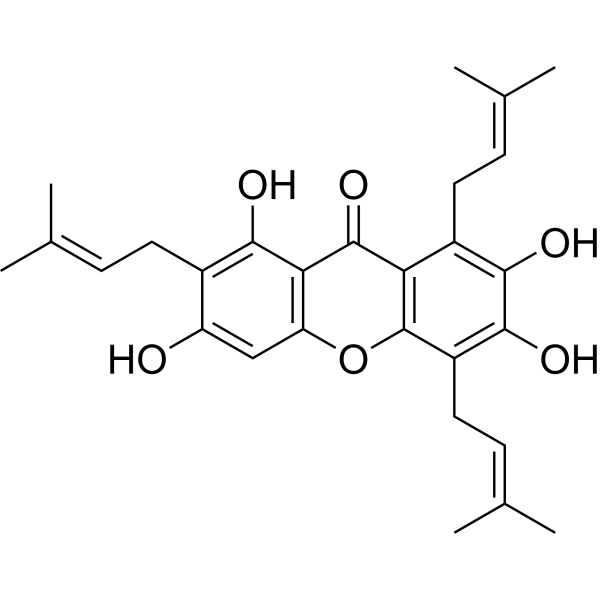
- HY-126324
-
|
|
Apoptosis
|
Cancer
|
|
IV-23 (Compound 20) is a potent Noxa mediated apoptosis inducer, and it is a promising anticancer agent with potential. IV-23 inhibits cell growths in vitro and in vivo, reduces colony formation, arrests cell cycle at M phase, and induces esophageal squamous cell carcinoma (ESCC) .
|
-
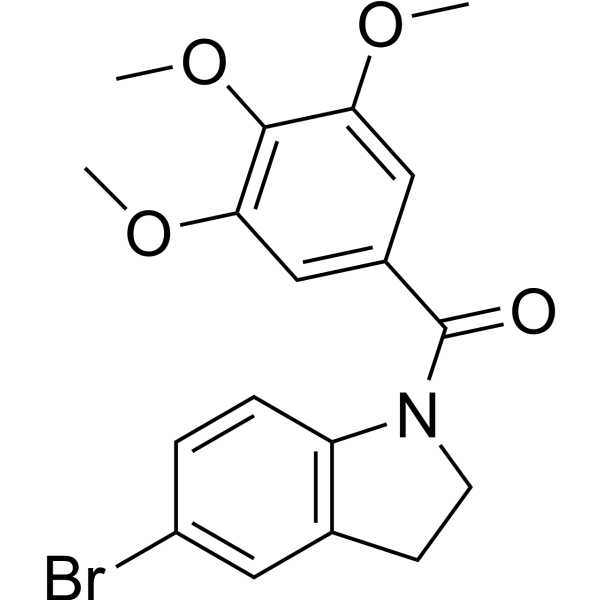
- HY-18728
-
|
|
GLUT
Autophagy
|
Cancer
|
|
STF-31 is a selective inhibitor of glucose transporter 1 (GLUT1), with an IC50 of 1 μM. STF-31 is also a NAMPT inhibitor. STF-31 inhibits glucose uptake in renal cell carcinoma (RCC) 4 cells .
|
-
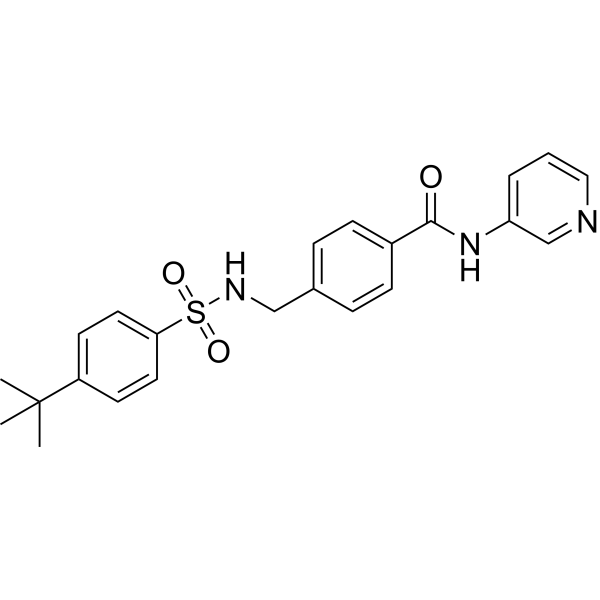
- HY-151934
-
|
|
Apoptosis
|
Cancer
|
|
ERK-IN-6 (compound 6g) is an potent anti-proliferation agent against esophageal squamous cell carcinoma (ESCC). ERK-IN-6 induces cell apoptosis via ERK pathway. ERK-IN-6 can be used for the research of ESCC .
|
-
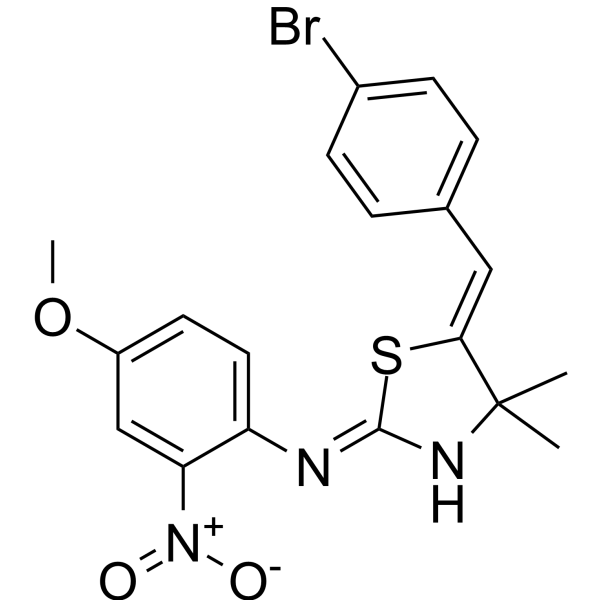
- HY-N10363
-
|
|
Others
|
Cancer
|
|
Pixinol, a natural glycoside, shows cytotoxicity against the human lung carcinoma GLC4 and adenocarcinoma COLO 320 cell lines (IC50=71 µM and 43 µM, respectively) .
|
-
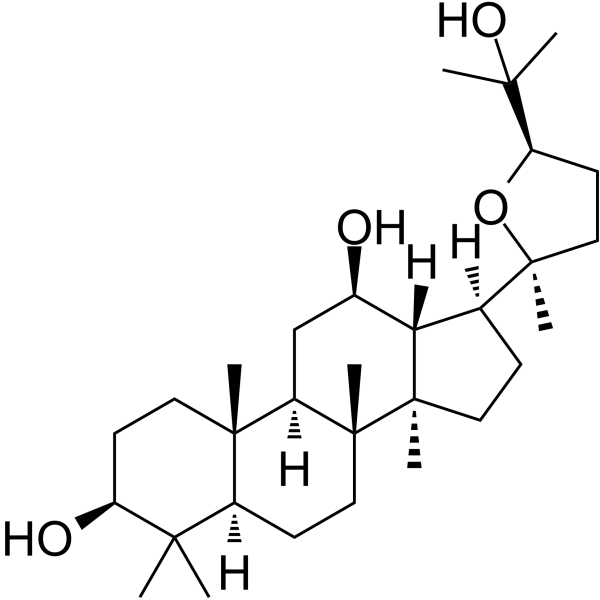
- HY-N3215
-
|
|
Others
|
Others
|
|
Nagilactone C is a diterpene dilactone compound isolated from Podocarpus neriifolius. Nagilactone C has potent antiproliferative activity against human fibrosarcoma and murine colon carcinoma tumor cell lines .
|
-
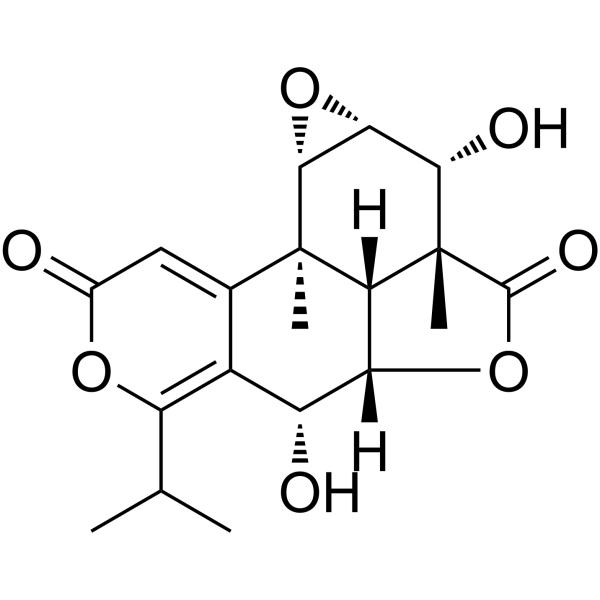
- HY-161251
-
|
|
Others
|
Cancer
|
|
SPOP-IN-2 (compound E1) is a Speckle-type POZ protein (SPOP) inhibitor with IC50 of 0.58 μM, which disrupt the SPOP-subtrate interaction and selectively inhibits proliferation of ccRCC .
|
-
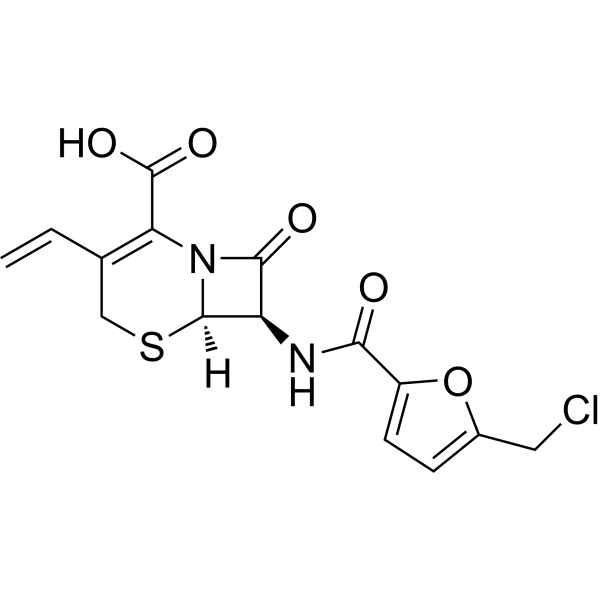
- HY-125443
-
|
|
Others
|
Cancer
|
|
Lucialdehydes A is a lanostante-type triterpene aldehydes, isolated from the fruiting bodies of Ganoderma lucidum. Lucialdehydes A shows cytotoxic effects on tumor cells, including Lewis lung carcinoma (LLC), T-47D, Sarcoma 180, and Meth-A tumor cell lines .
|
-
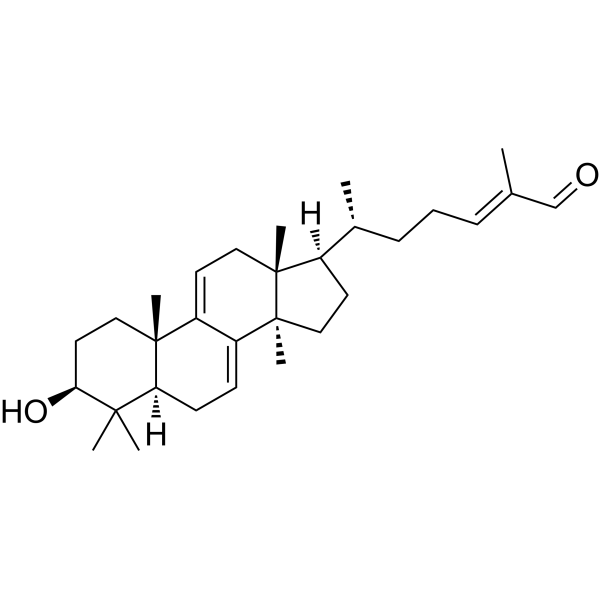
- HY-N0610AS
-
|
3-Phenylacrylic acid-d6; β-Phenylacrylic acid-d6
|
Endogenous Metabolite
|
Cancer
|
|
Cinnamic acid-d6 is the deuterium labeled Cinnamic acid. Cinnamic acid has potential use in cancer intervention, with IC50s of 1-4.5 mM in glioblastoma, melanoma, prostate and lung carcinoma cells.
|
-
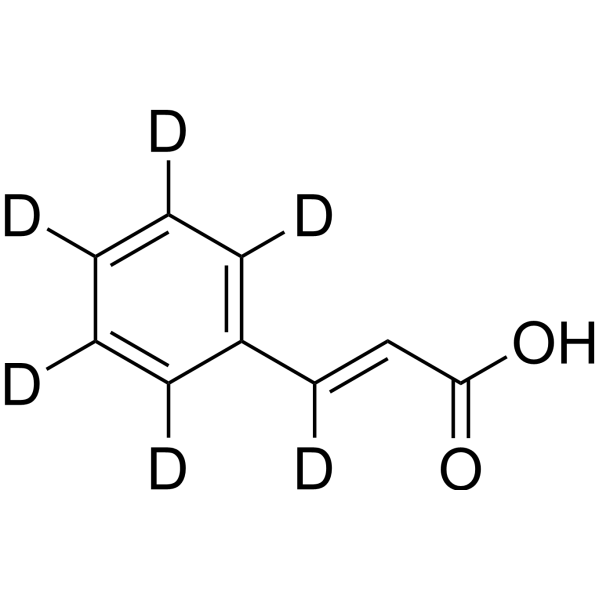
- HY-N1912
-
|
|
|
|
|
Andropanolide is a natural product that exerts cytotoxicity toward carcinoma cells and significantly inhibits the overproduction of nitric oxide (NO) in Lipopolysaccharides (HY-D1056) (LPS)-stimulated RAW264.7 macrophages .
|
-
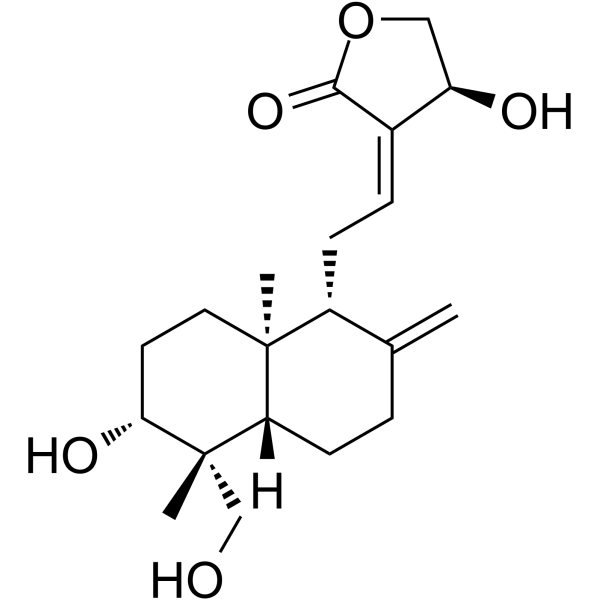
- HY-N2051
-
|
|
Apoptosis
|
Cancer
|
|
Zeylenone, a naturally occurring cyclohexene oxide, inhibits proliferation and induces apoptosis in cervical carcinoma cells via PI3K/AKT/mTOR and MAPK/ERK pathways .
|
-
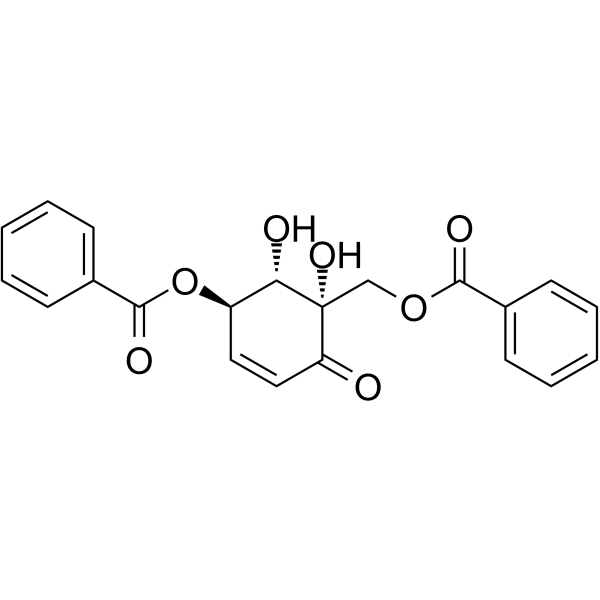
- HY-133100
-
|
Benzyl-ALA hydrochloride
|
Endogenous Metabolite
|
Cancer
|
|
5-ALA benzyl ester hydrochloride (Benzyl-ALA hydrochloride) is a protoporphyrin precursor used as a photodetection agent. 5-ALA benzyl ester hydrochloride induces protoporphyrin IX (PPIX) accumulation in colon carcinoma cell lines .
|
-
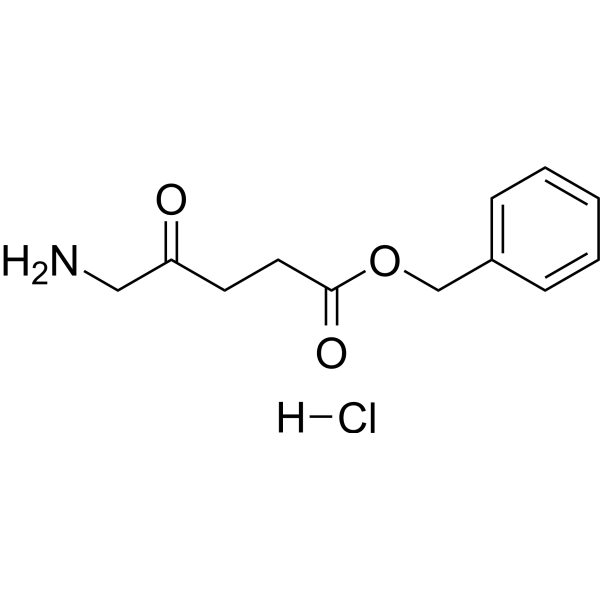
- HY-101519
-
|
ZBC 260
|
PROTACs
Epigenetic Reader Domain
Apoptosis
|
Cancer
|
|
BETd-260 (ZBC 260) is a PROTAC connected by ligands for Cereblon and BET, with as low as 30 pM against BRD4 protein in RS4;11 leukemia cell line . BETd-260 potently suppresses cell viability and robustly induces apoptosis in hepatocellular carcinoma (HCC) cells .
|
-
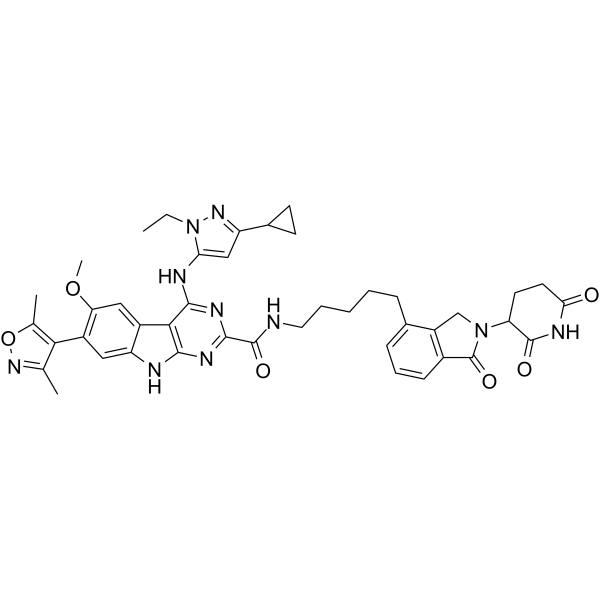
- HY-N10206
-
|
|
Endogenous Metabolite
|
Cancer
|
|
11-epi-Chaetomugilin I is a metabolite found in Chaetomium globosum. 11-epi-Chaetomugilin I exhibits significant cytotoxic activity against the murine P388 leukemia cell line, the human HL-60 leukemia cell line, the murine L1210 leukemia cell line, and the human KB epidermoid carcinoma cell line .
|
-
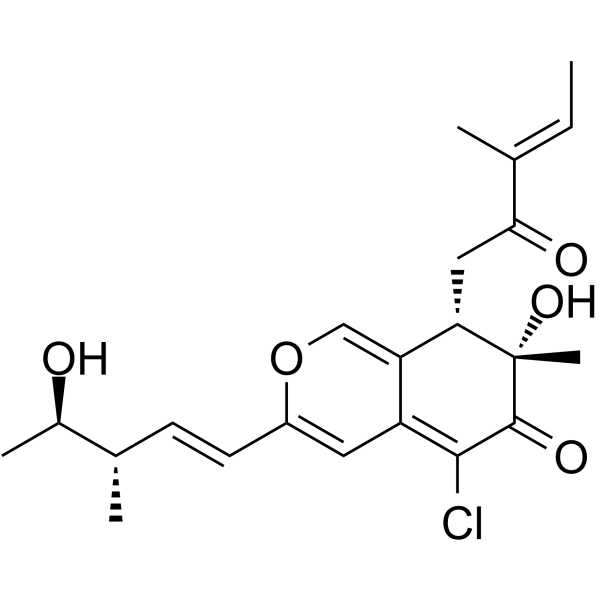
- HY-133168
-
|
|
TRP Channel
|
Cancer
|
|
Englerin A is a potent and selective activator of TRPC4 and TRPC5 channels, with EC50s of 11.2 and 7.6 nM, respectively. Englerin A can induce renal carcinoma cells death by elevated Ca 2+ influx and Ca 2+ cell overload .
|
-
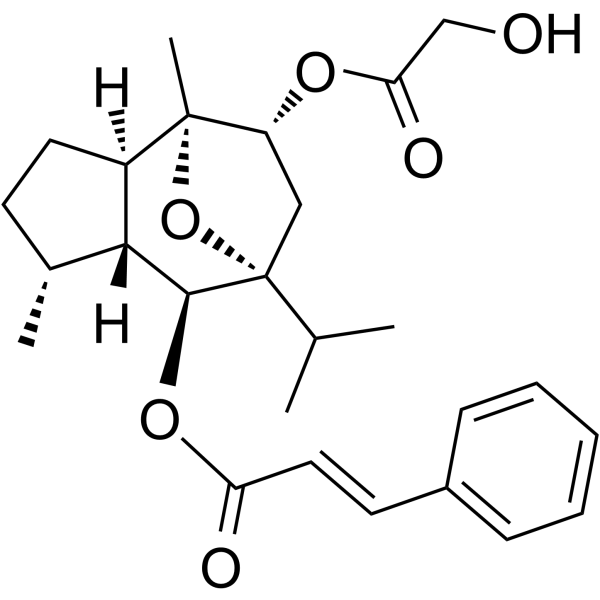
- HY-N11097
-
|
|
Apoptosis
HSV
HIV
|
Infection
Cancer
|
|
FK-3000 is a potent anti-tumor agent that inhibits the growth of carcinoma cells through apoptosis and induction cell cycle arrest. FK-3000 also exhibit antiviral effects against HSV-1 and HIV-1 .
|
-
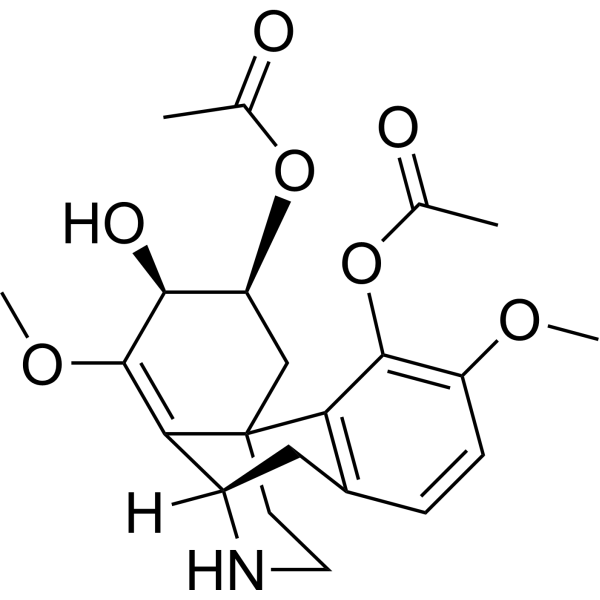
- HY-N2217
-
|
|
|
|
|
Rotundic acid, a triterpenoid obtained from Ilex rotunda Thunb., induces DNA damage and cell apoptosis in hepatocellular carcinoma through AKT/mTOR and MAPK Pathways. Rotundic acid possesses anti-inflammatory and cardio-protective abilities .
|
-
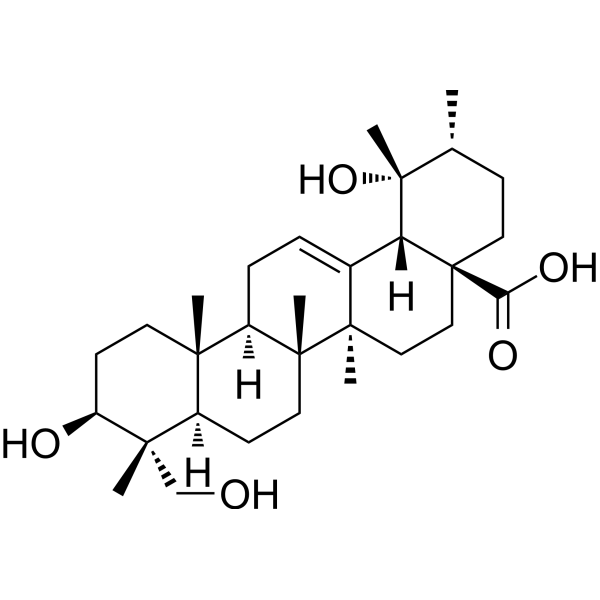
- HY-W342604
-
|
NAP
|
Endogenous Metabolite
|
Neurological Disease
Cancer
|
|
N-Acetylputrescine (NAP) is an endogenous metabolite widely present in animals and plants. N-Acetylputrescine can be used as a biomarker for lung squamous cell carcinoma (SCCL) and Parkinson's disease (PD) for disease diagnosis .
|
-
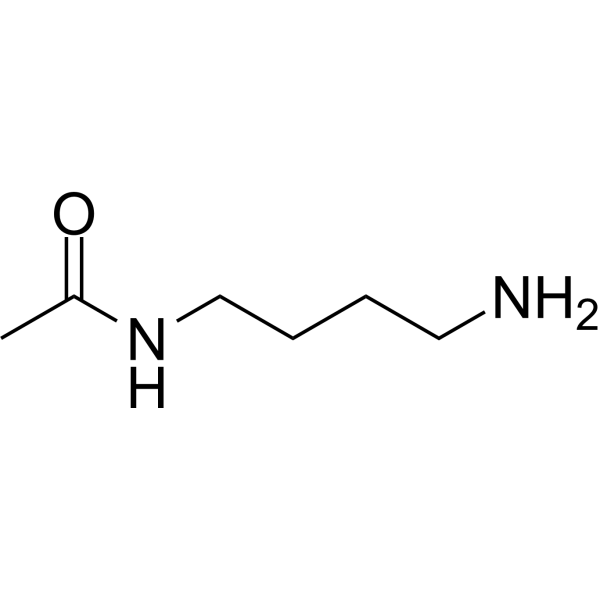
- HY-147853
-
|
|
Raf
|
Cancer
|
|
B-Raf IN 8 (compound 7g) is a potent B-Raf inhibitor, with an IC50 of 70.65 nM. B-Raf IN 8 exhibits antitumor activity against hepatocellular carcinoma (HEPG-2), colon carcinoma (HCT-116), mammary gland (MCF-7) and human prostate cancer (PC-3) cells, with IC50 values of 9.78, 13.78, 18.52 and 29.85 µM .
|
-
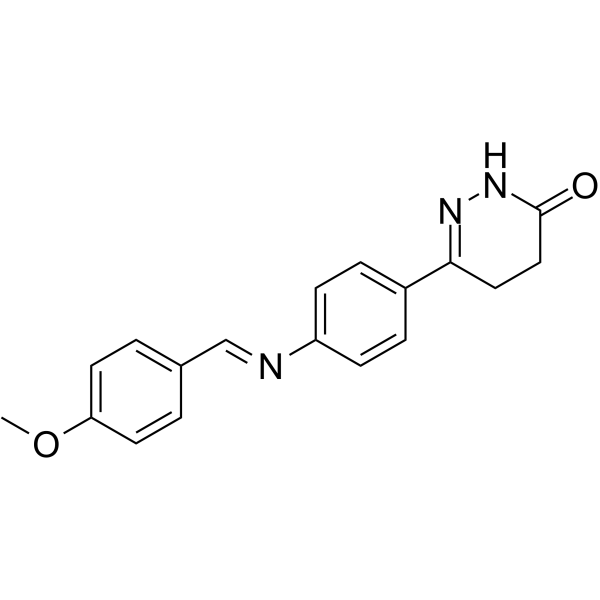
- HY-N0746
-
|
|
Others
|
Cancer
|
|
Oxysophocarpine is an alkaloid extracted from Sophora alopecuroides. Oxysophocarpine has neuroprotective and anti-nociceptive effects on the central and peripheral nervous systems . Oxysophocarpine inhibits the growth and metastasis of oral squamous cell carcinoma (OSCC) .
|
-
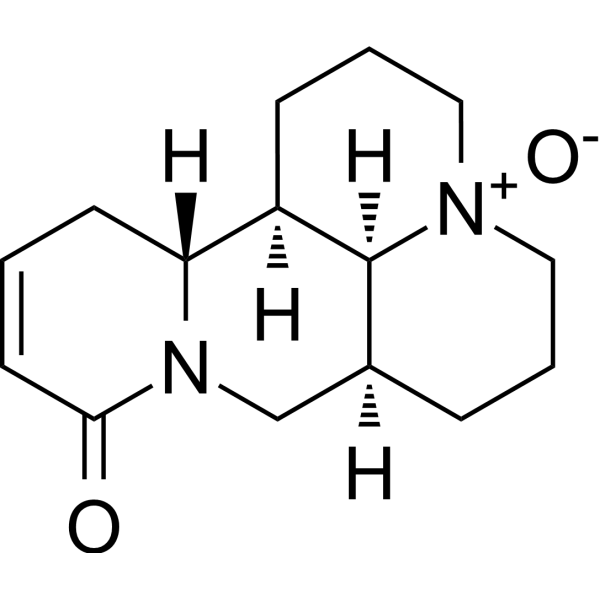
- HY-157528
-
|
|
Endogenous Metabolite
|
Cancer
|
|
CJ28 is a cortisol biosynthesis inhibitor that significantly inhibits basal and stimulated cortisol production in human adrenal carcinoma cell lines. CJ28 exhibits inhibitory effects by reducing steroidogenesis and de novo cholesterol biosynthesis .
|
-
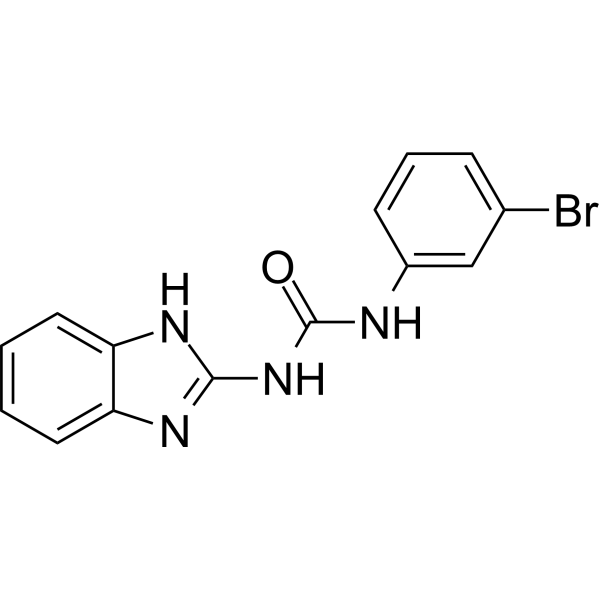
- HY-N3665
-
|
|
Tyrosinase
|
Cancer
|
|
Cyclocommunol is a prenylflavonoid with antityrosinase and antiplatelet activitie, can be solated from breadfruit. Cyclocommunol exerts anti-tumor activity and inhibits the growth of human hepatoma and gastric cancer cells with IC50 values between 16 and 80 µM. Cyclocommunol shows proapoptotic effect on oral squamous cell carcinoma (OSCC) .
|
-
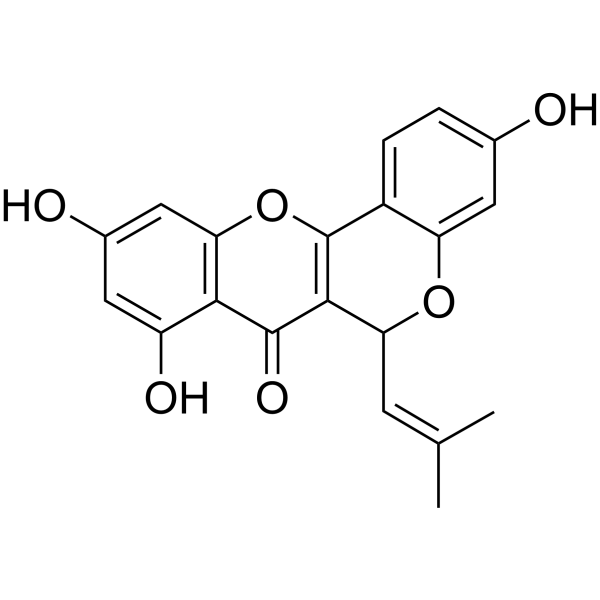
- HY-106014
-
|
|
DNA/RNA Synthesis
Nucleoside Antimetabolite/Analog
Apoptosis
|
Cancer
|
|
Tezacitabine is a cytostatic and cytotoxic antimetabolite and a nucleoside analogue. Tezacitabine irreversibly inhibits the ribonucleotide reductase and interferes with DNA replication and repair. Tezacitabine effectively induces cells apoptotic. Tezacitabine has the potential for leukemias and solid tumors (carcinomas) treatment .
|
-
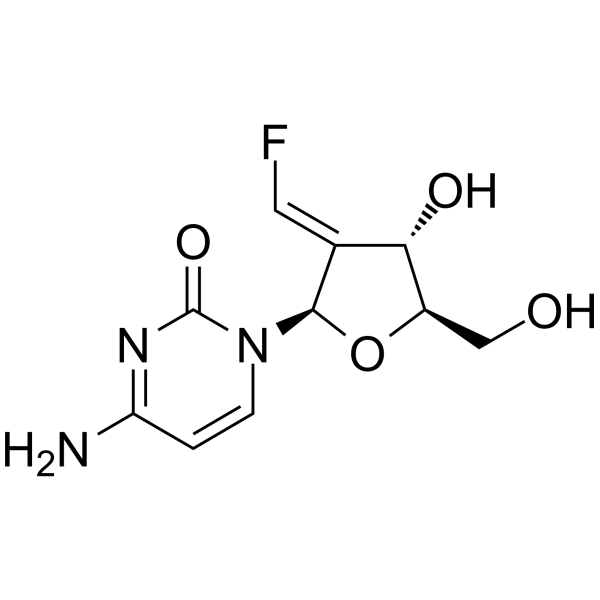
- HY-110339
-
|
|
ROCK
Apoptosis
|
Cancer
|
|
RKI 1447 dihydrochloride is a potent and selective ROCK inhibitor with IC50s of 14.5 and 6.2 nM for ROCK1 and ROCK2, respectively . RKI 1447 dihydrochloride suppresses colorectal carcinoma cell growth and promotes apoptosis .
|
-
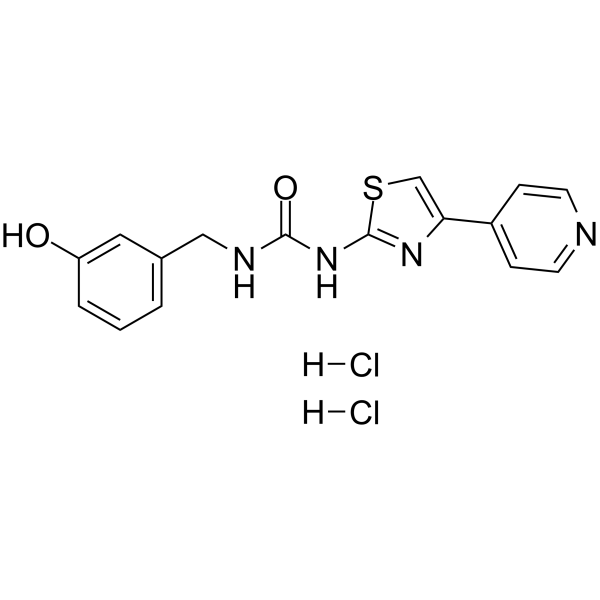
- HY-125840
-
|
PT2977; MK-6482
|
HIF/HIF Prolyl-Hydroxylase
|
Cancer
|
|
Belzutifan (PT2977) is an orally active and selective HIF-2α inhibitor with an IC50 of 9 nM. Belzutifan, as a second-generation HIF-2α inhibitor, increases potency and improves pharmacokinetic profile. Belzutifan is a potential treatment for clear cell renal cell carcinoma (ccRCC) .
|
-
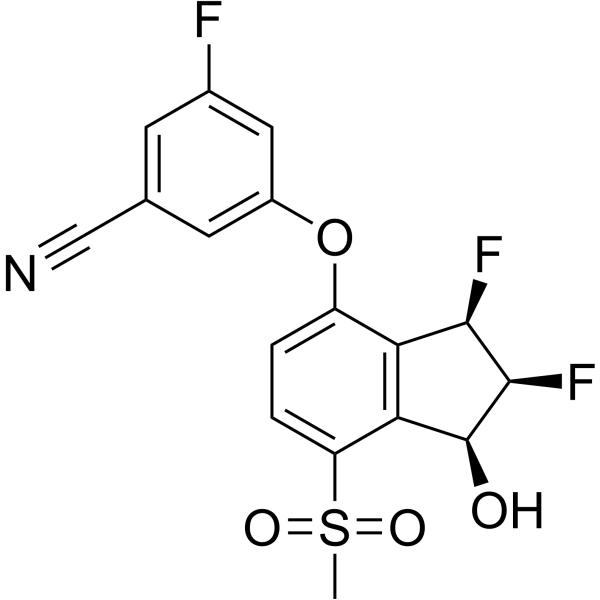
- HY-W013274
-
|
|
Histone Acetyltransferase
Apoptosis
|
Cancer
|
|
CPTH2 is a potent histone acetyltransferase (HAT) inhibitor. CPTH2 selectively inhibits the acetylation of histone H3 by Gcn5. CPTH2 induces apoptosis and decreases the invasiveness of a clear cell renal carcinoma (ccRCC) cell line through the inhibition of acetyltransferase p300 (KAT3B) .
|
-
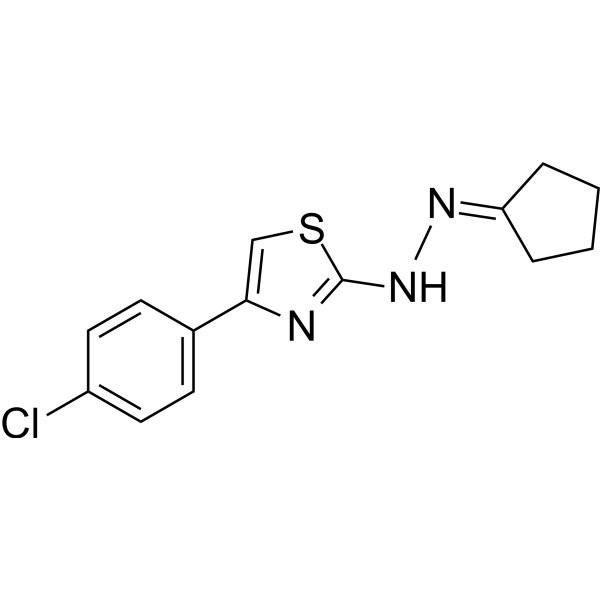
- HY-W013274A
-
|
|
Histone Acetyltransferase
Apoptosis
|
Cancer
|
|
CPTH2 hydrochloride is a potent histone acetyltransferase (HAT) inhibitor. CPTH2 hydrochloride selectively inhibits the acetylation of histone H3 by Gcn5. CPTH2 hydrochloride induces apoptosis and decreases the invasiveness of a clear cell renal carcinoma (ccRCC) cell line through the inhibition of acetyltransferase p300 (KAT3B) .
|
-
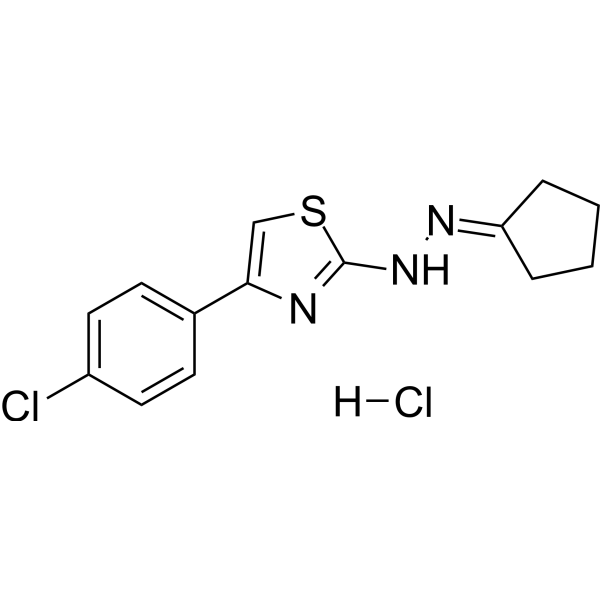
- HY-144614
-
|
|
DYRK
Apoptosis
|
Neurological Disease
Cancer
|
|
JH-XVII-10 is a potent, selective and orally active DYRK1A and DYRK1B inhibitor with IC50s of 3 nM and 5 nM for DYRK1A and DYRK1B, respectively. JH-XVII-10 shows antitumor efficacy in neck squamous cell carcinoma (HNSCC) cell lines .
|
-
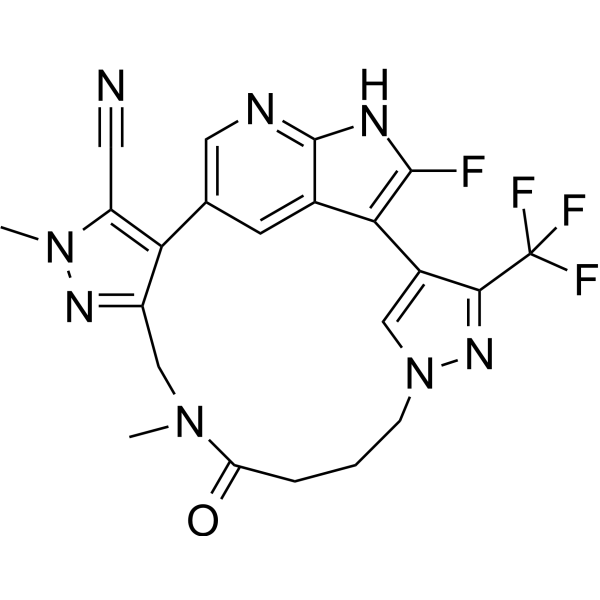
- HY-131649
-
|
|
Others
|
Cancer
|
|
Compound C108 is a G3BP2 inhibitor. Compound C108 also targeted stress granule-associated proteins and Gtpase-activating protein (SH3 domain) binding protein 2. Compound C108 potently inhibits esophageal squamous cell carcinoma (ESCC) cell metastasis .
|
-
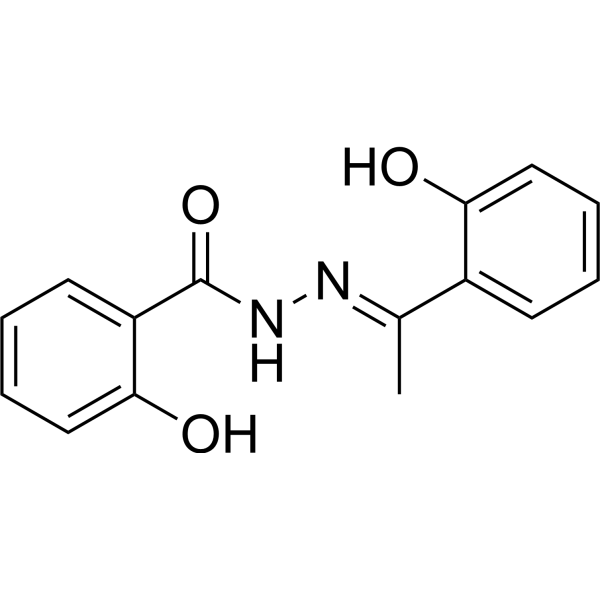
- HY-121123
-
|
2-Aminoadamantane-2-carboxylic acid
|
Aminopeptidase
|
Cancer
|
|
Adamantanine (2-Aminoadamantane-2-carboxylic acid) inhibits the transport of methionine (Ki is 0.76 mM) and leucine into Ehrlich ascites carcinoma cells. Adamantanine inhibits proliferation of P388 lymphocytic leukemia cells with an IC50 of >1 mM. Adamantanine inhibits the leucine aminopeptidase with an I/S0.5 of 10.5 .
|
-
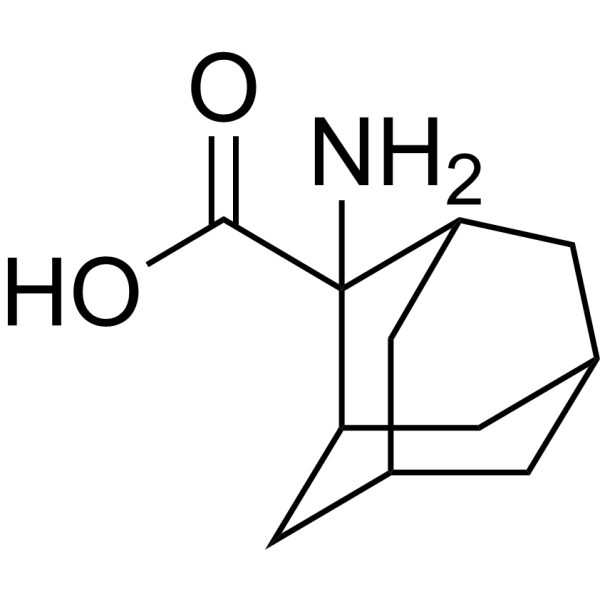
- HY-111208
-
|
|
Phospholipase
|
Cancer
|
|
CCT129957 is an indole derivative and a potent phospholipase C-γ (PLC-γ) inhibitor with an IC50 of ~3 μM and a GC50 of 15 μM. CCT129957 inhibits Ca 2+ release in squamous carcinoma cells at ~15 μM .
|
-
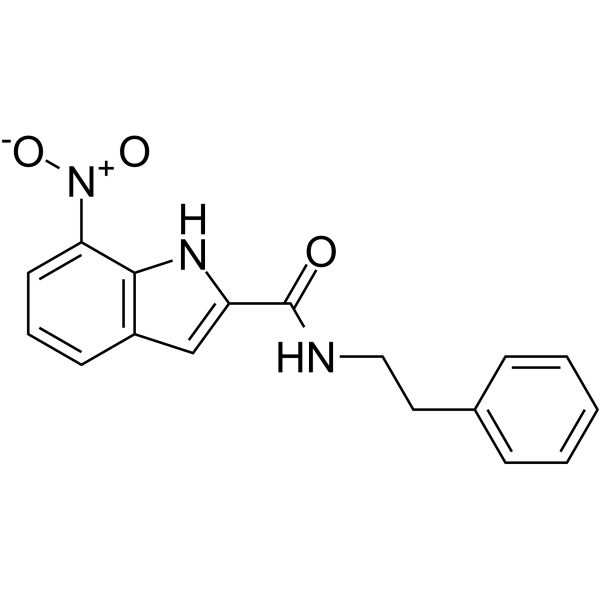
- HY-N11438
-
|
|
Estrogen Receptor/ERR
|
Cancer
|
|
3'-Hydroxymirificin (compound 3) is a naural compound that can be isolated from Pueraria lobata roots. 3'-Hydroxymirificin (compound 3) possesses estrogenic activity and anti-proliferation of MCF-7 human breast carcinoma cells .
|
-
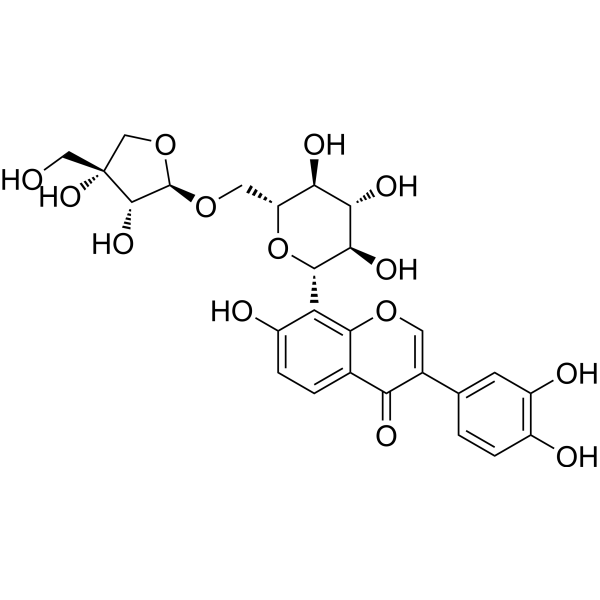
- HY-103706
-
|
|
Autophagy
Apoptosis
|
Cancer
|
|
ROC-325 is a potent and orally active autophagy inhibitor with a strong anticancer activity. ROC-325 induces the deacidification of lysosomes, accumulation of autophagosomes, and disrupted autophagic flux. ROC-325 also induces renal cell carcinoma apoptosis .
|
-
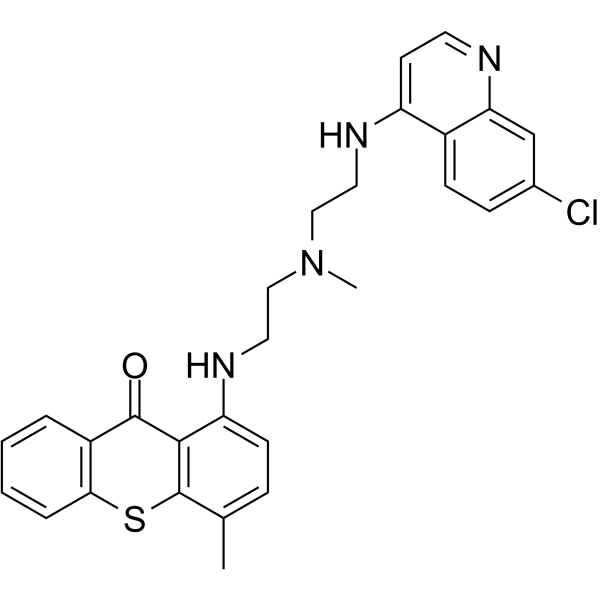
- HY-P2508
-
|
|
Mucin
|
Cancer
|
|
MUC1, mucin core is the region of the MUC1 mucin core. MUC1 is a type I transmembrane glycoprotein, and is overexpressed and aberrantly glycosylated in carcinoma cells. MUC1, mucin core protein binds to domain 1 of ICAM-1 .
|
-

- HY-W029411
-
|
|
Others
|
Cancer
|
|
4-(Benzo[d]oxazol-2-yl)aniline is a potent antitumor agent. 4-(Benzo[d]oxazol-2-yl)aniline has inhibitory activity against mammary carcinoma cell lines .
|
-
![4-(Benzo[d]oxazol-2-yl)aniline](//file.medchemexpress.com/product_pic/hy-w029411.gif)
- HY-132177
-
|
EC 3.2.1.51; FUC
|
Others
|
Cancer
|
|
α-L-Fucosidase, Microorganism (EC 3.2.1.51) is an enzyme that catalyzes the chemical reaction. Serum activity of α-L-Fucosidase, Microorganism, a lysosomal enzyme present in all mammalian cells, has been proposed as a marker of hepatocellular carcinoma (HCC) .
|
-
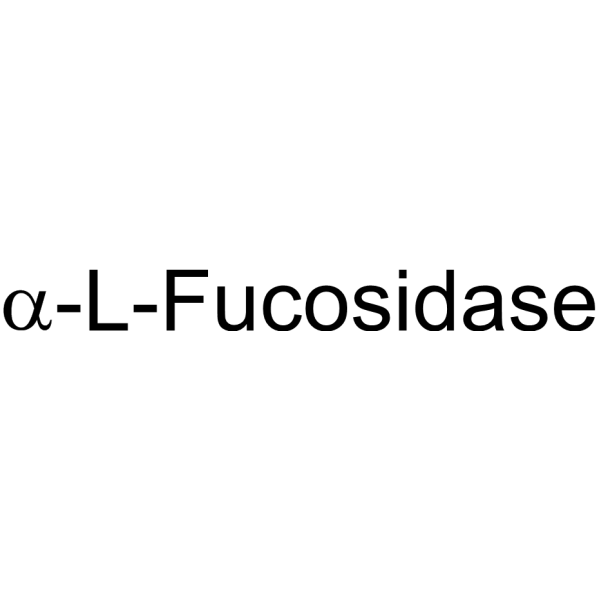
- HY-N8441
-
|
17β-Neriifolin
|
Atg8/LC3
Na+/K+ ATPase
Apoptosis
Beclin1
|
Inflammation/Immunology
Cancer
|
|
Neriifolin, a CNS-penetrating cardiac glycoside, is an inhibitor of the Na +, K +-ATPase. Neriifolin can target beclin 1, inhibits the formation of LC3-associated phagosomes and ameliorates experimental autoimmune encephalomyelitis (EAE) development. Neriifolin induces cell cycle arrest and apoptosis in human hepatocellular carcinoma HepG2 cells [2.
|
-
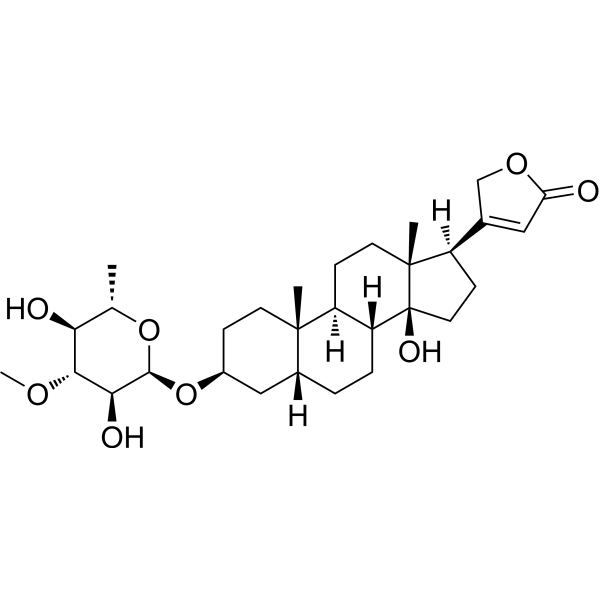
- HY-107408
-
|
|
Hedgehog
|
Cancer
|
|
SANT 2 is a potent antagonist of Hh-signaling pathway. Hedgehog (Hh) signaling plays an important role in cell signaling of embryonic development and adult tissue homeostasis. SANT 2 has the potential for the research of several malignancies including Gorlin syndrome (a disorder predisposing to basal cell carcinoma, medulloblastoma and rhabdomyosarcoma), prostate, pancreatic and breast cancers .
|
-
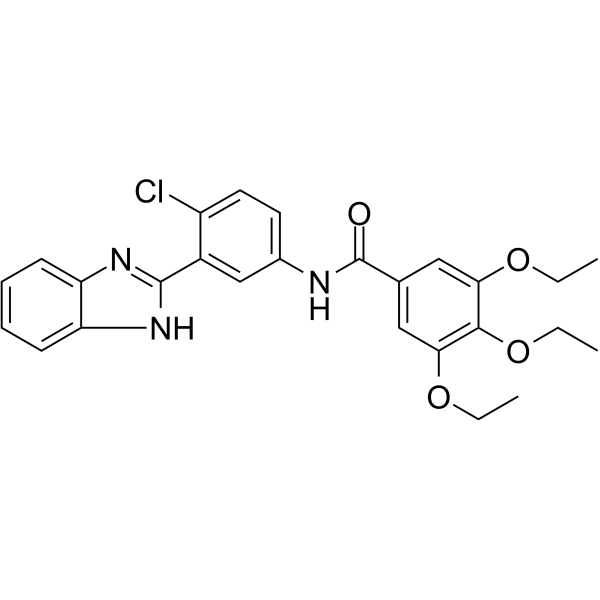
- HY-151618
-
|
|
Apoptosis
|
Cancer
|
|
Antitumor agent-79 shows good antiproliferative activities against hepatocellular carcinoma and breast cancer cells with IC50 values of 0.7-7.9 μM. Antitumor agent-79 induces cancer cells apoptosis and shows in vivo antitumor effects. Antitumor agent-79 can be used for the research of cancer .
|
-
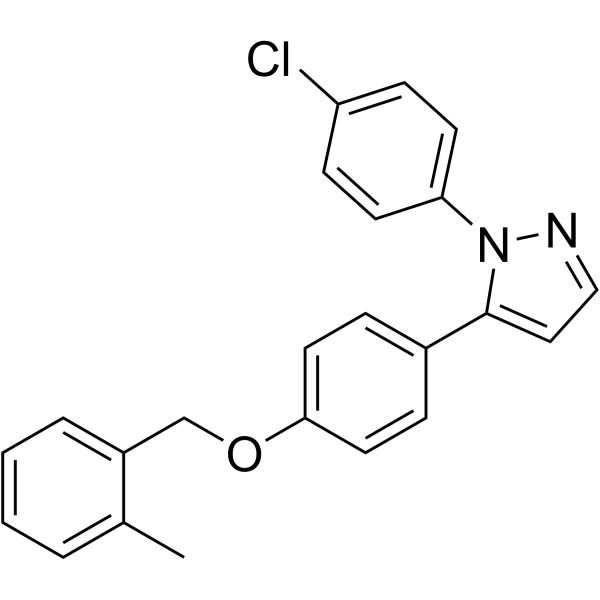
- HY-122502
-
|
|
DNA/RNA Synthesis
|
Cancer
|
|
Pyrazofurin, a pyrimidine nucleoside analogue with antineoplastic activity, inhibits cell proliferation and DNA synthesis in cells by inhibiting uridine 5'-phosphate (UMP) synthase . Pyrazofurin is an active, sensitive orotate-phosphoribosyltransferase inhibitor with IC50s between 0.06-0.37 µM in the three squamous cell carcinoma (SCC) cell lines Hep-2, HNSCC-14B and HNSCC-14C .
|
-
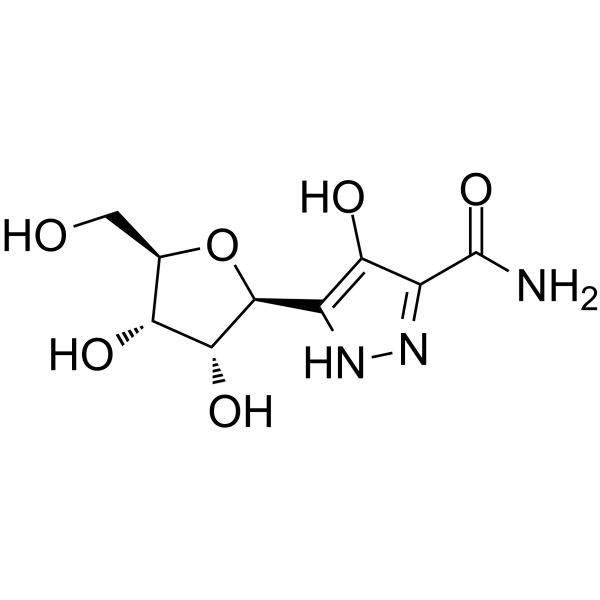
- HY-B1559
-
|
|
|
|
|
Allethrin, a pyrethroid insecticide is a major mosquito repellent agent. Allethrin induces oxidative stress, apoptosis and calcium release in rat testicular carcinoma cells (LC540). Allethrin induces BCL-2, caspase-3 activation and release of intracellular calcium .
|
-
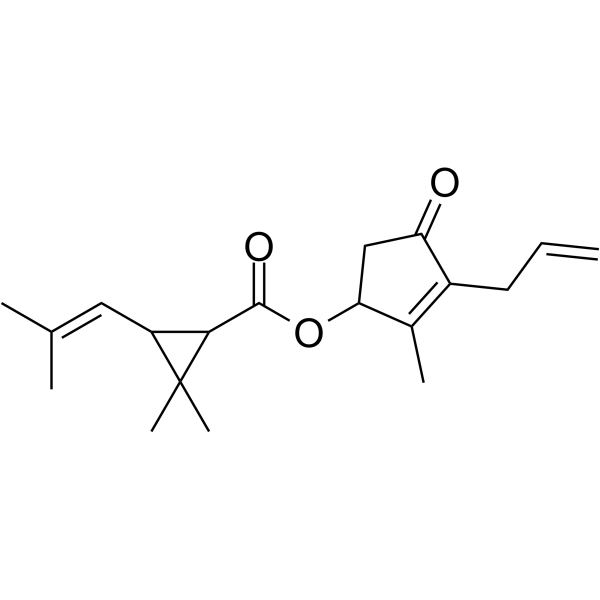
- HY-147756
-
|
|
NAMPT
|
Cancer
|
|
Nampt-IN-7 (compound GF8) is a potent NAMPT inhibitor, with an IC50 of 7.31 μM. Nampt-IN-7 also displays cytotoxic activity against human HepG2 hepatocellular carcinoma cell line with an IC50 of 24.28 μM .
|
-
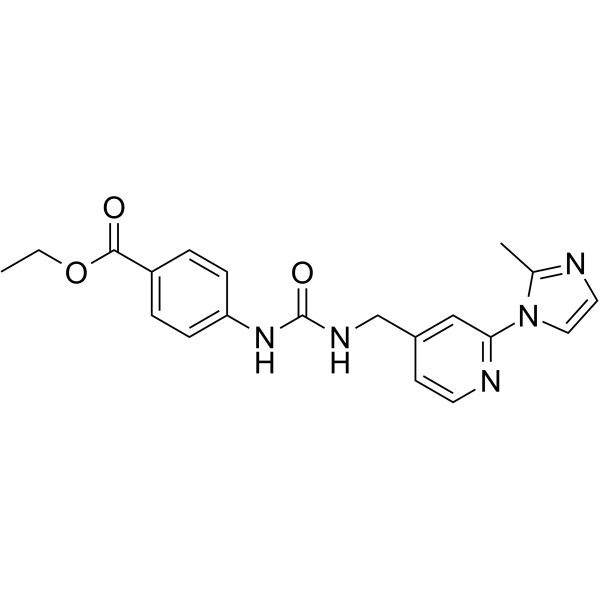
- HY-N0530
-
|
Dryocrassin
|
Apoptosis
Influenza Virus
|
Cancer
|
|
Dryocrassin ABBA (Dryocrassin) is an orally active phloroglucinol derivative that can be extracted from Phyllopteris officinalis. Dryocrassin ABBA has antitumor and antiviral activity. Dryocrassin ABBA induced apoptosis of human hepatocellular carcinoma cells through mitochondrial pathway mediated by Caspase .
|
-
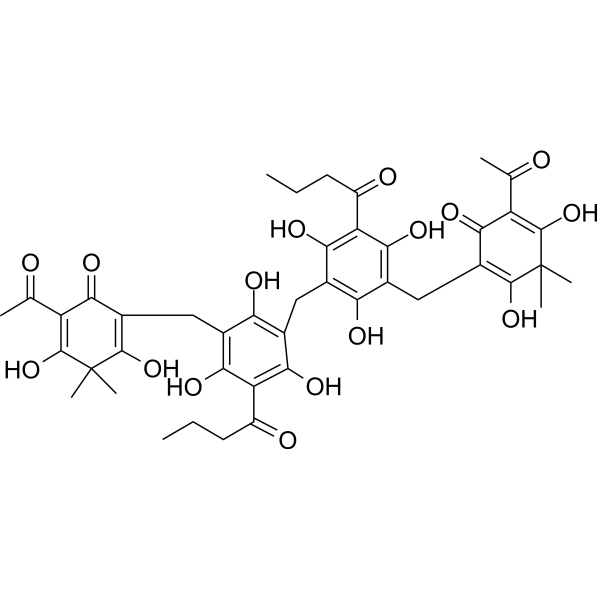
- HY-N6843
-
|
|
Caspase
PI3K
Akt
mTOR
STAT
|
Cancer
|
|
Arnicolide D is a sesquiterpene lactone isolated from Centipeda minima. Arnicolide D modulates the cell cycle, activates the caspase signaling pathway and inhibits the PI3K/AKT/mTOR and STAT3 signaling pathways. Arnicolide D inhibits Nasopharyngeal carcinoma (NPC) cell viability in a concentration- and time-dependent manner .
|
-
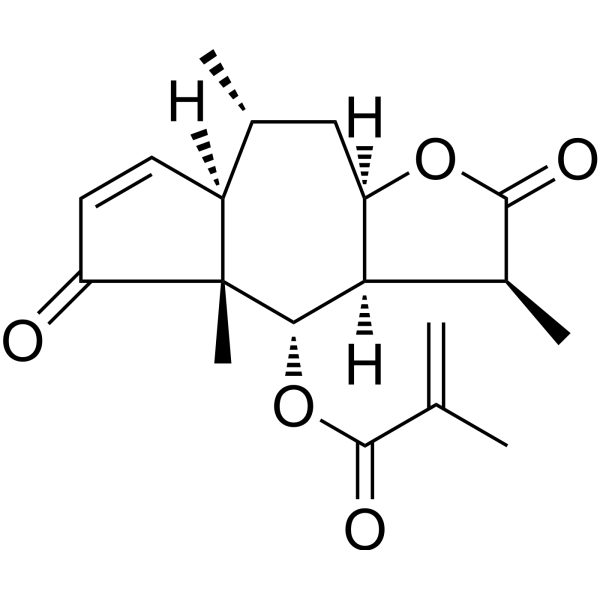
- HY-W008634
-
|
|
Toll-like Receptor (TLR)
|
Cancer
|
|
Bropirimine is a synthetic agonist for toll-like receptor 7 (TLR7). Bropirimine inhibits differentiation of osteoclast precursor cells into osteoclasts via TLR7-mediated production of IFN-β. Bropirimine is an orally active immunomodulator that has demonstrated anticancer activity in transitional cell carcinoma in situ (CIS) in both the bladder and upper urinary tract .
|
-
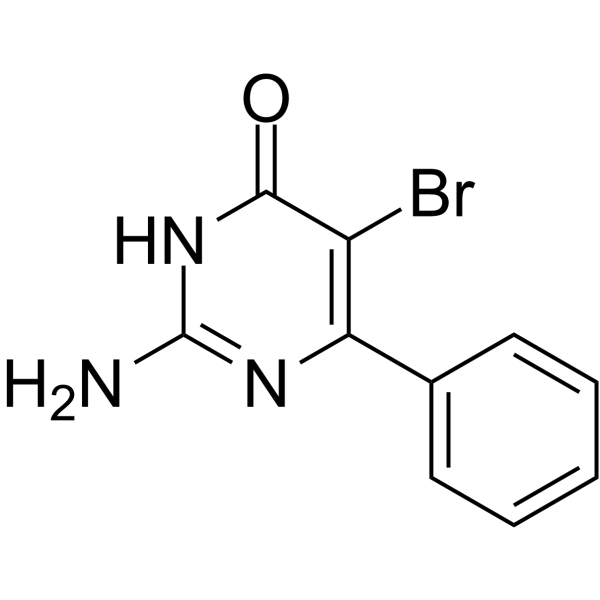
- HY-N6623
-
|
|
Apoptosis
Endogenous Metabolite
Reactive Oxygen Species
|
Cancer
|
|
Malvidin-3-galactoside chloride, an anthocyanin monomer, induces hepatocellular carcinoma (HCC) cells cycle arrest and apoptosis. Malvidin-3-galactoside chloride inhibits the production and accumulation of ROS. Malvidin-3-galactoside chloride has anti-tumor function .
|
-
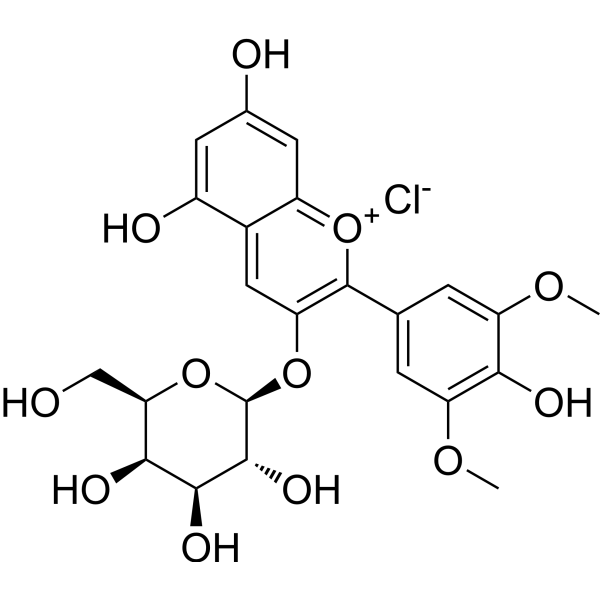
- HY-N144114
-
|
|
P-glycoprotein
|
Cancer
|
|
P-gp inhibitor 2 is a potent P-gp inhibitor. P-gp inhibitor 2 shows reverse Doxorubicin resistance (IC50=0.22 µM) in P-gp overexpressing human colorectal carcinoma cells (SW600 Ad300) .
|
-
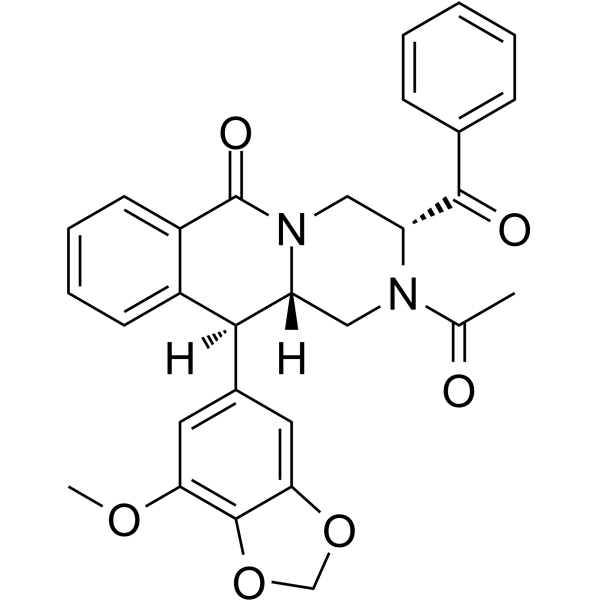
- HY-N8228
-
|
|
Bacterial
|
Infection
Inflammation/Immunology
Cancer
|
|
17-Hydroxyneomatrine, extracted from Sophora flavescens, can well inhibit the growth of human cervical carcinoma Hela cells, has the wide-range antibacterial, anti-allergy, anti-tumor, anti-arrhythmia, swelling-subsiding diuresis, immunizing, and biological regulation functions .
|
-
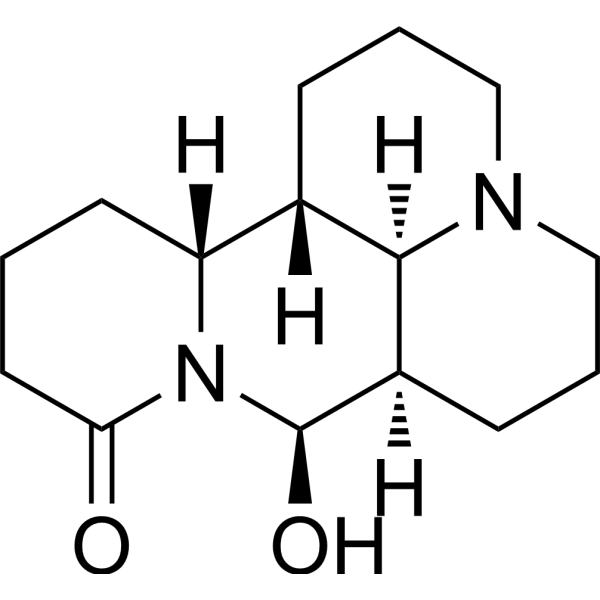
- HY-N1622
-
|
|
Others
|
Cancer
|
|
1-Dehydroxy-23-deoxojessic acid (compound 10) is a cycloartane-type triterpene. 1-Dehydroxy-23-deoxojessic acid exhibits cytotoxicity against murine colon 26-L5 carcinoma cells, with an EC50 of 62.38 μM .
|
-
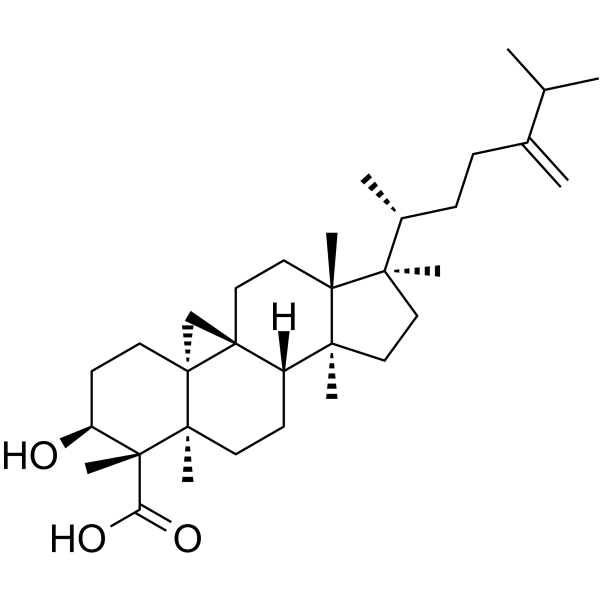
- HY-19345
-
|
NSC13316
|
|
|
|
Vacquinol-1 (NSC13316) is a MKK4-specific activator that activates MAPK pathways . Vacquinol-1 specifically induces human glioblastoma cell (GC) death, attenuates tumor progression and prolongs survival in a glioblastoma multiforme (GBM) mouse model . Vacquinol-1 also induces apoptosis in hepatocellular carcinoma (HCC)cell .
|
-
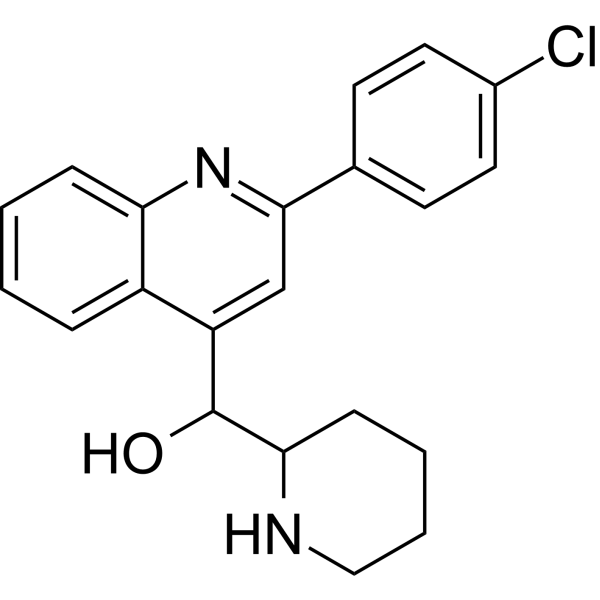
- HY-146395
-
|
|
HBV
DNA/RNA Synthesis
Apoptosis
|
Infection
Cancer
|
|
HBV-IN-23 (Compound 5k) is an inhibitor of HBV DNA replication with an IC50 of 0.58 μM. HBV-IN-23 inhibits HBV DNA replication in both agent sensitive and resistant HBV strains. HBV-IN-23 shows anti-hepatocellular carcinoma cell (HCC) activities. HBV-IN-23 induces HepG2 cells apoptosis .
|
-
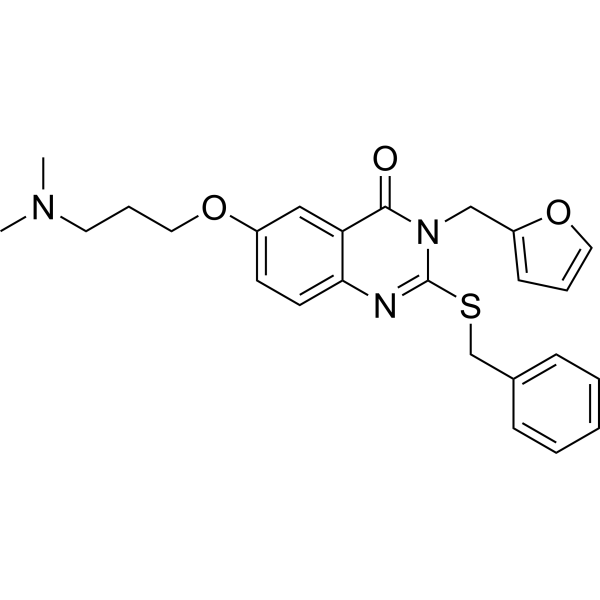
- HY-19345A
-
|
NSC13316 dihydrochloride
|
Others
|
Cancer
|
|
Vacquinol-1 (NSC13316) dihydrochloride is a MKK4-specific activator that activates MAPK pathways . Vacquinol-1 dihydrochloride specifically induces human glioblastoma cell (GC) death, attenuates tumor progression and prolongs survival in a glioblastoma multiforme (GBM) mouse model . Vacquinol-1 dihydrochloride also induces apoptosis in hepatocellular carcinoma (HCC)cell .
|
-
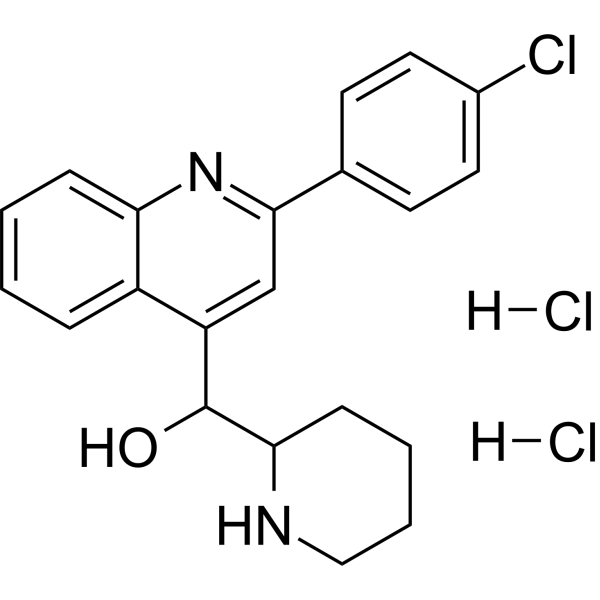
- HY-131934
-
|
|
Endogenous Metabolite
|
Inflammation/Immunology
|
|
9-OAHSA is a fatty acid ester of hydroxy fatty acids (FAHFAs). 9-OAHSA shows anti-inflammatory effects via inhibiting cytokine production and reduces IL-1β and IL-6 expression. 9-OAHSA is also a protective molecule to prevent colon carcinoma cells from apoptotic cell death .
|
-
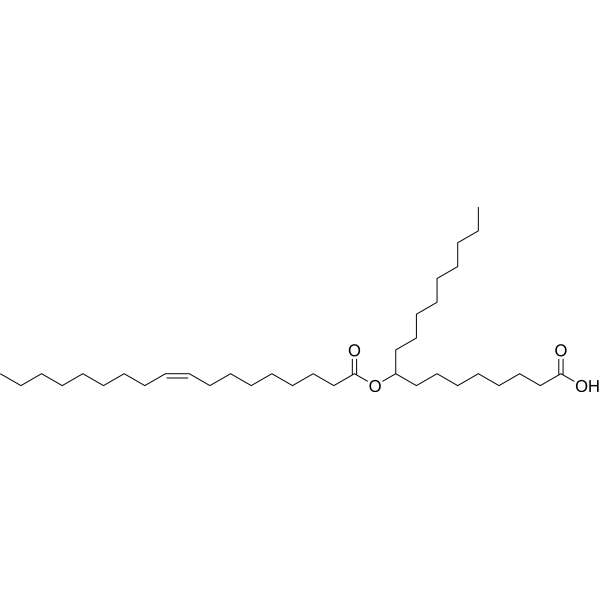
- HY-114338
-
|
SHR-6390
|
CDK
|
Cancer
|
|
Dalpiciclib (SHR-6390) is an orally active and highly selective inhibitor of CDK4 and 6 with IC50 values of 12.4 nM and 9.9 nM, respectively . Dalpiciclib shows antitumor activity against breast cancer and esophageal squamous cell carcinoma .
|
-
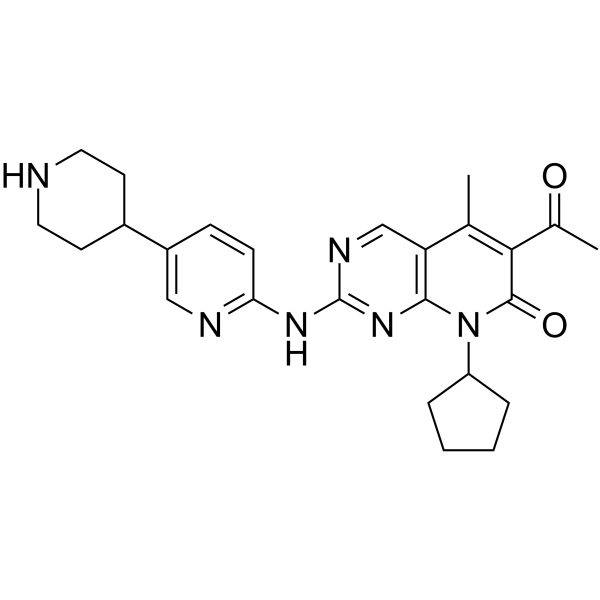
- HY-108527
-
|
|
RAR/RXR
|
Cancer
|
|
CD1530 is a selective RARγ agonist with an Kd of 150 nM . CD1530 has been used in combination with bexarotene to inhibit oral carcinogenesis induced by the carcinogen 4-nitroquinoline 1-oxide in a mouse model of human oral-cavity and esophageal squamous-cell carcinoma .
|
-
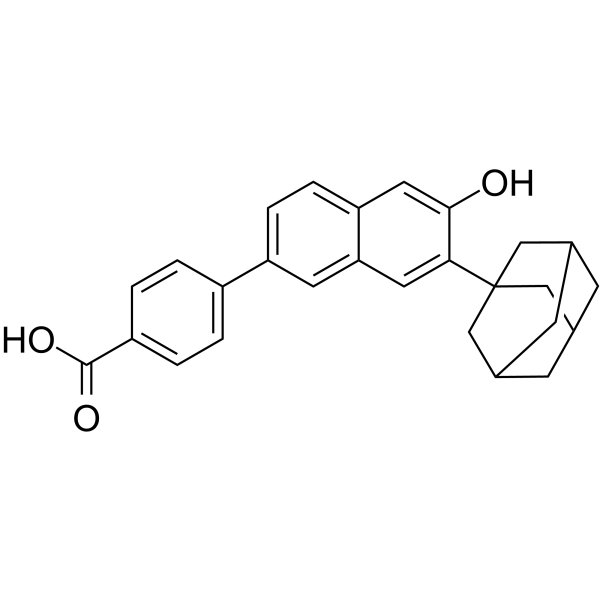
- HY-W013605A
-
|
p-Methoxycinnamaldehyde
|
RSV
|
Infection
|
|
4-Methoxycinnamaldehyde (p-Methoxycinnamaldehyde), an active constituent of Agastache rugosa, exhibits cytoprotective activity against respiratory syncytial virus (RSV) in human larynx carcinoma cell line. 4-Methoxycinnamaldehyde effectively inhibits cytopathic effect of RSV with an estimated IC50 of 0.055 μg/mL .
|
-
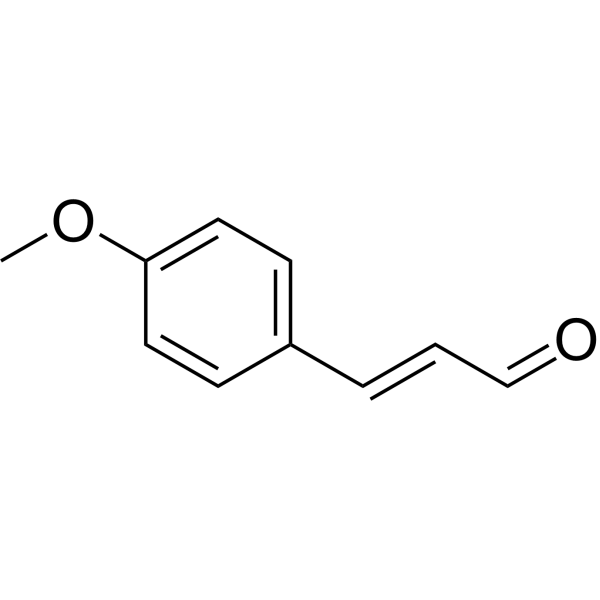
- HY-114338A
-
|
SHR-6390 hydrochloride
|
CDK
|
Cancer
|
|
Dalpiciclib (SHR-6390) hydrochloride is an orally active and highly selective inhibitor of CDK4 and 6 with IC50 values of 12.4 nM and 9.9 nM, respectively . Dalpiciclib hydrochloride shows antitumor activity against breast cancer and esophageal squamous cell carcinoma .
|
-
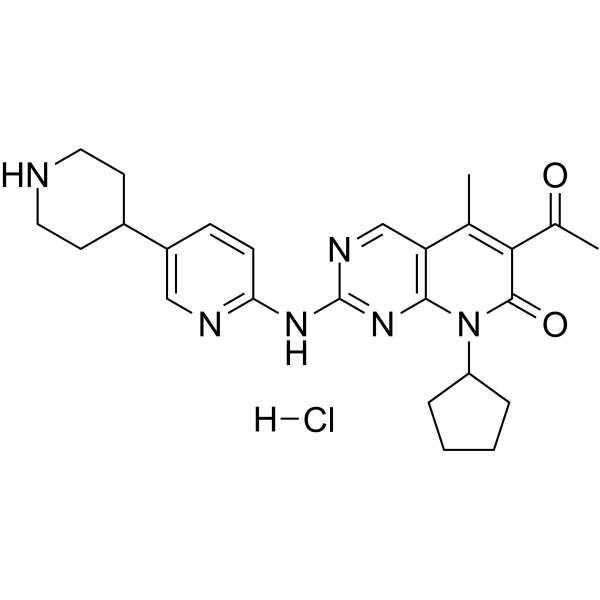
- HY-19839
-
|
Antibiotic C 15003P3'; Maytansinol butyrate
|
|
|
|
Ansamitocin P 3' (Antibiotic C 15003P3') is an anti-tumor antibiotic. Ansamitocin P 3' prolongs the survival of mice with leukemia P388, melanoma B16, leukemia L1210, sarcoma 180, Ehrlich carcinoma and mast cell tumor P815 .
|
-
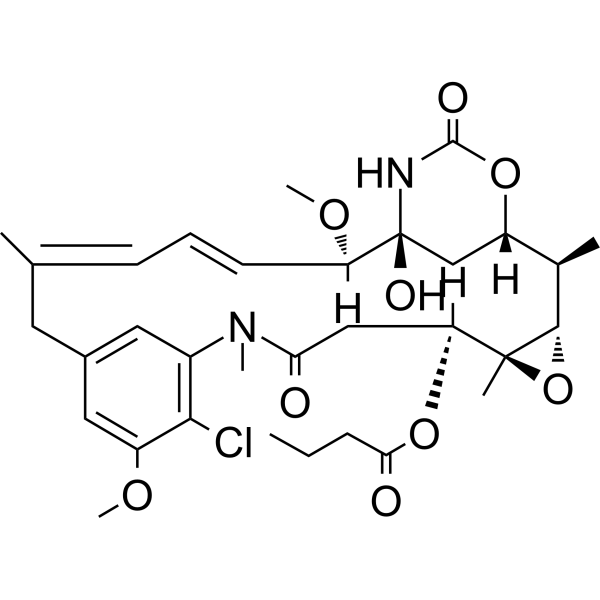
- HY-N6885
-
|
|
Others
|
Cancer
|
|
Puerarin-4'-O-β-D-glucopyranoside (compound 8) is a isoflavone from Pueraria lobata root (PLR). Puerarin-4'-O-β-D-glucopyranoside has estrogenic activity and anti-proliferation of MCF-7 human breast carcinoma cells .
|
-
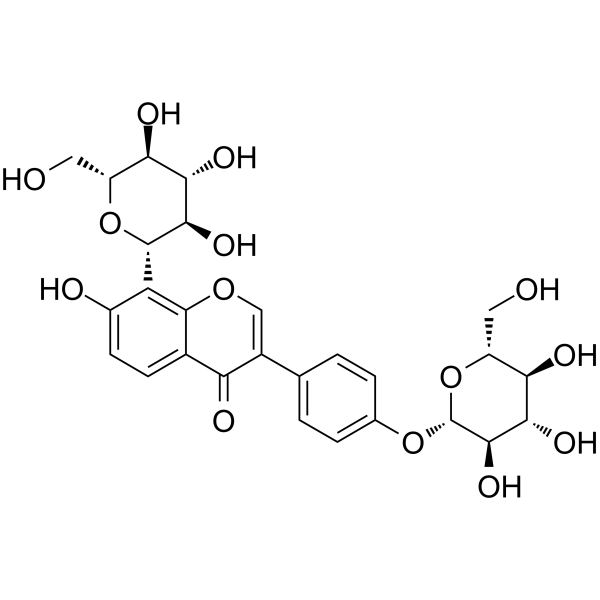
- HY-101246
-
|
|
|
|
|
RPI-1 is a specific, orally available 2-indolinone Ret tyrosine kinase inhibitor. RPI-1 inhibits proliferation, Ret tyrosine phosphorylation, Ret protein expression, and the activation of PLCgamma, ERKs and AKT in human medullary thyroid carcinoma TT cells. Antitumor activity .
|
-
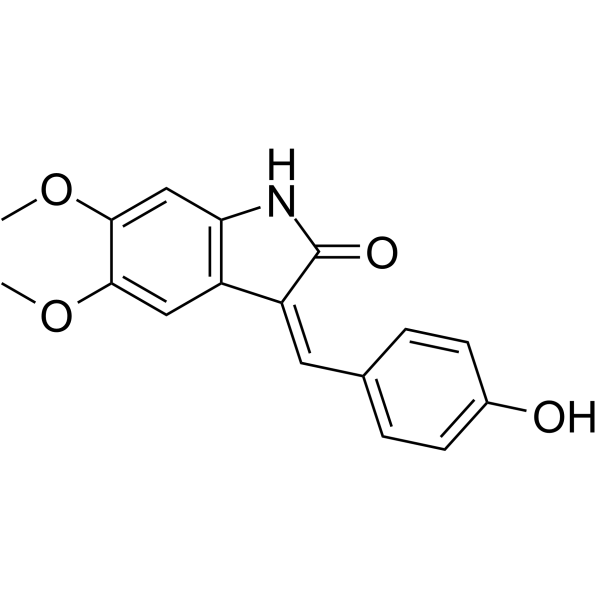
- HY-W009776
-
|
Suberohydroxamic acid; SBHA
|
HDAC
Apoptosis
|
Cancer
|
|
Suberoyl bis-hydroxamic acid (Suberohydroxamic acid; SBHA) is a competitive and cell-permeable HDAC1 and HDAC3 inhibitor with ID50 values of 0.25 μM and 0.30 μM, respectively .Suberoyl bis-hydroxamic acid renders MM cells susceptible to apoptosis and facilitates the mitochondrial apoptotic pathways .Suberoyl bis-hydroxamic acid can be used for the study of medullary thyroid carcinoma (MTC) .
|
-
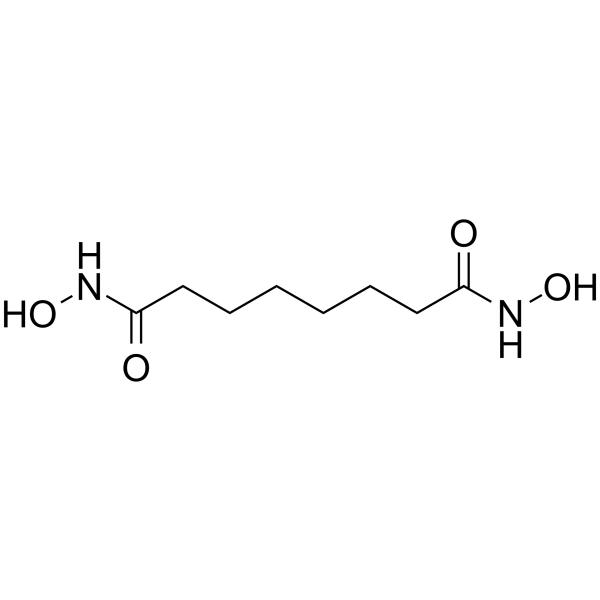
- HY-144617
-
|
|
DYRK
|
Cancer
|
|
JH-XIV-68-3 is a selective macrocyclic inhibitor of DYRK1A/B. JH-XIV-68-3 displays selectivity for DYRK1A and close family member DYRK1B in biochemical and cellular assays. JH-XIV-68-3 demonstrates antitumor efficacy in head and neck squamous cell carcinoma (HNSCC) cell lines .
|
-
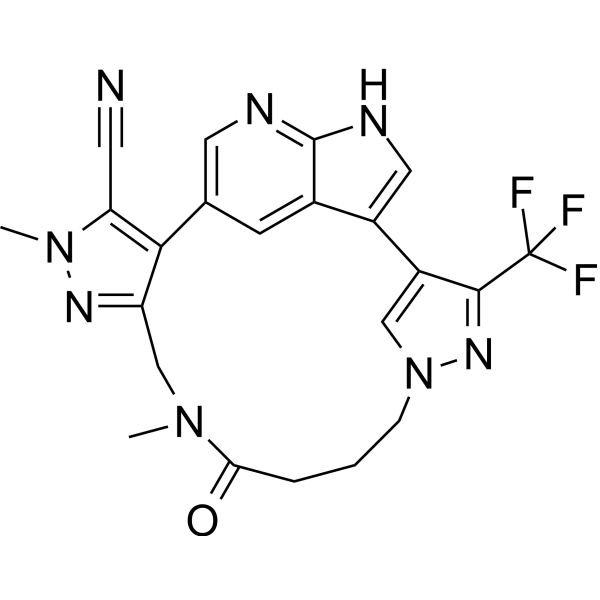
- HY-155124
-
|
|
Apoptosis
|
Cancer
|
|
Antiproliferative agent-32 (Compound 1c) inhibits the phosphorylation of PI3K/Akt/mTOR signaling pathway. Antiproliferative agent-32 inhibits Huh7 and SK-Hep-1 cells proliferation, and induce cells apoptosis, causes mitochondrial damage. Antiproliferative agent-32 can be used for research of hepatocellular carcinoma .
|
-
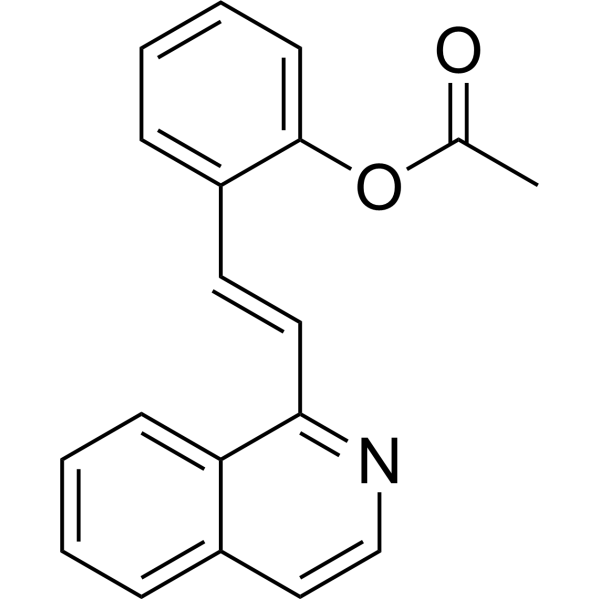
- HY-113965
-
|
|
Hedgehog
Smo
Apoptosis
|
Inflammation/Immunology
|
|
CUR61414 is a novel, potent and cell permeable Hedgehog signaling pathway inhibitor (IC50 =100-200 nM). CUR61414 is a small-molecule aminoproline class compound and selectively binds to smoothened (Smo) with a Ki value of 44 nM. CUR-61414 can induce apoptosis in cancer cells without affecting neighboring non-tumor cells .
|
-
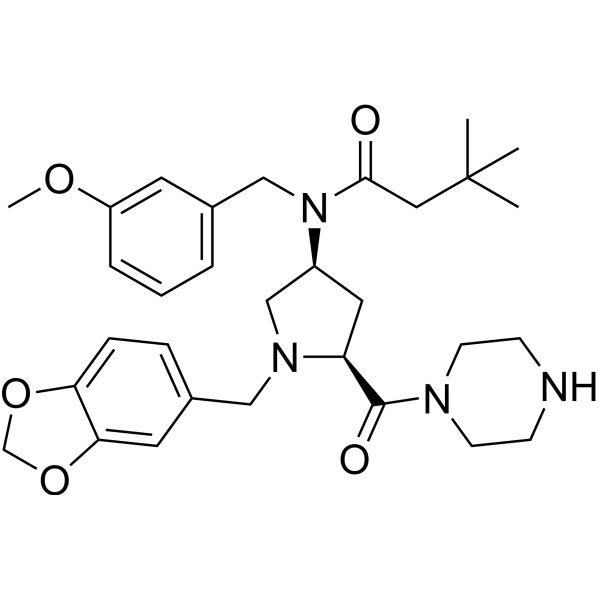
- HY-137506
-
-
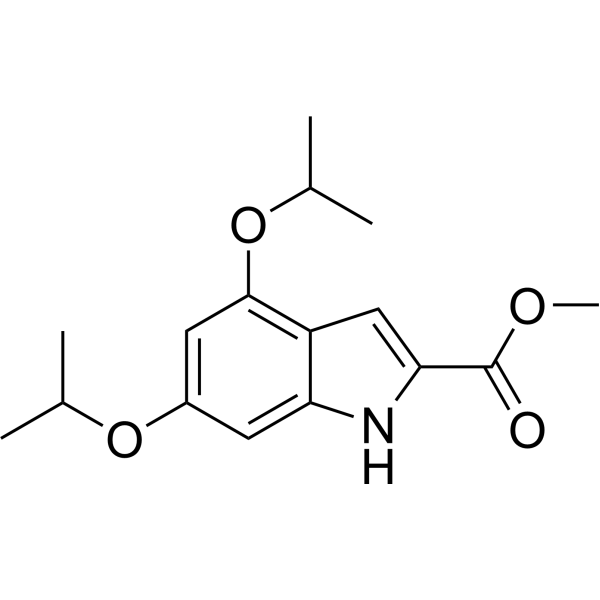
- HY-119272
-
|
|
ERK
Caspase
|
Cancer
|
|
EF24 is a curcumin analogue with greater anti-tumor efficacy and oral bioavailability via deactivation of the MAPK/ERK signaling pathway in oral squamous cell carcinoma (OSCC). EF24 treatment increases the levels of activated caspase 3 and 9, and decreases the phosphorylated forms of MEK1 and ERK .
|
-
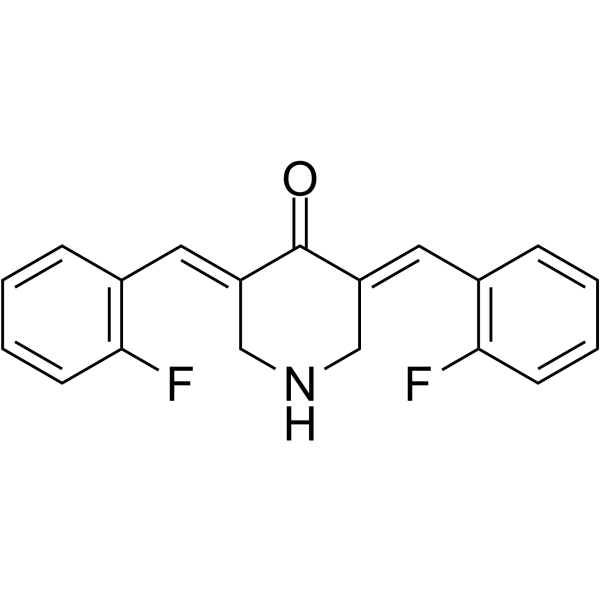
- HY-N0610AS2
-
|
3-Phenylacrylic acid-13C3; β-Phenylacrylic acid-13C3
|
Isotope-Labeled Compounds
Endogenous Metabolite
|
Cancer
|
|
Cinnamic acid- 13C3 (3-Phenylacrylic acid- 13C3) is the 13C labeled Cinnamic acid (HY-N0610A). Cinnamic acid has potential use in cancer intervention, with IC50s of 1-4.5 mM in glioblastoma, melanoma, prostate and lung carcinoma cells .
|
-
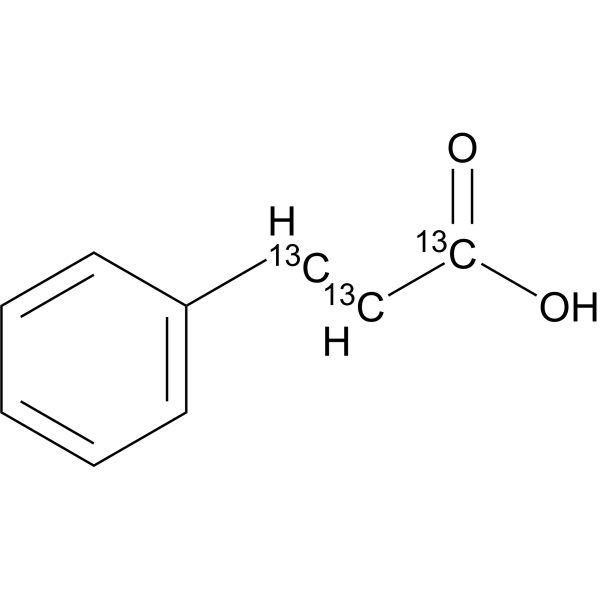
- HY-148944
-
|
|
Reactive Oxygen Species
Apoptosis
|
Cancer
|
|
Didocosahexaenoin, an omega-3 derivative, is a diglyceride of DHA and can be synthesised from DHA triglycerides. Didocosahexaenoin causes significant loss of mitochondrial membrane potential and induces ROS production. Didocosahexaenoin induces apoptosis. Didocosahexaenoin induces stronger cytotoxicity than DHA in human prostate carcinoma cells .
|
-
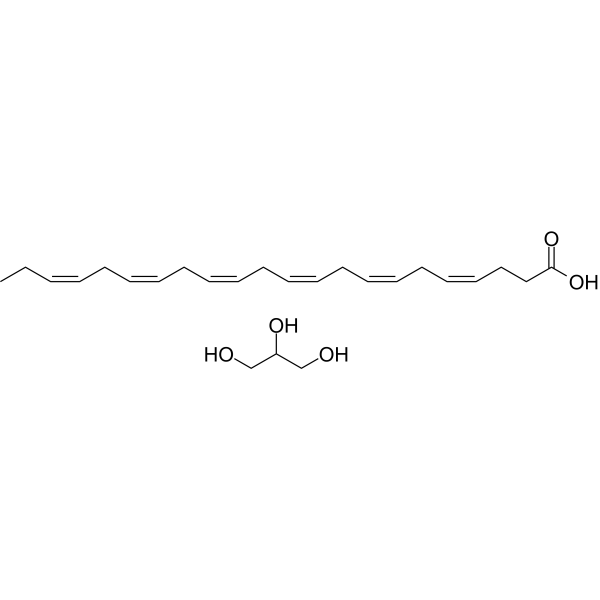
- HY-149475
-
|
|
VEGFR
|
Cancer
|
|
VEGFR-2-IN-33 (Compound 4d) is a VEGFR inhibitor (IC50: 61.04 nM). VEGFR-2-IN-33 inhibits HepG2 cell proliferation with an IC50 of 4.31 nM. VEGFR-2-IN-33 can be used for research of hepatocellular carcinoma (HCC) .
|
-
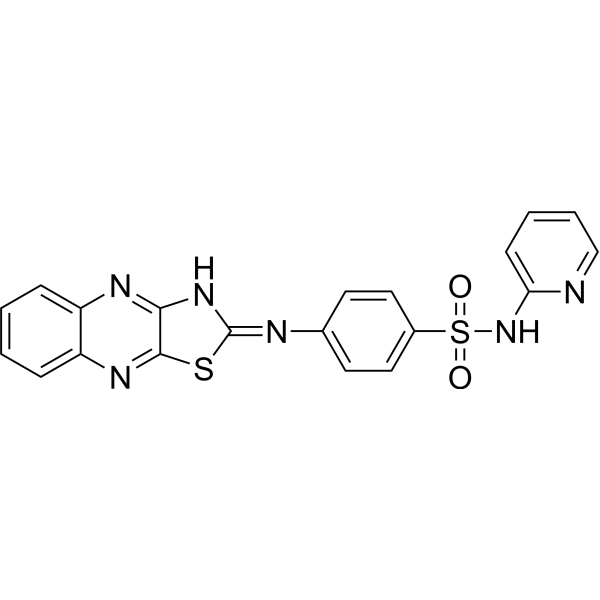
- HY-142684
-
|
|
Others
|
Cancer
|
|
Pyruvate Carboxylase-IN-1 (compound 37) is a potent inhibitor of pyruvate carboxylase (PC) with IC50s of 0.204 and 0.104 μM in cell lysate-based and cell-based PC activity, respectively. Pyruvate Carboxylase-IN-1 is a natural analog of erianin. Pyruvate Carboxylase-IN-1 inhibites the enzymatic activity of PC, mediating the anticancer effect in human hepatocellular carcinoma (HCC) .
|
-
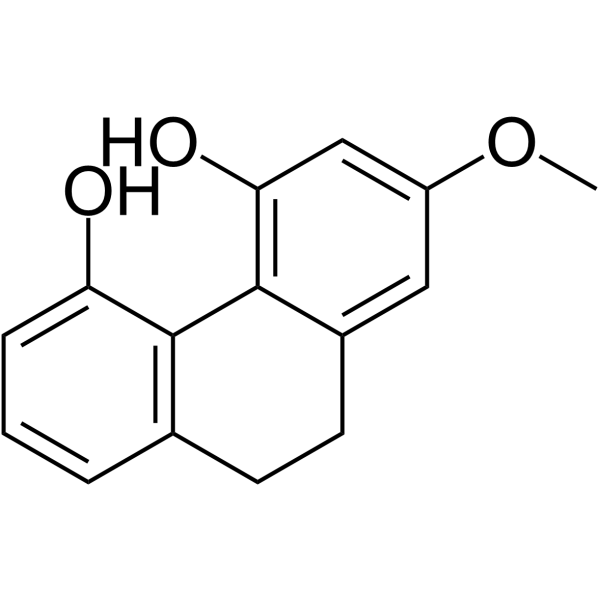
- HY-142685
-
|
|
Others
|
Cancer
|
|
Pyruvate Carboxylase-IN-2 (compound 29) is a potent inhibitor of pyruvate carboxylase (PC) with IC50s of 0.065 and 0.097 μM in cell lysate-based and cell-based PC activity, respectively. Pyruvate Carboxylase-IN-2 is a natural analog of erianin. Pyruvate Carboxylase-IN-2 inhibites the enzymatic activity of PC, mediating the anticancer effect in human hepatocellular carcinoma (HCC) .
|
-
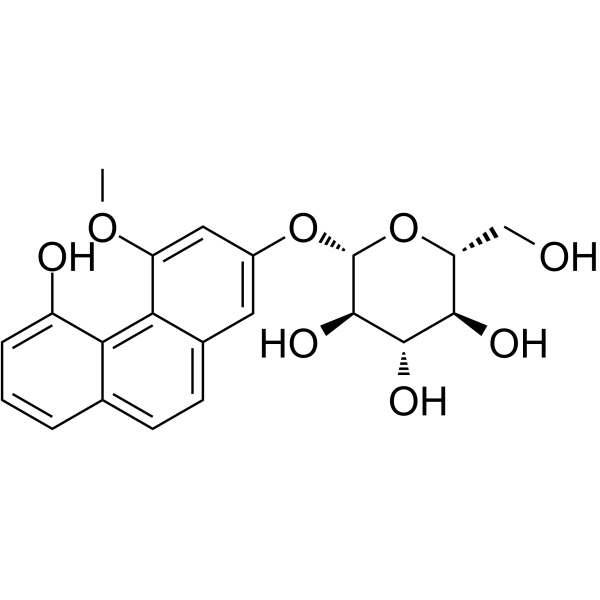
- HY-N12044
-
|
|
Apoptosis
|
Cancer
|
|
Asparanin A is an apoptosis inducer with anticancer activity. Asparanin A induces cell cycle arrest in the G0/G1 phase through mitochondria and PI3K/AKT signaling pathways, inhibiting cancer cell growth. Asparanin A also demonstrated in vivo efficacy in a mouse xenograft model of Ishikawa endometrial carcinoma, significantly inhibiting tumor growth .
|
-
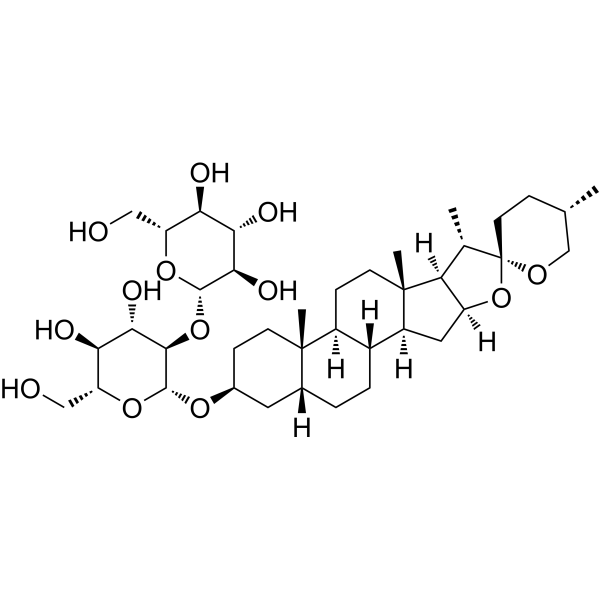
- HY-100415
-
|
WX-UK1; UKI-1C
|
PAI-1
Ser/Thr Protease
|
Cancer
|
|
UKI-1 (WX-UK1) is a potent urokinase-type plasminogen activator (uPA) inhibitor with a Ki of 0.41 μM. UKI-1 is also a low molecular weight serine protease inhibitor. UKI-1 is a potent antimetastatic agent and inhibits the invasive capacity of carcinoma cells .
|
-
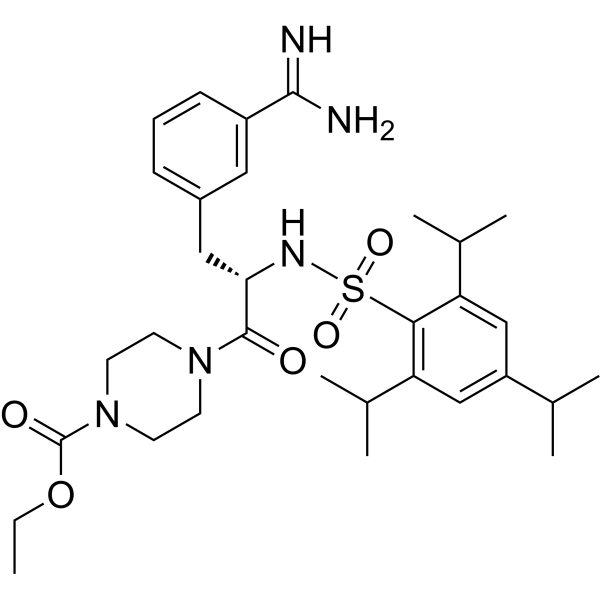
- HY-100549
-
|
|
|
|
|
(S)-Crizotinib is a potent and selective MTH1 (mutT homologue) inhibitor with an IC50 of 330 nM. (S)-Crizotinib disrupts nucleotide pool homeostasis via MTH1 inhibition, induces an increase in DNA single strand breaks, activates DNA repair in human colon carcinoma cells, and effectively suppresses tumour growth in animal models .
|
-
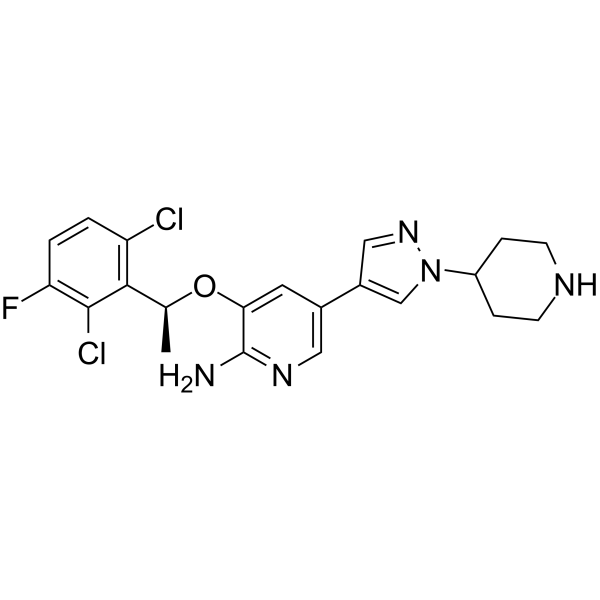
- HY-N1535
-
|
Rubescensine B
|
Apoptosis
|
Inflammation/Immunology
Cancer
|
|
Ponicidin (Rubescensine B) is a diterpenoid derived from Rabdosia rubescens, and exhibits immunoregulatory, anti-inflammatory, anti-viral and anti-cancer activity. Ponicidin (Rubescensine B) induces apoptosis of gastric carcinoma cell, decreases the phosphorylation of JAK2 and STAT3, and shows no effect on protein levels of JAK2 and STAT3 .
|
-
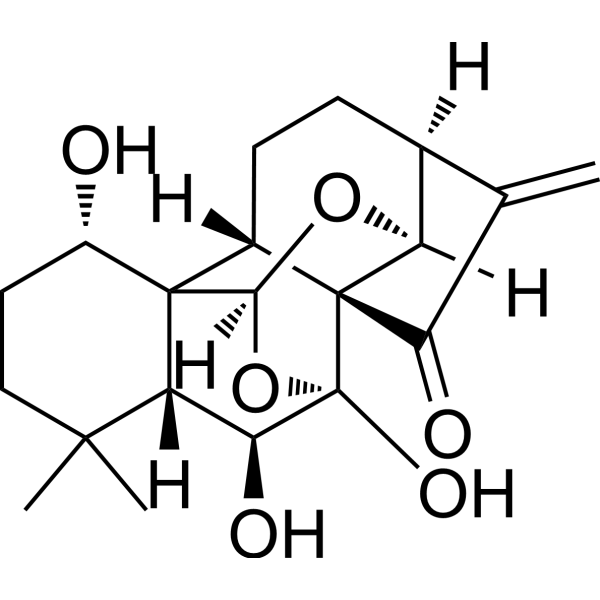
- HY-145835
-
|
|
PERK
|
Cancer
|
|
PERK-IN-5 is a highly potent, selectively and orally bioavailable PERK inhibitor (IC50s of 2 and 9 nM for PERK and p-eIF2α, respectively). PERK-IN-5 can significantly inhibit tumor growth in the 786-O renal cell carcinoma xenograft tumor model .
|
-
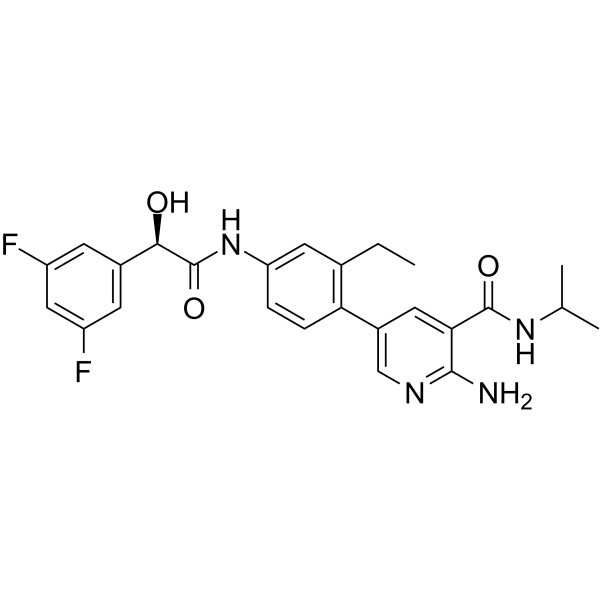
- HY-153547
-
|
|
Parasite
|
Infection
Inflammation/Immunology
|
|
HSP90-IN-21 (5e) is an antiplasmodial agent, with IC50 values of 0.04, 0.17 and 2.91 μM against erythrocytic stage of P. falciparum (Pf3D7 and PfDd2 strains), cytotoxicity of human liver hepatocellular carcinoma cell line (HepG2), respectively .
|
-
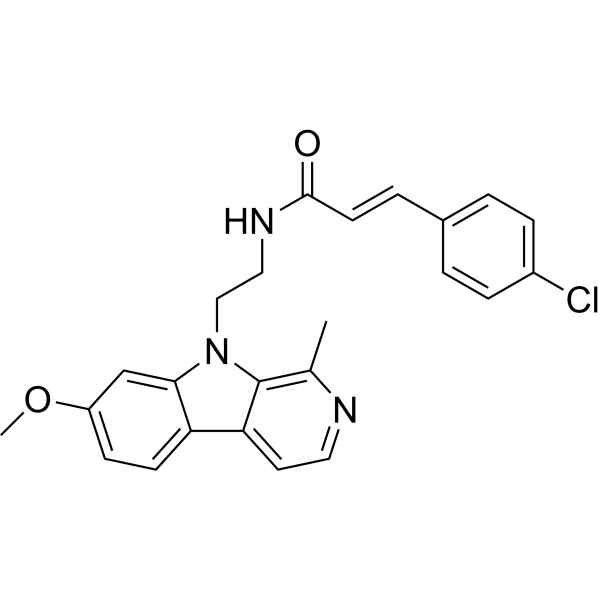
- HY-147949
-
|
|
Microtubule/Tubulin
Apoptosis
|
Cancer
|
|
SKLB0565 is a potent tubulin inhibitor. SKLB0565 shows significant anti-proliferative activity against CRC (colorectal carcinoma) cell lines, with IC50 values ranging from 0.012 μM to 0.081 μM. SKLB0565 causes G2/M phase arrest and mitochondria-mediated intrinsic apoptosis. SKLB0565 inhibits cell migration and disrupted the tube formation of HUVECs .
|
-
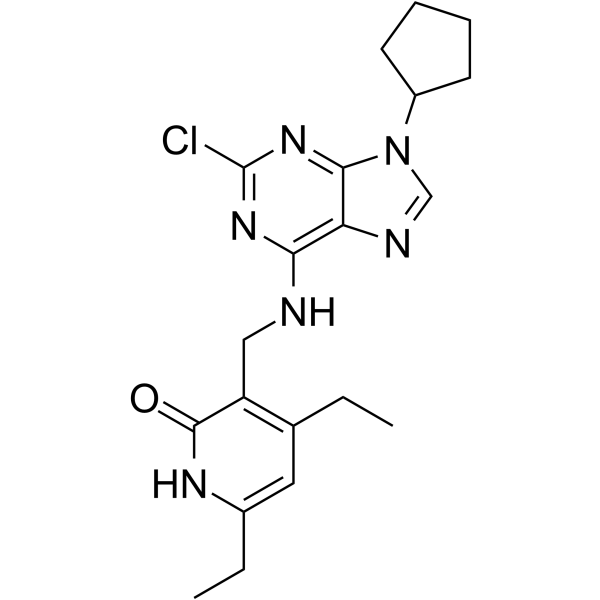
- HY-162259
-
|
|
PROTACs
Histone Acetyltransferase
|
Cancer
|
|
QC-182 is a potent PROTAC degrader of p300/CBP. QC-182 reduces p300 protein in the SK-HEP-1 cells (DC50 = 93nM). QC-182 potently and effectively inhibits cell growth in the SK-HEP-1 and JHH7 cell lines with IC50 values of 0.733 and 0.477 μM, respectively. QC-182 can be used for the research of hepatocellular carcinoma (HCC) .
|
-
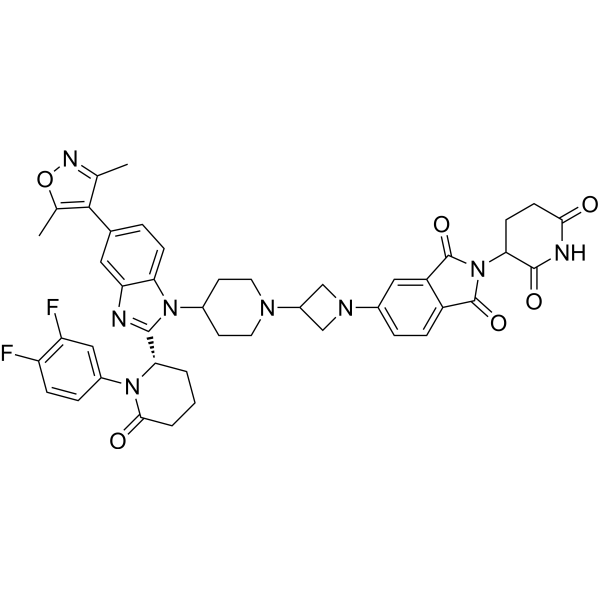
- HY-N0103
-
|
|
Autophagy
Apoptosis
PI3K
Akt
Influenza Virus
|
Infection
Inflammation/Immunology
Cancer
|
|
Sophocarpine is one of the significant alkaloid extracted from the traditional herb medicine Sophora flavescens which has many pharmacological properties such as anti-virus, anti-tumor, anti-inflammatory. Sophocarpine significantly inhibits the growth of gastric cancer (GC) cells through multiple mechanisms such as induction of autophagy, activation of cell apoptosis and down-regulation of cell survival PI3K/AKT signaling pathway. Sophocarpine has been demonstrated to have anti-tumor activity in various cancer cells, including hepatocellular carcinoma, prostate cancer and colorectal cancer .
|
-
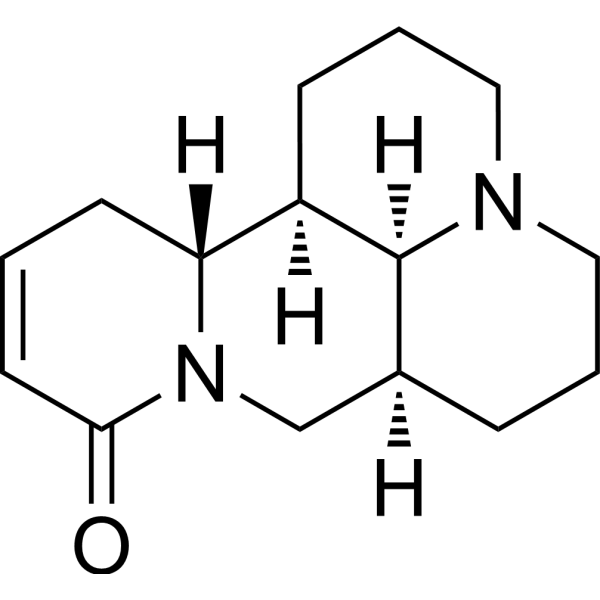
- HY-N0103A
-
|
|
Autophagy
Apoptosis
PI3K
Akt
Influenza Virus
|
Infection
Inflammation/Immunology
Cancer
|
|
Sophocarpine (monohydrate) is one of the significant alkaloid extracted from the traditional herb medicine Sophora flavescens which has many pharmacological properties such as anti-virus, anti-tumor, anti-inflammatory. Sophocarpine (monohydrate) significantly inhibits the growth of gastric cancer (GC) cells through multiple mechanisms such as induction of autophagy, activation of cell apoptosis and down-regulation of cell survival PI3K/AKT signaling pathway. Sophocarpine (monohydrate) has been demonstrated to have anti-tumor activity in various cancer cells, including hepatocellular carcinoma, prostate cancer and colorectal cancer .
|
-
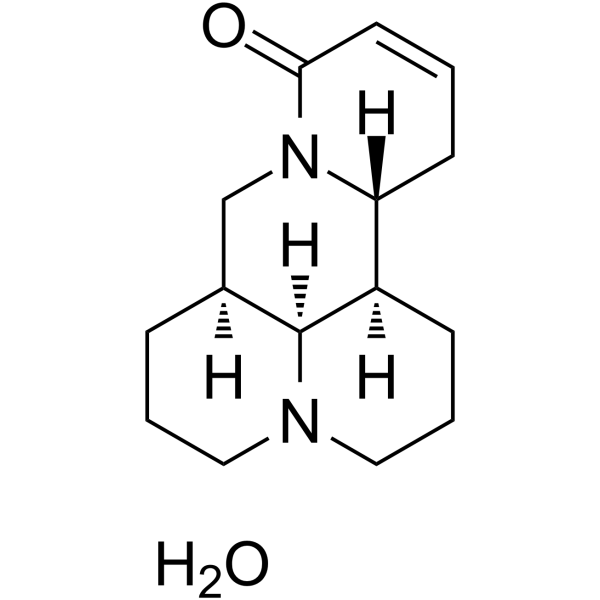
- HY-13653
-
|
EGCG; Epigallocatechol Gallate
|
Endogenous Metabolite
Apoptosis
|
Inflammation/Immunology
Cancer
|
|
(-)-Epigallocatechin Gallate (EGCG) is a major polyphenol in green tea, which can inhibit cell proliferation and induce cell apoptosis. (-)-Epigallocatechin Gallate inhibits glutamate dehydrogenase 1/2 (GDH1/2, GLUD1/2) activity. (-)-Epigallocatechin Gallate has a potent anticancer, antioxidant and anti-inflammatory properties against various types of cancers such as colorectal cancer, myeloid leukemia, thyroid carcinoma .
|
-
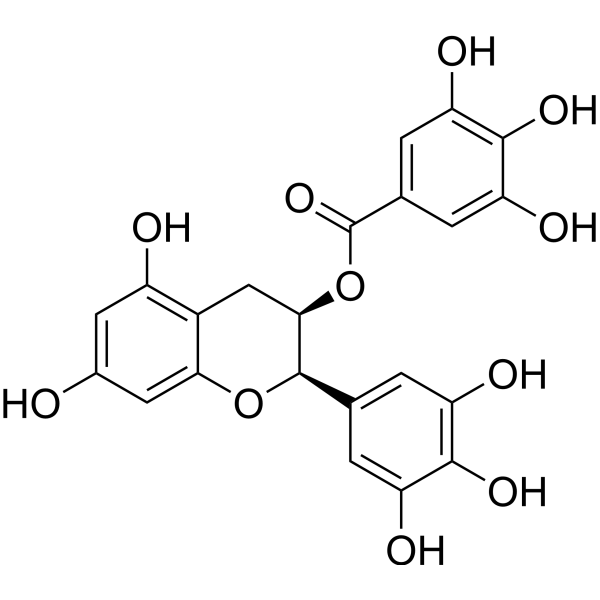
- HY-N1511
-
|
|
|
|
|
Ganoderic acid D, a highly oxygenated tetracyclic triterpenoid, is the major active component of Ganoderma lucidum. Ganoderic acid D upregulates the protein expression of SIRT3 and induces the deacetylated cyclophilin D (CypD) by SIRT3. Ganoderic acid D inhibits the energy reprogramming of colon cancer cells including glucose uptake, lactate production, pyruvate and acetyl-coenzyme production in colon cancer cells . Ganoderic acid D induces HeLa human cervical carcinoma apoptosis .
|
-
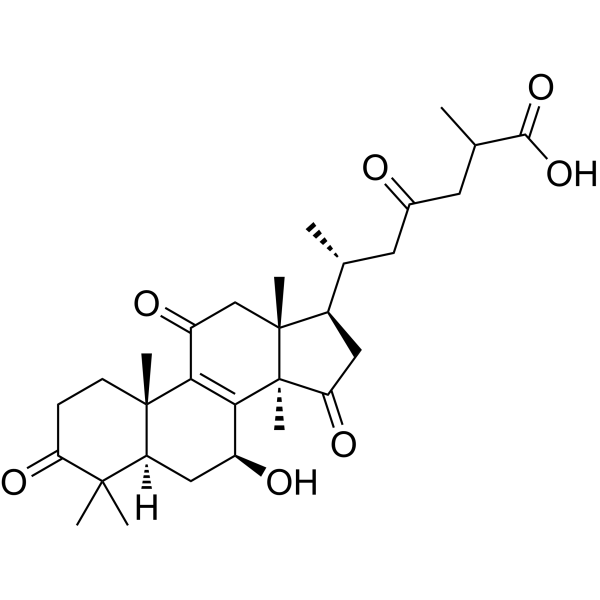
- HY-N0750
-
|
Crotaline
|
Others
|
Metabolic Disease
Cancer
|
Monocrotaline is an 11-membered macrocyclic pyrrolizidine alkaloid. Monocrotaline inhibits OCT-1 and OCT-2 with IC50s of 36.8 µM and 1.8 mM, respectively. Monocrotaline has antitumor activity and is cytotoxic to hepatocellular carcinoma cells. Monocrotaline is used to induce a model of pulmonary hypertension in rodents. [2][6][8].
|
-
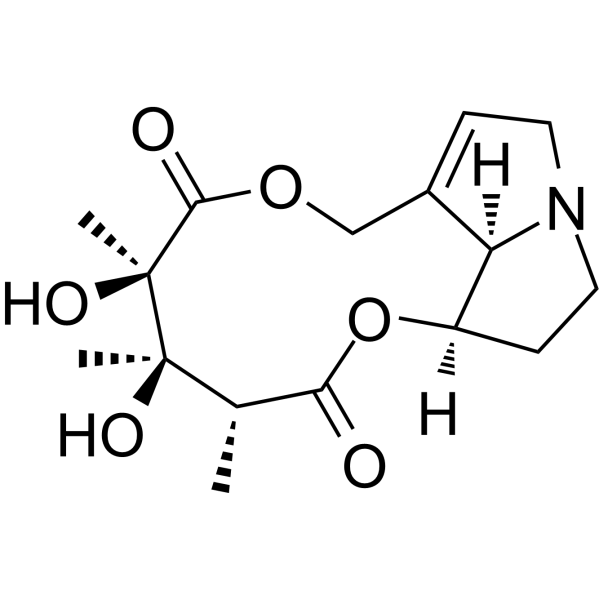
- HY-B0185
-
|
Lignocaine
|
Sodium Channel
MEK
ERK
NF-κB
Apoptosis
|
Cardiovascular Disease
Cancer
|
|
Lidocaine (Lignocaine) inhibits sodium channels involving complex voltage and using dependence . Lidocaine decreases growth, migration and invasion of gastric carcinoma cells via up-regulating miR-145 expression and further inactivation of MEK/ERK and NF-κB signaling pathways. Lidocaine is an amide derivative and has potential for the research of ventricular arrhythmia .
|
-
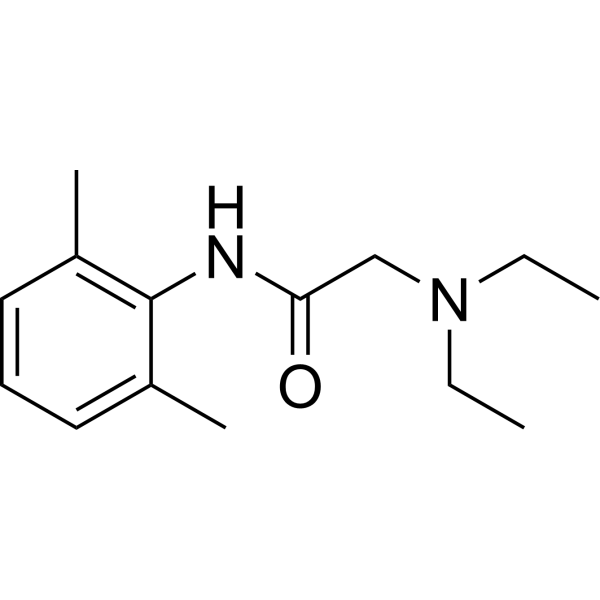
- HY-116705
-
|
|
Others
|
Cancer
|
|
2-Deoxy-2-fluoro-L-fucose, an L-fucose analog, is a fucosylation inhibitor. 2-Deoxy-2-fluoro-L-fucose inhibits de novo synthesis of GDP-fucose in mammalian cells. Fucosylation is a relatively well-defined biomarker for progression in many human cancers; for example, pancreatic and hepatocellular carcinoma .
|
-
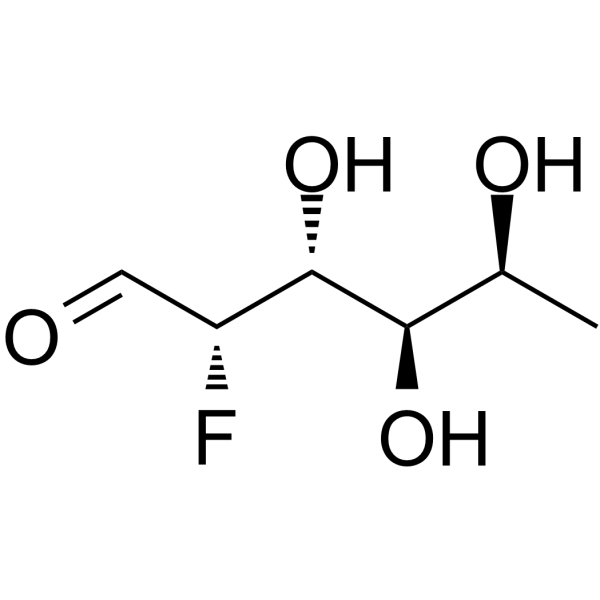
- HY-N10158
-
|
|
Others
|
Cancer
|
|
1,7-Bis(4-hydroxyphenyl)-3-hydroxy-1,3-heptadien-5-one (compound 39), a diarylheptanoid, exhibits antiproliferative activity towards human HT-1080 fibrosarcoma and murine colon 26-L5 carcinoma cells .
|
-
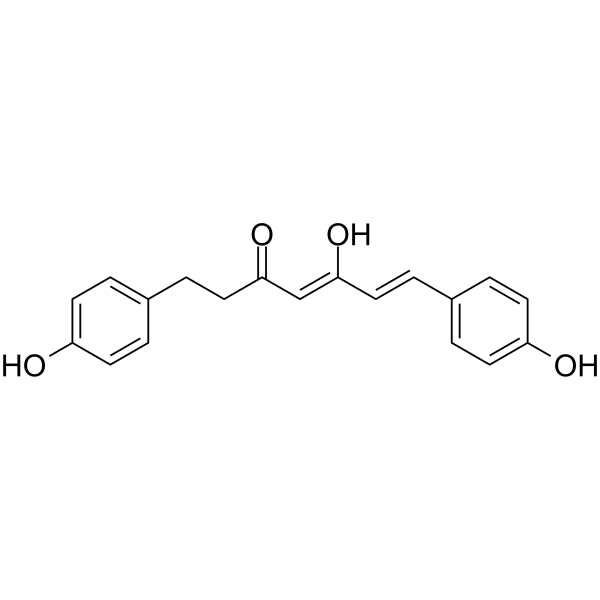
- HY-B0185B
-
|
Lignocaine hydrochloride hydrate
|
Sodium Channel
MEK
ERK
NF-κB
Apoptosis
|
Cardiovascular Disease
Cancer
|
|
Lidocaine (Lignocaine) hydrochloride hydrate inhibits sodium channels involving complex voltage and using dependence. Lidocaine hydrochloride hydrate decreases growth, migration and invasion of gastric carcinoma cells via up-regulating miR-145 expression and further inactivation of MEK/ERK and NF-κB signaling pathways. Lidocaine hydrochloride hydrate is an amide derivative and has potential for the research of ventricular arrhythmia .
|
-
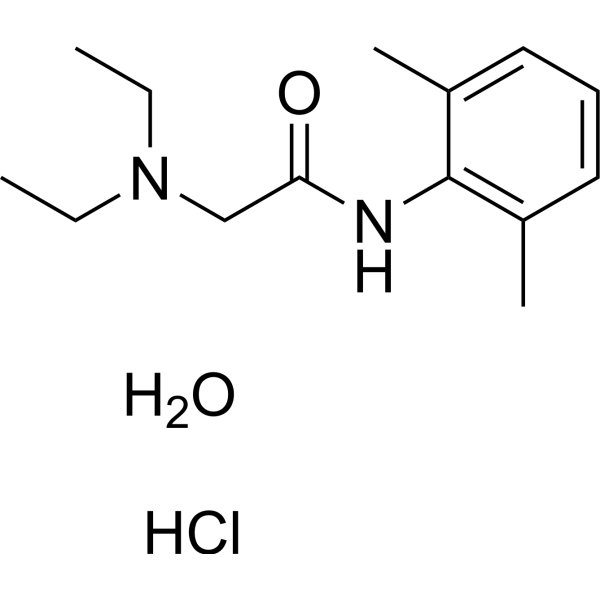
- HY-156135
-
|
|
RET
|
Others
|
|
NSC194598 is a p53 DNA-binding inhibitor with IC50 value of 180 nM and 2-40 μM for in vitro and in vivo, respectively. NSC194598 interferes with transcriptional activation of mutated RET gene in human medullary thyroid carcinoma TT cells. NSC194598 can be used for acute toxicity to normal tissues by radiation and chemotherapy research .
|
-
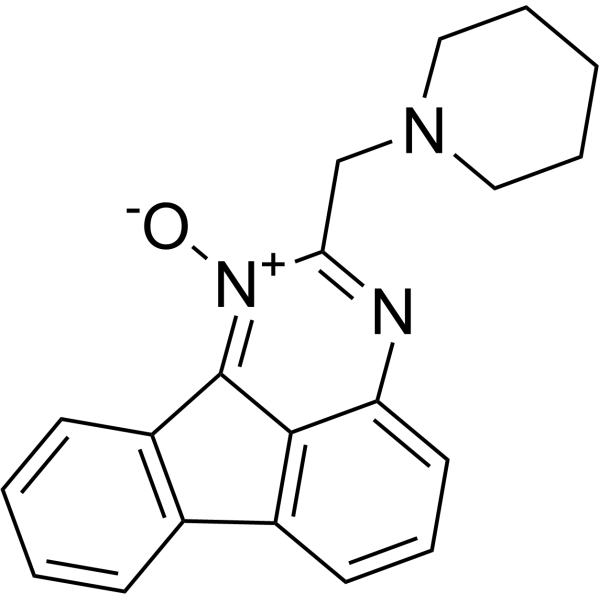
- HY-146792
-
|
|
Polo-like Kinase (PLK)
|
Cancer
|
|
PLK1-IN-4 is a potent and selective PLK1 inhibitor with IC50 < 0.508 nM. PLK1-IN-4 has broad antiproliferative activity against a variety of cancer cell lines. PLK1-IN-4 induces mitotic arrest at the G2/M phase checkpoint, leading to cancer cell apoptosis. PLK1-IN-4 can be used for researching hepatocellular carcinoma .
|
-
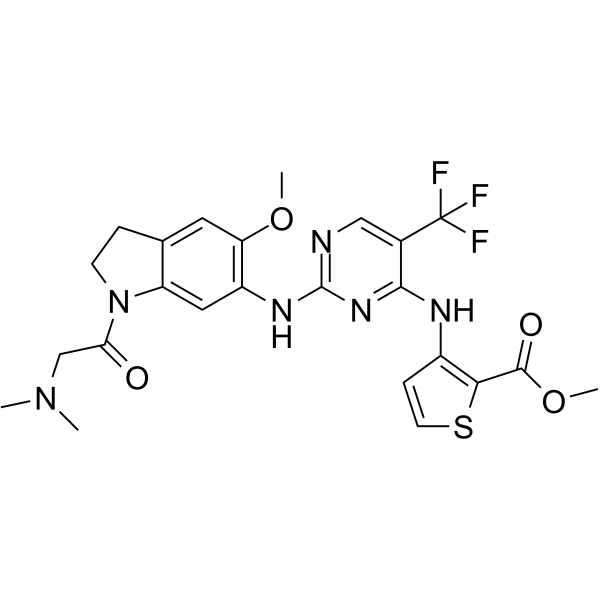
- HY-B0185A
-
|
Lignocaine hydrochloride
|
Sodium Channel
MEK
ERK
NF-κB
Apoptosis
|
Cardiovascular Disease
Cancer
|
|
Lidocaine hydrochloride (Lignocaine hydrochloride) inhibits sodium channels involving complex voltage and using dependence . Lidocaine hydrochloride decreases growth, migration and invasion of gastric carcinoma cells via up-regulating miR-145 expression and further inactivation of MEK/ERK and NF-κB signaling pathways. Lidocaine hydrochloride is an amide derivative and a agent to treat ventricular arrhythmia and an effective tumor-inhibitor .
|
-
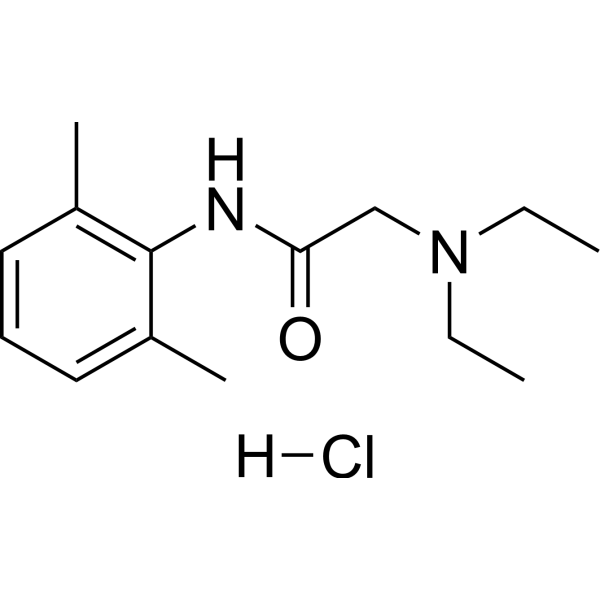
- HY-N7073
-
|
|
SARS-CoV
|
Infection
Neurological Disease
Inflammation/Immunology
Cancer
|
|
Silymarin is an extract of the milk thistle (Silybum marianum). Silymarin is an effective SARS-CoV-2 main protease (M pro) inhibitor. Silymarin can significantly reduce tumor cell proliferation, angiogenesis as well as insulin resistance. Silymarin has the chemopreventive effect on hepatocellular carcinoma (HCC). Silymarin has the potential for COVID-19 research .
|
-
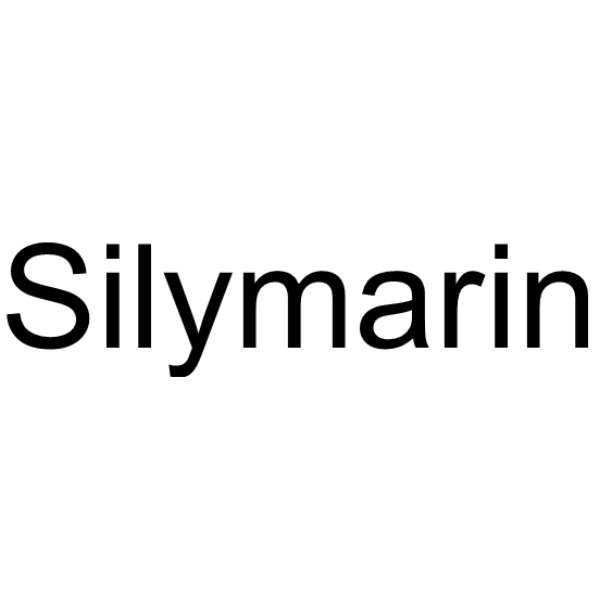
- HY-16706
-
|
|
Histone Acetyltransferase
|
Cancer
|
|
Remodelin is an orally active and selective inhibitor of acetyltransferase NAT10. Remodelin inhibits NAT10 activitity and slows DNA replication and suppresses growth of prostate cancer cells. Remodelin inhibits the growth of prostate cancer and hepatocellular carcinoma in xenograft model. Remodelin enhances the healthspan in hutchinson-gilford progeria syndrome (HGPS) mouse model .
|
-
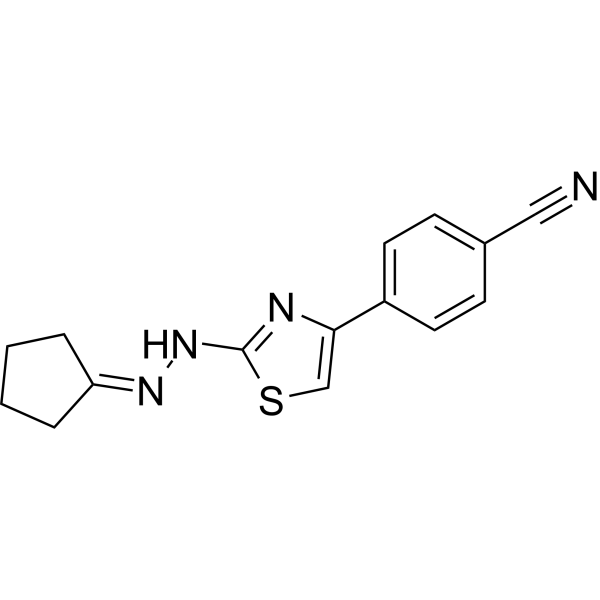
- HY-130173
-
|
|
Bacterial
Fungal
Na+/K+ ATPase
Apoptosis
Antibiotic
|
Infection
Cancer
|
|
Bafilomycin C1 is a macrolide antibiotic isolated from Streptomyces sp. Bafilomycin C1 is a potent, specific and reversible inhibitor of vacuolar-type H +-ATPases (V-ATPases). Bafilomycin C1 inhibits growth of gram-positive bacteria and fungi . Bafilomycin C1 induces cell apoptosis and can be used for the study of hepatocellular carcinoma (HCC) .
|
-
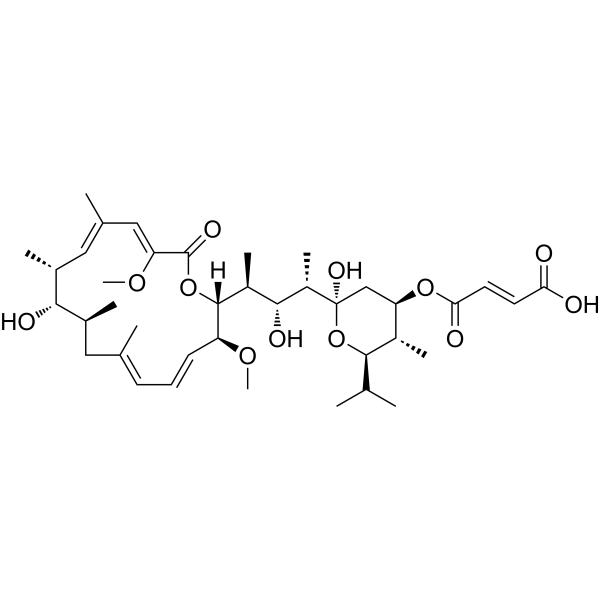
- HY-139782
-
|
|
Histone Demethylase
Apoptosis
|
Cancer
|
|
SKLB325 is a Jumonji domain-containing 6 (JMJD6) inhibitor with a binding affinity (KD) value of 0.755 μM, and the IC50 value of 0.7797 μM. SKLB325 exhibits antitumor effects on ovarian cancer in vivo and in vitro. SKLB325 induces apoptosis . SKLB325 exhibits remarkable antitumor efficacy in renal cell carcinoma (RCC) .
|
-
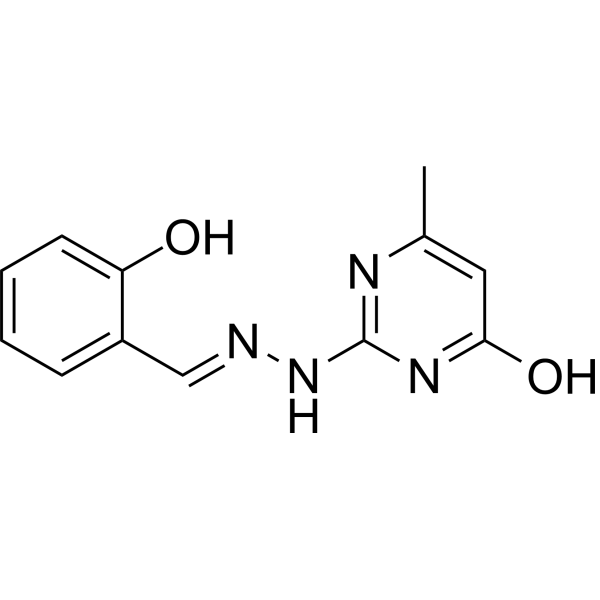
- HY-122615
-
|
|
Others
|
Cancer
|
|
SPOP-IN-6b is a speckle-type POZ protein (SPOP) inhibitor with an IC50 of 3.58 μM (patent CN 107141287, SPOP-B-88) .
|
-
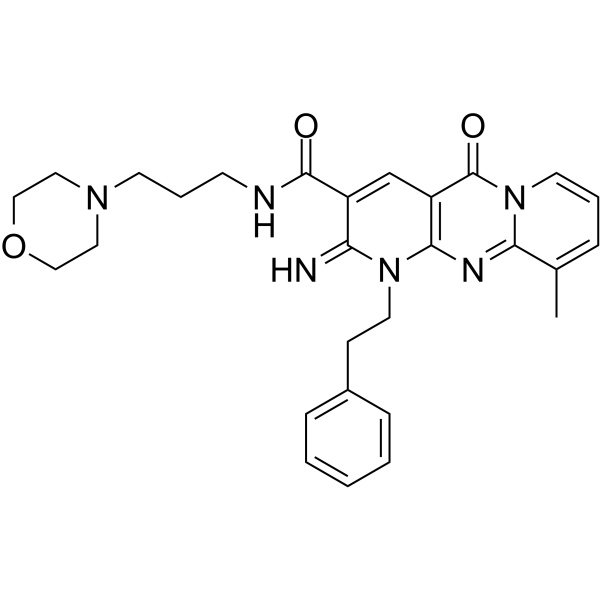
- HY-N0213
-
|
Verticinone; Raddeanine
|
Autophagy
Caspase
Bcl-2 Family
PARP
p38 MAPK
ERK
NF-κB
Apoptosis
|
Inflammation/Immunology
Cancer
|
|
Peiminine is a compound that can be isolated from Bolbostemma paniculatum (Maxim) Franquet (Cucurbitaceae family). Peiminine can induce apoptosis in human hepatocellular carcinoma HepG2 cells through both extrinsic and intrinsic apoptotic pathways. Peiminine has anti-inflammatory, anticancer, anti-osteoporosis, cardioprotective and other activities in many animal models .
|
-
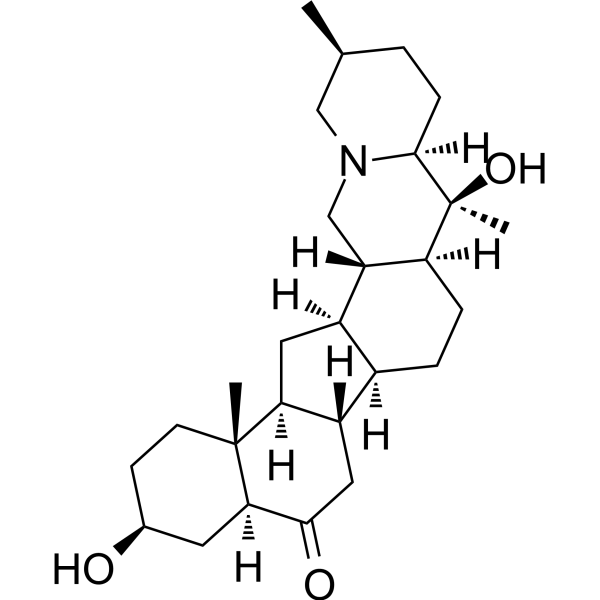
- HY-N0245
-
|
|
Others
|
Cancer
|
|
Theaflavin-3-gallate, a black tea theaflavin monomer, is regarded as the biologically important active component of black tea and provides health benefits. Theaflavin-3-gallate acts as prooxidants and induces oxidative stress in the carcinoma cells. Theaflavin-3-gallate reacts directly with reduced glutathione (GSH) in a time- and concentration-dependent manner .
|
-
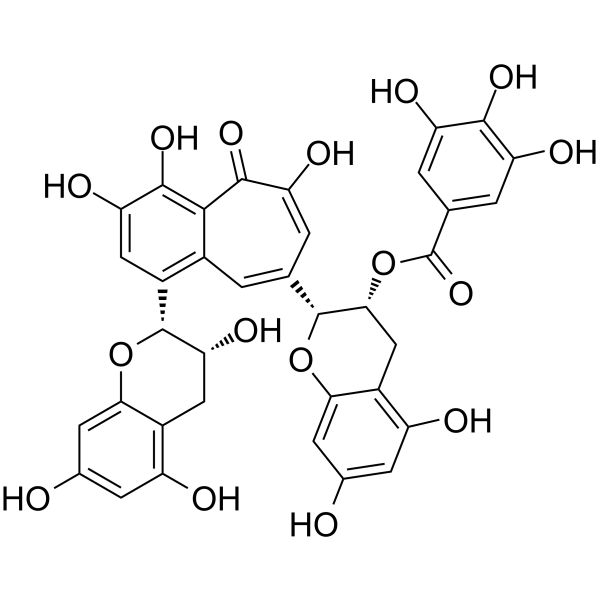
- HY-N0244
-
|
|
Others
|
Cancer
|
|
Theaflavin-3'-gallate, a black tea theaflavin monomer, is regarded as the biologically important active component of black tea and provides health benefits. Theaflavin-3'-gallate acts as prooxidants and induces oxidative stress in the carcinoma cells. Theaflavin-3'-gallate reacts directly with reduced glutathione (GSH) in a time- and concentration-dependent manner .
|
-
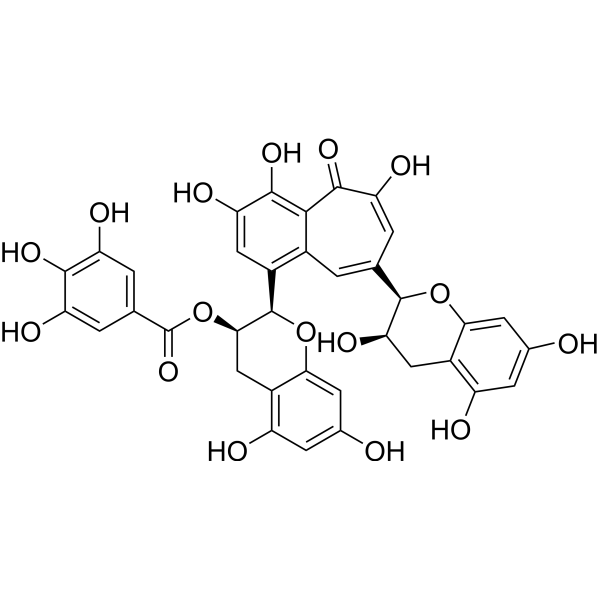
- HY-N7020
-
|
|
Others
|
Cancer
|
|
Cinobufaginol is a natural bufadienolide isolated from toad venom which has been widely used for centuries in China to treat different diseases, especially for cancer. Cinobufaginol potently inhibits the activity against human nasopharyngeal carcinoma cell lines with IC50s of 803 μΜ and 1.270 μΜ for CNE-1 and CNE-2Z, respectively .
|
-
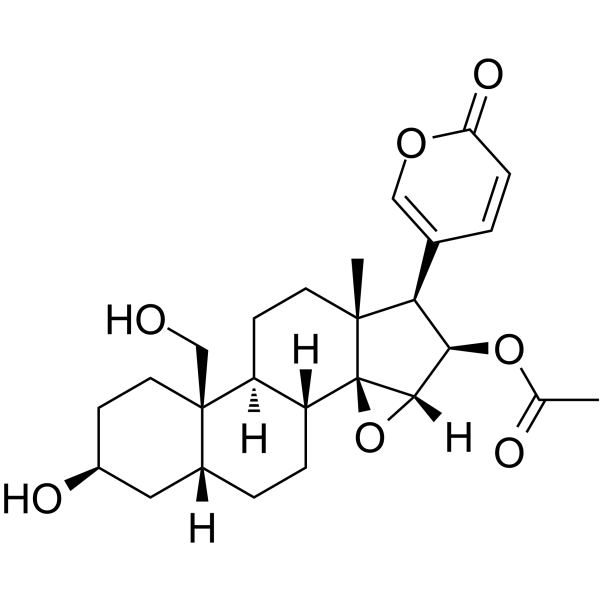
- HY-N0462
-
|
|
Reverse Transcriptase
Bacterial
Apoptosis
Autophagy
|
Infection
Inflammation/Immunology
Cancer
|
|
Corilagin, a gallotannin, has anti-tumor, anti-inflammatory and hepatoprotective activities. Corilagin inhibits activity of reverse transcriptase of RNA tumor viruses. Corilagin also inhibits the growth of Staphylococcus aureus with a MIC of 25 μg/mL. Corilagin shows anti-tumor activity on hepatocellular carcinoma and ovarian cancer model. Corilagin shows low toxicity to normal cells and tissues .
|
-
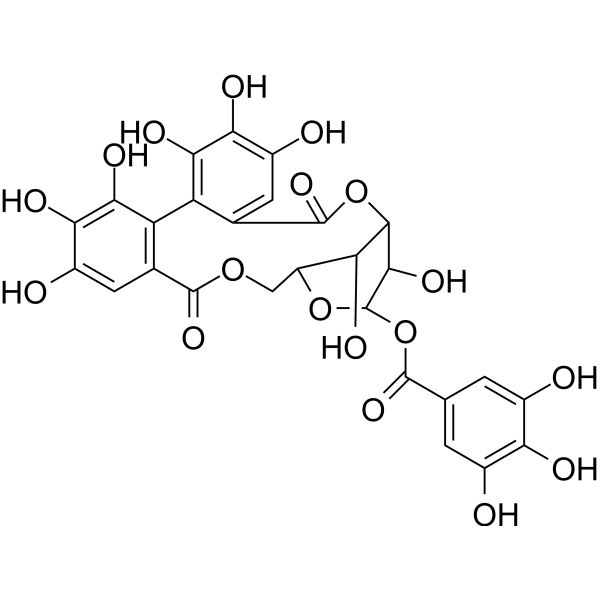
- HY-142125
-
|
|
Xanthine Oxidase
Reactive Oxygen Species
Apoptosis
|
Inflammation/Immunology
Cancer
|
|
Broussochalcone A is an antioxidant and an inhibitor of Xanthine Oxidase (IC50=2.21 μM), with free radical scavenging activity. Broussochalcone A inhibits iron-induced lipid peroxidation and nitric oxide synthesis in lipopolysaccharide (LPS) -activated macrophages. Broussochalcone A also induces Apoptosis of human renal carcinoma cells by increasing ROS levels and activating FOXO3 signaling pathways .
|
-
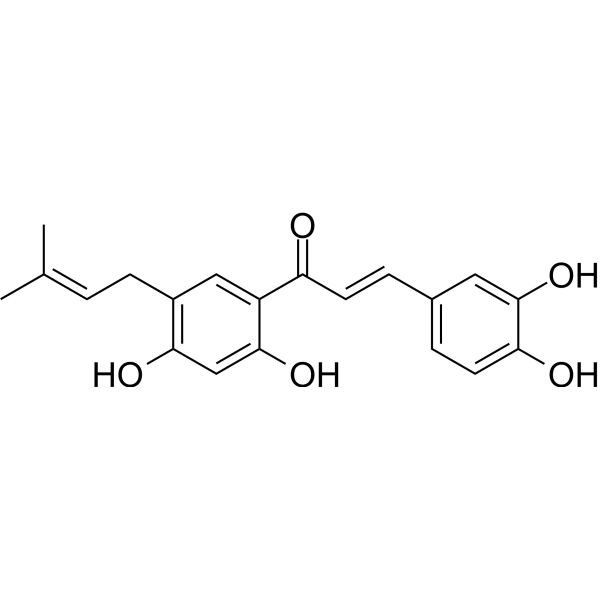
- HY-116758
-
|
di-Me-PGA1
|
DNA/RNA Synthesis
HIV
HSV
|
Infection
Cancer
|
|
16,16-Dimethyl prostaglandin A1 (di-Me-PGA1) is a prostaglandin analog that can inhibit DNA synthesis in Lewis lung carcinoma and B 16 amelanotic melanoma cells. 16,16-Dimethyl prostaglandin A1 also inhibits viral replication in both HSV and HIV-1 infection systems .
|
-
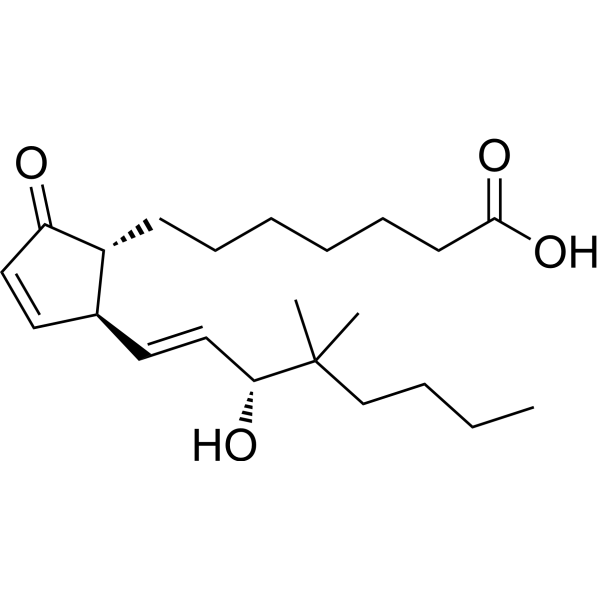
- HY-122214
-
AC-73
3 Publications Verification
|
Autophagy
|
Cancer
|
|
AC-73 is a first specific, orally active inhibitor of cluster of differentiation 147 (CD147), which specifically disrupts CD147 dimerization, thereby mainly suppressing the CD147/ERK1/2/STAT3/MMP-2 pathways. AC-73 inhibits the motility and invasion of hepatocellular carcinoma cells . AC-73 is also an anti-proliferative agent and an inducer of autophagy in leukemic cells .
|
-
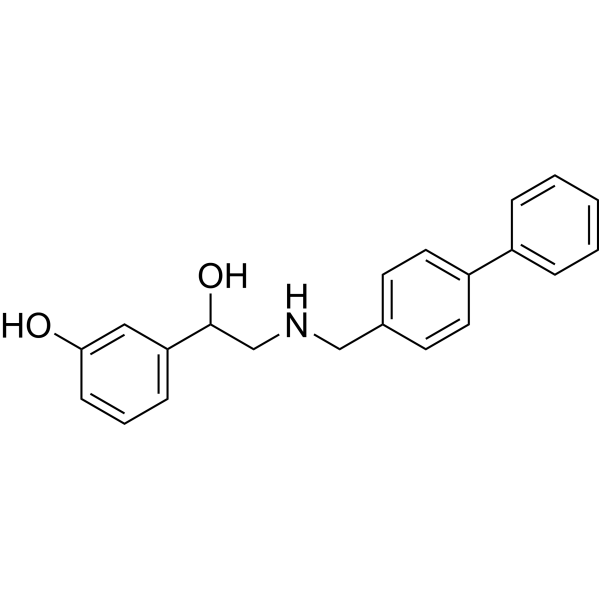
- HY-150526
-
|
|
Endogenous Metabolite
Apoptosis
|
Inflammation/Immunology
Cancer
|
|
EGCG-4″-sulfate is a major polyphenol in green tea, which can inhibit cell proliferation and induce cell apoptosis. (-)-Epigallocatechin Gallate sulfate inhibits glutamate dehydrogenase 1/2 (GDH1/2, GLUD1/2) activity. EGCG-4″-sulfate has a potent anticancer, antioxidant and anti-inflammatory properties against various types of cancers such as colorectal cancer, myeloid leukemia, thyroid carcinoma .
|
-
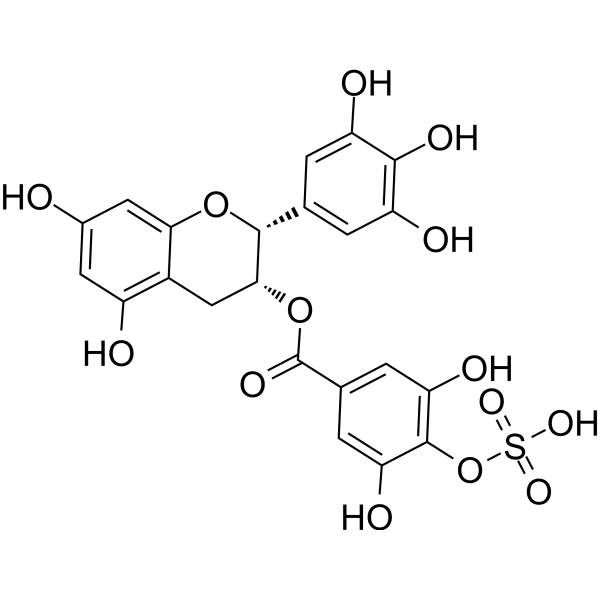
- HY-B0185G
-
|
Lignocaine
|
Apoptosis
Sodium Channel
MEK
ERK
NF-κB
|
Cancer
|
|
Lidocaine (GMP) is Lidocaine (HY-B0185) produced by using GMP guidelines. GMP small molecules work appropriately as an auxiliary reagent for cell therapy manufacture. Lidocaine inhibits sodium channels involving complex voltage and using dependence . Lidocaine decreases growth, migration and invasion of gastric carcinoma cells via up-regulating miR-145 expression and further inactivation of MEK/ERK and NF-κB signaling pathways. Lidocaine is an amide derivative and has potential for the research of ventricular arrhythmia .
|
-
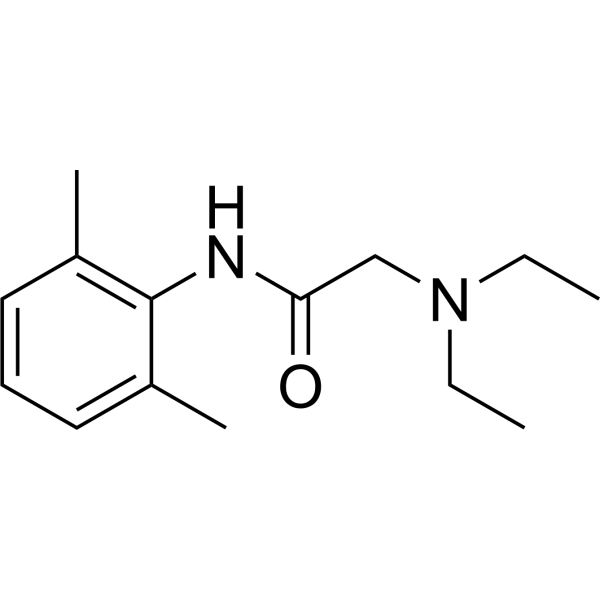
- HY-10226
-
|
R306465
|
Apoptosis
HDAC
|
Cancer
|
|
JNJ-16241199 is an orally active, selective hydroxamate-based histone deacetylase (HDAC) inhibitor, with the IC50 of 3.3 nM and 23 nM for HDAC1 and HDAC8, respectively. JNJ-16241199 induces histone 3 acetylation and strongly increases the expression of p21 waf1, cip1 in A2780 ovarian carcinoma cells. JNJ-16241199 induces cell apoptosis and shows anticancer activity in a broad spectrum of human malignancies. JNJ-16241199 can be used for cancer study .
|
-
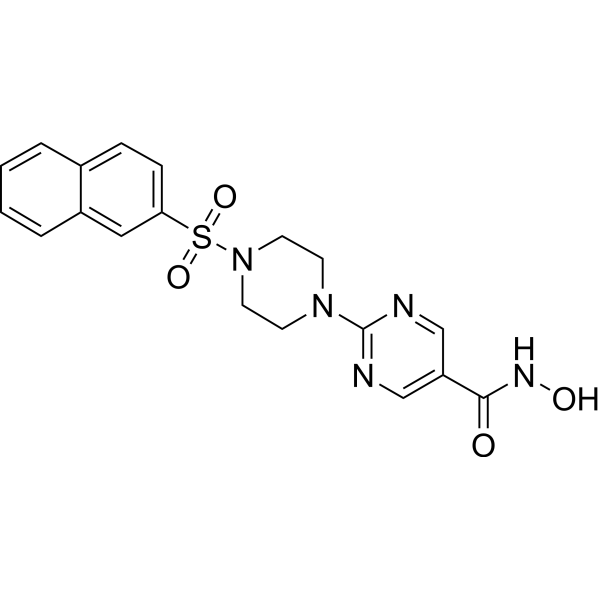
- HY-16706A
-
|
|
Histone Acetyltransferase
|
Cancer
|
|
Remodelin hydrobromide is an orally active and selective inhibitor of acetyltransferase NAT10. Remodelin hydrobromide inhibits NAT10 activitity and slows DNA replication and suppresses growth of prostate cancer cells. Remodelin hydrobromide inhibits the growth of prostate cancer and hepatocellular carcinoma in xenograft model. Remodelin hydrobromide enhances the healthspan in hutchinson-gilford progeria syndrome (HGPS) mouse model .
|
-
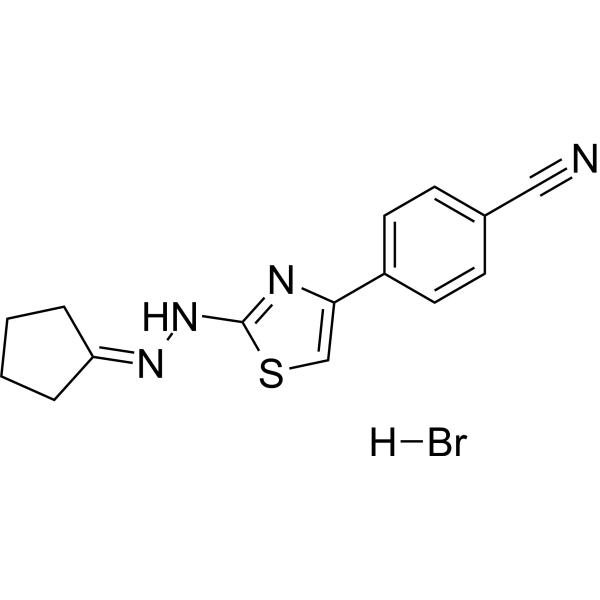
- HY-15673
-
KP372-1
1 Publications Verification
|
Akt
Reactive Oxygen Species
Apoptosis
|
Cancer
|
|
KP372-1 is an Akt inhibitor that inhibits proliferation and induces apoptosis and anoikis. KP372-1 is also an NQO1 redox cycling agent that causes DNA damage (including DNA breakage) by generating ROS. KP372-1 can be used in cancer research (such as head and neck squamous cell carcinoma (HNSCC) and pancreatic cancer) .
|
-
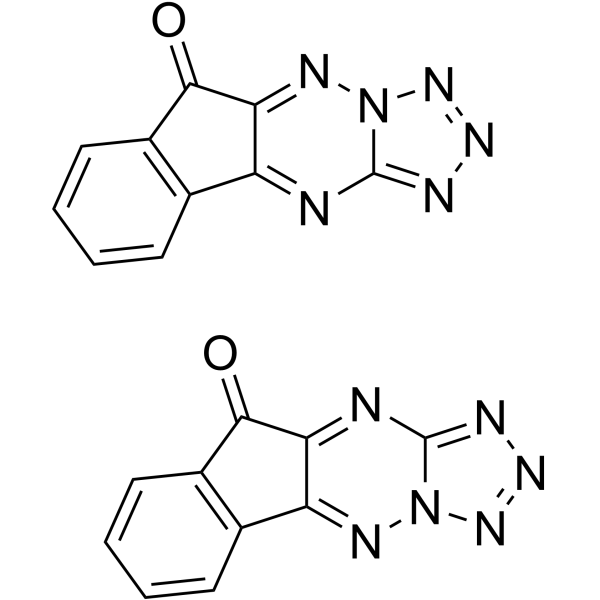
- HY-158058
-
|
|
Toll-like Receptor (TLR)
Pyroptosis
|
Inflammation/Immunology
Cancer
|
|
WYJ-2 is a selective agonist for toll-like receptor 2/1 (TLR2/1) with EC50 of 18.57 nM in human TLR2 and TLR1 transient-cotransfected HEK 293T cells. WYJ-2 induces pyroptosis and exhibits anticancer activity against non-small cell lung cancer (NSCLC) .
|
-
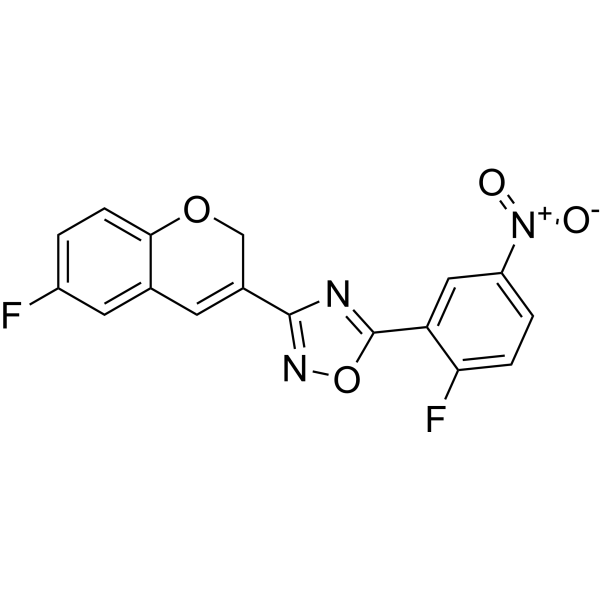
- HY-10261
-
|
BIBW 2992
|
EGFR
Autophagy
Apoptosis
c-Met/HGFR
Akt
p38 MAPK
|
Cancer
|
|
Afatinib (BIBW 2992) is an orally active, potent and irreversible dual specificity inhibitor of ErbB family (EGFR and HER2), with IC50 values of 0.5 nM, 0.4 nM, 10 nM and 14 nM for EGFR wt, EGFR L858R, EGFR L858R/T790M and HER2, respectively. Afatinib can be used for the research of esophageal squamous cell carcinoma (ESCC), non-small cell lung cancer (NSCLC) and gastric cancer .
|
-
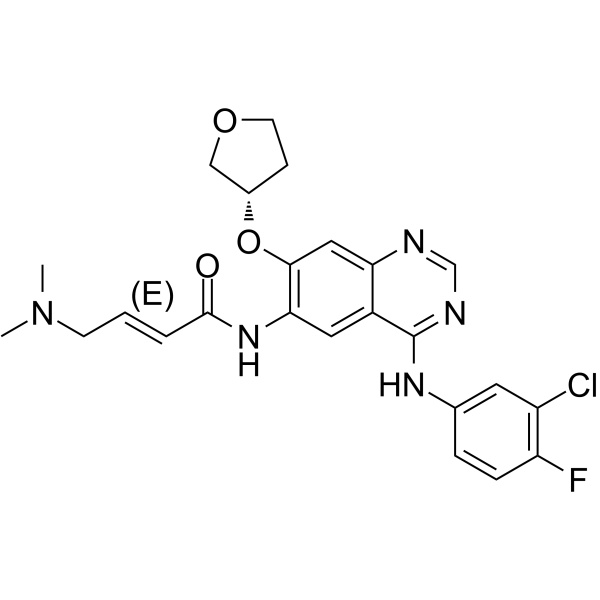
- HY-10261A
-
|
BIBW 2992MA2
|
EGFR
Autophagy
Apoptosis
c-Met/HGFR
Akt
p38 MAPK
|
Cancer
|
|
Afatinib (BIBW 2992) dimaleate is an orally active, potent and irreversible dual specificity inhibitor of ErbB family (EGFR and HER2), with IC50 values of 0.5 nM, 0.4 nM, 10 nM and 14 nM for EGFR wt, EGFR L858R, EGFR L858R/T790M and HER2, respectively. Afatinib dimaleate can be used for the research of esophageal squamous cell carcinoma (ESCC), non-small cell lung cancer (NSCLC) and gastric cancer .
|
-
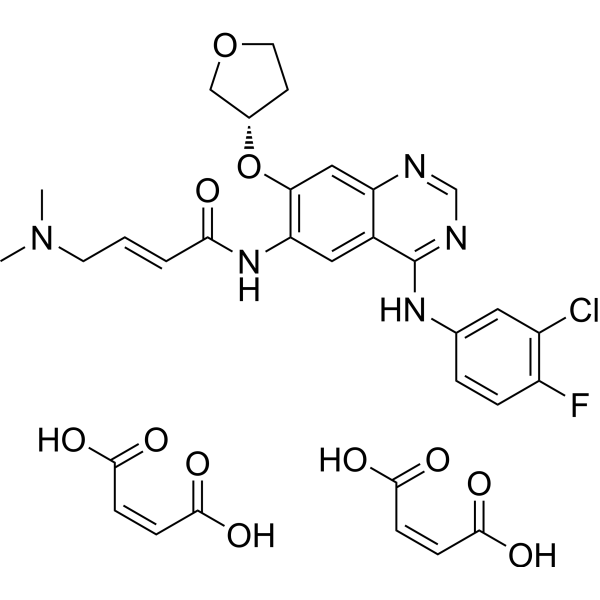
- HY-10261D
-
|
BIBW 2992 oxalate
|
EGFR
Autophagy
Apoptosis
c-Met/HGFR
Akt
|
Cancer
|
|
Afatinib (BIBW 2992) oxalate is an orally active, potent and irreversible dual specificity inhibitor of ErbB family (EGFR and HER2), with IC50 values of 0.5 nM, 0.4 nM, 10 nM and 14 nM for EGFR wt, EGFR L858R, EGFR L858R/T790M and HER2, respectively. Afatinib oxalate can be used for the research of esophageal squamous cell carcinoma (ESCC), non-small cell lung cancer (NSCLC) and gastric cancer .
|
-
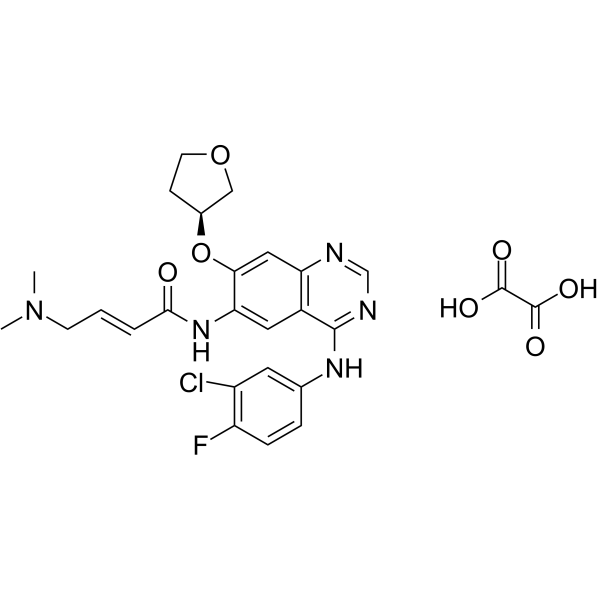
- HY-13653R
-
|
EGCG(Standard); Epigallocatechol Gallate (Standard)
|
Endogenous Metabolite
Apoptosis
|
Inflammation/Immunology
Cancer
|
|
(-)-Epigallocatechin Gallate (Standard) is the analytical standard of (-)-Epigallocatechin Gallate. This product is intended for research and analytical applications. (-)-Epigallocatechin Gallate (EGCG) is a major polyphenol in green tea, which can inhibit cell proliferation and induce cell apoptosis. (-)-Epigallocatechin Gallate inhibits glutamate dehydrogenase 1/2 (GDH1/2, GLUD1/2) activity. (-)-Epigallocatechin Gallate has a potent anticancer, antioxidant and anti-inflammatory properties against various types of cancers such as colorectal cancer, myeloid leukemia, thyroid carcinoma .
|
-
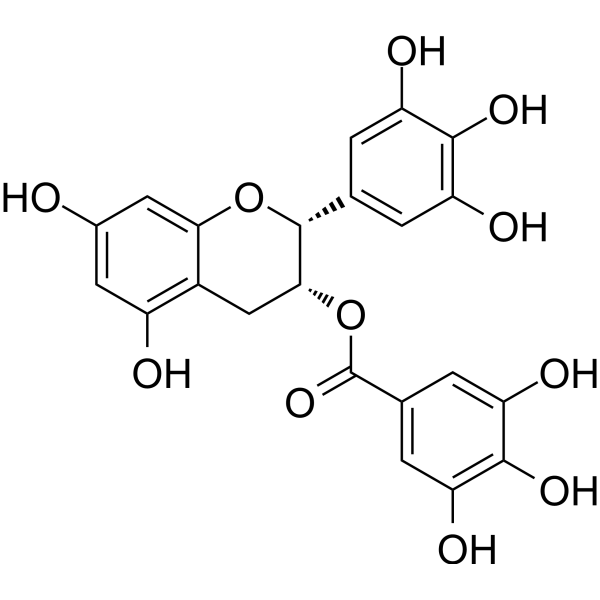
- HY-B0185AS
-
|
|
Sodium Channel
MEK
ERK
NF-κB
Apoptosis
|
Cardiovascular Disease
Cancer
|
|
Lidocaine-d10 (hydrochloride) is the deuterium labeled Lidocaine hydrochloride. Lidocaine hydrochloride (Lignocaine hydrochloride) inhibits sodium channels involving complex voltage and using dependence[1]. Lidocaine hydrochloride decreases growth, migration and invasion of gastric carcinoma cells via up-regulating miR-145 expression and further inactivation of MEK/ERK and NF-κB signaling pathways. Lidocaine hydrochloride, an amide derivative, has the potential for the research of the ventricular arrhythmia[2].
|
-
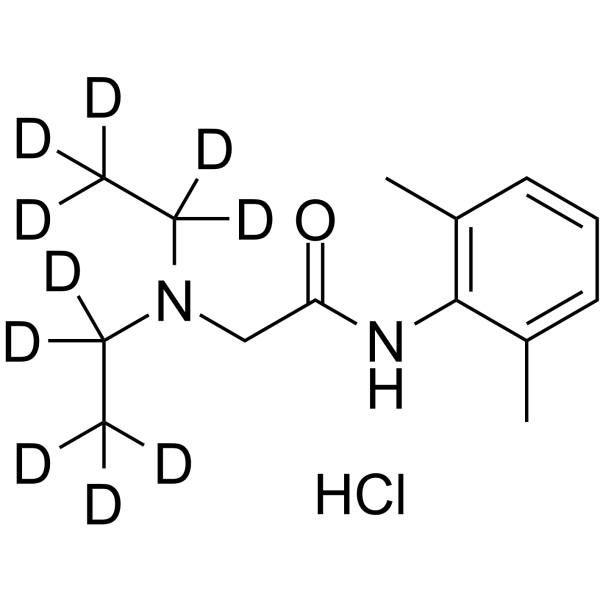
- HY-B0185S1
-
|
|
Sodium Channel
MEK
ERK
NF-κB
Apoptosis
|
Cardiovascular Disease
Cancer
|
|
Lidocaine-d10 is the deuterium labeled Lidocaine. Lidocaine (Lignocaine) inhibits sodium channels involving complex voltage and using dependence[1]. Lidocaine decreases growth, migration and invasion of gastric carcinoma cells via up-regulating miR-145 expression and further inactivation of MEK/ERK and NF-κB signaling pathways. Lidocaine is an amide derivative and has potential for the research of ventricular arrhythmia[2].
|
-
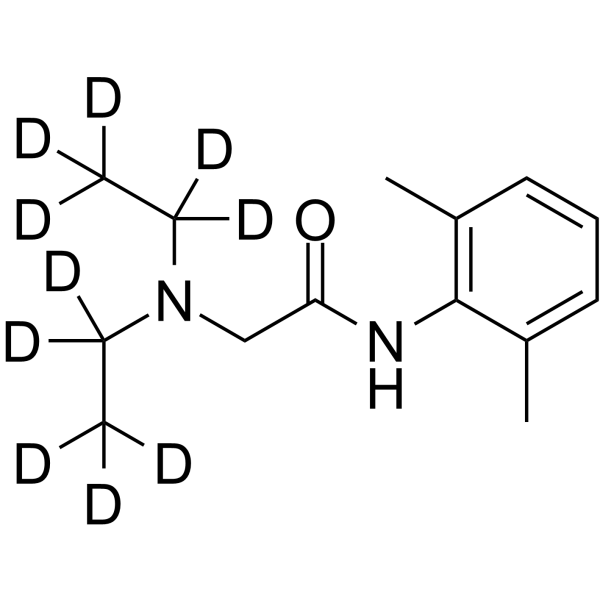
- HY-103018
-
|
ASN-002
|
JAK
Syk
|
Inflammation/Immunology
Cancer
|
|
Gusacitinib (ASN-002) is an orally active dual SYK/JAK kinase inhibitor with IC50 values of 5, 46, 4, 11 and 8 nM for SYK, JAK1, JAK2, JAK3 and TYK2, respectively. Gusacitinib rapidly and significantly suppressed key inflammatory pathways implicated in atopic dermatitis pathogenesis. Gusacitinib can be used in the research of chronic hand eczema and cancers such as basal cell carcinoma .
|
-
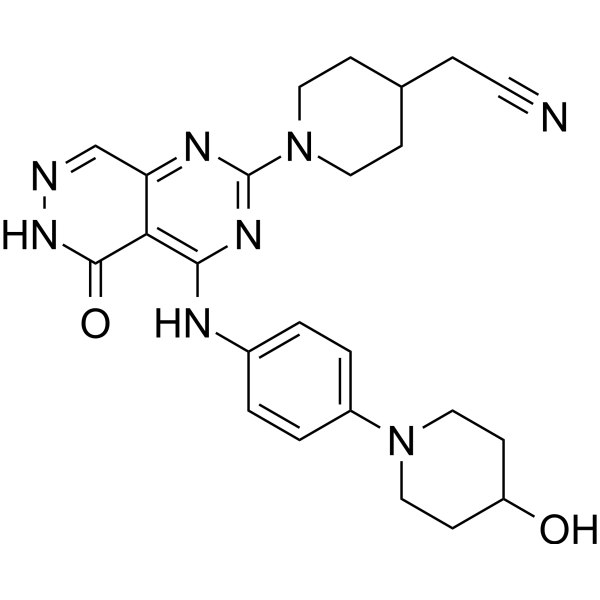
- HY-B0185S
-
|
|
Sodium Channel
MEK
ERK
NF-κB
Apoptosis
|
Cardiovascular Disease
Cancer
|
|
N-Oxide Lidocaine-d10 is the deuterium labeled Lidocaine. Lidocaine (Lignocaine) inhibits sodium channels involving complex voltage and using dependence[1]. Lidocaine decreases growth, migration and invasion of gastric carcinoma cells via up-regulating miR-145 expression and further inactivation of MEK/ERK and NF-κB signaling pathways. Lidocaine is an amide derivative and has potential for the research of ventricular arrhythmia[2].
|
-
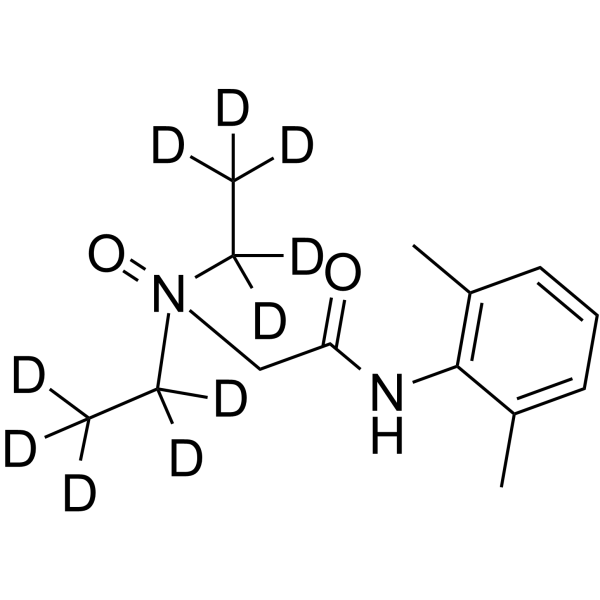
- HY-B0185AS1
-
|
Lignocaine-d6 hydrochloride
|
Sodium Channel
MEK
ERK
NF-κB
Apoptosis
|
Cardiovascular Disease
Cancer
|
|
Lidocaine-d6 (hydrochloride) is deuterium labeled Lidocaine (hydrochloride). Lidocaine hydrochloride (Lignocaine hydrochloride) inhibits sodium channels involving complex voltage and using dependence[1]. Lidocaine hydrochloride decreases growth, migration and invasion of gastric carcinoma cells via up-regulating miR-145 expression and further inactivation of MEK/ERK and NF-κB signaling pathways. Lidocaine hydrochloride is an amide derivative and a agent to treat ventricular arrhythmia and an effective tumor-inhibitor[2].
|
-
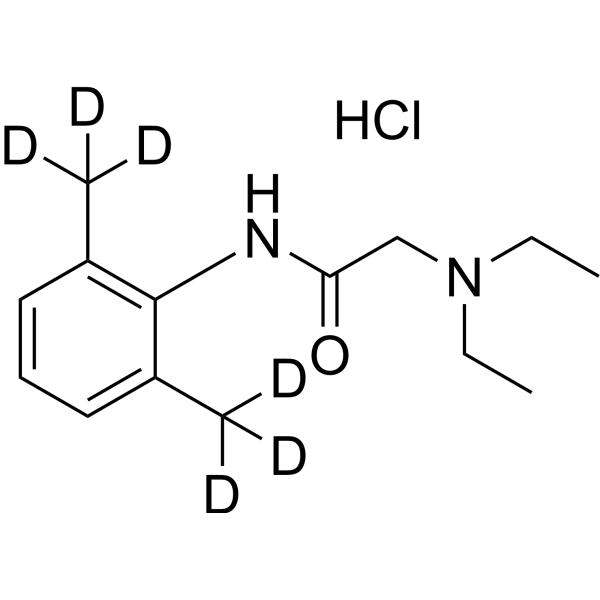
- HY-103018A
-
|
ASN-002 hydrochloride
|
JAK
Syk
|
Inflammation/Immunology
Cancer
|
|
Gusacitinib (ASN-002) hydrochloride is an orally active dual SYK/JAK kinase inhibitor with IC50 values of 5, 46, 4, 11 and 8 nM for SYK, JAK1, JAK2, JAK3 and TYK2, respectively. Gusacitinib hydrochloride rapidly and significantly suppressed key inflammatory pathways implicated in atopic dermatitis pathogenesis. Gusacitinib hydrochloride can be used in the research of chronic hand eczema and cancers such as basal cell carcinoma .
|
-
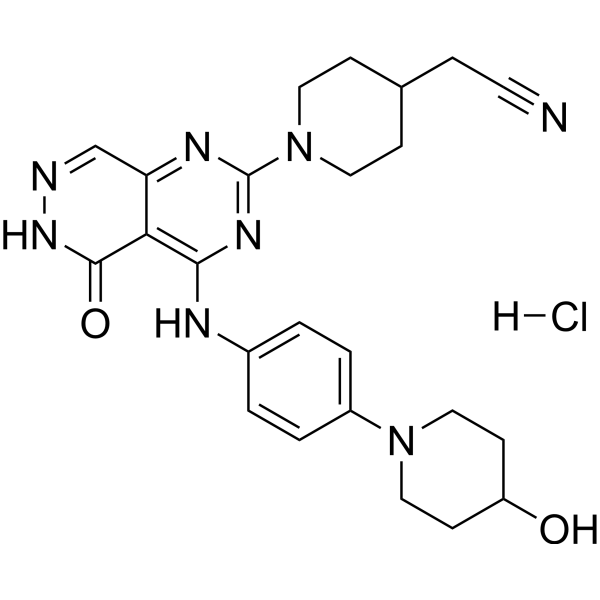
- HY-B0185R
-
|
Lignocaine (Standard)
|
Sodium Channel
MEK
ERK
NF-κB
Apoptosis
|
Cardiovascular Disease
Cancer
|
|
Lidocaine (Standard) is the analytical standard of Lidocaine. This product is intended for research and analytical applications. Lidocaine (Lignocaine) inhibits sodium channels involving complex voltage and using dependence . Lidocaine decreases growth, migration and invasion of gastric carcinoma cells via up-regulating miR-145 expression and further inactivation of MEK/ERK and NF-κB signaling pathways. Lidocaine is an amide derivative and has potential for the research of ventricular arrhythmia .
|
-
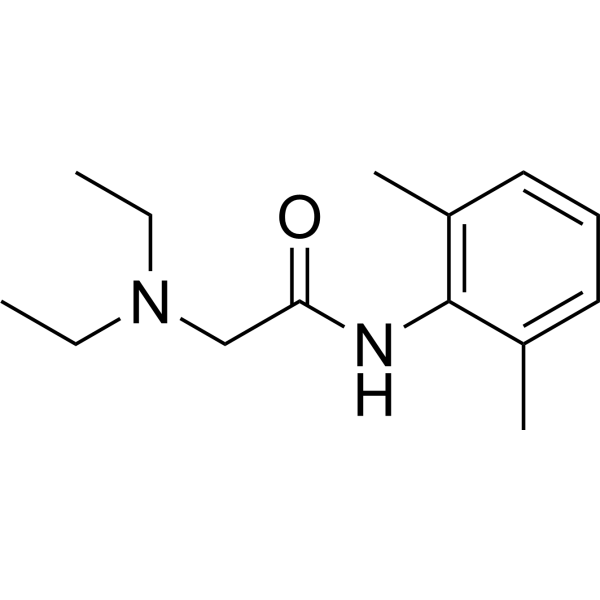
- HY-N0105
-
-
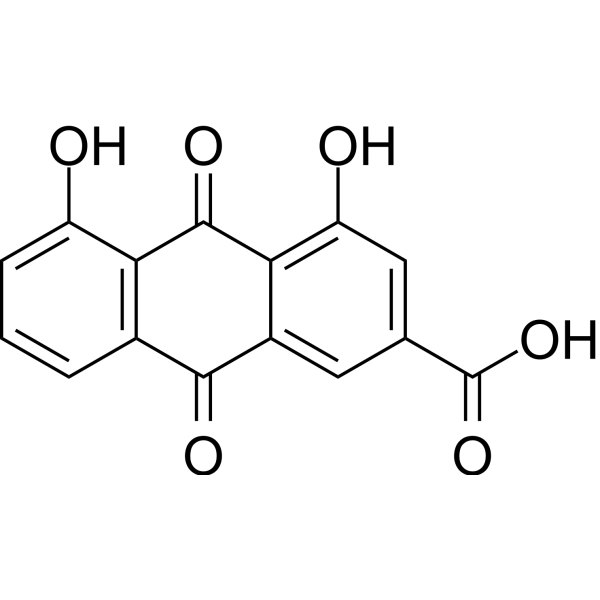
- HY-N7496
-
|
|
Apoptosis
|
Cancer
|
|
Odoroside A is an active ingredient extracted from the leaves of Nerium oleander Linn. Odoroside A has anti-cancer activity. Odoroside A could induce apoptosis and cell cycle arrest through ROS/p53 signaling pathway, leading to the tumor cell death .
|
-
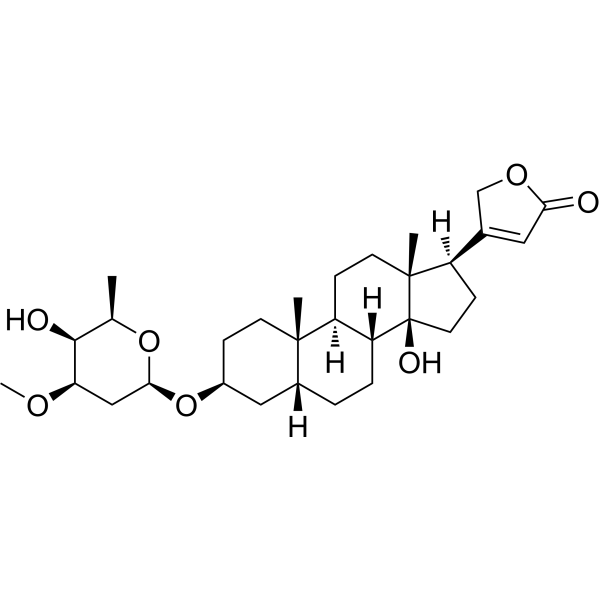
- HY-16196
-
|
IRC-110160
|
Microtubule/Tubulin
HIF/HIF Prolyl-Hydroxylase
STAT
|
Cancer
|
|
ENMD-1198 (IRC-110160), an orally active microtubule destabilizing agent, is a 2-methoxyestradiol analogue with antiproliferative and antiangiogenic activity. ENMD-1198 is suitable for inhibiting HIF-1alpha and STAT3 in human HCC cells and leads to reduced tumor growth and vascularization.
|
-
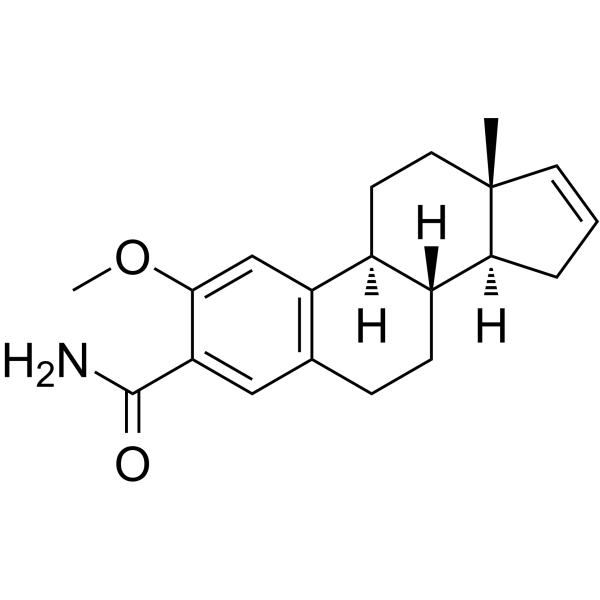
- HY-147977
-
|
|
Aldose Reductase
|
Cancer
|
|
ALR1/2-IN-1 (Compound 6e) is an aldehyde reductase (ALR1) and aldose reductase (ALR2) inhibitor with IC50 values of 3.26 μM and 3.06 μM against ALR1 and ALR2, respectively. ALR1/2-IN-1 shows anticancer activity .
|
-
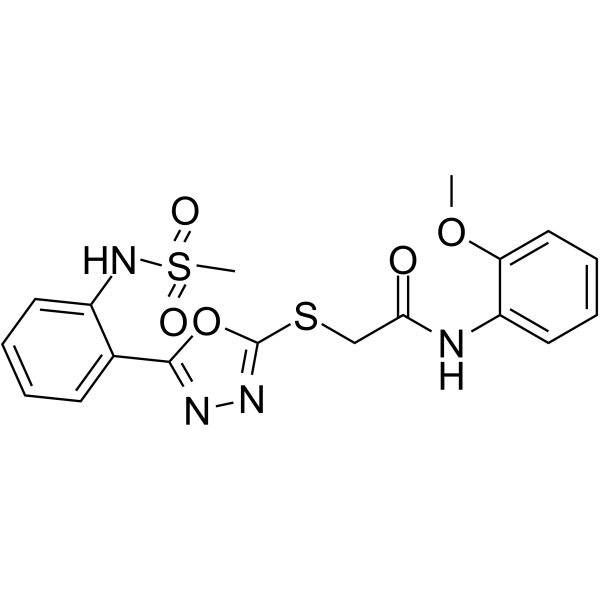
- HY-148046
-
|
|
Deubiquitinase
|
Cancer
|
|
USP15-IN-1 is a potent USP15 inhibitor with an IC50 value of 3.76 μM. USP15-IN-1 can be used for researching anticancer .
|
-
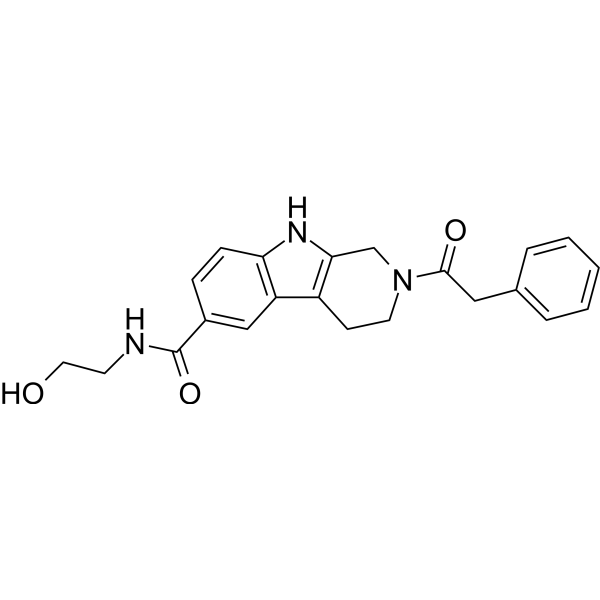
- HY-P99715
-
|
ABT-806
|
EGFR
|
Cancer
|
|
Losatuxizumab (ABT-806) is an anti-EGFR monoclonal antibody. Losatuxizumab binds to EGFR with EC50s of 0.96 nM for EGFR wild-type, 0.09 nM for EGFR C271A,C283A, 0.12 nM for EGFRvIII, 0.66 nM for EGFR1-501. Losatuxizumab can be used for research of EGFR-expressing cancers .
|
-

- HY-124651
-
|
|
NF-κB
MMP
|
Inflammation/Immunology
Cancer
|
|
SEMBL is a potent NF-κB inhibitor. SEMBL can inhibit NF-κB-DNA binding, and also inhibits NF-κB-dependent inflammatory cytokine secretions. SEMBL inhibits cancer cell migration and invasion via decreasing MMP expression. SEMBL can be used for researching anticancer .
|
-
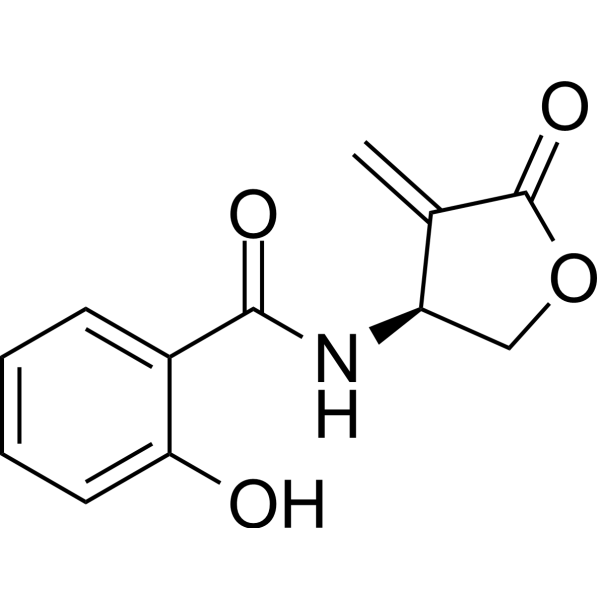
- HY-10029
-
|
Rebemadlin
|
MDM-2/p53
E1/E2/E3 Enzyme
Autophagy
Apoptosis
|
Cancer
|
|
Nutlin-3a (Rebemadlin), an active enantiomer of Nutlin-3, is a potent murine double minute (MDM2) inhibitor (IC50=90 nM). Nutlin-3a inhibits MDM2-p53 interactions and stabilizes the p53 protein, and induces cell autophagy and apoptosis. Nutlin-3a has the potential for the study of TP53 wild-type ovarian carcinomas .
|
-
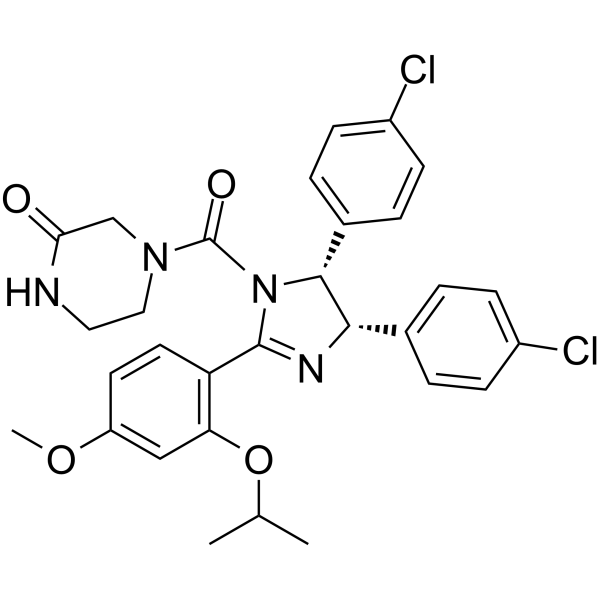
- HY-110088
-
|
|
MDM-2/p53
|
Cancer
|
|
SCH529074 is a potent and orally active p53 activator. SCH529074 binds specifically and conformation-dependently to p53 DBD ( DNA binding domain) with a Ki of 1-2 μM in a saturable manner. SCH529074 restores mutant p53 function and interrupts HDM2-mediated ubiquitination of wild Type p53. SCH529074 can be used for the study of non-small-cell lung carcinoma (NSCLC) .
|
-
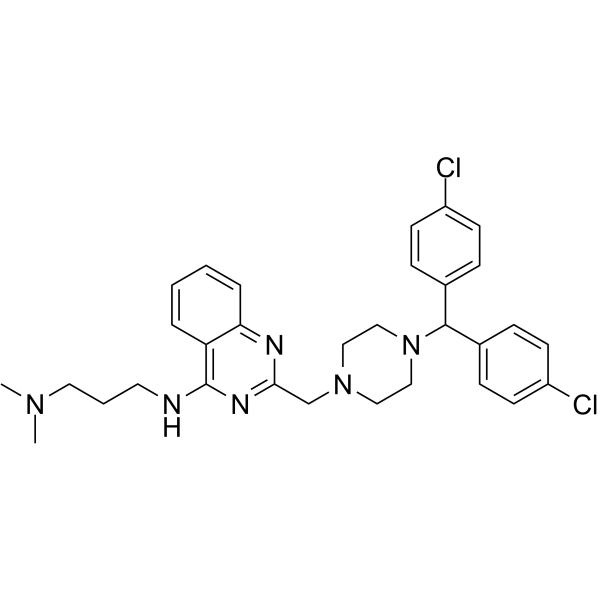
- HY-10029A
-
|
(Rac)-Rebemadlin
|
MDM-2/p53
Autophagy
Apoptosis
E1/E2/E3 Enzyme
|
Cancer
|
|
(Rac)-Nutlin-3 (Rebemadlin), an active enantiomer of Nutlin-3, is a potent murine double minute (MDM2) inhibitor (IC50=90 nM). (Rac)-Nutlin-3 inhibits MDM2-p53 interactions and stabilizes the p53 protein, and induces cell autophagy and apoptosis. (Rac)-Nutlin-3 has the potential for the study of TP53 wild-type ovarian carcinomas .
|
-
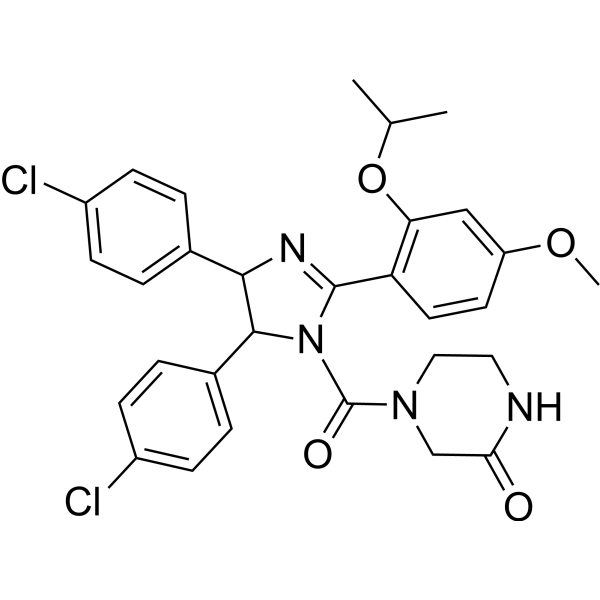
- HY-149913
-
|
|
Others
|
Cancer
|
|
NR2F1 agonist 1, a nuclear receptor NR2F1 agonist, specifically activates dormancy programs in malignant cells. NR2F1 agonist 1 up-regulates NR2F1 and downstream target genes that regulate dormancy. NR2F1 agonist 1 induces neural crest-like and growth suppression in head and neck squamous cell carcinoma (HNSCC) via NR2F1 activation. NR2F1 agonist 1 inhibits tumor growth in a mouse primary tumor model .
|
-
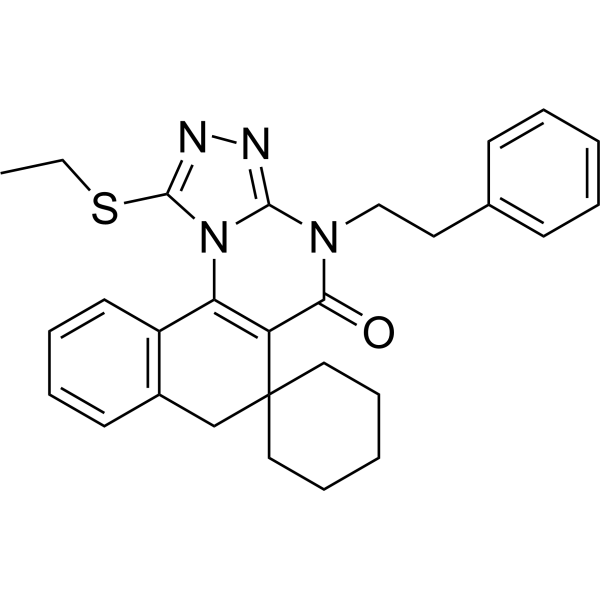
- HY-137465
-
|
|
Trk Receptor
|
Cancer
|
|
CG428 is a potent and selective tropomyosin receptor kinase (TRK) degrader that has anti-tumor activity. CG428 reduces levels of the tropomyosin 3 (TPM3)-TRKA fusion protein in KM12 colorectal carcinoma cells (DC50 = 0.36 nM) and inhibits downstream PLCγ1phosphorylation (IC50 = 0.33 nM). CG428 has a higher binding affinity for TRKA than TRKB and TRKC (Kd = 1 nM, 28 nM and 4.2 nM, respectively). In addition, CG428 effectively inhibits KM12 cell growth (IC50 = 2.9 nM) .
|
-
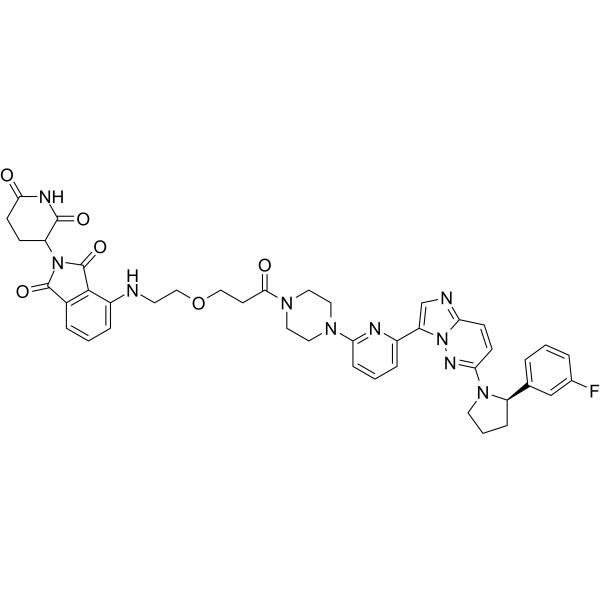
- HY-10261E
-
|
(R)-BIBW 2992
|
EGFR
c-Met/HGFR
p38 MAPK
|
Cancer
|
|
(R)-Afatinib ((R)-BIBW 2992) is the Afatinib isomer. Afatinib (HY-10261) is an orally active, potent and irreversible dual specificity inhibitor of ErbB family (EGFR and HER2), with IC50 values of 0.5 nM, 0.4 nM, 10 nM and 14 nM for EGFR wt, EGFR L858R, EGFR L858R/T790M and HER2, respectively. Afatinib can be used for the research of esophageal squamous cell carcinoma (ESCC), non-small cell lung cancer (NSCLC) and gastric cancer .
|
-
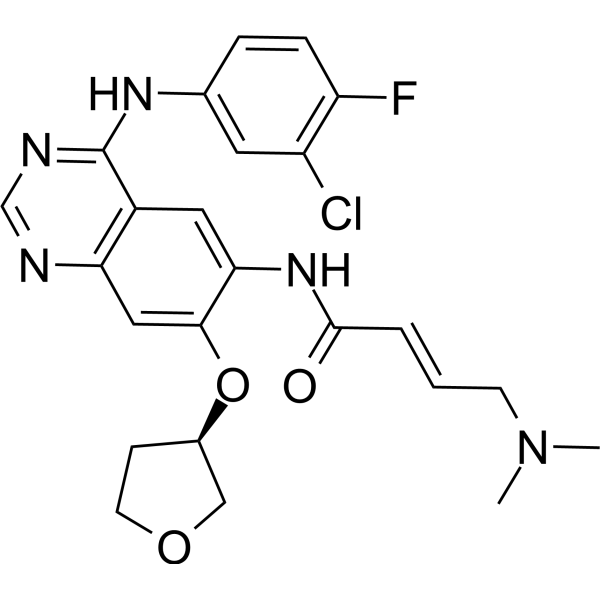
- HY-N10009
-
|
|
NF-κB
TNF Receptor
COX
ERK
p38 MAPK
Sirtuin
|
Inflammation/Immunology
|
|
Cudraflavone B is a prenylated flavonoid with anti-inflammatory and anti-tumor properties. Cudraflavone B is also a dual inhibitor of COX-1 and COX-2. Cudraflavone B blocks the translocation of nuclear factor κB (NF-κB) from the cytoplasm to the nucleus in macrophages. Thus, Cudraflavone B inhibits tumor necrosis factor α (TNFα) gene expression and secretion. Cudraflavone B also triggers the mitochondrial apoptotic pathway, activates NF-κB, the MAPK p38, and ERK, and induced the expression of SIRT1. Thus Cudraflavone B inhibits the growth of human oral squamous cell carcinoma cells .
|
-
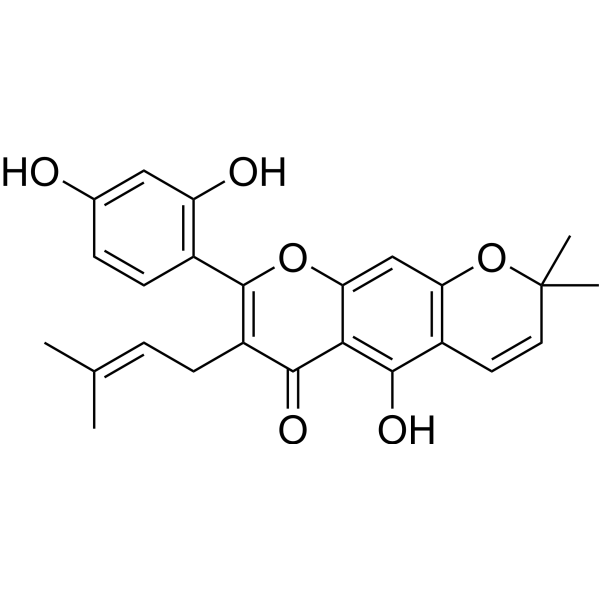
- HY-N0636
-
|
|
Apoptosis
|
Cancer
|
|
Eriocitrin is a flavonoid isolated from lemons that is a powerful antioxidant. Eriocitrin inhibits the proliferation of liver cancer cells by arresting the cell cycle in the S phase by upregulating p53, cyclin A, cyclin D3 and CDK6. Eriocitrin triggers apoptosis by activating intrinsic signaling pathways involving mitochondria .
|
-
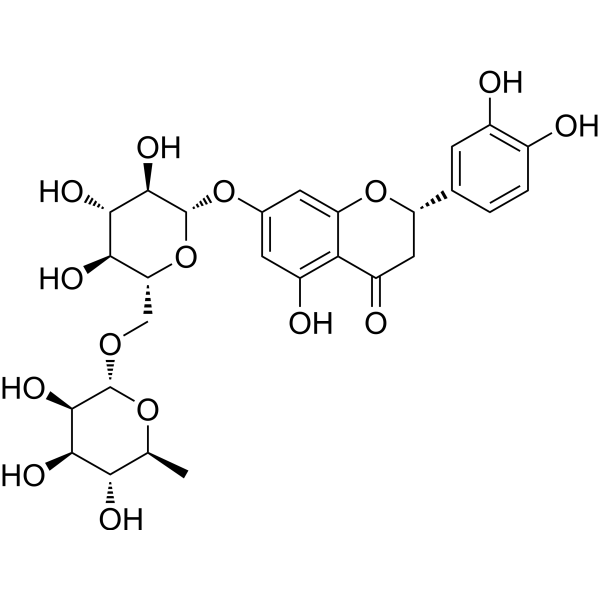
- HY-109015S
-
|
Chidamide-d4; HBI-8000-d4; CS 055-d4
|
Isotope-Labeled Compounds
HDAC
|
Cancer
|
|
Tucidinostat-d4 is the deuterium labeled Tucidinostat. Tucidinostat is a potent and orally bioavailable HDAC enzymes class I (HDAC1/2/3) and class IIb (HDAC10) inhibitor, with IC50s of 95, 160, 67 and 78 nM, respectively[1].
|
-
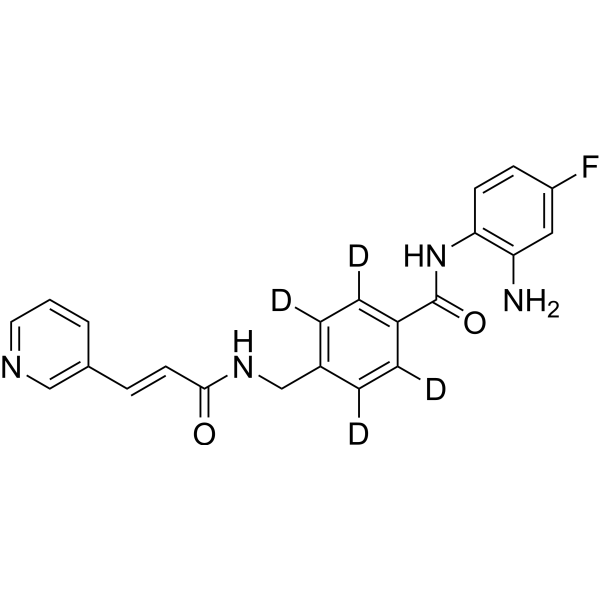
- HY-P2518A
-
|
|
Protease Activated Receptor (PAR)
|
Cancer
|
|
Protease-Activated Receptor-1, PAR-1 Agonist TFA is a selective proteinase-activated receptor1 (PAR-1) agonist peptide. Protease-Activated Receptor-1, PAR-1 Agonist TFA corresponds to PAR1 tethered ligand and which can selectively mimic theactions of thrombin via this receptor .
|
-
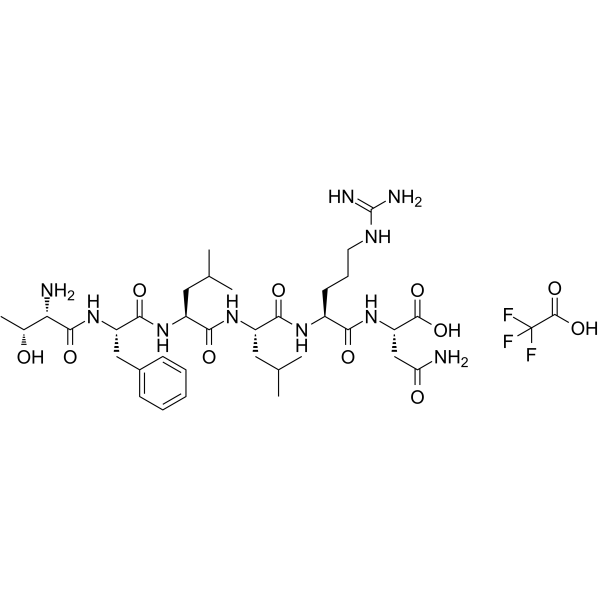
- HY-149814
-
|
|
PDHK
HSP
|
Cancer
|
|
PDK-IN-1 (compound 7o) is a pyruvate dehydrogenase kinase (PDK) inhibitor. PDK-IN-1 shows IC50 values of 0.03 and 0.1 μM for PDK1 and HSP90, respectively. PDK-IN-1 targets PDH/PDK axis thus reducing efficiently the tumor mass .
|
-
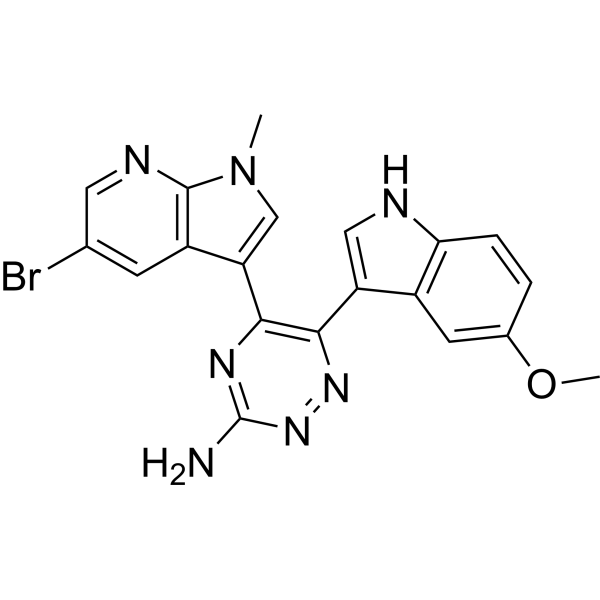
- HY-162143
-
|
|
SphK
Akt
mTOR
|
Cancer
|
|
SKI-349 is a dual-targeted inhibitor of sphingosine kinase 1/2 (SPHK1/2) and microtubule assembly (MDA). SKI-349 has anticancer activity. SKI-349 can inhibit the vitality, invasion, and AKT/mTOR signaling pathway of liver cells .
|
-
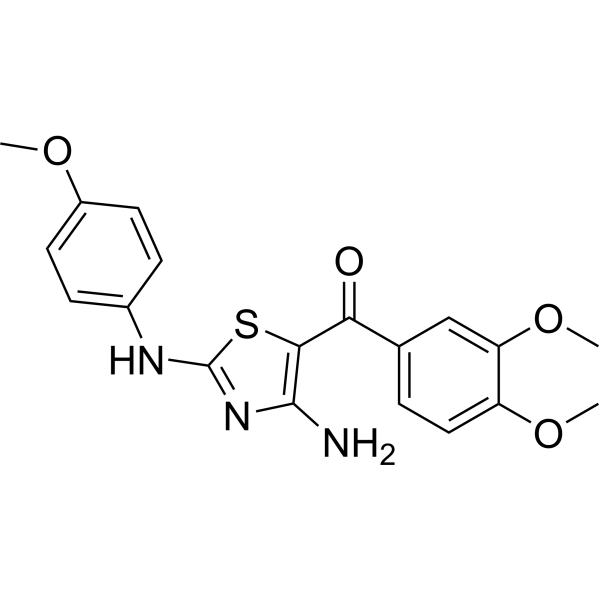
- HY-139132
-
|
|
Apoptosis
|
Cancer
|
|
Met-F-AEA is a metabolically stable anandamine analogue. Met-F-AEA inhibits cell growth by activating apoptosis. Met-F-AEA has antitumor activity .
|
-
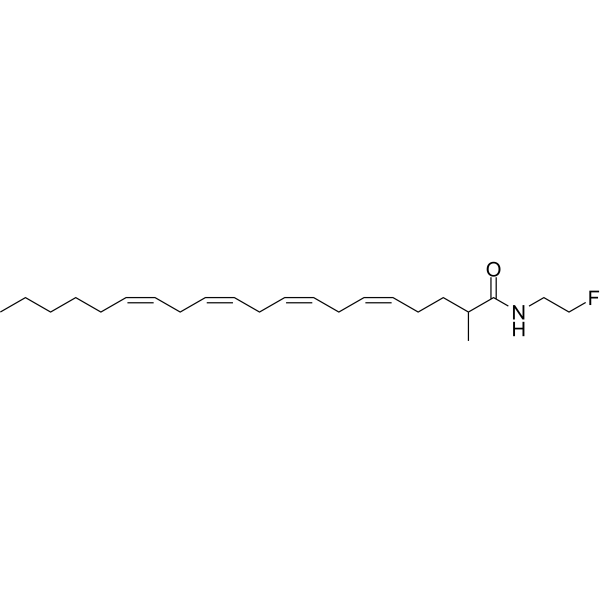
- HY-119833
-
|
|
MicroRNA
|
Cancer
|
|
Rubone, a chalcone analog, is a modulator of miR-34a. Rubone upregulates miR-34a expression in a p53 dependent manner, downregulates the downstream target Bcl-2 and Cyclin D1 expression, and suppresses hepatocellular carcinoma (HCC) growth in vivo. Rubone enhances the anticancer effect of Paclitaxel (PTX; HY-B0015) in PTX-resistant prostate cancer cell lines by reversing the expression of miR-34a downstream targets .
|
-
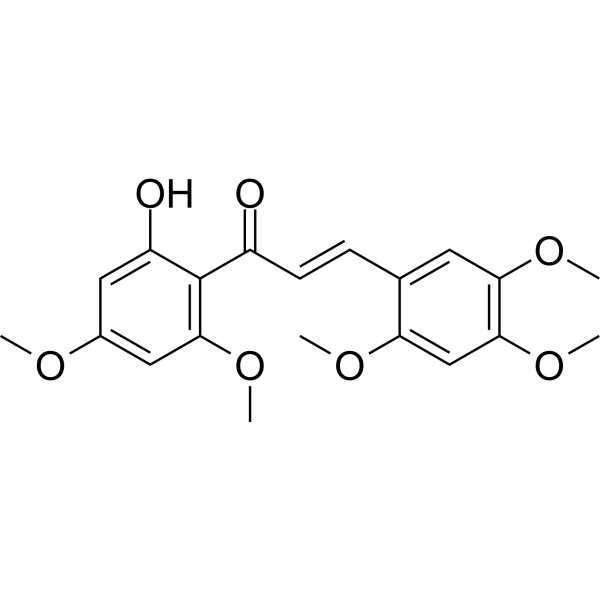
- HY-N6954
-
|
|
ATM/ATR
STAT
CDK
|
Cancer
|
|
Garcinone C, a xanthone derivative, is a natural compound extracted from Garcinia oblongifolia that is used as an anti-inflammatory, astringency and granulation-promoting medicine, and has potential cytotoxic effects on certain cancers. Garcinone C stimulates the expression levels of ATR and 4E-BP1, while efficiently inhibiting the expression levels of cyclin B1, cyclin D1, cyclin E2, cdc2, Stat3 and CDK7. Garcinone C significantly inhibits cell viability of the human Nasopharyngeal carcinoma (NPC) cell lines CNE1, CNE2, HK1 and HONE1 in a time‑ and dose‑dependent manner .
|
-
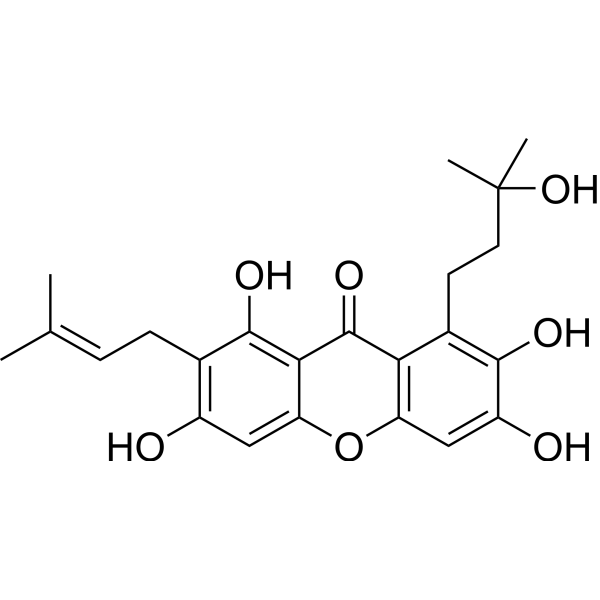
- HY-120349
-
|
|
p38 MAPK
JNK
Apoptosis
Reactive Oxygen Species
|
Cancer
|
|
LL-Z1640-4 is a potent p38/JNK signaling inhibitor. LL-Z1640-4 significantly diminishes p38 and JNK activation in HCC cells transfected with MLK4 siRNA. LL-Z1640-4 markedly attenuates ROS production induced by MLK4 knockdown. LL-Z1640-4 significantly reduces the apoptotic cells in HCC cells transfected with siMLK4 .
|
-
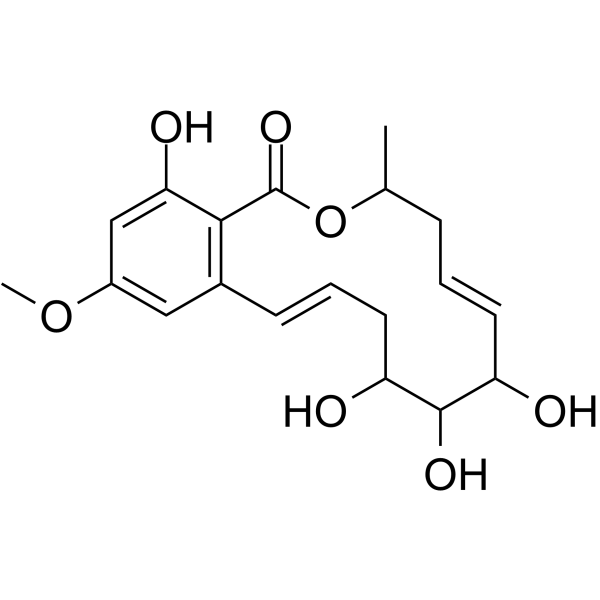
- HY-P2324
-
|
|
Bacterial
HIF/HIF Prolyl-Hydroxylase
Antibiotic
|
Infection
Cancer
|
|
Gramicidin A is a peptide component of gramicidin, an antibiotic mixture originally isolated from B. brevis. Gramicidin A is a highly hydrophobic channel-forming ionophore that forms channels in model membranes that are permeable to monovalent cations. Gramicidin A induces degradation of hypoxia inducible factor 1 α (HIF-1α) .
|
-
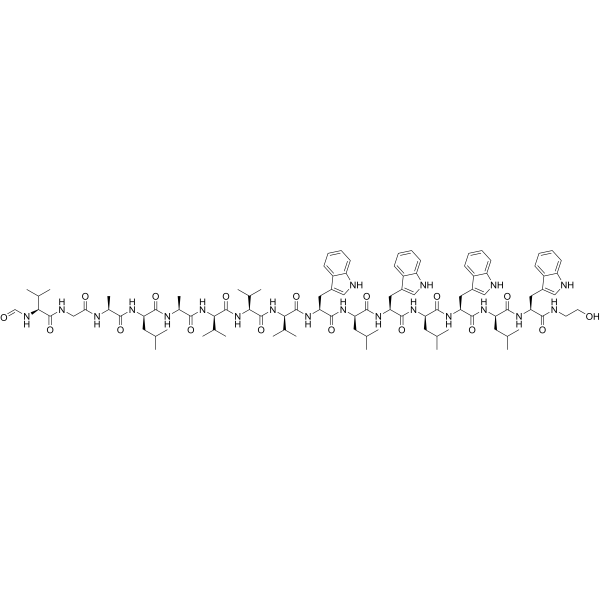
- HY-P3342
-
|
|
PD-1/PD-L1
Apoptosis
|
Inflammation/Immunology
|
|
[D-Leu-4]-OB3 inhibits expressions of pro-inflammatory, proliferative and metastatic genes and PD-L1 expression. [D-Leu-4]-OB3 stimulates expression of pro-apoptotic genes .
|
-
![[D-Leu-4]-OB3](//file.medchemexpress.com/product_pic/hy-p3342.gif)
- HY-P2324A
-
|
|
Antibiotic
Bacterial
|
Infection
|
|
Gramicidin A (TFA) is a peptide component of gramicidin, an antibiotic mixture originally isolated from B. brevis. Gramicidin A (TFA) is a highly hydrophobic channel-forming ionophore that forms channels in model membranes that are permeable to monovalent cations. Gramicidin A (TFA) induces degradation of hypoxia inducible factor 1 α (HIF-1α) .
|
-
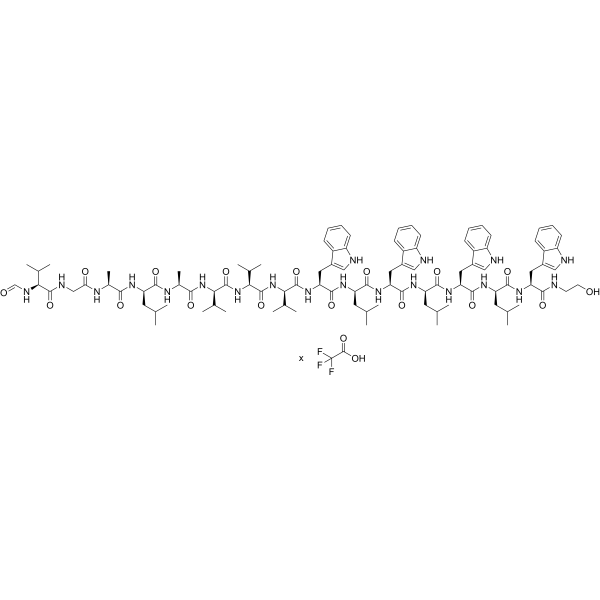
- HY-119944
-
|
|
EGFR
|
Cancer
|
|
JND3229 is a reversible EGFR C797S inhibitor with IC50 values of 5.8, 6.8 and 30.5 nM for EGFR L858R/T790M/C797S, EGFR WT and EGFR L858R/T790M, respectively. JND3229 has good anti-proliferative activity and can effectively inhibit tumour growth in vivo. JND3229 can be used in cancer research, especially in non-small cell carcinoma .
|
-
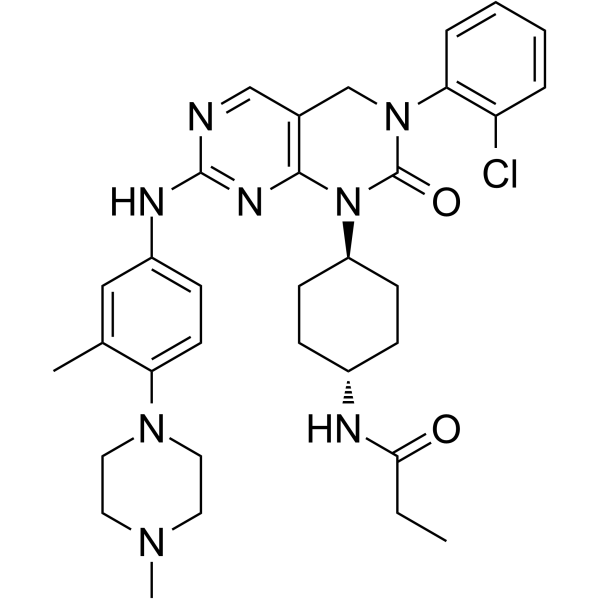
- HY-N6896
-
|
|
TGF-beta/Smad
|
Cancer
|
|
Isoviolanthin, a flavonoid glycoside, could markedly inhibit TGF-β1-mediated migration and invasion by deactivating epithelial-mesenchymal transition (EMT) via the TGF-β/Smad and PI3K/Akt/mTOR pathways in HCC cells. Isoviolanthin exhibits no cytotoxic effects on normal liver LO2 cells .
|
-
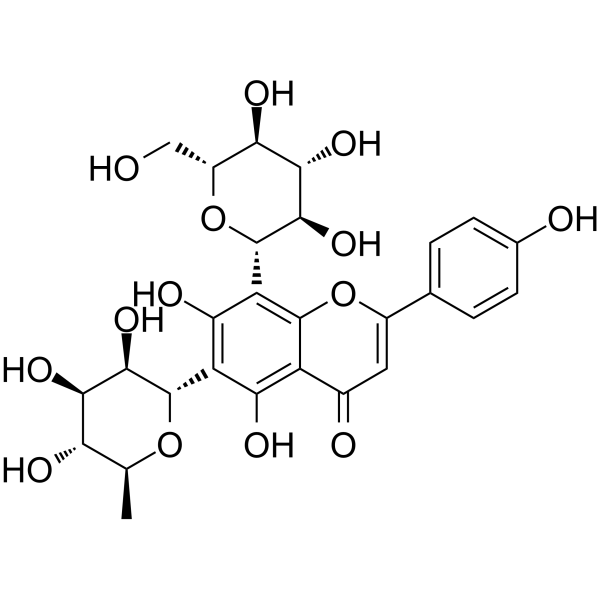
- HY-N12209
-
|
|
Others
|
Cancer
|
|
Neohelmanthicin A (compound 3A) is a phenylpropanoid compound with antitumor activity. The IC50s of Neohelmanthicin A for inhibiting leukemia cell line EL4, breast cancer cell line S180 and breast cancer cell line MCF7 are 0.13 μM, 7 μM and 23 μM respectively .
|
-
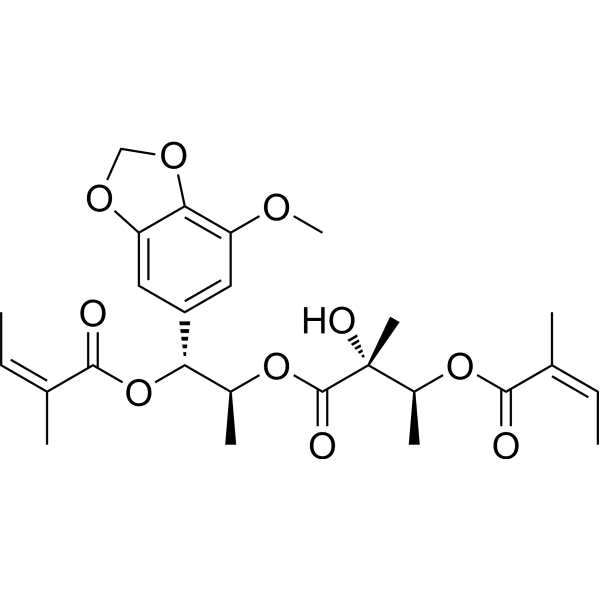
- HY-13690S1
-
|
2,4′-DDD-13C6; o,p'-DDD-13C6
|
Apoptosis
|
Cancer
|
|
Mitotane- 13C6 is the 13C labeled Mitotane[1]. Mitotane (2,4′-DDD), an isomer of DDD and derivative of dichlorodiphenyltrichloroethane (DDT), is an antineoplastic agent, can be used to research adrenocortical carcinoma. Mitotane exert its adrenocorticolytic effect at least in part through lipotoxicity induced by intracellular free cholesterol (FC) accumulation. Mitotane can have direct pituitary effects on corticotroph cells. Mitotane can induce CYP3A4 gene expression via steroid and xenobiotic receptor (SXR) activation, and has agent-agent interactions[2][3][4][5].
|
-
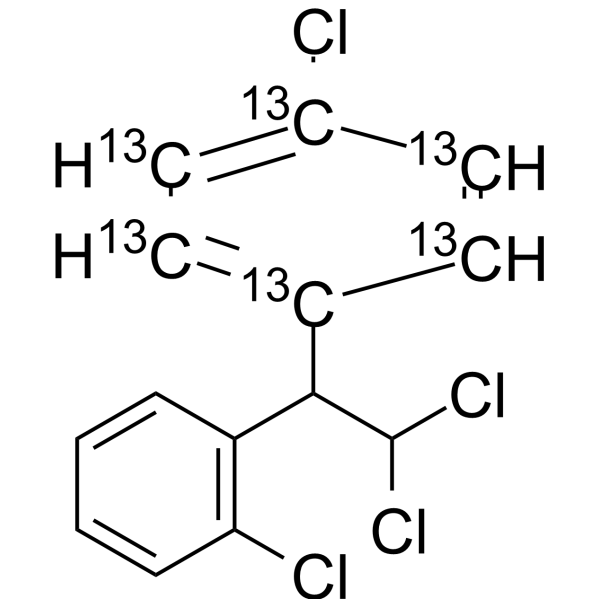
- HY-13690S2
-
|
2,4′-DDD-d8; o,p'-DDD-d8
|
Apoptosis
|
Cancer
|
|
Mitotane-d8 is the deuterium labeled Mitotane[1]. Mitotane (2,4′-DDD), an isomer of DDD and derivative of dichlorodiphenyltrichloroethane (DDT), is an antineoplastic agent, can be used to research adrenocortical carcinoma. Mitotane exert its adrenocorticolytic effect at least in part through lipotoxicity induced by intracellular free cholesterol (FC) accumulation. Mitotane can have direct pituitary effects on corticotroph cells. Mitotane can induce CYP3A4 gene expression via steroid and xenobiotic receptor (SXR) activation, and has agent-agent interactions[2][3][4][5].
|
-
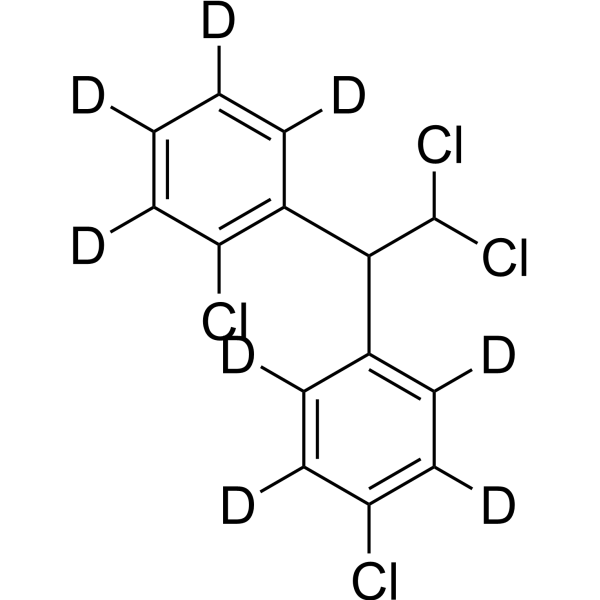
- HY-10977
-
|
AV-951; KRN951
|
VEGFR
|
Cancer
|
|
Tivozanib (AV-951; KRN951) is a selective, orally active inhibitor for vascular endothelial growth factor receptor (VEGFR)-1, 2 3, with IC50s of 30, 6.5 and 15 nM, respectively. Tivozanib exhibits antitumor efficacy .
|
-
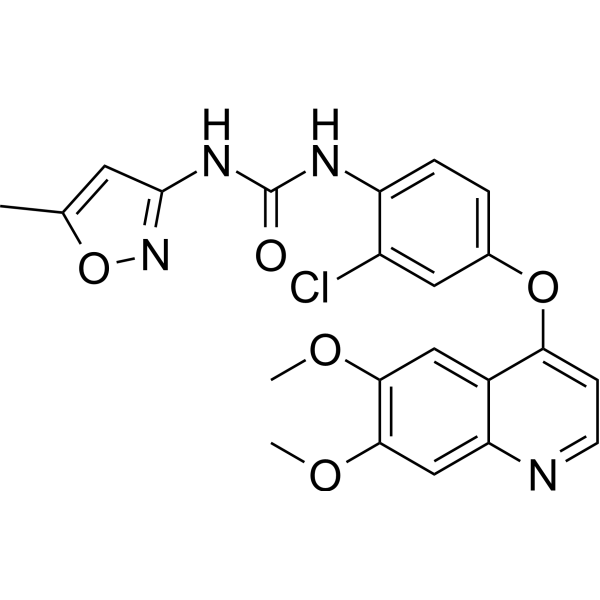
- HY-129099
-
|
|
PKC
Estrogen Receptor/ERR
Drug Metabolite
Endogenous Metabolite
|
Cancer
|
|
N-Desmethyltamoxifen is the major metabolite of tamoxifen in humans. N-Desmethyltamoxifen, a poor antiestrogen, is a ten-fold more potent protein kinase C (PKC) inhibitor than Tamoxifen. N-Desmethyltamoxifen is also a potent regulator of ceramide metabolism in human AML cells, limiting ceramide glycosylation, hydrolysis, and sphingosine phosphorylation .
|
-
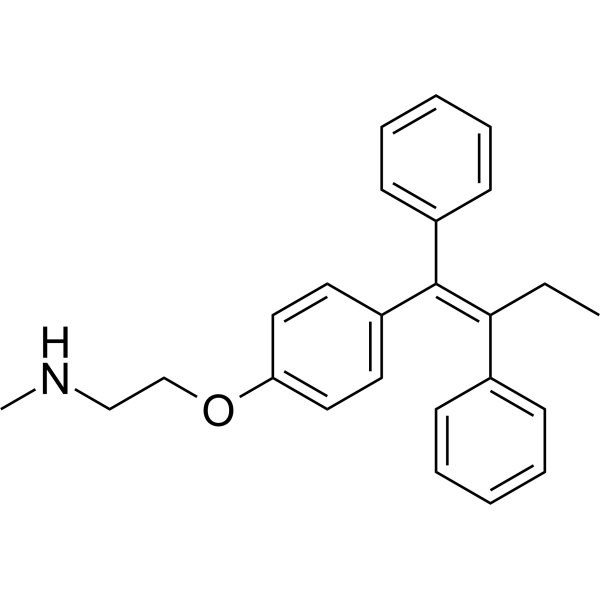
- HY-129099A
-
|
|
PKC
Estrogen Receptor/ERR
Drug Metabolite
Endogenous Metabolite
|
Cancer
|
|
N-Desmethyltamoxifen hydrochloride is the major metabolite of tamoxifen in humans. N-Desmethyltamoxifen, a poor antiestrogen, is a ten-fold more potent protein kinase C (PKC) inhibitor than Tamoxifen. N-Desmethyltamoxifen hydrochloride is also a potent regulator of ceramide metabolism in human AML cells, limiting ceramide glycosylation, hydrolysis, and sphingosine phosphorylation .
|
-
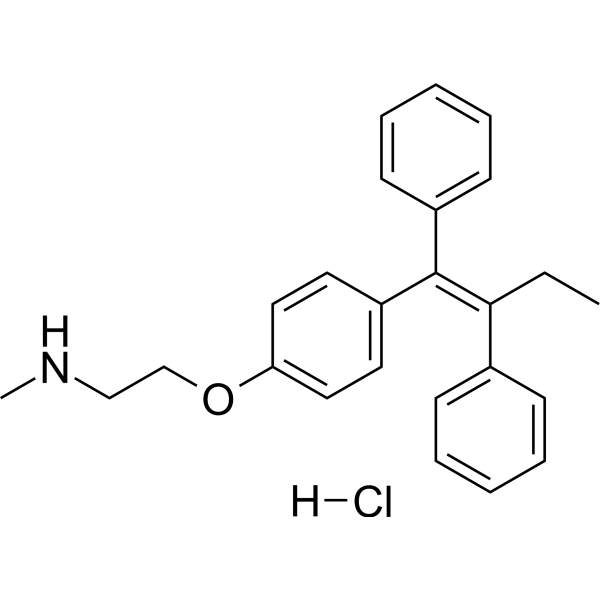
- HY-122590
-
|
|
Gli
|
Cancer
|
|
Glabrescione B is the first compound that binds the Hedgehog (Hh) modulator Gli1. Glabrescione B impairs its activity by interfering with Gli1-DNA interaction. Glabrescione B inhibits the growth of Hedgehog-dependent tumor cells, the self-renewal ability, and clonogenicity of tumor-derived stem cells .
|
-
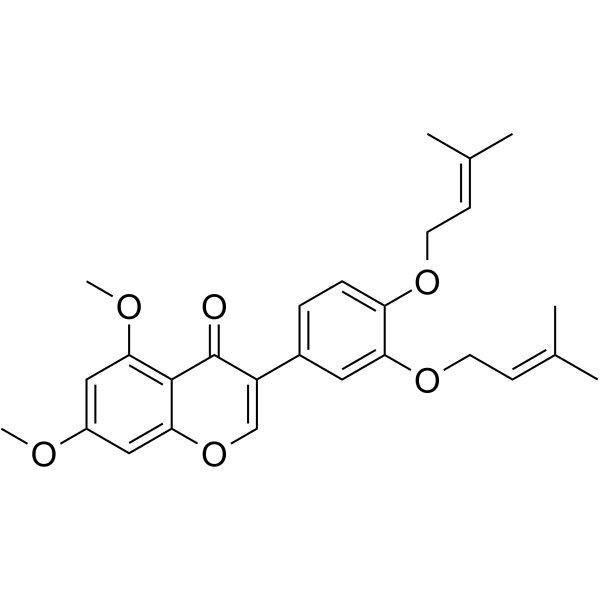
- HY-110147A
-
|
|
Furin
|
Infection
|
|
SSM3 tetraTFA is a potent synthetic furin inhibitor with an EC50 and a Ki of 54 nM and 12 nM, respectively. SSM3 tetraTFA is able to block furin-dependent cell surface processing of anthrax protective antigen-83 in vitro .
|
-
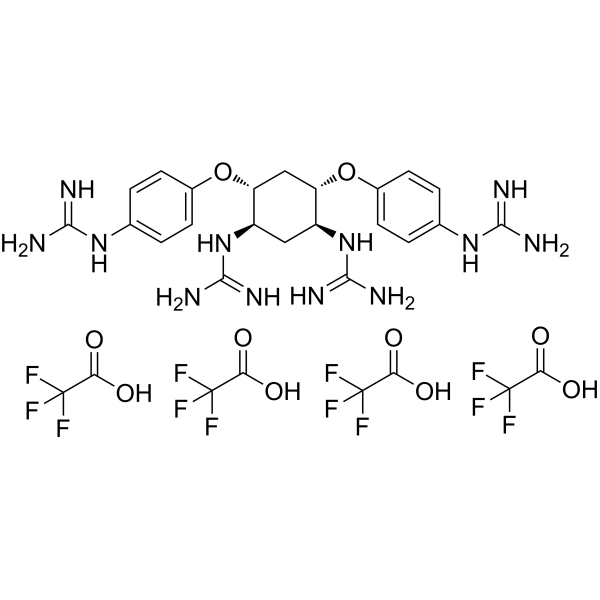
- HY-147743
-
|
|
Smo
|
Cancer
|
|
SMO-IN-1 (Compound 15) is an orally active Smoothened (SMO) inhibitor with an EC50 of 89 nM against sonic Hh protein (shh) .
|
-
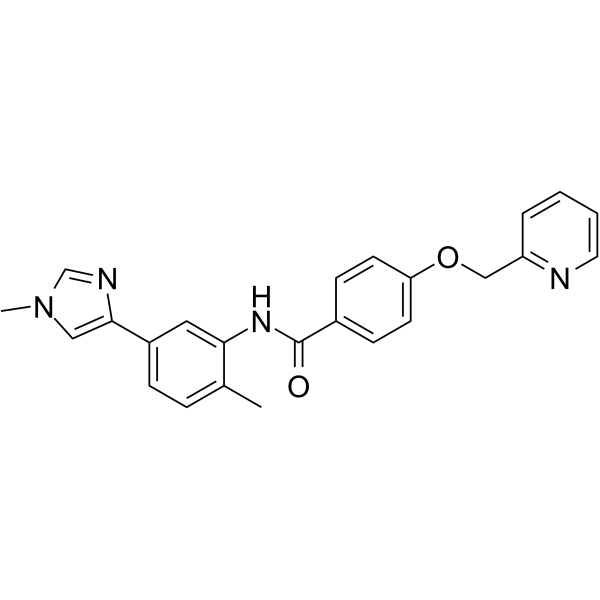
- HY-10977A
-
|
AV-951 hydrochloride hydrate; KRN951 hydrochloride hydrate
|
VEGFR
|
Cancer
|
|
Tivozanib hydrochloride hydrate is the hydrate hydrochloride form of Tivozanib (HY-10977). Tivozanib hydrochloride hydrate is a selective, orally active inhibitor for vascular endothelial growth factor receptor (VEGFR)-1, 2 3, with IC50s of 30, 6.5 and 15 nM, respectively. Tivozanib hydrochloride hydrate exhibits antitumor efficacy .
|
-
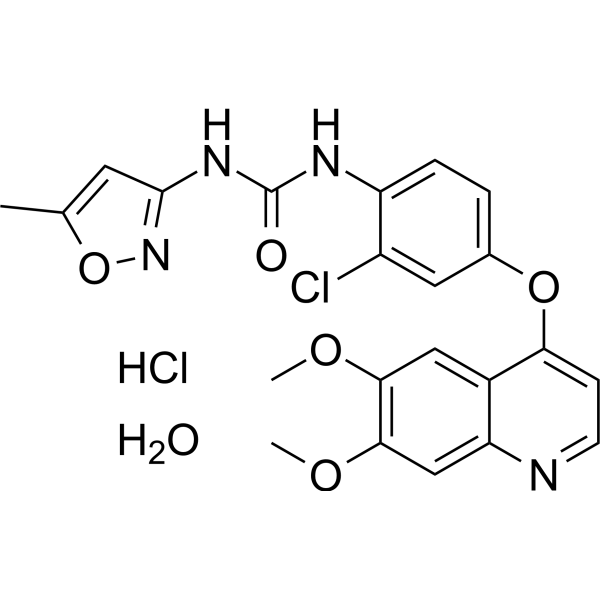
- HY-110147B
-
|
|
Furin
|
Infection
|
|
SSM3 tetraTFA hydrate is a potent synthetic furin inhibitor with an EC50 and a Ki of 54 nM and 12 nM, respectively. SSM3 tetraTFA hydrate is able to block furin-dependent cell surface processing of anthrax protective antigen-83 in vitro .
|
-
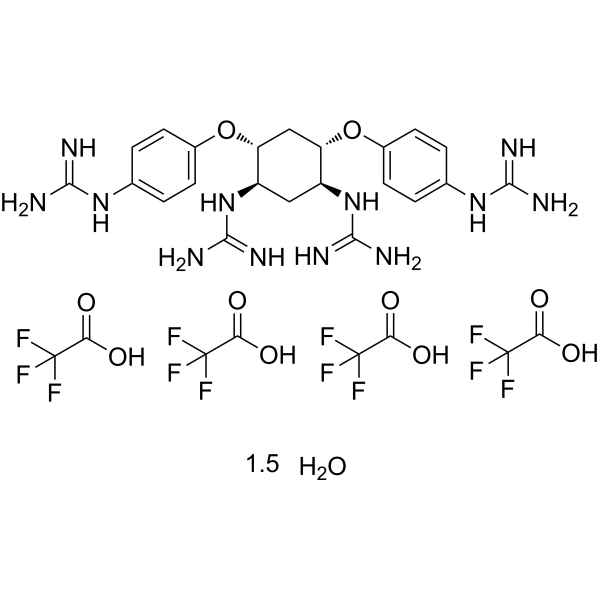
- HY-149840
-
|
|
Apoptosis
|
Cancer
|
|
Antitumor agent-113 shows cytotoxic effects on A549 cells with IC50 value of 46.60 μM and induces apoptosis. Antitumor agent-113 can be used in non-small cell lung cancer study .
|
-
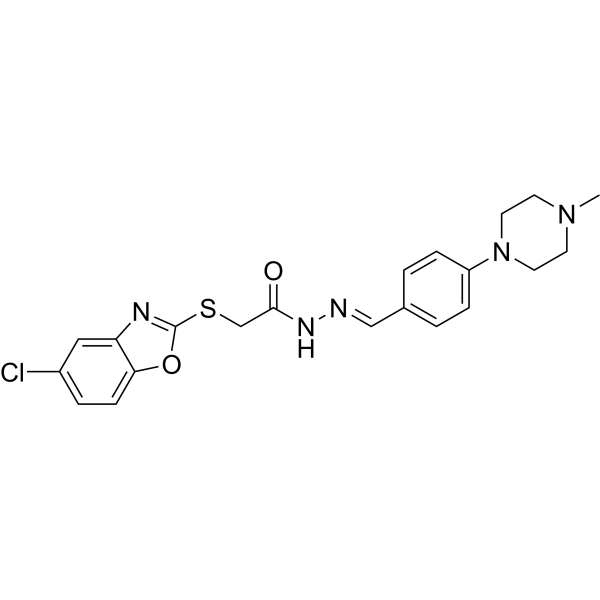
- HY-160621
-
|
|
FGFR
|
Cancer
|
|
CXF-009 is a selective and covalent FGFR4 inhibitor, with the IC50 of 48 nM. CXF-009 targeting Cys477 and Cys552 of FGFR4, and can be used for the study of hepatocellular carcinoma .
|
-
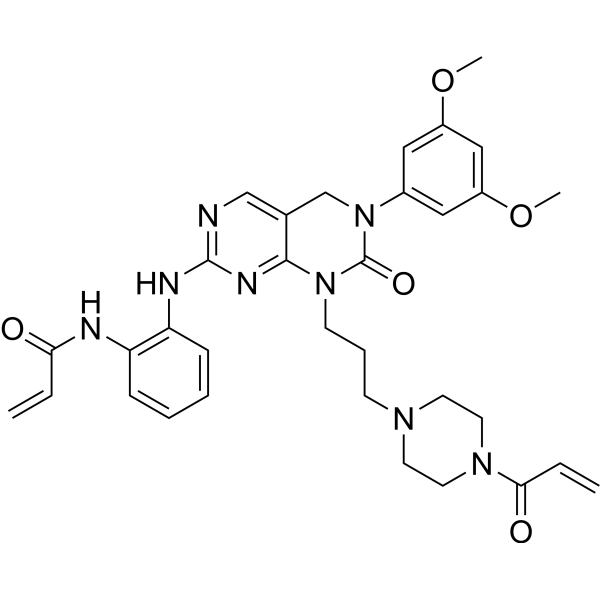
- HY-112467
-
|
AV-951 hydrate; KRN951 hydrate
|
VEGFR
|
Cancer
|
|
Tivozanib hydrate (AV-951 hydrate; KRN951 hydrate) is the hydrate form of Tivozanib (HY-10977). Tivozanib hydrate is a selective, orally active inhibitor for vascular endothelial growth factor receptor (VEGFR)-1, 2 3, with IC50s of 30, 6.5 and 15 nM, respectively. Tivozanib hydrate exhibits antitumor efficacy .
|
-
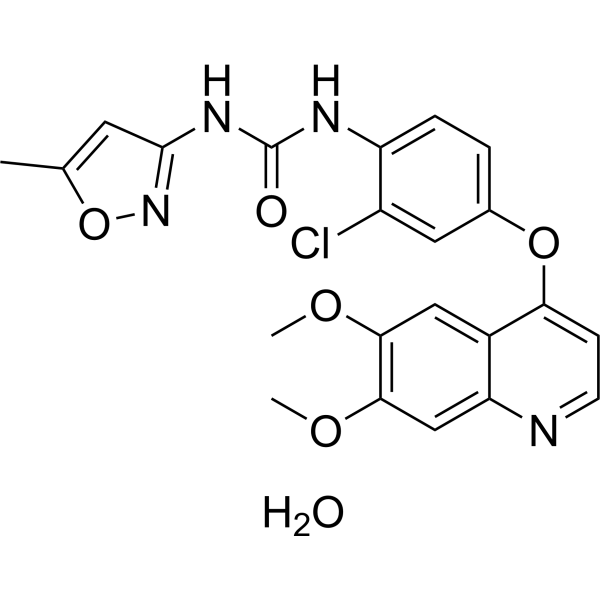
- HY-P5372
-
|
|
Protease Activated Receptor (PAR)
|
Others
|
|
Ala-parafluoroPhe-Arg-Cha-Cit-Tyr-NH2 is a biological active peptide. (Protease activated receptor 1 (PAR-1) belongs to a subfamily of G-protein coupled receptors and is known to mediate the cellular effects of thrombin. This peptide is a PAR-1 selective agonist displaying a high level of specificity to PAR-1 over PAR-2. The specificity of peptide was evaluated in cell-based calcium signaling assay using HEK293 cells. PAR-1 selective agonists can be used to study PAR-1 activation in vivo. In addition to its varied cellular effects of thrombin, PAR-1 has also been shown to coordinate with PAR-4 and regulate thrombin-induced hepatocellular carcinoma harboring thrombin formation within the tumor environment classified as 'coagulation type'.)
|
-
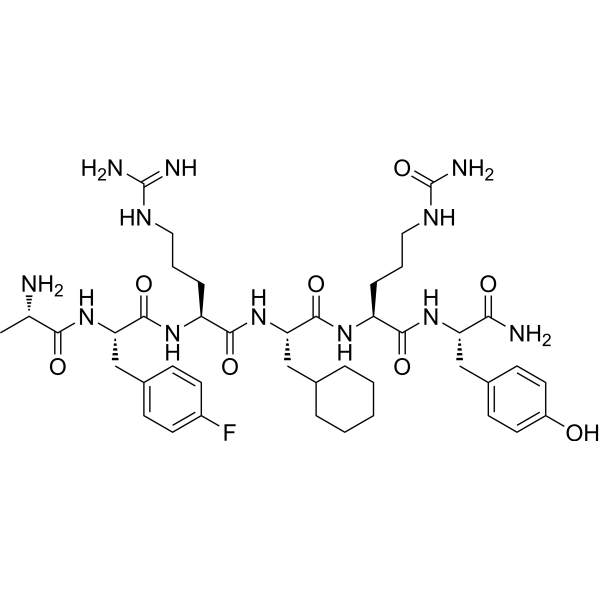
- HY-129812
-
|
|
Isotope-Labeled Compounds
|
Cancer
|
|
Borofalan- 10B can be used for Boron neutron capture research (BNCT). Borofalan- 10B can be used for the research of recurrent or locally advanced head and neck cancer .
|
-
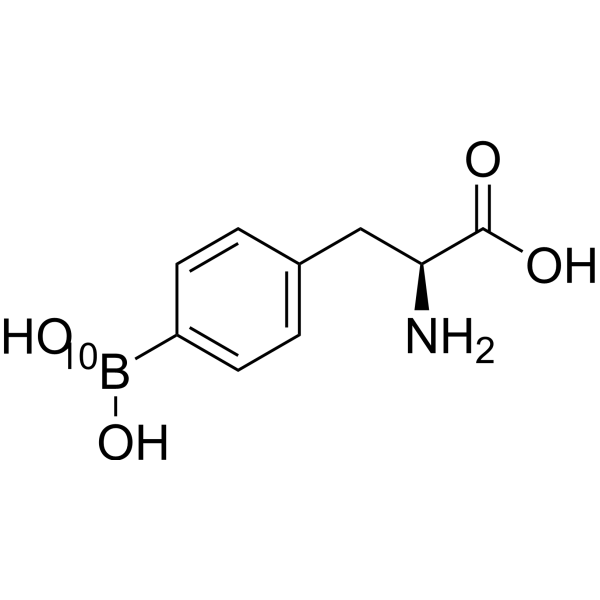
- HY-13062
-
|
Daunomycin hydrochloride; RP 13057 hydrochloride; Rubidomycin hydrochloride
|
Topoisomerase
DNA/RNA Synthesis
ADC Cytotoxin
Bacterial
Autophagy
Apoptosis
Antibiotic
|
Infection
Neurological Disease
Cancer
|
|
Daunorubicin (Daunomycin) hydrochloride is a topoisomerase II inhibitor with potent anti-tumor activity. Daunorubicin hydrochloride inhibits DNA and RNA synthesis. Daunorubicin hydrochloride is a cytotoxin that inhibits cancer cell viability and induces apoptosis and necrosis. Daunorubicin hydrochloride is also an anthracycline antibiotic. Daunorubicin hydrochloride can be used in the research of infection and variety of cancers, including leukemia, non-Hodgkin lymphomas, Ewing's sarcoma, Wilms' tumor .
|
-
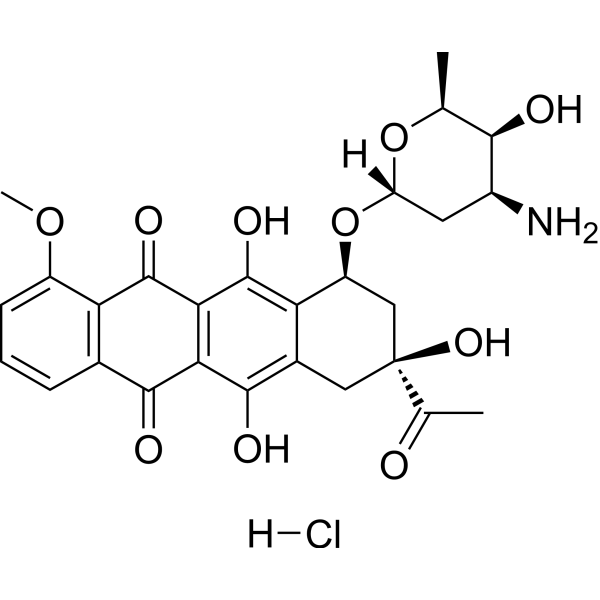
- HY-13062A
-
|
Daunomycin; RP 13057; Rubidomycin
|
Topoisomerase
DNA/RNA Synthesis
ADC Cytotoxin
Autophagy
Bacterial
Antibiotic
Apoptosis
|
Infection
Neurological Disease
Cancer
|
|
Daunorubicin (Daunomycin) is a topoisomerase II inhibitor with potent anti-tumor activity. Daunorubicin inhibits DNA and RNA synthesis. Daunorubicin is a cytotoxin that inhibits cancer cell viability and induces apoptosis and necrosis. Daunorubicin is also an anthracycline antibiotic. Daunorubicin can be used in the research of infection and variety of cancers, including leukemia, non-Hodgkin lymphomas, Ewing's sarcoma, Wilms' tumor .
|
-
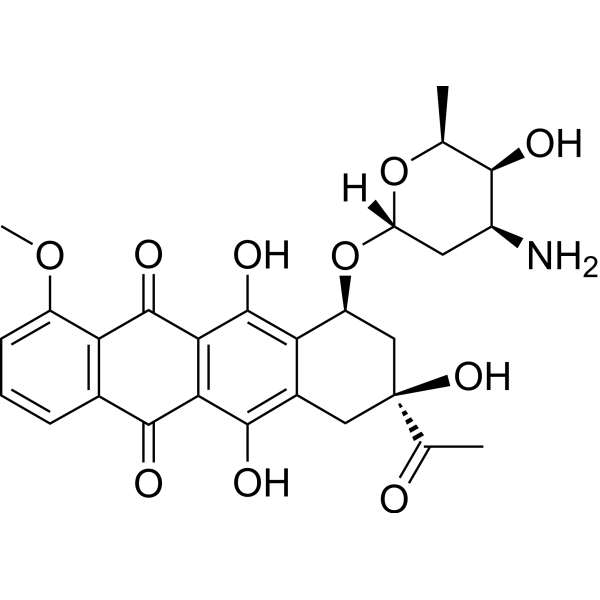
- HY-108876
-
|
Daunomycin(citrate); RP 13057(citrate); Rubidomycin(citrate)
|
Topoisomerase
DNA/RNA Synthesis
ADC Cytotoxin
Autophagy
Bacterial
Antibiotic
Apoptosis
|
Infection
Neurological Disease
Cancer
|
|
Daunorubicin (Daunomycin) citrate is a topoisomerase II inhibitor with potent anti-tumor activity. Daunorubicin citrate inhibits DNA and RNA synthesis. Daunorubicin citrate is a cytotoxin that inhibits cancer cell viability and induces apoptosis and necrosis. Daunorubicin citrate is also an anthracycline antibiotic. Daunorubicin citrate can be used in the research of infection and variety of cancers, including leukemia, non-Hodgkin lymphomas, Ewing's sarcoma, Wilms' tumor .
|
-
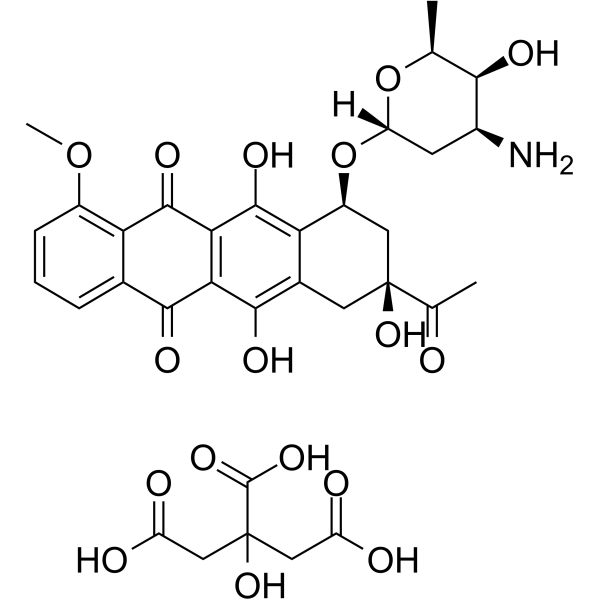
- HY-105930
-
|
D-19466
|
Apoptosis
Caspase
Bcl-2 Family
|
Cancer
|
|
Lobaplatin (D-19466) is a diastereometric mixture of platinum(II) complexe. Lobaplatin arrests cell cycle at G1 and G2/M phase. Lobaplatin induces apoptosis by increasing expressions of caspase and Bax, decreasing expression of Bcl-2. Lobaplatin can be used for research of cancer .
|
-
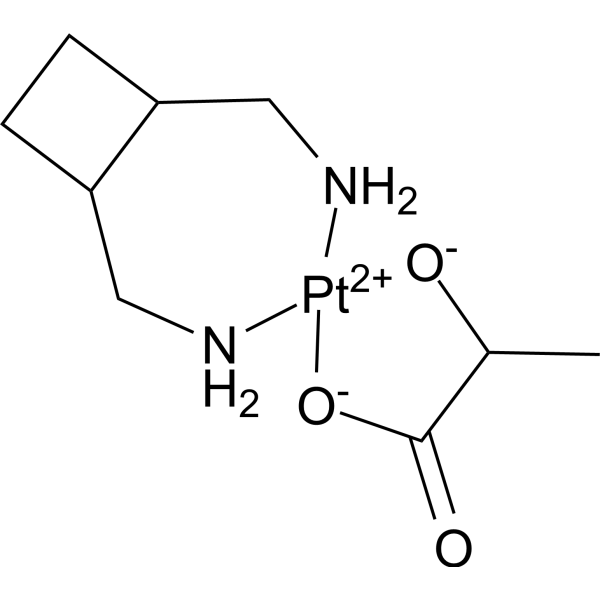
- HY-151344
-
|
|
HIF/HIF Prolyl-Hydroxylase
|
Cancer
|
|
HIF-1/2α-IN-2 is an inhibitor of HIF-1/2α. HIF-1/2α-IN-2 decrease HIF-1/2α levels and induces iron starvation response by targeting Iron Sulfur Cluster Assembly 2 (ISCA2) .
|
-
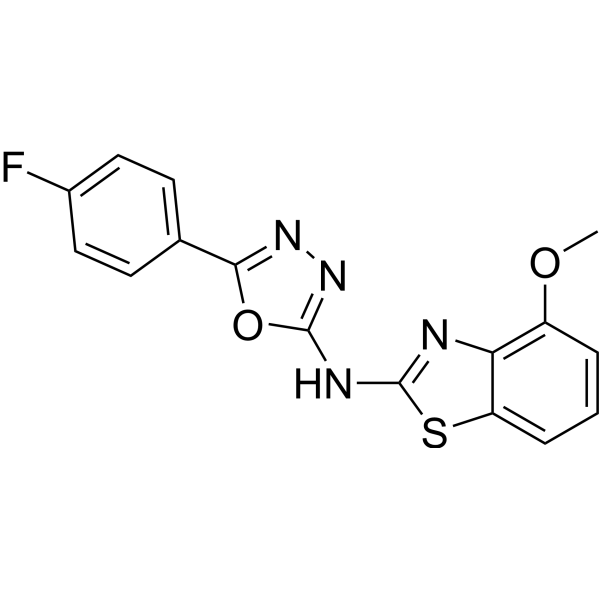
- HY-153967
-
BLU0588
1 Publications Verification
|
PKA
|
Cancer
|
|
BLU0588 is an orally active, potent and selective PRKACA (protein kinase cAMP-activated catalytic subunit alpha) kinase inhibitor, with an IC50 of 1 nM and dissociation constant (Kd) of 4 nM. BLU0588 can be used for fibrolamellar carcinoma (FLC) research .
|
-
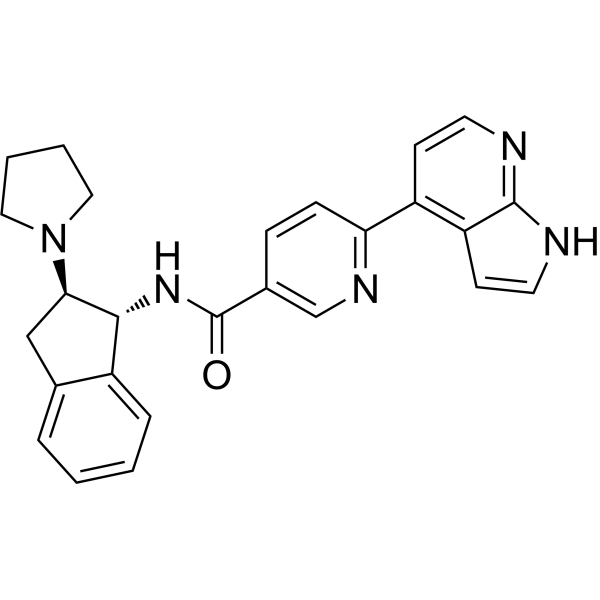
- HY-B0180B
-
-
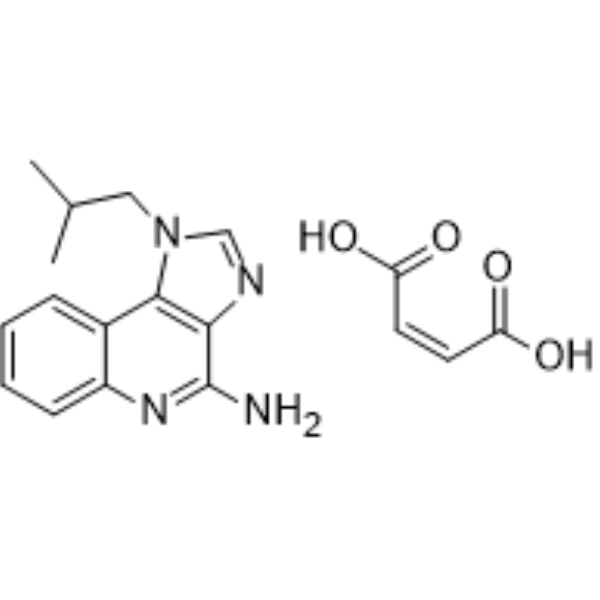
- HY-B0180A
-
|
R 837 hydrochloride
|
Toll-like Receptor (TLR)
Autophagy
SARS-CoV
HSV
|
Infection
Inflammation/Immunology
Cancer
|
|
Imiquimod hydrochloride (R 837 hydrochloride), an immune response modifier, is a selective toll like receptor 7 (TLR7) agonist. Imiquimod hydrochloride exhibits antiviral and antitumor effects in vivo. Imiquimod hydrochloride can be used for the research of external genital, perianal warts, cancer and COVID-19 .
|
-
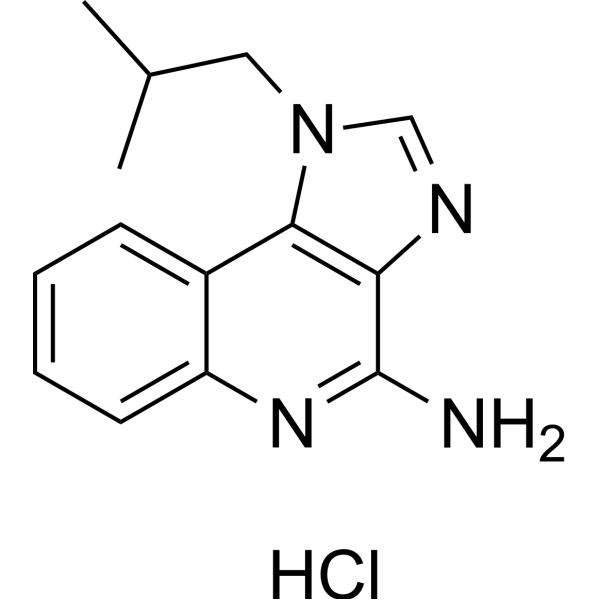
- HY-B0180
-
-
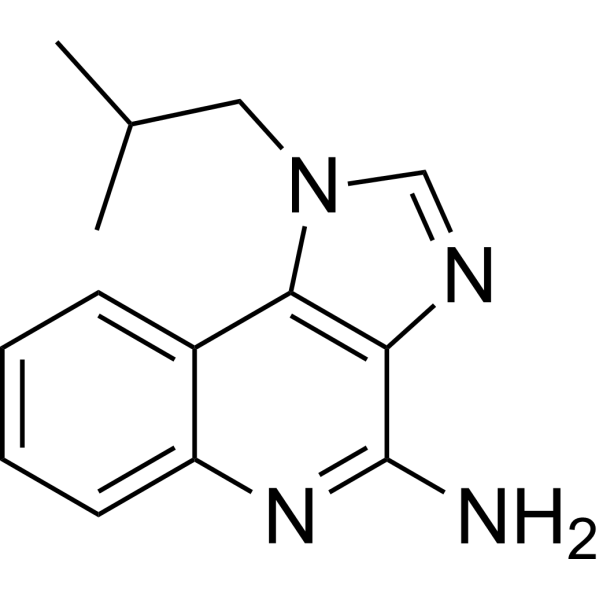
- HY-103697A
-
|
|
Toll-like Receptor (TLR)
HIV
|
Infection
Cancer
|
|
Gardiquimod diTFA, an imidazoquinoline analog, is a TLR7/8 agonist. Gardiquimod diTFA could inhibit HIV-1 infection of macrophages and activated peripheral blood mononuclear cells (PBMCs). Gardiquimod diTFA specifically activates TLR7 when used at concentrations below 10 μM .
|
-
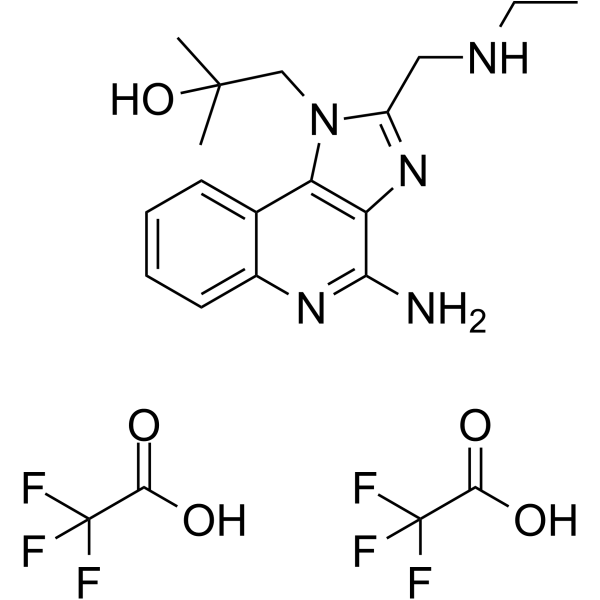
- HY-136174
-
|
|
PARP
|
Cancer
|
|
RBN-2397 is a potent, accross species and orally active NAD + competitive inhibitor of PARP7 (IC50<3 nM). RBN-2397 selectively binds to PARP7 (Kd=0.001 μM) and restores IFN signaling. RBN-2397 has the potential for the study of advanced or metastatic solid tumors .
|
-
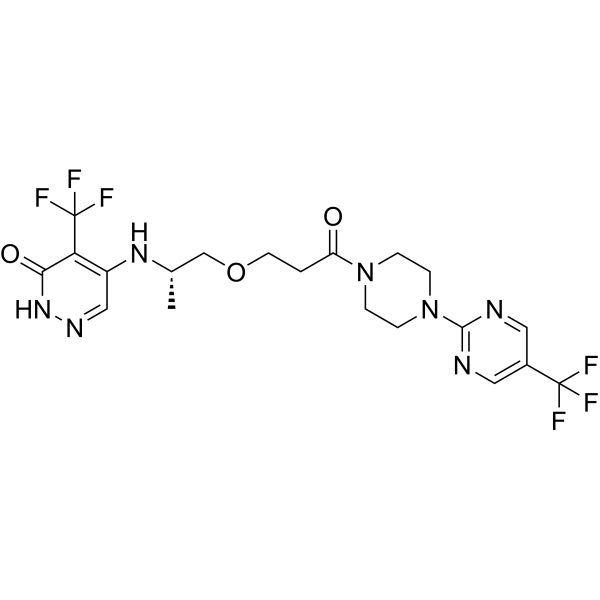
- HY-103697
-
|
|
Toll-like Receptor (TLR)
HIV
|
Infection
Cancer
|
|
Gardiquimod, an imidazoquinoline analog, is a TLR7/8 agonist. Gardiquimod could inhibit HIV-1 infection of macrophages and activated peripheral blood mononuclear cells (PBMCs). Gardiquimod specifically activates TLR7 when used at concentrations below 10 μM .
|
-
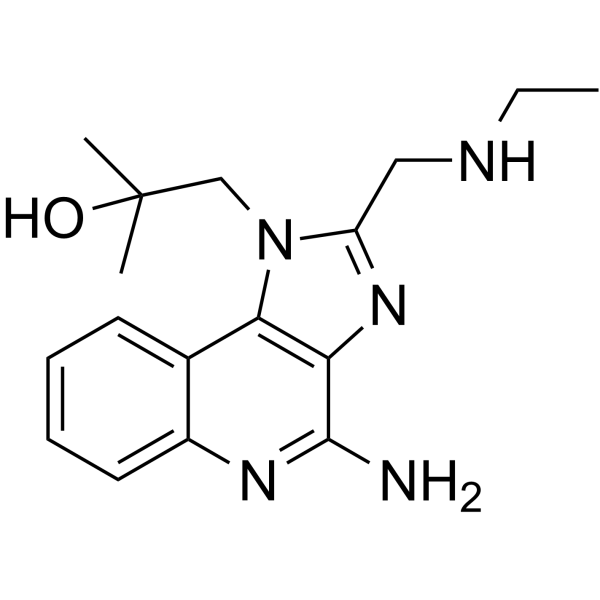
- HY-P2282
-
|
|
STAT
|
Cancer
|
|
APTSTAT3-9R, a specific STAT3-binding peptide, inhibits STAT3 activation and downstream signaling by specifically blocking STAT3 phosphorylation. APTSTAT3-9R exerts antiproliferative effects and antitumor activity .
|
-
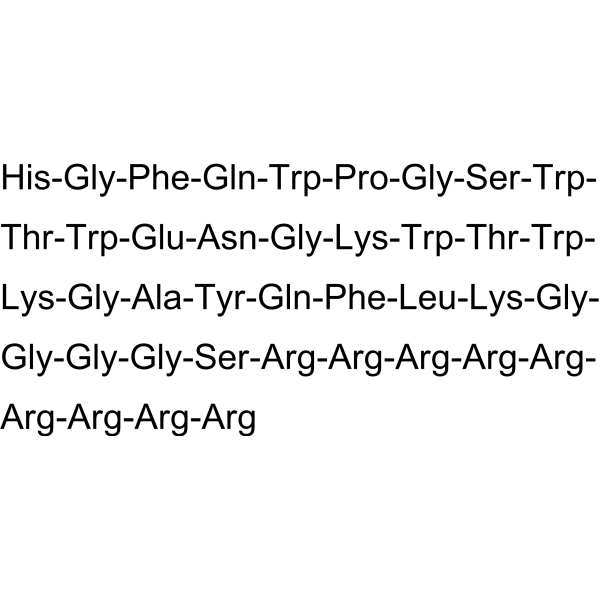
- HY-147744
-
|
|
Smo
|
Cancer
|
|
AZD7254 is an orally active Smoothened (SMO) inhibitor with an EC50 of 1.0 nM against sonic Hh protein (shh) .
|
-
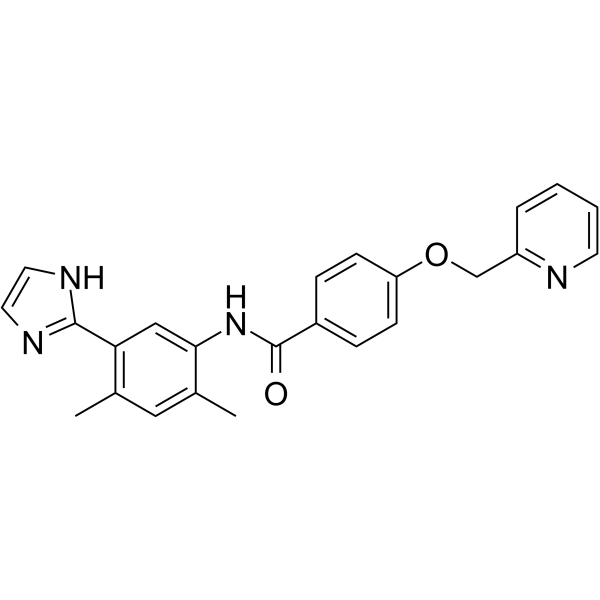
- HY-102066
-
|
AZD-7451
|
Trk Receptor
|
Cancer
|
|
Utatrectinib (AZD-7451) is a potent, selective and orally active Trk inhibitor. Utatrectinib blocks TrkC activation and associated tumorigenic behaviors .
|
-
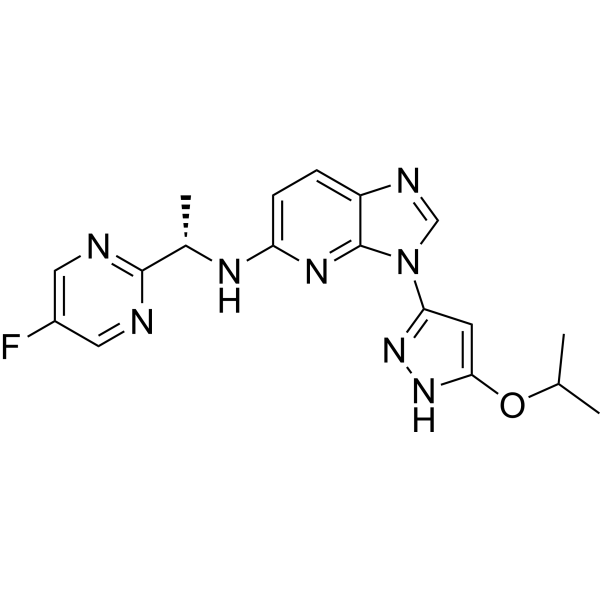
- HY-162372
-
|
|
Hedgehog
Smo
|
Cancer
|
|
Hedgehog IN-6 (Compound Q29) is a Hedgehog (Hh) inhibitor that can be used in cancer research. Hedgehog IN-6 inhibits the hedgehog (Hh) pathway by binding to the cysteine-rich domain (CRD) of Smoothened (Smo) and blocking its cholesterization .
|
-
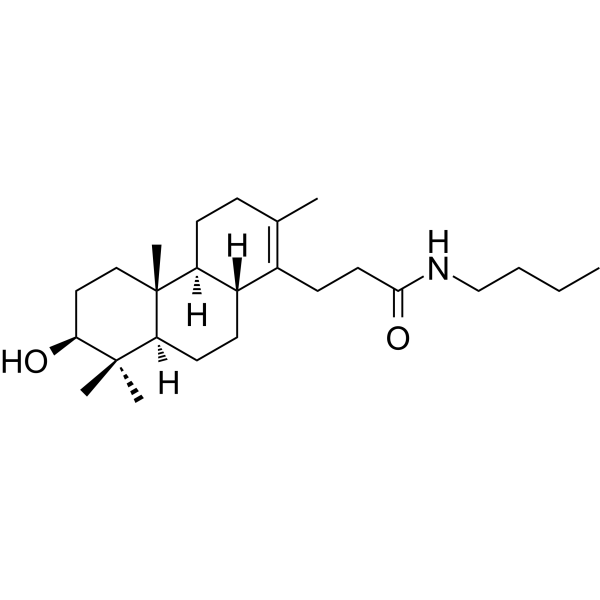
- HY-P9971
-
|
SHR-1210
|
PD-1/PD-L1
|
Cancer
|
|
Camrelizumab (SHR-1210) is a potent humanied high-affinity IgG4-κ monoclonal antibody (mAb) to PD-1. Camrelizumab binds PD-1 at a high affinity of 3 nM and inhibits the binding interaction of PD-1 and PD-L1 with an IC50 of 0.70 nM. Camrelizumab acts as anti-PD-1/PD-L1 agent and can be used for cancer research, including NSCLC, ESCC, Hodgkin lymphoma, and advanced HCC et,al .
|
-

- HY-16399
-
|
|
Apoptosis
SF3B1
|
Cancer
|
|
Pladienolide B is a potent cancer cell growth inhibitor that targets the SF3B1 subunit of the spliceosome. Pladienolide B exerts antitumor activities mediated through the inhibition of pre-mRNA splicing. Pladienolide B induces apoptosis .
|
-
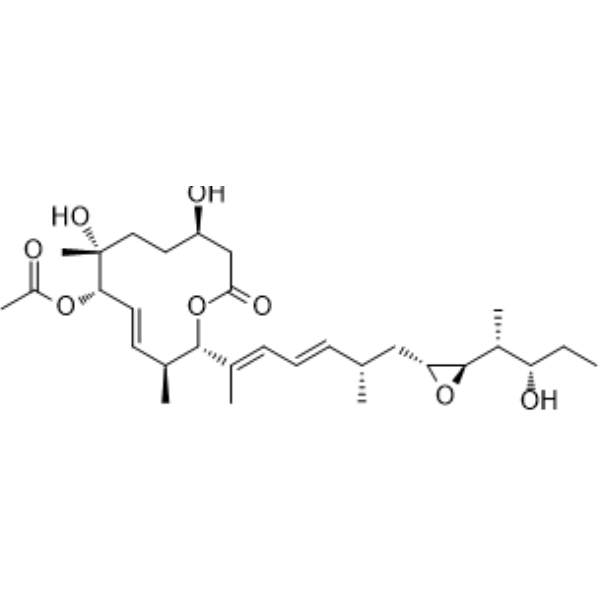
- HY-N6036
-
|
|
Others
|
Cancer
|
|
Ganoderic acid F is a ganoderic acid. Ganoderic acid F exhibits antitumor and antimetastatic activities through inhibition of angiogenesis and alteration of proteins involving cell proliferation and/or cell death, carcinogenesis, oxidative stress, calcium signaling, and endoplasmic reticulum stress .
|
-
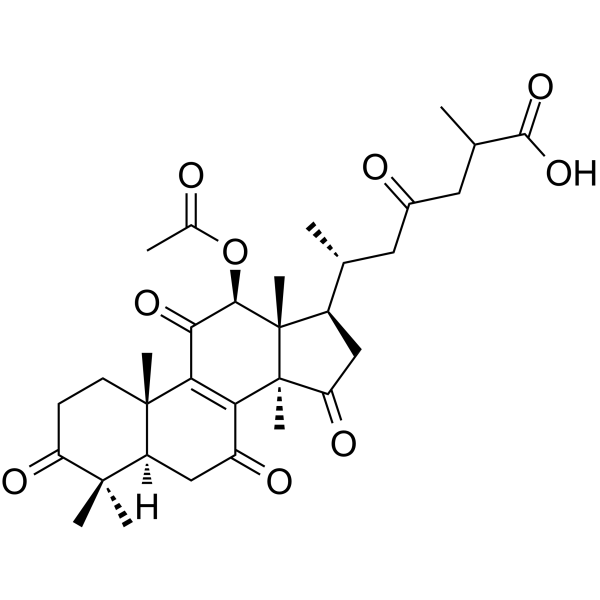
- HY-117253
-
|
|
Drug Metabolite
|
Cancer
|
|
PHA-782584 is a metabolite of sunitinib. Sunitinib is an oral multitargeted tyrosine kinase inhibitor with antitumor activities .
|
-
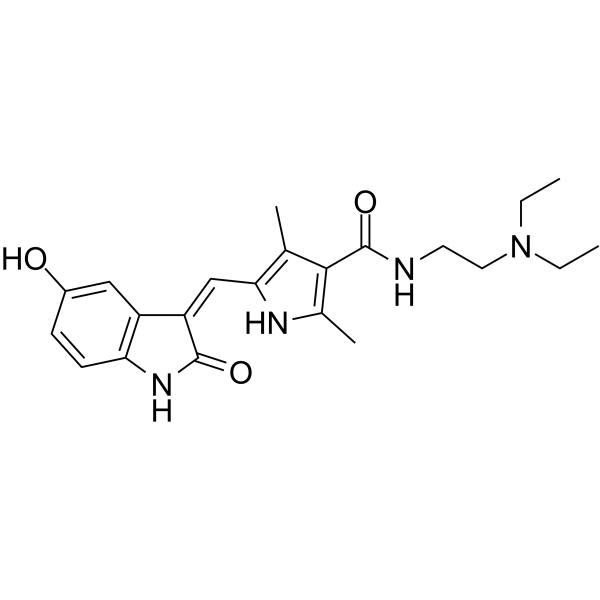
- HY-14649G
-
|
Vitamin A acid; all-trans-Retinoic acid; ATRA
|
RAR/RXR
|
Cancer
|
|
Retinoic acid (Vitamin A acid) (GMP) is Retinoic acid (HY-14649) produced by using GMP guidelines. GMP small molecules works appropriately as an auxiliary reagent for cell therapy manufacture. Retinoic acid is an agonist of RAR nuclear receptors .
|
-
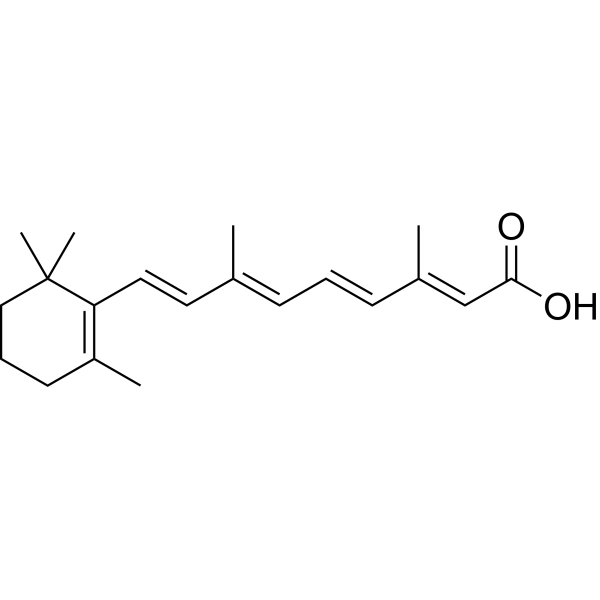
- HY-155046
-
|
|
FGFR
|
Cancer
|
|
FGFR4-IN-14 (Compound 27i) is a FGFR4 inhibitor (IC50: 2.4 nM. FGFR4-IN-14 inhibits the proliferation of V550L and N535K mutant strains, with IC50s of 21 nM, 2.5 nM, 171 nM against huh7, BaF3/ETV6-FGFR4-V550L and BaF3/ETV6-FGFR4-N535K cells respectively. FGFR4-IN-14 has potent antitumor efficacy in the Huh7 xenograft model. FGFR4-IN-14 can be used for research of hepatocellular carcinoma (HCC) .
|
-
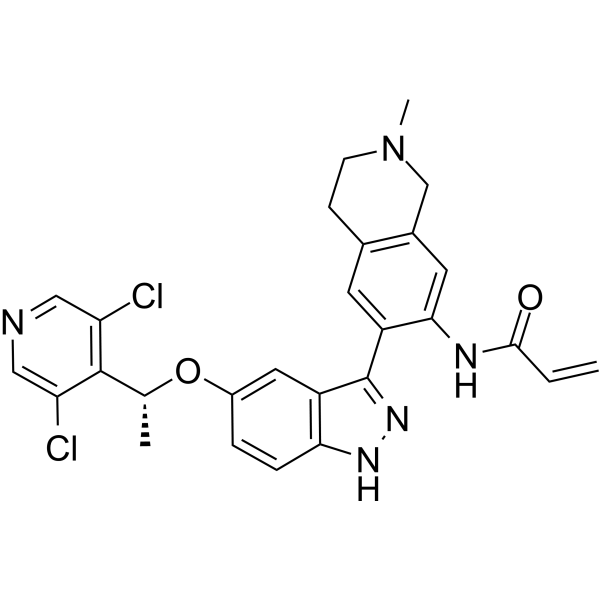
- HY-W004284
-
-
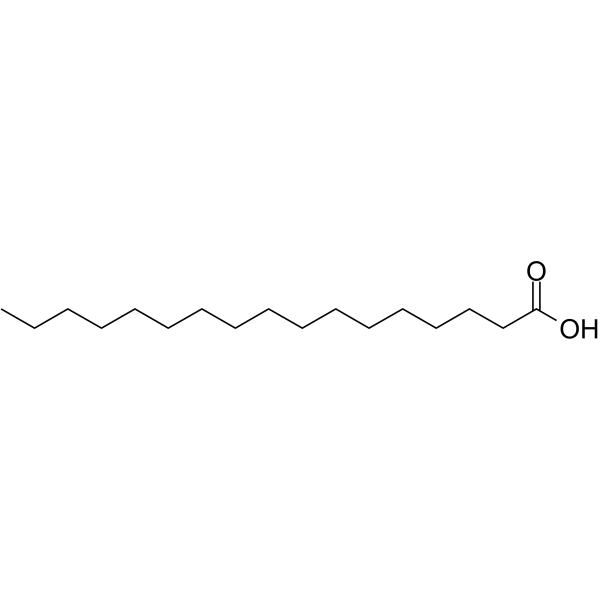
- HY-P5930
-
|
MDM2 32-46
|
Ligands for E3 Ligase
|
Cancer
|
|
HOXB7 8–25 (MDM2 32-46) is an MDM2-derived peptide epitope and can elicit antigen-specifc and tumor-reactive CD4 + T cell responses .
|
-
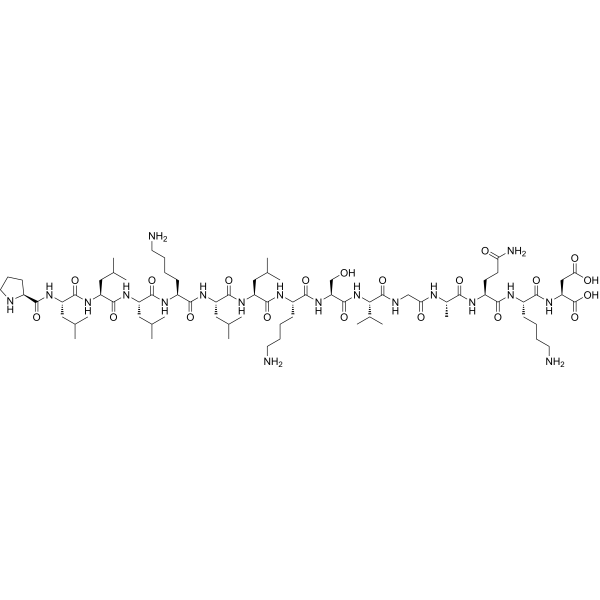
- HY-125665
-
|
|
Apoptosis
|
Cardiovascular Disease
Cancer
|
|
Pheophorbide A is an intermediate product in the chlorophyll degradation pathway. Pheophorbide A can be used as a photosensitizer. Pheophorbide A is a lymphatic vascular activator. Pheophorbide A has antitumor activity. Pheophorbide A can be used for human lymphatic vascular insufficiencies research .
|
-
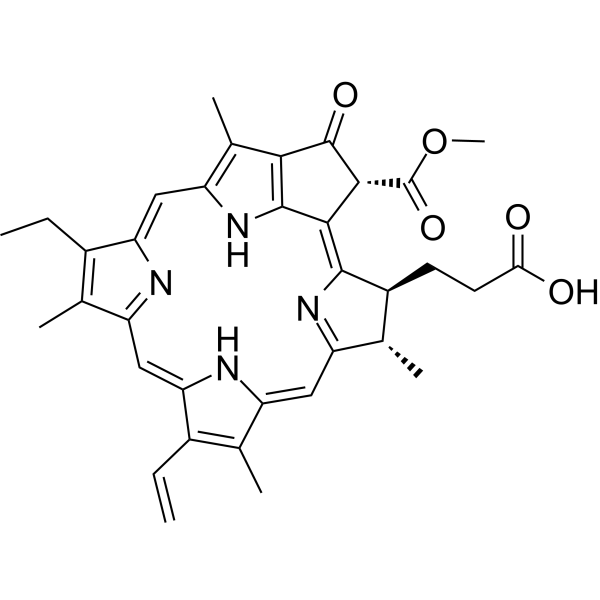
- HY-16398
-
|
|
DNA Alkylator/Crosslinker
|
Cancer
|
|
Pipobroman is a bromide derivative of piperazine and acts as an alkylating agent. Pipobroman plays its role by inhibiting DNA and RNA polymerase or by reducing pyrimidine nucleotide incorporation into DNA. Pipobroman can be used for the cancer research, including polycythemia vera, myeloproliferative neoplasm, and AML et.al .
|
-
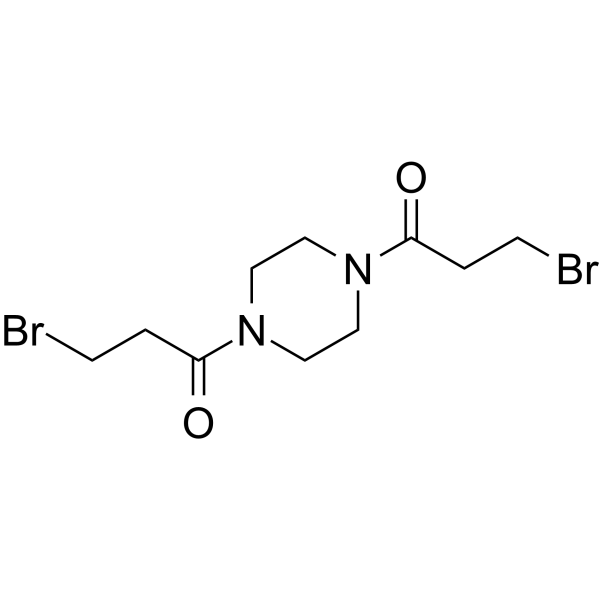
- HY-N0941
-
|
β-Mangostin
|
Bacterial
Parasite
Apoptosis
|
Infection
Cancer
|
|
beta-Mangostin (β-Mangostin) is a xanthone compound present in Cratoxylum arborescens, with antibacterial and antimalarial activities. beta-Mangostin exhibits antimycobacterial activity against Mycobacterium tuberculosis with an MIC of 6.25 μg/mL. beta-Mangostin possesses in vitro antimalarial activity against Plasmodium falciparum, with an IC50 of 3.00 μg/mL. beta-Mangostin has potent anticancer activity against various cancers (such as hepatocellular carcinoma, leukaemic) .
|
-
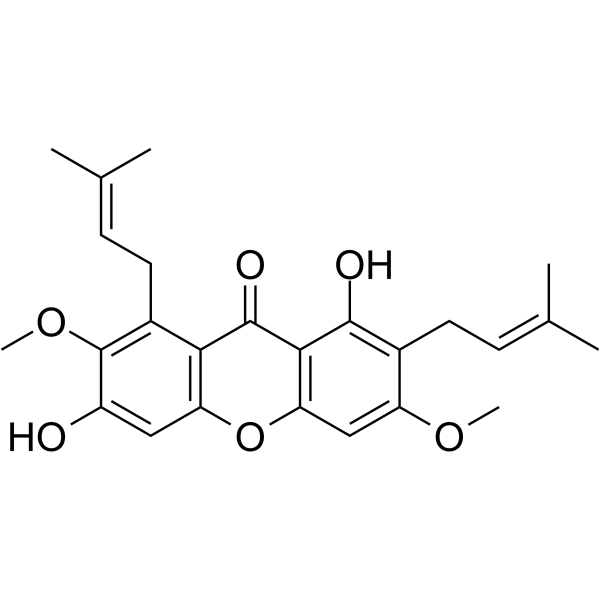
- HY-143400
-
|
|
HSP
Hedgehog
|
Cancer
|
|
HSP70-IN-3 is a potent HSP70 inhibitor (IC50s of 1.1 and 1.9 μM in ASZ001 and C3H10T1/2, respectively). HSP70-IN-3 has anti-Hh (Hedgehog signaling) activity and anti-proliferative activity and reduces expression of the oncogenic transcription factor GLI1 .
|
-
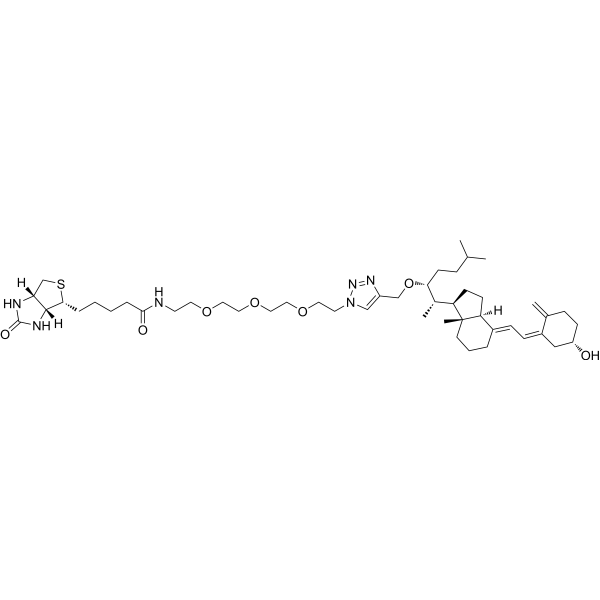
- HY-Y1750A
-
-
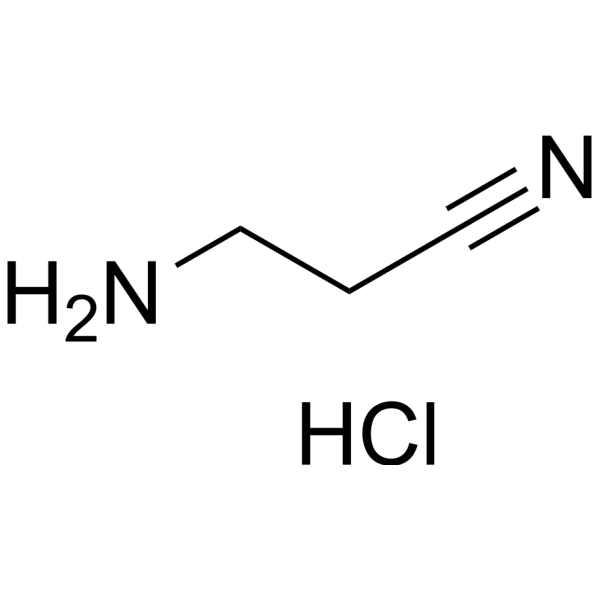
- HY-W020790
-
|
sLeX
|
Endogenous Metabolite
|
Inflammation/Immunology
|
|
Sialyl-Lewis X (sLeX) is a sialylated fucosylated tetrasaccharide, an endogenous antigen. Sialyl-Lewis X is a high-affinity ligand for selectins (E-, P-, and L-selectin) . Sialyl-Lewis X binds to ELAM-1 and CD62 and has the ability to inhibits CD62-mediated neutrophil recruitment to sites of inflammation .
|
-
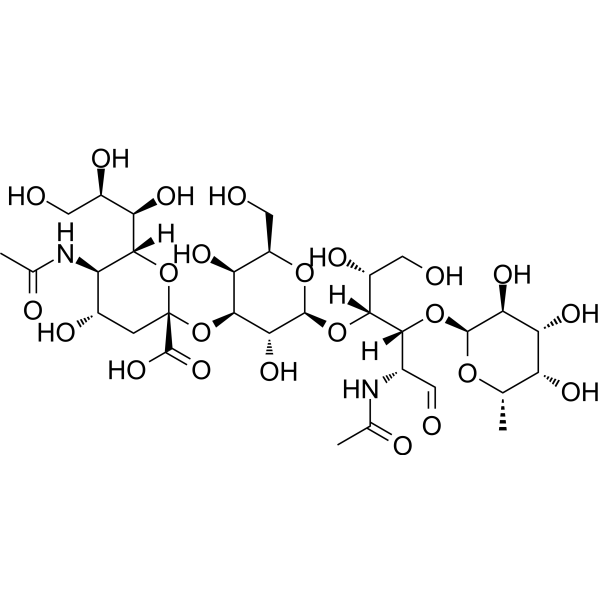
- HY-P99196
-
|
|
c-Met/HGFR
|
Cancer
|
|
Ficlatuzumab is a monoclonal antibody (McAb) targeting human hepatocyte growth factor (HGF). Ficlatuzumab blocks the activation of the HGF/c-Met signaling pathway, and inhibits c-Met receptor-mediated cancer cell proliferation, migration, and invasion .
|
-

- HY-16475
-
|
|
Hedgehog
|
Cancer
|
|
TAK-441 is a highly potent and orally active hedgehog (Hh) signaling inhibitor with an IC50value of 4.4 nM. TAK-441 has strong antitumor activity in solid tumors .
|
-
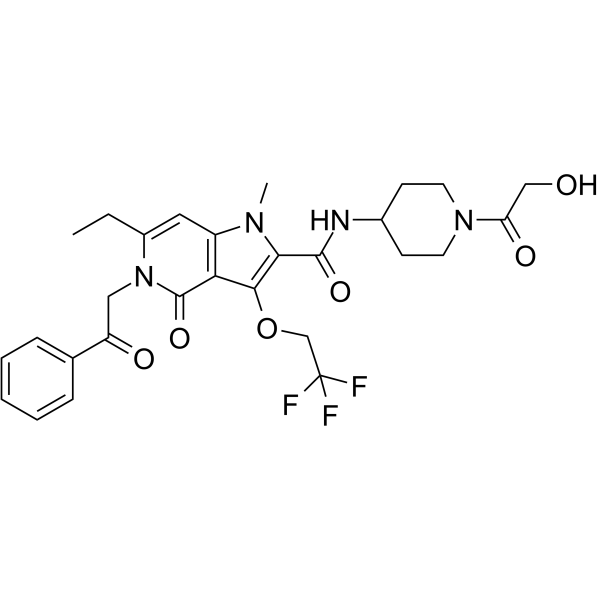
- HY-15995
-
|
TubA
|
ADC Cytotoxin
Antibiotic
Microtubule/Tubulin
|
Cancer
|
|
Tubulysin A (TubA) is an anticancer and antiangiogenic agent with anti-microtubule, anti-mitosis and anti-proliferative activity against a variety of cancer cells with IC50 values in the pmol range. It can induce apoptosis of cancer cells and has no effect on normal cells. Tubulysins are a group of potent cytotoxins consisting of nine members (A-I). Tubulysin A can synthesize ADC as ADC Cytotoxin< b>ADC Cytotoxin .
|
-
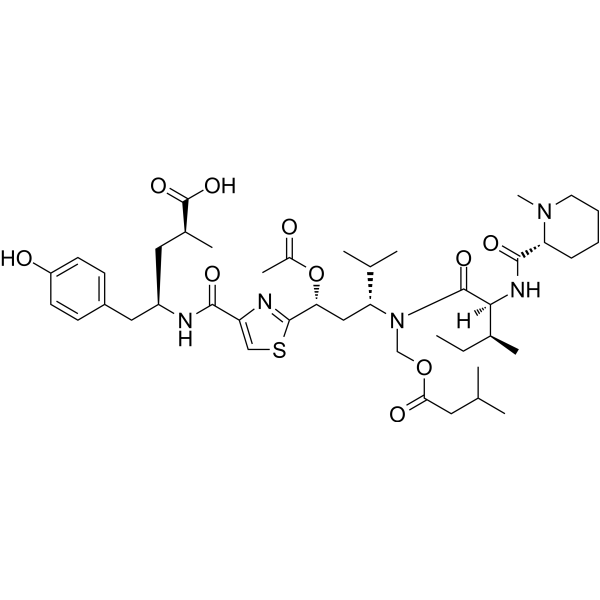
- HY-133136
-
-
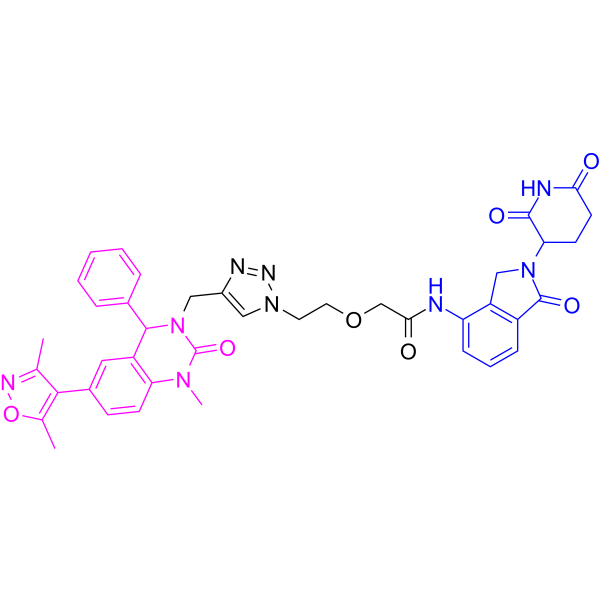
-
-
HY-L148
-
|
|
65 compounds
|
|
The TCA cycle (tricarboxylic acid cycle)—is also known as the Krebs cycle or the citric acid cycle (CAC). The TCA cycle is a series of chemical reactions that release stored energy through the oxidation of acetyl-CoA in carbohydrates, fats, and proteins.
For decades, the TCA cycle has been considered as the central pathway for cell oxidative phosphorylation to produce energy and biosynthesis. Research shows that TCA cycle is associated with many diseases, especially cancer. In colon carcinoma, liver cancer and other cancers, there are mutations that lead to the imbalance of TCA cycle metabolites, indicating that TCA cycle may be related to the occurrence of cancer. Understanding the role and molecular mechanism of TCA cycle in inhibiting or promoting cancer progression will promote the development of new metabolite-based cancer treatment methods in the future.
MCE supplies a unique collection of 65 compounds related to the TCA cycle. MCE TCA Cycle Compound Library is a useful tool for the TCA cycle related research and anti-cancer drug development.
|
| Cat. No. |
Product Name |
Type |
-
- HY-B0185G
-
|
Lignocaine (GMP)
|
Fluorescent Dye
|
|
Lidocaine (GMP) is Lidocaine (HY-B0185) produced by using GMP guidelines. GMP small molecules work appropriately as an auxiliary reagent for cell therapy manufacture. Lidocaine inhibits sodium channels involving complex voltage and using dependence . Lidocaine decreases growth, migration and invasion of gastric carcinoma cells via up-regulating miR-145 expression and further inactivation of MEK/ERK and NF-κB signaling pathways. Lidocaine is an amide derivative and has potential for the research of ventricular arrhythmia .
|
-
- HY-14649G
-
|
Vitamin A acid (GMP); all-trans-Retinoic acid (GMP); ATRA (GMP)
|
Fluorescent Dye
|
|
Retinoic acid (Vitamin A acid) (GMP) is Retinoic acid (HY-14649) produced by using GMP guidelines. GMP small molecules works appropriately as an auxiliary reagent for cell therapy manufacture. Retinoic acid is an agonist of RAR nuclear receptors .
|
| Cat. No. |
Product Name |
Type |
-
- HY-B0185G
-
|
Lignocaine (GMP)
|
Biochemical Assay Reagents
|
|
Lidocaine (GMP) is Lidocaine (HY-B0185) produced by using GMP guidelines. GMP small molecules work appropriately as an auxiliary reagent for cell therapy manufacture. Lidocaine inhibits sodium channels involving complex voltage and using dependence . Lidocaine decreases growth, migration and invasion of gastric carcinoma cells via up-regulating miR-145 expression and further inactivation of MEK/ERK and NF-κB signaling pathways. Lidocaine is an amide derivative and has potential for the research of ventricular arrhythmia .
|
-
- HY-14649G
-
|
Vitamin A acid (GMP); all-trans-Retinoic acid (GMP); ATRA (GMP)
|
Biochemical Assay Reagents
|
|
Retinoic acid (Vitamin A acid) (GMP) is Retinoic acid (HY-14649) produced by using GMP guidelines. GMP small molecules works appropriately as an auxiliary reagent for cell therapy manufacture. Retinoic acid is an agonist of RAR nuclear receptors .
|
| Cat. No. |
Product Name |
Target |
Research Area |
-
- HY-P2508
-
|
|
Mucin
|
Cancer
|
|
MUC1, mucin core is the region of the MUC1 mucin core. MUC1 is a type I transmembrane glycoprotein, and is overexpressed and aberrantly glycosylated in carcinoma cells. MUC1, mucin core protein binds to domain 1 of ICAM-1 .
|
-
- HY-P3341
-
-
- HY-P4088
-
|
|
Peptides
|
Cancer
|
|
LyP-2 is a peptide that homes to tumor lymphatics. LyP2 homes to lymphatics of C8161 melanomas and cervical carcinomas and K14-HPV16 skin, but not to MDA-MB435 tumors, showing heterogeneity in the molecular markers of tumor cells and lymphatics .
|
-
- HY-P2697
-
|
Cys-Laminin A chain 2091-2108
|
Peptides
|
Others
|
|
PA22-2 (free acid) (Cys-Laminin A chain 2091-2108) is a peptide that supports neurite outgrowth and stimulates neuronal-like process formation. PA22-2 (free acid) can be used to culture human adenoid cystic carcinoma cells, and in the preparation of peptide-functionalized supported phospholipid bilayers .
|
-
- HY-P5413
-
|
|
Peptides
|
Others
|
|
[Lys3]-Bombesin is a biological active peptide. (PET (Positron Emission Tomography) imaging of [Lys3]-bombesin is able to detect gastrin-releasing peptide receptor (GRPR) positive prostate cancer. An immunoconjugate of [Lys3]-bombesin and corresponding monoclonal antibody can specifically induce (CD64)-dependent monocyte and neutrophil-mediated lysis of small cell carcinoma.)
|
-
- HY-P2518A
-
|
|
Protease Activated Receptor (PAR)
|
Cancer
|
|
Protease-Activated Receptor-1, PAR-1 Agonist TFA is a selective proteinase-activated receptor1 (PAR-1) agonist peptide. Protease-Activated Receptor-1, PAR-1 Agonist TFA corresponds to PAR1 tethered ligand and which can selectively mimic theactions of thrombin via this receptor .
|
-
- HY-P2324
-
|
|
Bacterial
HIF/HIF Prolyl-Hydroxylase
Antibiotic
|
Infection
Cancer
|
|
Gramicidin A is a peptide component of gramicidin, an antibiotic mixture originally isolated from B. brevis. Gramicidin A is a highly hydrophobic channel-forming ionophore that forms channels in model membranes that are permeable to monovalent cations. Gramicidin A induces degradation of hypoxia inducible factor 1 α (HIF-1α) .
|
-
- HY-P3342
-
|
|
PD-1/PD-L1
Apoptosis
|
Inflammation/Immunology
|
|
[D-Leu-4]-OB3 inhibits expressions of pro-inflammatory, proliferative and metastatic genes and PD-L1 expression. [D-Leu-4]-OB3 stimulates expression of pro-apoptotic genes .
|
-
- HY-P2324A
-
|
|
Antibiotic
Bacterial
|
Infection
|
|
Gramicidin A (TFA) is a peptide component of gramicidin, an antibiotic mixture originally isolated from B. brevis. Gramicidin A (TFA) is a highly hydrophobic channel-forming ionophore that forms channels in model membranes that are permeable to monovalent cations. Gramicidin A (TFA) induces degradation of hypoxia inducible factor 1 α (HIF-1α) .
|
-
- HY-P5372
-
|
|
Protease Activated Receptor (PAR)
|
Others
|
|
Ala-parafluoroPhe-Arg-Cha-Cit-Tyr-NH2 is a biological active peptide. (Protease activated receptor 1 (PAR-1) belongs to a subfamily of G-protein coupled receptors and is known to mediate the cellular effects of thrombin. This peptide is a PAR-1 selective agonist displaying a high level of specificity to PAR-1 over PAR-2. The specificity of peptide was evaluated in cell-based calcium signaling assay using HEK293 cells. PAR-1 selective agonists can be used to study PAR-1 activation in vivo. In addition to its varied cellular effects of thrombin, PAR-1 has also been shown to coordinate with PAR-4 and regulate thrombin-induced hepatocellular carcinoma harboring thrombin formation within the tumor environment classified as 'coagulation type'.)
|
-
- HY-P2282
-
|
|
STAT
|
Cancer
|
|
APTSTAT3-9R, a specific STAT3-binding peptide, inhibits STAT3 activation and downstream signaling by specifically blocking STAT3 phosphorylation. APTSTAT3-9R exerts antiproliferative effects and antitumor activity .
|
-
- HY-P5930
-
|
MDM2 32-46
|
Ligands for E3 Ligase
|
Cancer
|
|
HOXB7 8–25 (MDM2 32-46) is an MDM2-derived peptide epitope and can elicit antigen-specifc and tumor-reactive CD4 + T cell responses .
|
-
- HY-K6111
-
|
|
|
MCE Human Head and Neck Squamous Cell Carcinoma Organoid Kit contains Head and Neck Squamous Cell Carcinoma Organoid Basal Medium A, Head and Neck Squamous Cell Carcinoma Organoid Supplement B (50x), Head and Neck Squamous Cell Carcinoma Organoid Supplement C (250x). This product can be used to efficiently construct human head and neck squamous cell carcinoma organoid.
|
| Cat. No. |
Product Name |
Target |
Research Area |
-
- HY-P99231
-
|
Panorex; CO17-1A
|
Inhibitory Antibodies
|
Cancer
|
|
Edrecolomab (Panorex) is a murine monoclonal antibody to the cell-surface glycoprotein 17-1A, expressed on epithelial tissues and on various carcinomas. Edrecolomab shows anti-tumor activity and can be used in colorectal carcinoma research .
|
-
- HY-P99023
-
|
G250; cG250
|
Carbonic Anhydrase
|
Cancer
|
|
Girentuximab (G250) is a chimeric monoclonal antibody that binds carbonic anhydrase IX (CAIX), a cell surface glycoprotein ubiquitously expressed in clear cell renal cell carcinoma (ccRCC) .
|
-
- HY-P99161
-
|
BGB149
|
TAM Receptor
|
Cancer
|
|
Tilvestamab (BGB149) is a humanized anti-AXL antibody that blocks AXL-mediated cell signaling. Tilvestamab significantly inhibits Gas6-induced AXL activation in 786-0-Luc RCC cells and inhibits downstream AKT phosphorylation. Tilvestamab can be used in cancer research, particularly in AXL overexpressing renal cell carcinomas .
|
-
- HY-P99461
-
|
ISU-104
|
EGFR
|
Cancer
|
|
Barecetamab (ISU-104) is a fully human anti-ErbB3 monoclonal antibody. Barecetamab can be used for the research of recurrent/metastatic (R/M) head and neck squamous cell carcinoma (HNSCC) .
|
-
- HY-P99273
-
|
Anti-Human CD70 Recombinant Antibody
|
Inhibitory Antibodies
|
Cancer
|
|
Vorsetuzumab (Anti-Human CD70 Recombinant Antibody) is a human anti-CD70 antibody. Vorsetuzumab enhances macrophage-related phagocytosis of renal carcinoma cells, shows inhibitory efficacy against Burkitt’s lymphoma .
|
-
- HY-P99013
-
|
GC33; RO5137382
|
Inhibitory Antibodies
|
Cancer
|
|
Codrituzumab is a monoclonal antibody targeting GPC3 (glypican-3). GPC3 is an oncofetal protein expressed on the cell surface of hepatocellular carcinoma (HCC). Codrituzumab induces antibody-dependent cellular cytotoxicity (ADCC) and inhibits tumor growth .
|
-
- HY-P99035
-
|
|
Inhibitory Antibodies
|
Inflammation/Immunology
Cancer
|
|
Naptumomab estafenatox, a tumor targeting superantigen (TTS), is a fusion protein containing. Naptumomab estafenatox stimulates the immune system to identify and kill tumour cells. Naptumomab estafenatox can be used for the research of refractory solid tumors such as renal cell carcinoma .
|
-
- HY-P99208
-
|
IPH2102
|
Inhibitory Antibodies
|
Cancer
|
|
Lirilumab (IPH2102) is an anti-KIR monoclonal antibody, and shows antitumor activity. Lirilumab can be used in Leukemia, squamous cell carcinoma of the head and neck (SCCHN) research .
|
-
- HY-P99287
-
|
B-E8; Anti-IL-6 MAB B-E8; Anti-Human IL6 Recombinant Antibody
|
Interleukin Related
|
Inflammation/Immunology
Cancer
|
|
Elsilimomab (B-E8) is a IgG1 monoclonal antibody against interleukin-6 (IL-6), with a KD of 22 pM and an IC50 of 1.4 nM. Elsilimomab can be used for the research of multiple myeloma, renal cell carcinoma, and rheumatoid arthritis (RA) .
|
-
- HY-P99933
-
|
IMP321; LAG-3Ig
|
LAG-3
|
Cancer
|
|
Eftilagimod alfa (IMP321) is a recombinant LAG-3Ig fusion protein that binds to MHC class II. Eftilagimod alfa mediates antigen-presenting cell (APC) activation followed by CD8 T-cell activation. Eftilagimod alfa can be used for metastatic melanoma and metastatic breast carcinoma research .
|
-
- HY-P99406
-
|
MCLA 158
|
EGFR
|
Cancer
|
|
Petosemtamab (MCLA 158) is an anti- EGFR (Kd: 0.22 nM) and anti-LGR5 (Kd: 0.86 nM) monoclonal antibody (mAb). Petosemtamab leads to EGFR signaling blockade and receptor degradation in LGR5+ cancer cells. Petosemtamab can be used in the research of solid tumors, such as head and neck squamous cell carcinoma (HNSCC), metastatic colorectal cancer (CRC) .
|
-
- HY-P99463
-
|
AVB-S6-500
|
TAM Receptor
|
Cancer
|
|
Batiraxcept (AVB-S6-500) is a highly potent and specific AXL inhibitor, a recombinant fusion protein dimer containing the extracellular domain of human AXLM and human immunoglobulin G1 heavy chain (Fc). Batiraxcept binds to GAS6 and inhibits the interaction of GAS6 with AXL, thereby substantially reducing AXL signaled invasion and migration of highly metastatic cells in vitro and inhibiting metastatic disease in nonclinical models of aggressive human cancers. Batiraxcept is available for studies in advanced or metastatic clear cell renal cell carcinoma (ccRCC) and platinum sensitive recurrent ovarian cancer .
|
-
- HY-P99032
-
|
IPH2201
|
Checkpoint Kinase (Chk)
IFNAR
|
Inflammation/Immunology
Cancer
|
|
Monalizumab (IPH2201) is an immune checkpoint inhibitor targeting Natural Killer Group 2A (NKG2A). Monalizumab, a humanized anti-NKG2A blocking mAb, increases IFN-γ production, thereby promoting NK cell effector functions. Monalizumab can be used for the research of head and neck squamous cell carcinoma (HNSCC) .
|
-
- HY-P99594
-
|
ZKAB001; STI-1014; STI-A1014
|
PD-1/PD-L1
|
Cancer
|
|
Socazolimab (ZKAB001) is an anti-PD-L1 monoclonal antibody. Socazolimab has lasting safety and efficacy in the treatment of recurrent or metastatic cervical cancer. Socazolimab also has potential applications in small cell lung cancer, esophageal squamous cell carcinoma (ESCC), advanced urothelial carcinoma and osteosarcoma .
|
-
- HY-P99743
-
|
|
Inhibitory Antibodies
|
Cancer
|
|
Mitumomab is an anti-idiotypic mouse IgG2b monoclonal antibody that mimics the ganglioside GD3. Mitumomab can be used for the research of small-cell lung carcinoma .
|
-
- HY-P99318
-
|
LT 1009; Anti-Human S1P Recombinant Antibody
|
LPL Receptor
|
Cancer
|
|
Sonepcizumab (LT 1009) is a fully human anti-S1P monoclonal antibody. Sonepcizumab has the potential for the research of metastatic renal cell carcinoma (mRCC) .
|
-
- HY-P99806
-
|
|
Inhibitory Antibodies
|
Cancer
|
|
Pritumumab is a natural human IgG1kappa mAb originally isolated from a regional draining lymph node of a patient with cervical carcinoma. Pritumumab recognizes vimentin expressing on the cell surface of the malignant tumor. Pritumumab can be used for glioblastoma research .
|
-
- HY-P99715
-
|
ABT-806
|
EGFR
|
Cancer
|
|
Losatuxizumab (ABT-806) is an anti-EGFR monoclonal antibody. Losatuxizumab binds to EGFR with EC50s of 0.96 nM for EGFR wild-type, 0.09 nM for EGFR C271A,C283A, 0.12 nM for EGFRvIII, 0.66 nM for EGFR1-501. Losatuxizumab can be used for research of EGFR-expressing cancers .
|
-
- HY-P9971
-
|
SHR-1210
|
PD-1/PD-L1
|
Cancer
|
|
Camrelizumab (SHR-1210) is a potent humanied high-affinity IgG4-κ monoclonal antibody (mAb) to PD-1. Camrelizumab binds PD-1 at a high affinity of 3 nM and inhibits the binding interaction of PD-1 and PD-L1 with an IC50 of 0.70 nM. Camrelizumab acts as anti-PD-1/PD-L1 agent and can be used for cancer research, including NSCLC, ESCC, Hodgkin lymphoma, and advanced HCC et,al .
|
-
- HY-P99196
-
|
|
c-Met/HGFR
|
Cancer
|
|
Ficlatuzumab is a monoclonal antibody (McAb) targeting human hepatocyte growth factor (HGF). Ficlatuzumab blocks the activation of the HGF/c-Met signaling pathway, and inhibits c-Met receptor-mediated cancer cell proliferation, migration, and invasion .
|
| Cat. No. |
Product Name |
Category |
Target |
Chemical Structure |
-
- HY-17473
-
-

-
- HY-B0986
-
-

-
- HY-121532
-
-

-
- HY-N2779
-
-

-
- HY-119906
-
-

-
- HY-N7651
-
-

-
- HY-N10304
-
-

-
- HY-N8380
-
|
|
Structural Classification
Dalbergia hupeana Hance
Source classification
Phenols
Polyphenols
Plants
Fabaceae
|
Apoptosis
Autophagy
PI3K
Necroptosis
|
|
(-)-Latifolin, a flavonoid, induces apoptotic cell death by targeting PI3K/AKT/mTOR/p70S6K signaling. (-)-Latifolin significantly inhibits the cell proliferation of oral squamous cell carcinoma (OSCC), and causes the anti-metastatic activities by effectively blocking cell migration, invasion, and adhesion via the inactivation of FAK/Src. (-)-Latifolin suppresses autophagic-related proteins and autophagosome formation. (-)-Latifolin inhibits necroptosis by dephosphorylating necroptosis-regulatory proteins (RIP1, RIP3, and MLKL). (-)-Latifolin has beneficial effects on anti-aging, anti-carcinogenic, anti-inflammatory, and cardio-protective activities .
|
-

-
- HY-N1261
-
-

-
- HY-N12760
-
-

-
- HY-W661499
-
-

-
- HY-W008638
-
-

-
- HY-N4151
-
-

-
- HY-N11050
-
-

-
- HY-N10207
-
-

-
- HY-N10503
-
|
|
Structural Classification
Flavonoids
Flavones
Plants
Moraceae
|
Tyrosinase
Ras
Raf
MAPKAPK2 (MK2)
Apoptosis
|
|
Norartocarpetin is a tyrosinase inhibitor. Norartocarpetin has strong tyrosinase inhibitory activity with an IC50 value of 0.47 μM. Norartocarpetin as an antibrowning agent can be used for the research of food systems. Norartocarpetin also has a significant anticancer activity in lung carcinoma cells (NCI-H460) with an IC50 value of 22 μM. Norartocarpetin has antiproliferative effects are mediated via targeting Ras/Raf/MAPK signalling pathway, mitochondrial mediated apoptosis, S-phase cell cycle arrest and suppression of cell migration and invasion in human lung carcinoma cells .
|
-

-
- HY-N0128
-
-

-
- HY-N8394
-
-

-
- HY-128366
-
-

-
- HY-N6252
-
-

-
- HY-N4168B
-
-

-
- HY-N12601
-
-

-
- HY-N6842
-
-

-
- HY-123901
-
-

-
- HY-N10363
-
-

-
- HY-N3215
-
-

-
- HY-125443
-
-

-
- HY-N2051
-
-

-
- HY-133100
-
-

-
- HY-N10206
-
-

-
- HY-133168
-
-

-
- HY-N11097
-
-

-
- HY-W342604
-
-

-
- HY-N0746
-
-

-
- HY-157528
-
-

-
- HY-N3665
-
-

-
- HY-N11438
-
-

-
- HY-N8441
-
-

-
- HY-N0530
-
-

-
- HY-N6843
-
-

-
- HY-N6623
-
-

-
- HY-N144114
-
-

-
- HY-N8228
-
-

-
- HY-N1622
-
-

-
- HY-W013605A
-
-

-
- HY-N6885
-
-

-
- HY-N12044
-
-

-
- HY-N1535
-
-

-
- HY-N0103
-
-

-
- HY-N0103A
-
-

- HY-13653
-
-

- HY-N0750
-
-

- HY-N7073
-
-

- HY-130173
-
-

- HY-N0213
-
-

- HY-N0245
-
-

- HY-N0244
-
-

- HY-N7020
-
-

- HY-N0462
-
-

- HY-142125
-
-

- HY-150526
-
-

- HY-13653R
-
-

- HY-N0105
-
-

- HY-N7496
-
-

- HY-N10009
-
|
|
Structural Classification
Brosimopsis oblongifolia
Source classification
Phenols
Polyphenols
Plants
Moraceae
|
NF-κB
TNF Receptor
COX
ERK
p38 MAPK
Sirtuin
|
|
Cudraflavone B is a prenylated flavonoid with anti-inflammatory and anti-tumor properties. Cudraflavone B is also a dual inhibitor of COX-1 and COX-2. Cudraflavone B blocks the translocation of nuclear factor κB (NF-κB) from the cytoplasm to the nucleus in macrophages. Thus, Cudraflavone B inhibits tumor necrosis factor α (TNFα) gene expression and secretion. Cudraflavone B also triggers the mitochondrial apoptotic pathway, activates NF-κB, the MAPK p38, and ERK, and induced the expression of SIRT1. Thus Cudraflavone B inhibits the growth of human oral squamous cell carcinoma cells .
|
-

- HY-N0636
-
-

- HY-119833
-
-

- HY-N6954
-
|
|
Structural Classification
other families
Xanthones
Classification of Application Fields
Garcinia oblongifolia Champ. ex Benth.
Source classification
Guttiferae
Phenols
Polyphenols
Plants
Disease Research Fields
Cancer
|
ATM/ATR
STAT
CDK
|
|
Garcinone C, a xanthone derivative, is a natural compound extracted from Garcinia oblongifolia that is used as an anti-inflammatory, astringency and granulation-promoting medicine, and has potential cytotoxic effects on certain cancers. Garcinone C stimulates the expression levels of ATR and 4E-BP1, while efficiently inhibiting the expression levels of cyclin B1, cyclin D1, cyclin E2, cdc2, Stat3 and CDK7. Garcinone C significantly inhibits cell viability of the human Nasopharyngeal carcinoma (NPC) cell lines CNE1, CNE2, HK1 and HONE1 in a time‑ and dose‑dependent manner .
|
-

- HY-N6896
-
-

- HY-N12209
-
-

- HY-129099
-
-

- HY-129099A
-
-

- HY-13062
-
-

- HY-13062A
-
-

- HY-N6036
-
-

- HY-W004284
-
-

- HY-125665
-
-

- HY-N0941
-
-

- HY-Y1750A
-
-

- HY-W020790
-
-

| Cat. No. |
Product Name |
Chemical Structure |
-
- HY-N0610AS
-
|
|
|
Cinnamic acid-d6 is the deuterium labeled Cinnamic acid. Cinnamic acid has potential use in cancer intervention, with IC50s of 1-4.5 mM in glioblastoma, melanoma, prostate and lung carcinoma cells.
|
-

-
- HY-N0610AS2
-
|
|
|
Cinnamic acid- 13C3 (3-Phenylacrylic acid- 13C3) is the 13C labeled Cinnamic acid (HY-N0610A). Cinnamic acid has potential use in cancer intervention, with IC50s of 1-4.5 mM in glioblastoma, melanoma, prostate and lung carcinoma cells .
|
-

-
- HY-B0185AS
-
|
|
|
Lidocaine-d10 (hydrochloride) is the deuterium labeled Lidocaine hydrochloride. Lidocaine hydrochloride (Lignocaine hydrochloride) inhibits sodium channels involving complex voltage and using dependence[1]. Lidocaine hydrochloride decreases growth, migration and invasion of gastric carcinoma cells via up-regulating miR-145 expression and further inactivation of MEK/ERK and NF-κB signaling pathways. Lidocaine hydrochloride, an amide derivative, has the potential for the research of the ventricular arrhythmia[2].
|
-

-
- HY-B0185S1
-
|
|
|
Lidocaine-d10 is the deuterium labeled Lidocaine. Lidocaine (Lignocaine) inhibits sodium channels involving complex voltage and using dependence[1]. Lidocaine decreases growth, migration and invasion of gastric carcinoma cells via up-regulating miR-145 expression and further inactivation of MEK/ERK and NF-κB signaling pathways. Lidocaine is an amide derivative and has potential for the research of ventricular arrhythmia[2].
|
-

-
- HY-B0185S
-
|
|
|
N-Oxide Lidocaine-d10 is the deuterium labeled Lidocaine. Lidocaine (Lignocaine) inhibits sodium channels involving complex voltage and using dependence[1]. Lidocaine decreases growth, migration and invasion of gastric carcinoma cells via up-regulating miR-145 expression and further inactivation of MEK/ERK and NF-κB signaling pathways. Lidocaine is an amide derivative and has potential for the research of ventricular arrhythmia[2].
|
-

-
- HY-B0185AS1
-
|
|
|
Lidocaine-d6 (hydrochloride) is deuterium labeled Lidocaine (hydrochloride). Lidocaine hydrochloride (Lignocaine hydrochloride) inhibits sodium channels involving complex voltage and using dependence[1]. Lidocaine hydrochloride decreases growth, migration and invasion of gastric carcinoma cells via up-regulating miR-145 expression and further inactivation of MEK/ERK and NF-κB signaling pathways. Lidocaine hydrochloride is an amide derivative and a agent to treat ventricular arrhythmia and an effective tumor-inhibitor[2].
|
-

-
- HY-109015S
-
|
|
|
Tucidinostat-d4 is the deuterium labeled Tucidinostat. Tucidinostat is a potent and orally bioavailable HDAC enzymes class I (HDAC1/2/3) and class IIb (HDAC10) inhibitor, with IC50s of 95, 160, 67 and 78 nM, respectively[1].
|
-

-
- HY-13690S1
-
|
|
|
Mitotane- 13C6 is the 13C labeled Mitotane[1]. Mitotane (2,4′-DDD), an isomer of DDD and derivative of dichlorodiphenyltrichloroethane (DDT), is an antineoplastic agent, can be used to research adrenocortical carcinoma. Mitotane exert its adrenocorticolytic effect at least in part through lipotoxicity induced by intracellular free cholesterol (FC) accumulation. Mitotane can have direct pituitary effects on corticotroph cells. Mitotane can induce CYP3A4 gene expression via steroid and xenobiotic receptor (SXR) activation, and has agent-agent interactions[2][3][4][5].
|
-

-
- HY-13690S2
-
|
|
|
Mitotane-d8 is the deuterium labeled Mitotane[1]. Mitotane (2,4′-DDD), an isomer of DDD and derivative of dichlorodiphenyltrichloroethane (DDT), is an antineoplastic agent, can be used to research adrenocortical carcinoma. Mitotane exert its adrenocorticolytic effect at least in part through lipotoxicity induced by intracellular free cholesterol (FC) accumulation. Mitotane can have direct pituitary effects on corticotroph cells. Mitotane can induce CYP3A4 gene expression via steroid and xenobiotic receptor (SXR) activation, and has agent-agent interactions[2][3][4][5].
|
-

-
- HY-129812
-
|
|
|
Borofalan- 10B can be used for Boron neutron capture research (BNCT). Borofalan- 10B can be used for the research of recurrent or locally advanced head and neck cancer .
|
-

Your information is safe with us. * Required Fields.
Inquiry Information
- Product Name:
- Cat. No.:
- Quantity:
- MCE Japan Authorized Agent:






















































































































![4-(Benzo[d]oxazol-2-yl)aniline](http://file.medchemexpress.com/product_pic/hy-w029411.gif)














































































































![[D-Leu-4]-OB3](http://file.medchemexpress.com/product_pic/hy-p3342.gif)























































